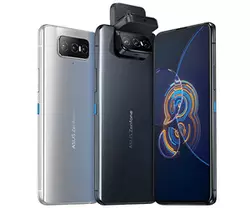ASUS ZenFone 8 Flip Review
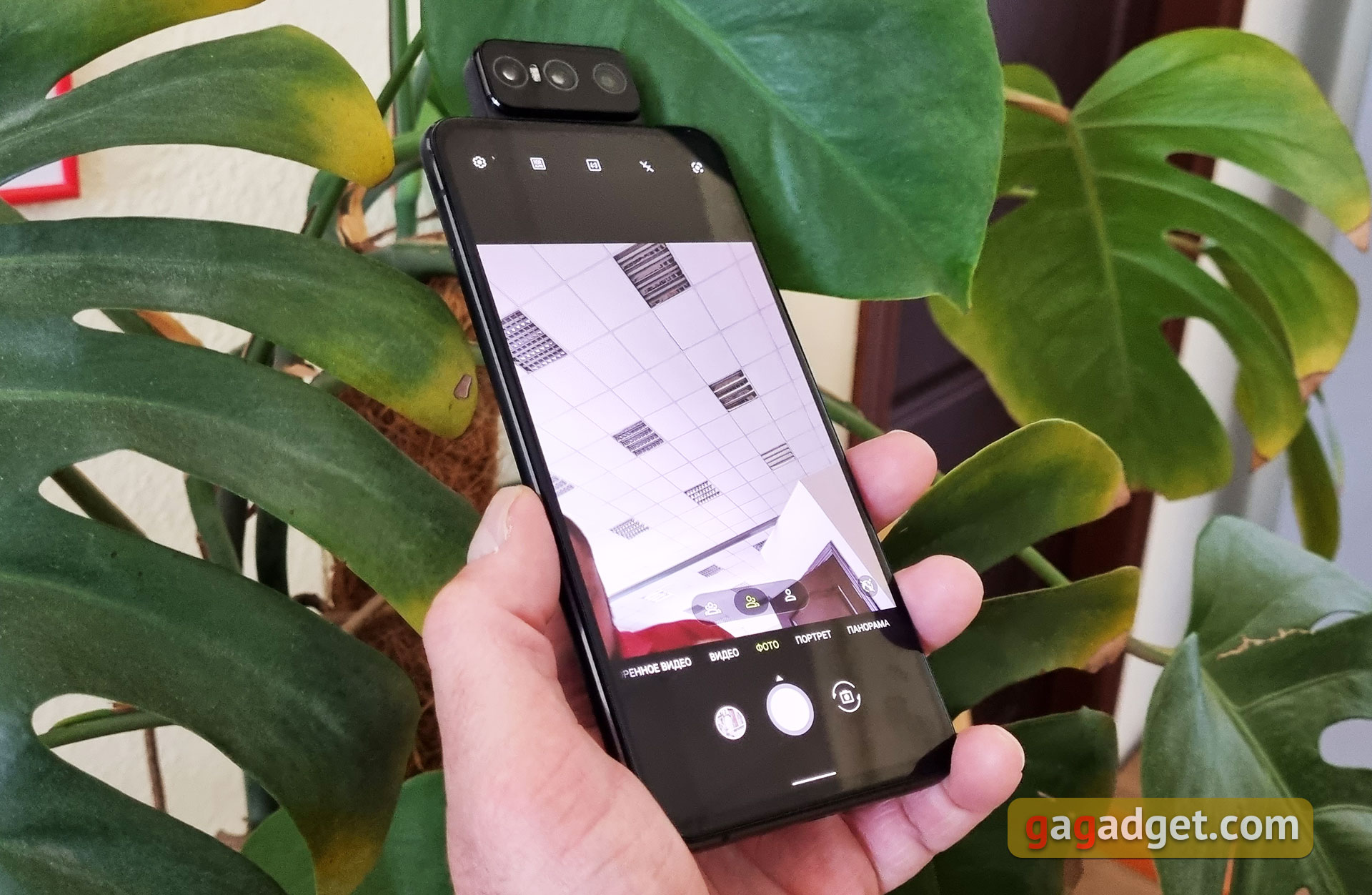
ASUS continues to use its unique swivel camera design, already familiar from past flagships, in the new ZenFone 8 Flip as well. This adds a certain identity and distinctiveness to it, allows to install the screen without a cutout, and also adds some interesting additional features for taking pictures. And the triple camera in the smartphone itself snaps quite well. Although there are competitors in the same price range, which are half as strong in this parameter. And it is strange to see a flagship with a camera without optical stabilization.
Inside, everything is as it should be: a top-end processor with a decent performance reserve, a sufficient amount of both RAM and built-in memory. And a triple slot, in which you can insert both two SIM-cards and MicroSD without sacrificing anything.
The display is large, bright and has a refresh rate of 90 Hz, and it is worth mentioning the loud, high-quality stereo sound and the nice, handy ZenUI 8 interface as nice additions to it all.
But there are also issues with the smartphone. Because of the unusual design of the camera, the smartphone does not have any protection against dust and water, which is available from competitors. And another little thing is the poor charging speed compared to the competitors. Also, there is no support for wireless charging of any kind. At the moment, the price of the smartphone is around $1000 with 8/256 GB configuration.
Pros:
- maximum productivity;
- large and bright AMOLED display with a refresh rate of 90 Hz;
- separate slots for two SIM and a MicroSD;
- smart triple camera with eye-catching swivel design;
- stereo speakers;
- fast and not overbloated ZenUI 8.
Cons:
- lack of protection against dust and water;
- slow (by the standards of the price category) charging, lack of support for wireless charging;
What's in the Box?
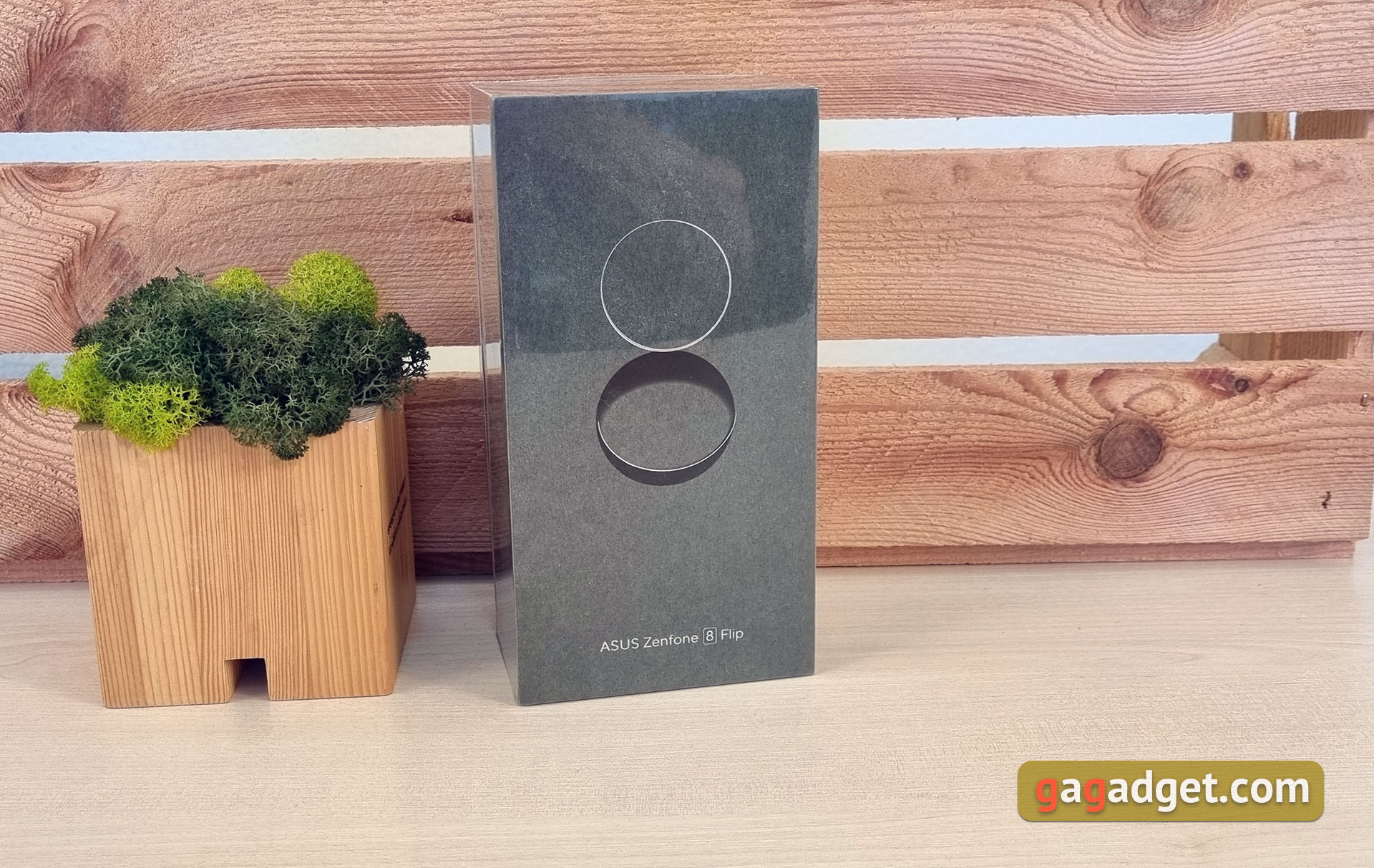
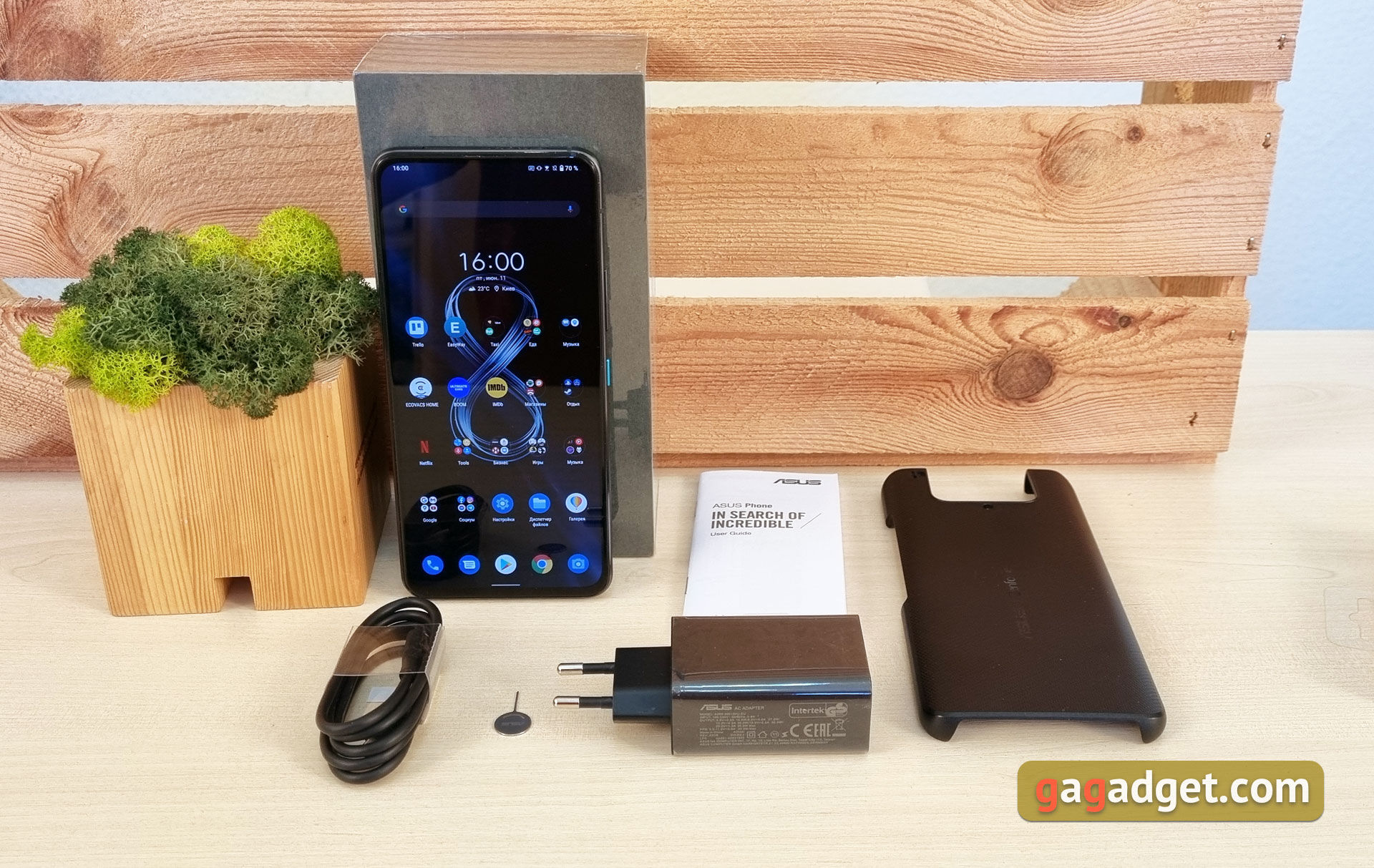
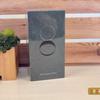
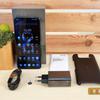
ASUS ZenFone 8 Flip comes in a gray box with a styled digit 8 on the front. Inside - the smartphone itself, power supply for 30W, Type-C cable, tool for removing the card tray, documentation and branded protective bumper. It is much more interesting than the usual transparent silicone ones. It is made of black plastic and has an attractive texture across the surface. Other feature of the bumper is the snap for the main camera. This is made to prevent the camera from spontaneously opening when you shake it.
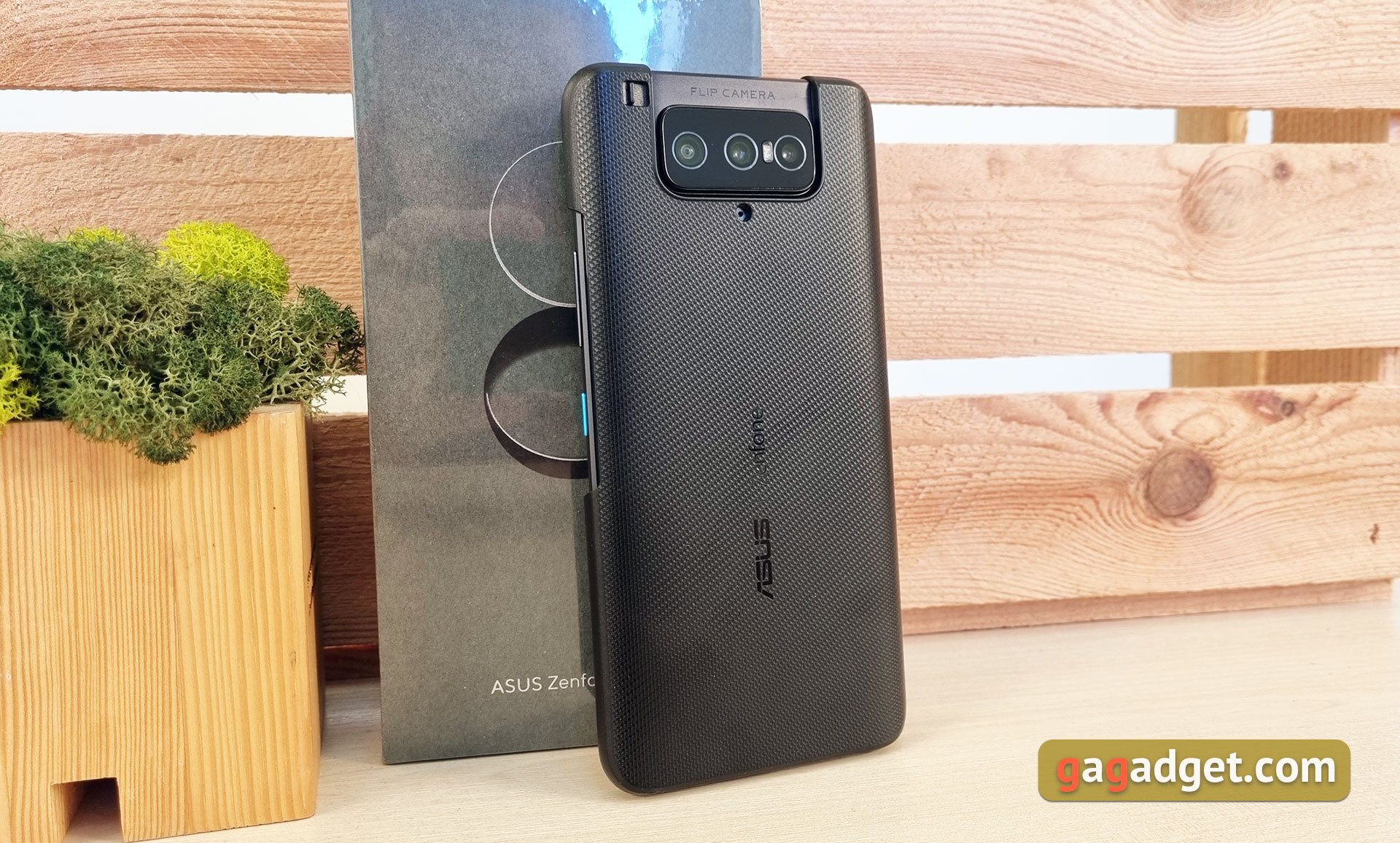
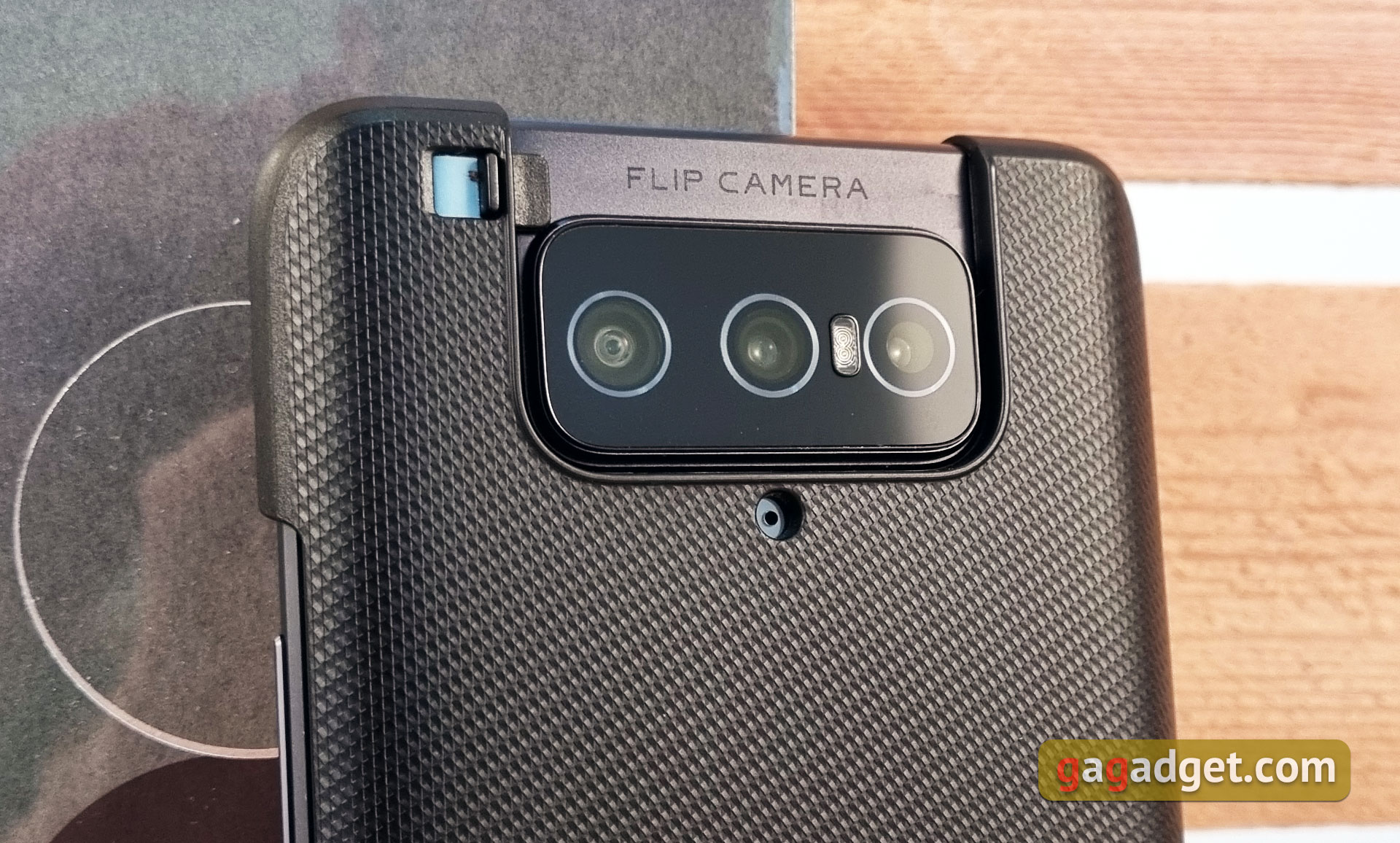
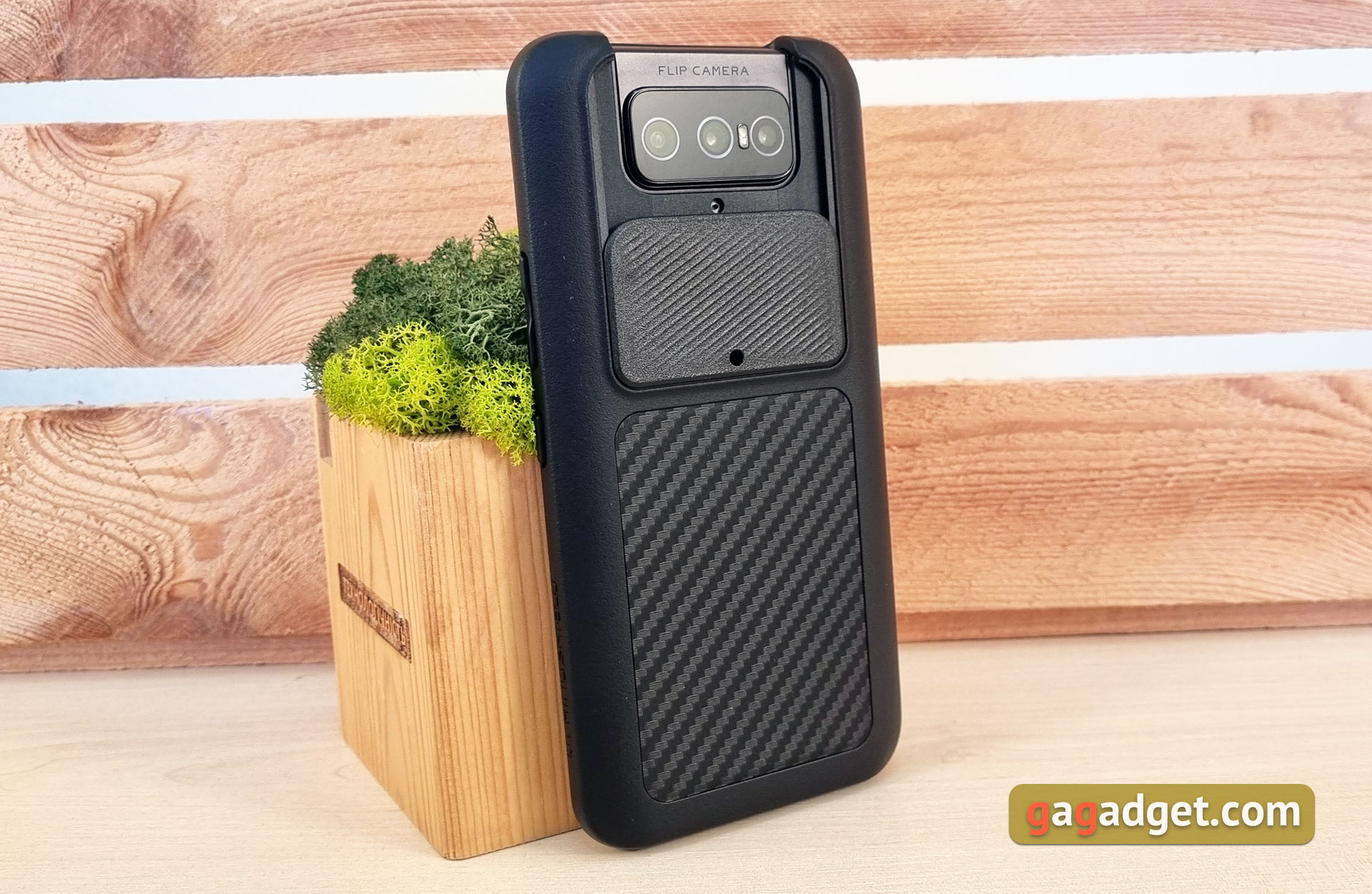
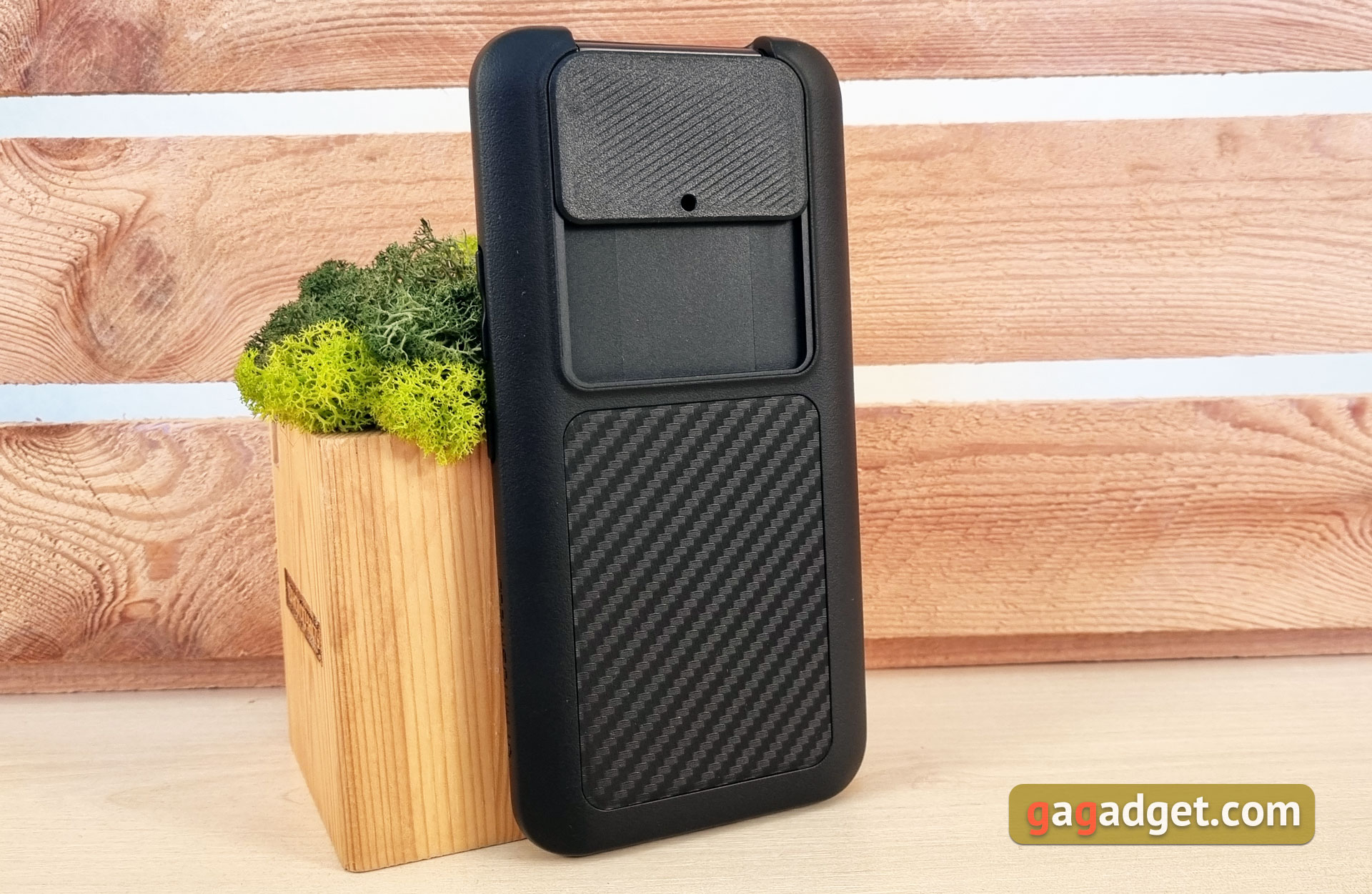
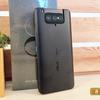
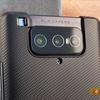
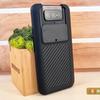
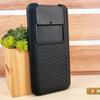
There is also a much more armored version of the SolidSuit from a third-party company called Rhinoshield. It perfectly protects the smartphone and has a lockable camera shutter. But it turned out to be not particularly convenient to use. In addition to the obvious huge dimensions, practice has shown that every time you open the shutter, you get into the camera with your fingers.
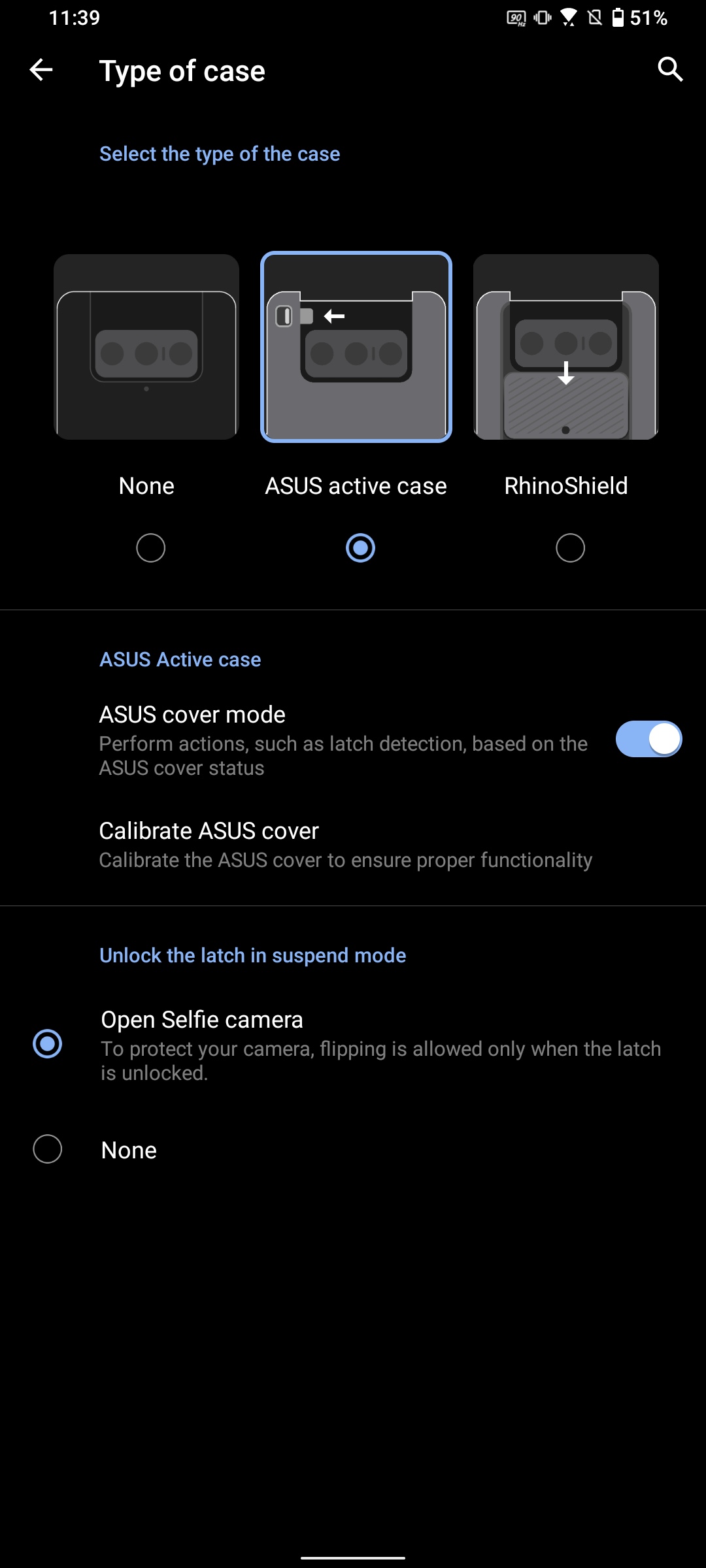
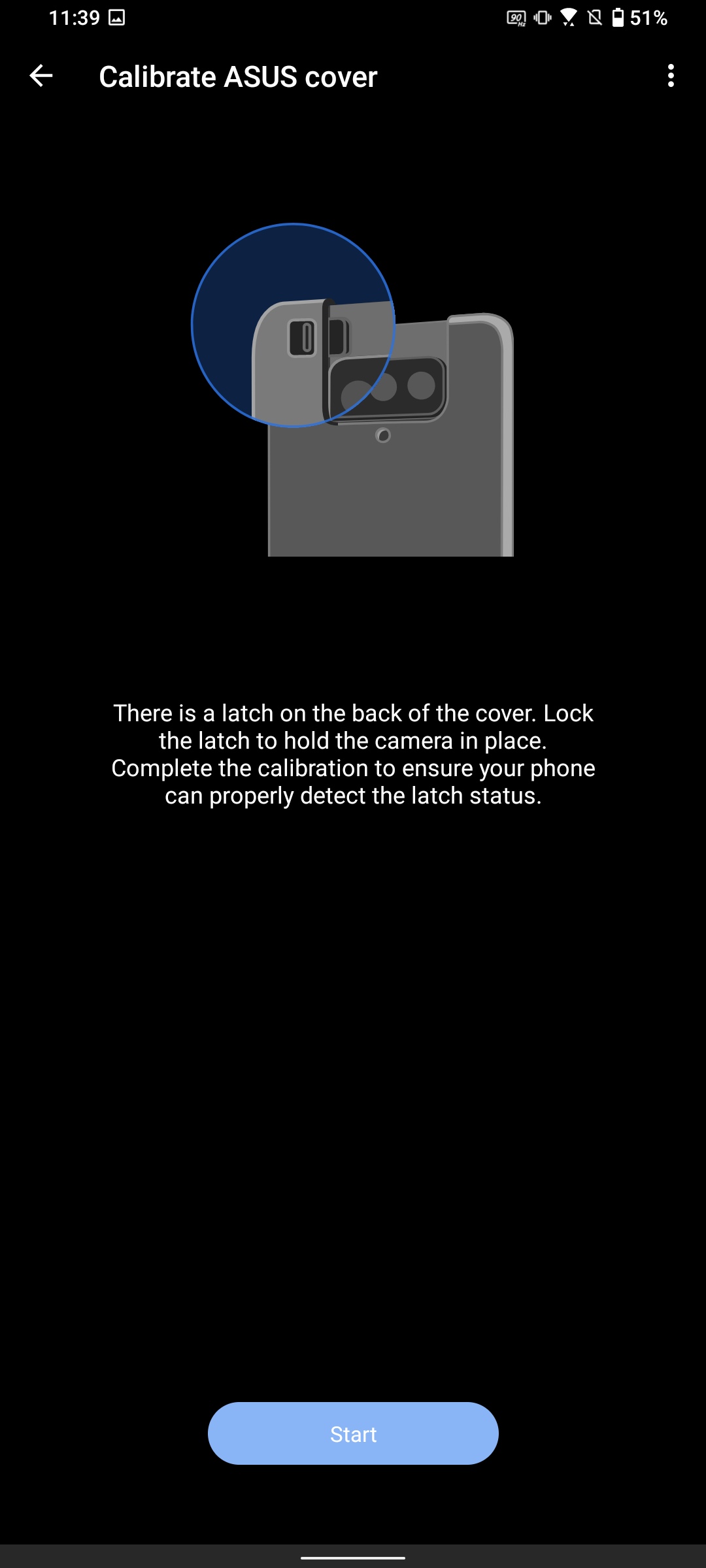

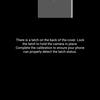
Note that there is software support for these cases and you can assign an action to open the snap or shutter. For example, a quick launch of the camera from sleep mode.
| Specification of ASUS ZenFone 8 Flip | |
| Display | AMOLED, 6.67 inches, 2400x1080 (aspect ratio 20: 9), 395 ppi, Gorilla Glass 6, 90 Hz, HDR10 + |
| Body | dimensions: 164.3x74.6x8.4 mm, weight: 234 g |
| CPU | 64-bit 5nm Qualcomm Snapdragon 888, 1x Kryo 680 , 2.84 GHz, 3x Kryo 680 2.42 GHz, 4x Kryo 680 1.8 GHz, Adreno 660 graphics |
| RAM | 8 GB LPDDR5 |
| Flash memory | 256 GB UFS 3.1 |
| Camera | Primary: 64 MP, f / 1.8, 1 / 1.73 ", 0.8μm, PDAF; telephoto: 8 MP , f / 2.4, PDAF, 3x ; ultra-wide angle: 12 MP, f / 2.2, 112 ° ; video: 8K @ 24 |
| Wireless technology | Wi-Fi 802.11 a / b / g / n / ac / 6e (dual band, 2.4 and 5 GHz), Bluetooth 5.2 LE, aptX HD, aptX Adaptive, LDAC, NFC |
| GPS | GPS, A-GPS, GLONASS, GALILEO, BDS, QZSS, NavIC |
| Battery | 5000 mAh, non-removable; fast charging 30W |
| Operating system | Android 11 + ZenUI 8 |
| Sim card | 2хNanoSIM |
| Extras | optical fingerprint scanner in the screen, stereo sound, rotatable triple camera |
ASUS ZenFone 8 Flip Design
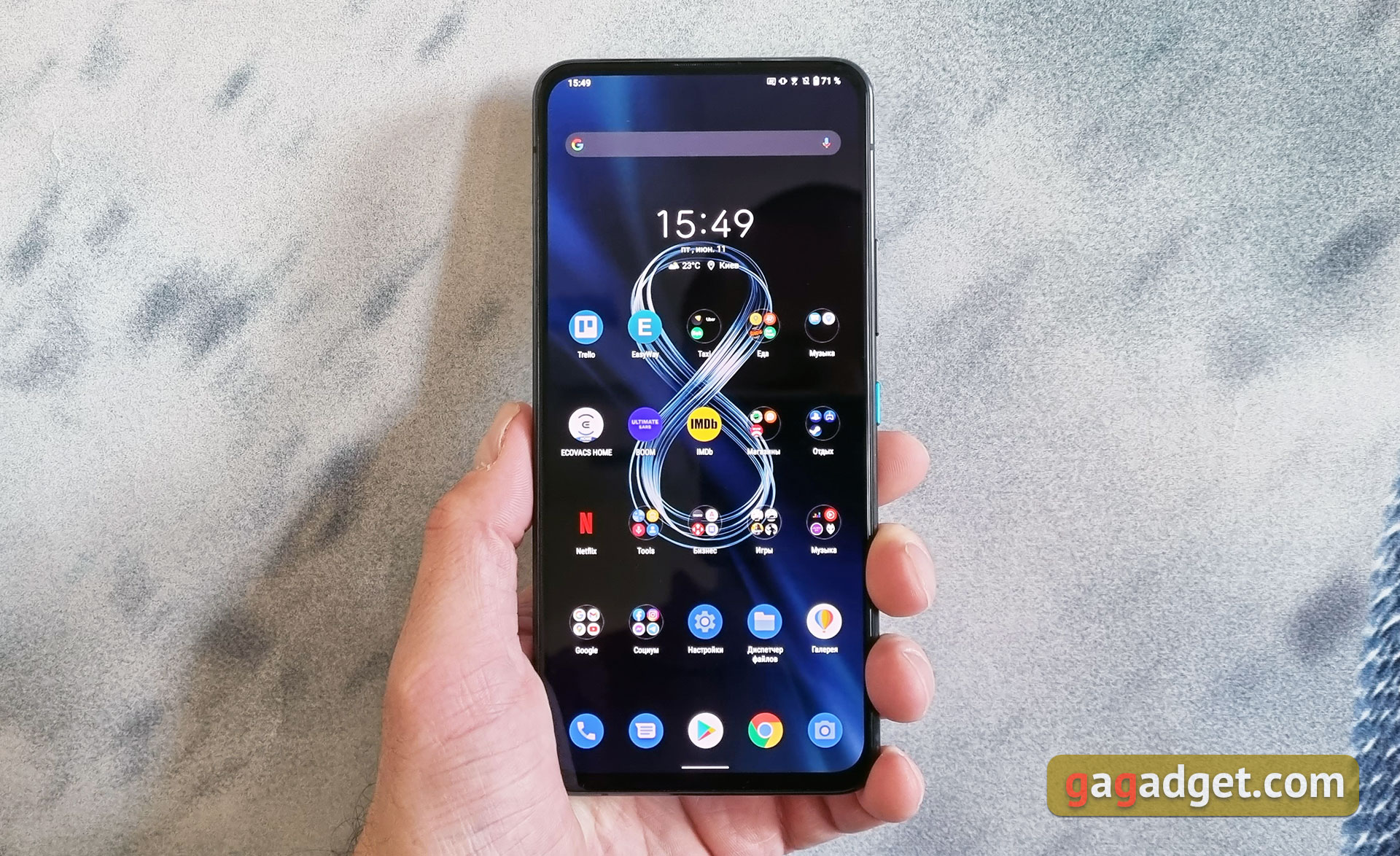
In the design and appearance of ASUS ZenFone 8 Flip you will recognize the features of the company's first smartphone with a rotating camera, the flagship ZenFone 6 2019. On the front there is a large 6.67-inch screen with rather thin bezels around the perimeter, without any cutouts. There is no need for them in this case, because the role of the front camera is performed by the swivel main camera. A thin slot above the screen is the speaker. And that is where everything interesting on the front ends, there are no more functional elements.
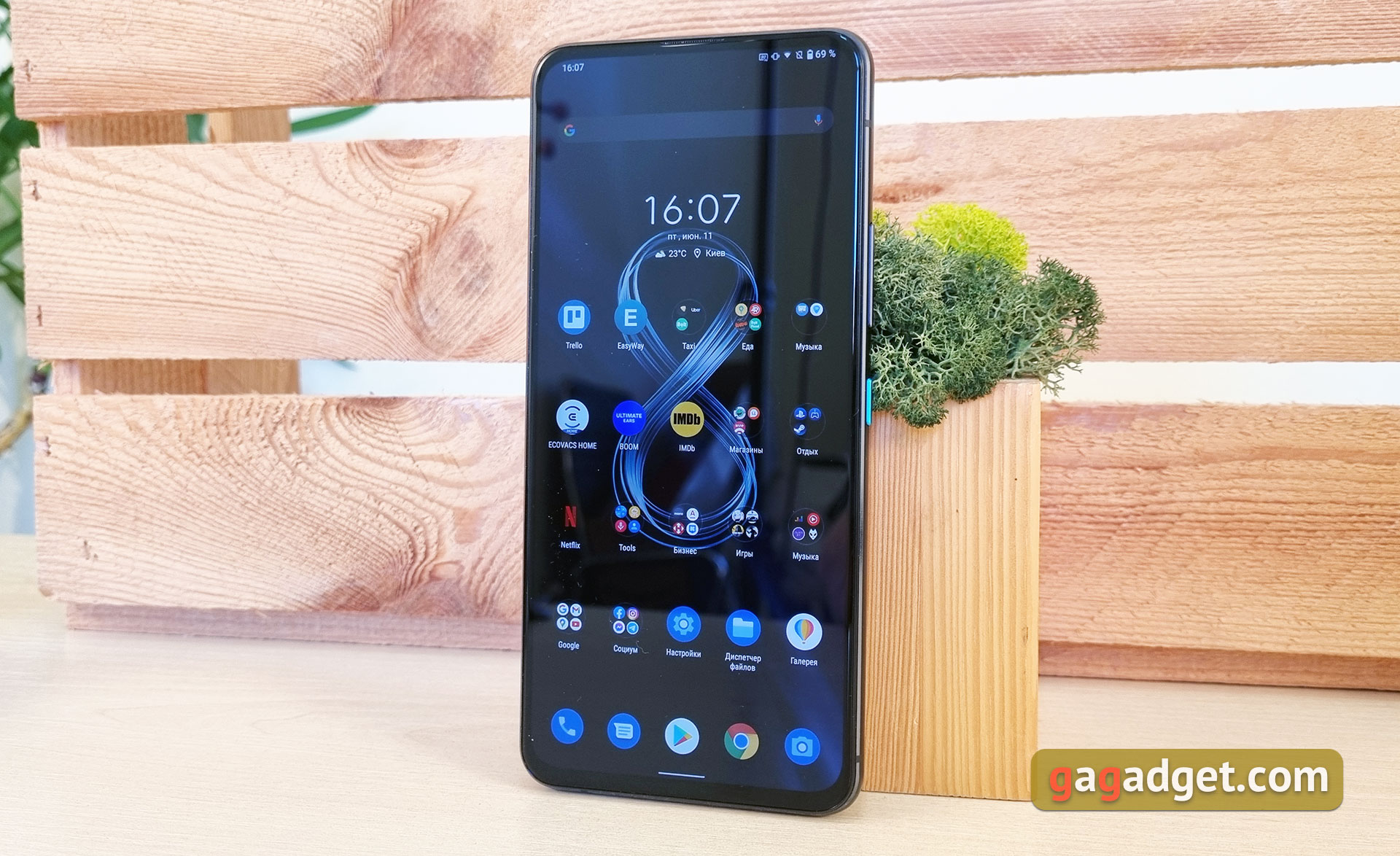
As it is customary today for flagship smartphones, the body is made of metal and glass. To be precise, the screen is protected by Gorilla Glass 6-generation, and on the back - by Gorilla Glass 3. The frame is made entirely of metal. So is the main part of the Flip-cam swivel mechanism. On the top edge there is the swivel mechanism and an additional microphone.
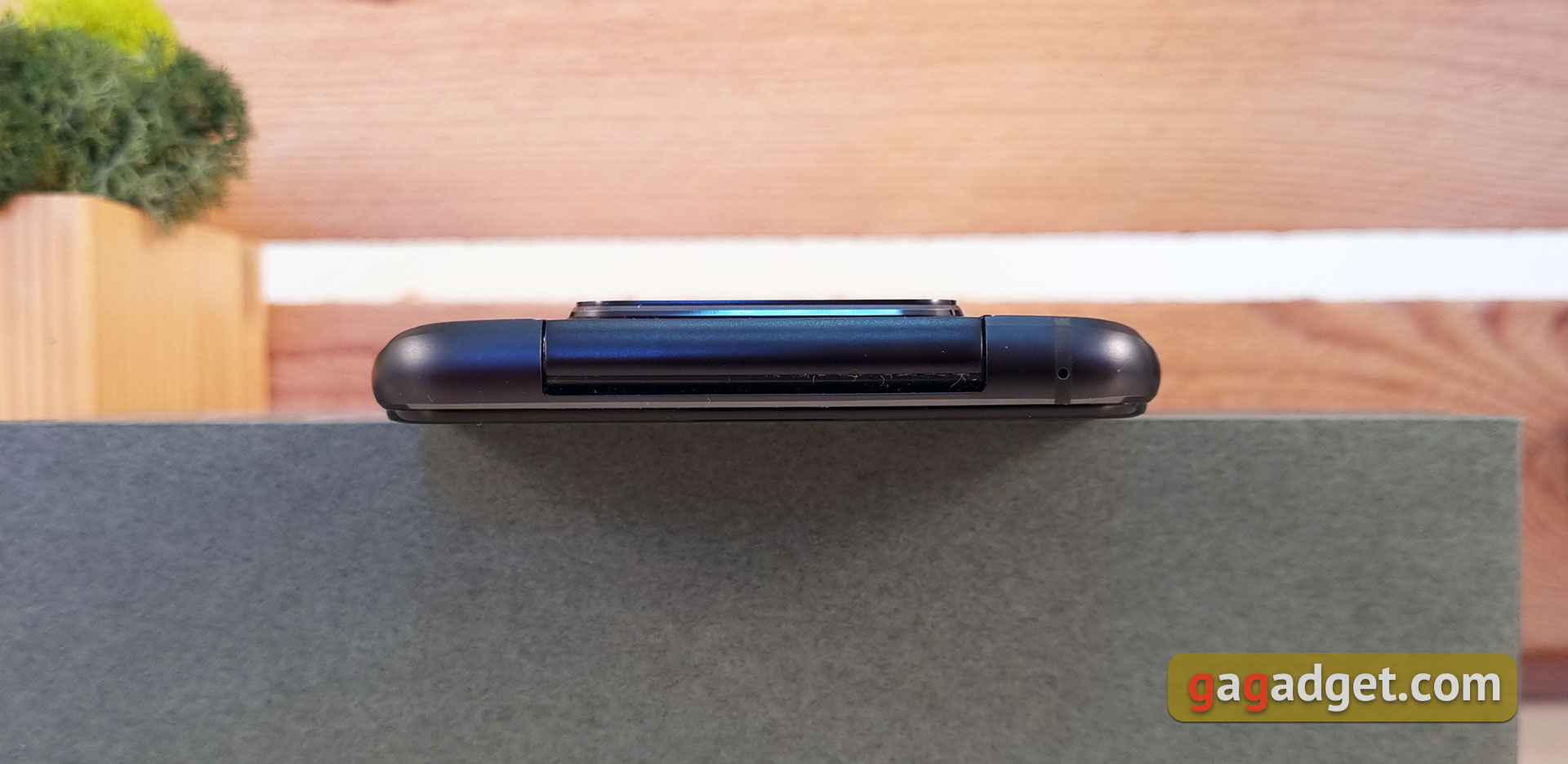
On the bottom edge there is an external speaker, a microphone, a USB Type-C connector and a LED notification indicator. Quite unusual location. But as I used it, I realized that it was successful. And it is good that there is an indicator at all. 3.5mm jack is not provided. Curiously, the more compact ZenFone 8 has it.
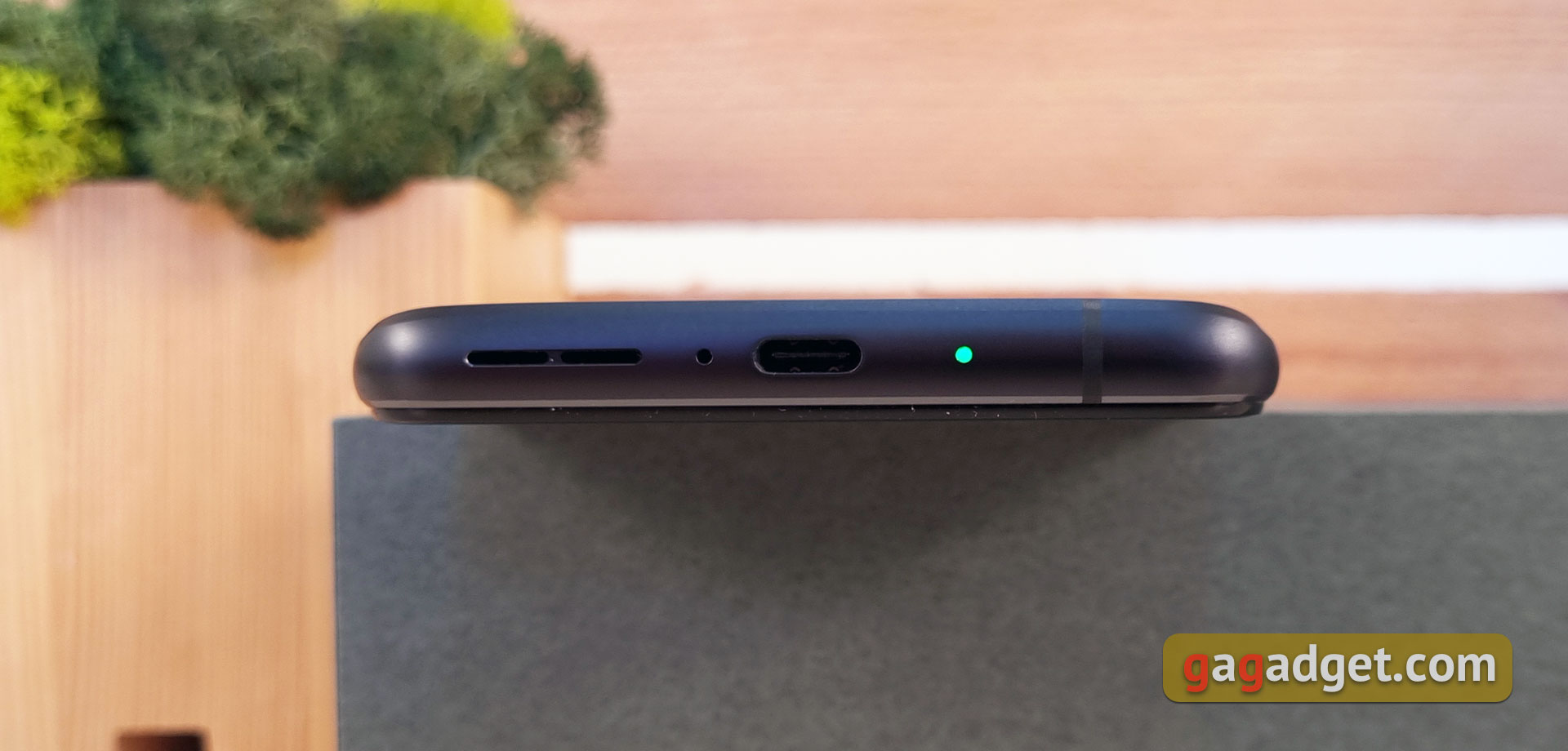
The buttons are in their usual places, on the right. They are metal. The power button is made in a bright blue color. Additional actions can be configured on it. The location of the buttons is quite comfortable for both left and right hands. You don't have to reach out to get it.
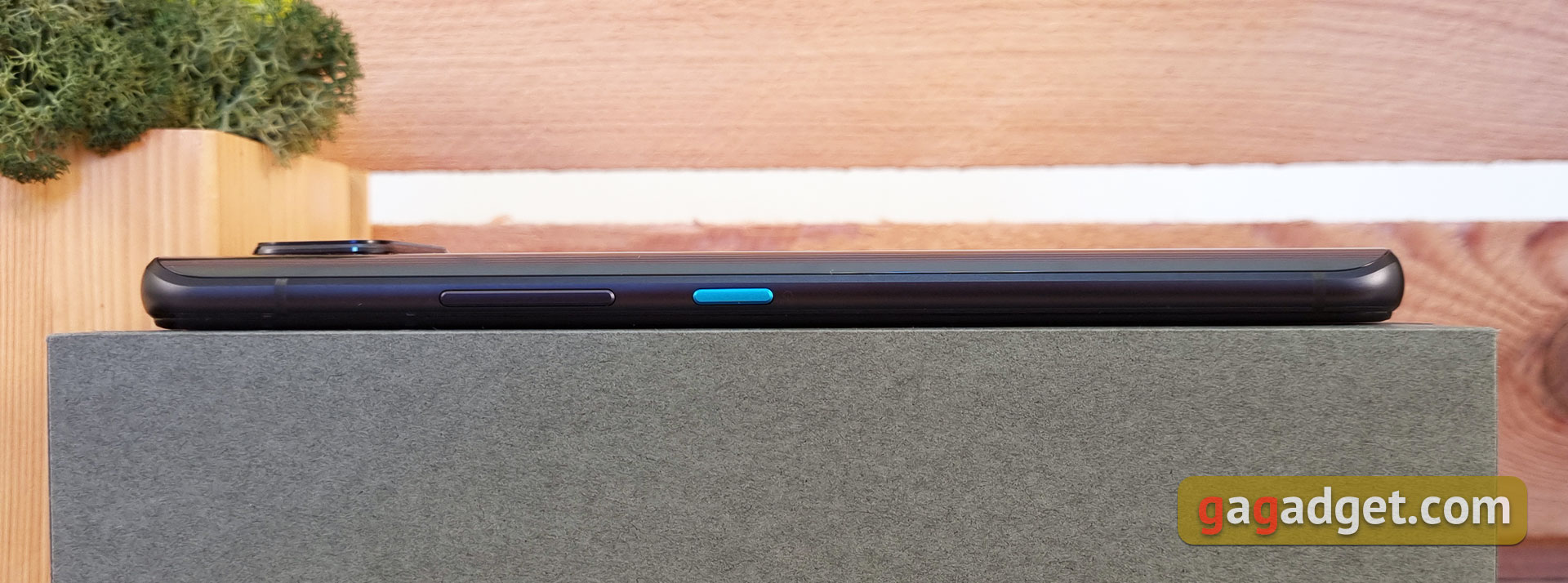
On the left side there is a tray. And, surprisingly, you can install both dual SIM cards and microSD in it. This kind of generosity has not been seen in flagship smartphones for a very long time.
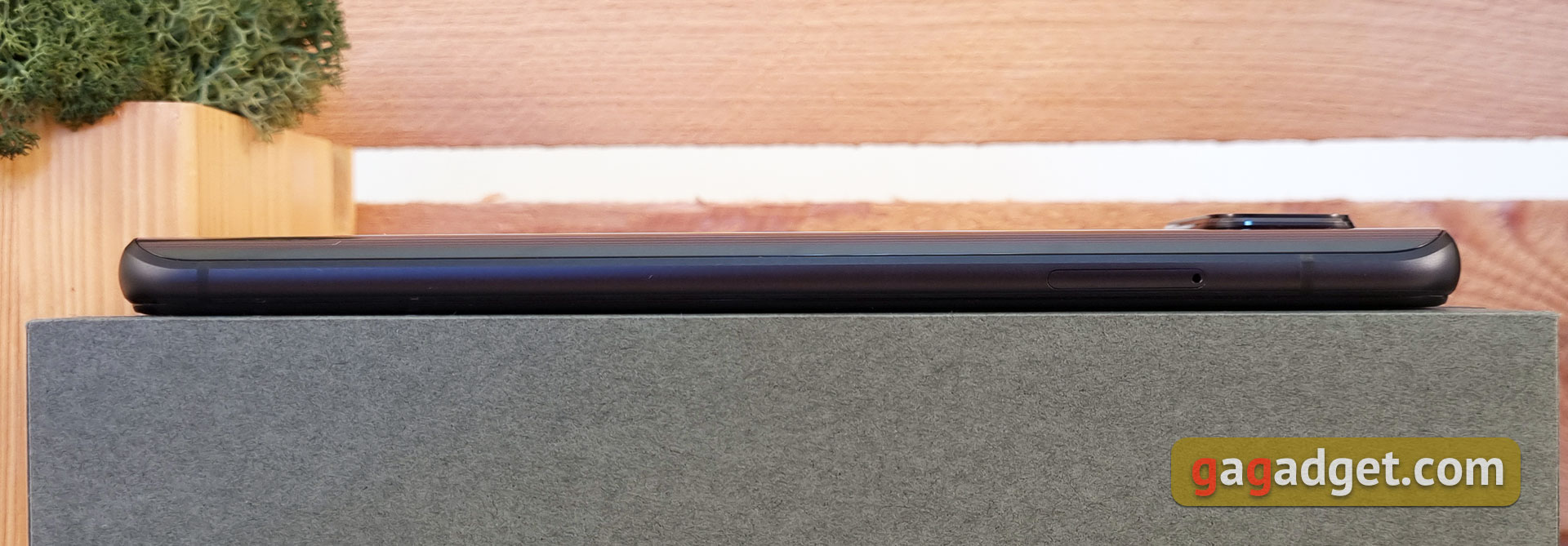
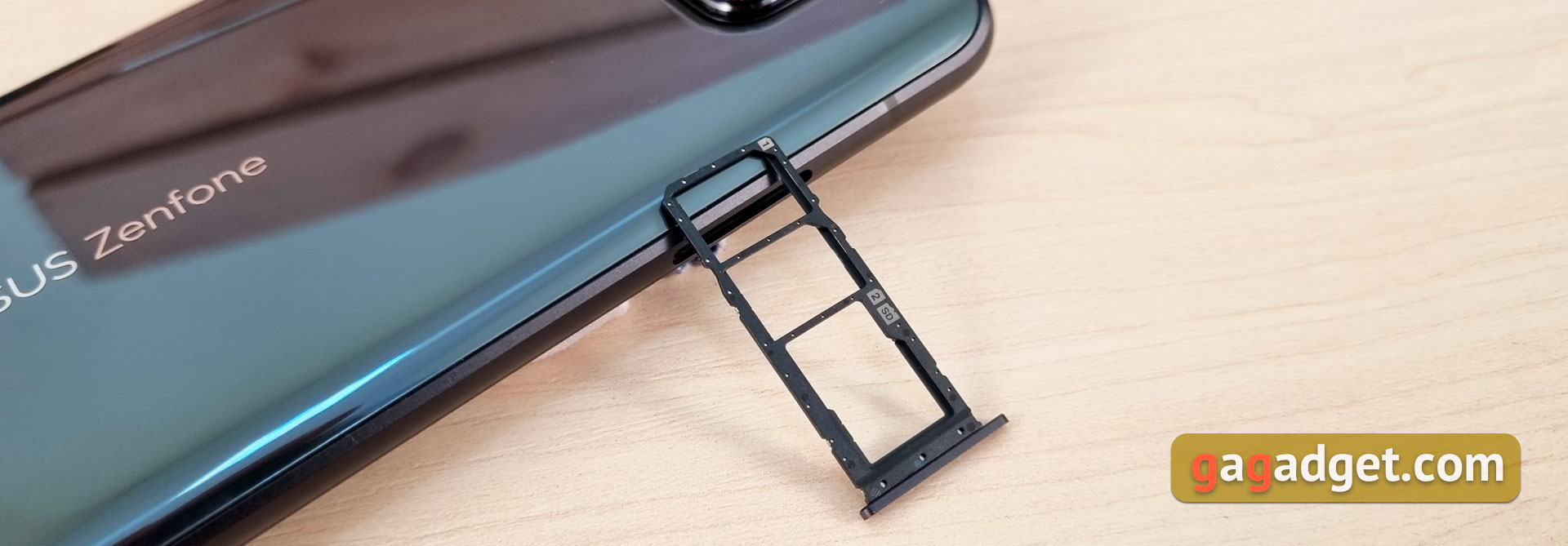
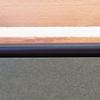

The back cover is glossy, with small ribs on the sides for a more comfortable grip. In the middle there is ASUS logo. The Galactic Black variant came to us. Although in reality it is not black, but dark gray with a bluish tint. It looks nice, but collects fingerprints. In the upper part there is a swivel triple camera. And in the closed position it does not attract any attention. A module of three cameras and a flash, nothing extraordinary.
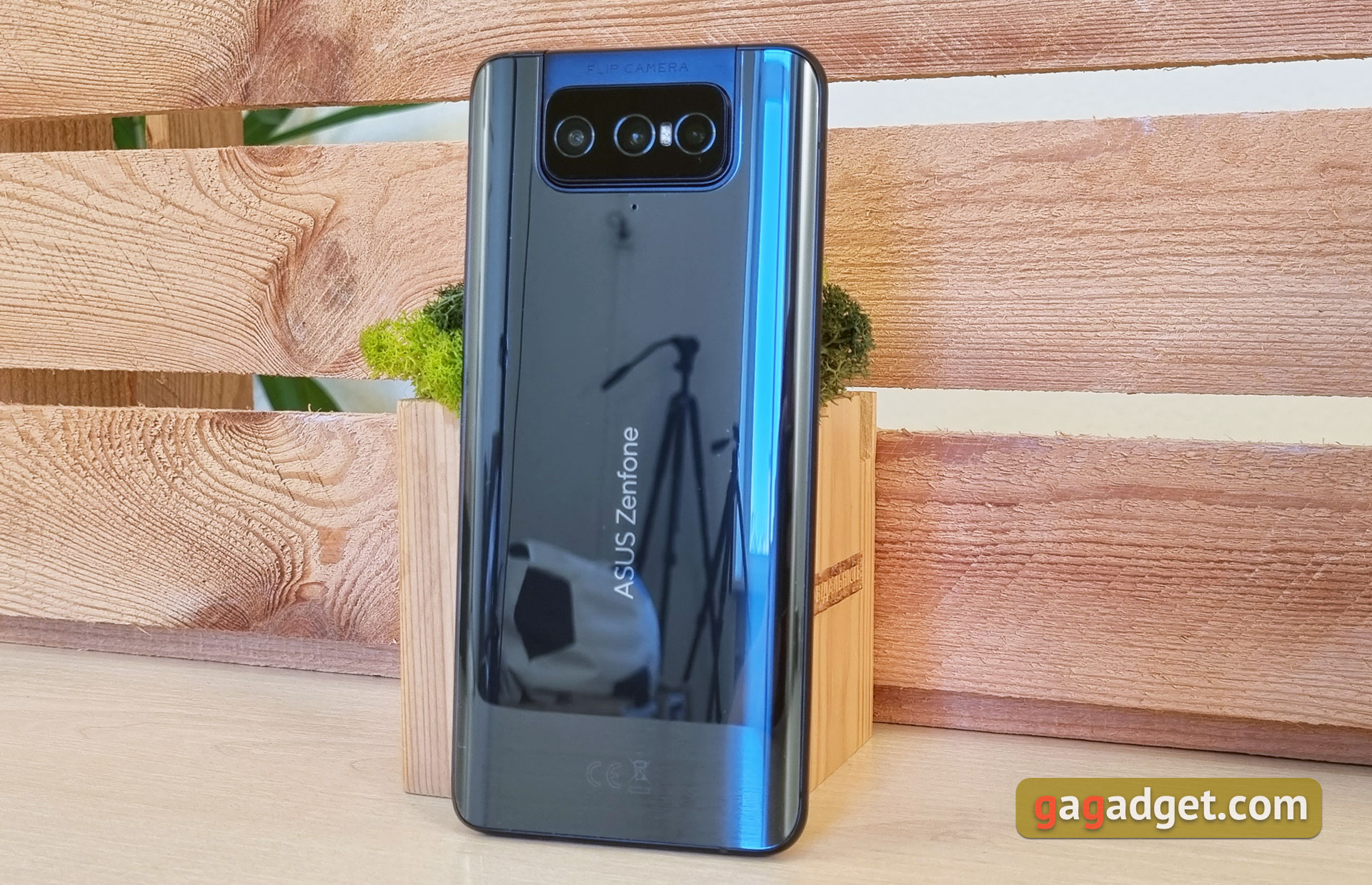
But as soon as it unfolds, it becomes much more interesting. The camera opens with a distinctive sound and rotates 180° to self-portrait mode by default. Although there is manual smooth adjustment, and the camera is able to make automatic panoramas and unfold during video recording to track the desired object.
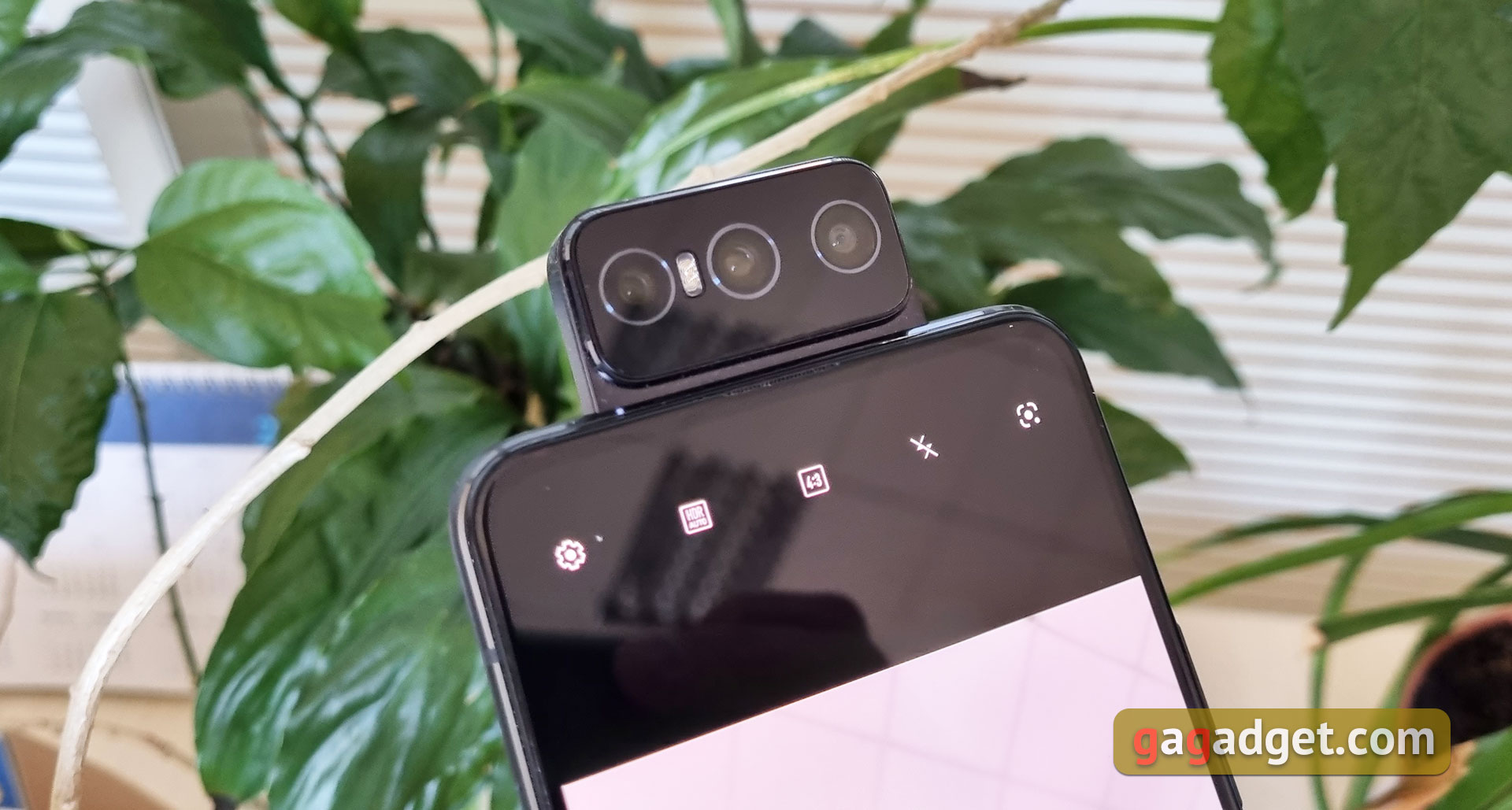
Yes, this is not the first smartphone with a rotary camera, but it all still looks very impressive. The flip side of the coin is durability. It is promised that the mechanism will withstand at least 300,000 actuations. Or five years of operation at 150 actuations per day. An impressive service life, but there is also the human factor: such a camera can be broken through negligence.
.gif)
The smartphone turned out to be large and weighty: 165x77.3x9.6 mm, 230 g. And the use of a protective bumper makes it even larger. This is worth considering. ASUS ZenFone 8 Flip looks solid and stylish, especially the absence of any cutouts in the screen. Unfortunately, there is no protection against dust and water. Which is not surprising considering the camera.
The Screen
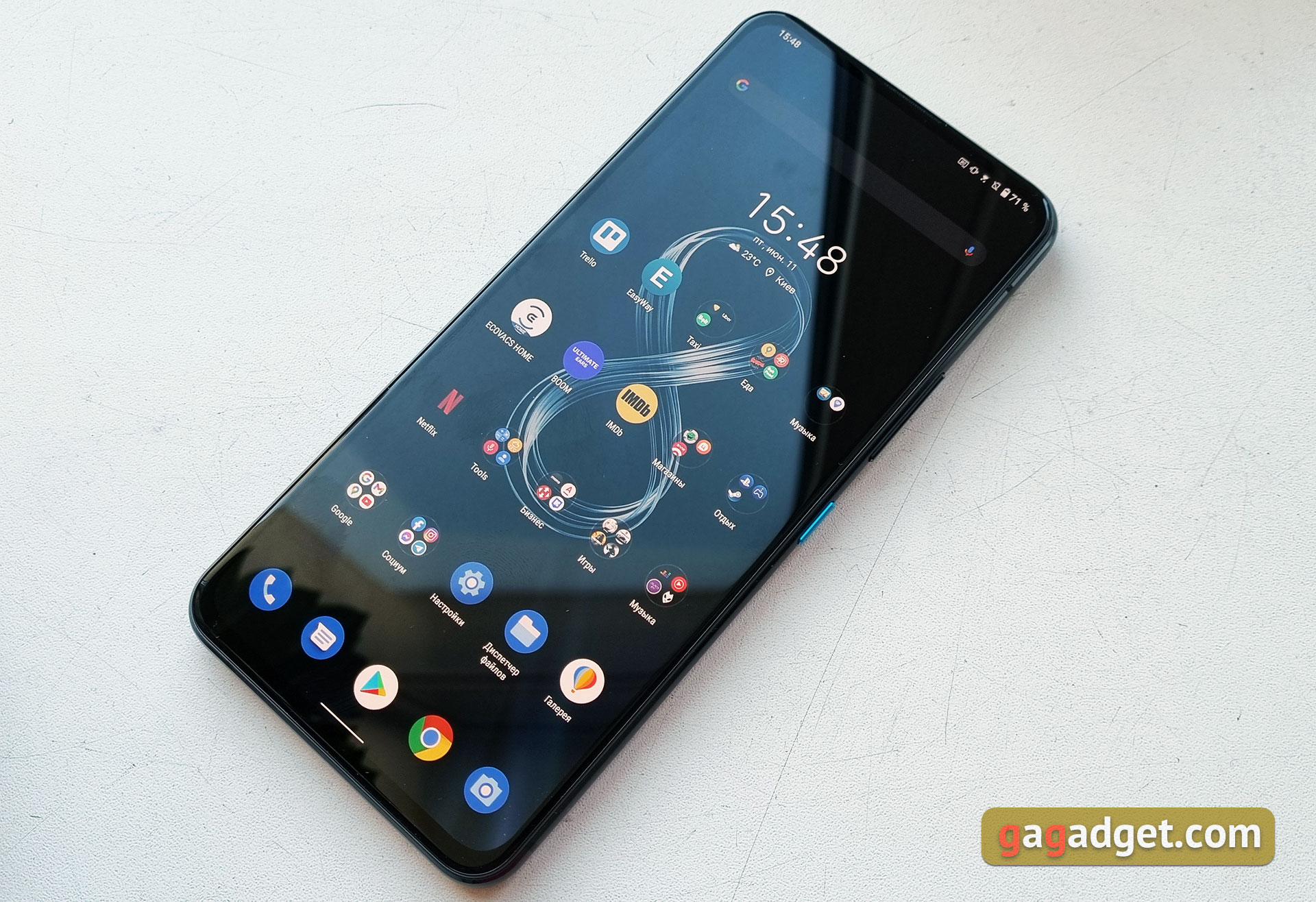
ASUS ZenFone 8 Flip has a 6.67-inch SuperAMOLED screen with FullHD+ resolution (2400x1080). The aspect ratio is 20:9, and the pixel density is about 395 ppi. The refresh rate is 90 Hz, there is support for HDR10+, and the peak brightness is claimed to be 1000 cd/m2. The stated characteristics are very good, although in this price category there are screens with a frequency of 120 Hz. In particular, the compact ASUS ZenFone 8. In the settings there is all the standard modern set: a dark theme, adjusting the scale of the interface elements, font, Always on Display, color modes Splendid (including manual adjustment of color temperature) and DC Dimming (elimination of flicker at low brightness). Although the function only works at 60 Hz refresh rate.
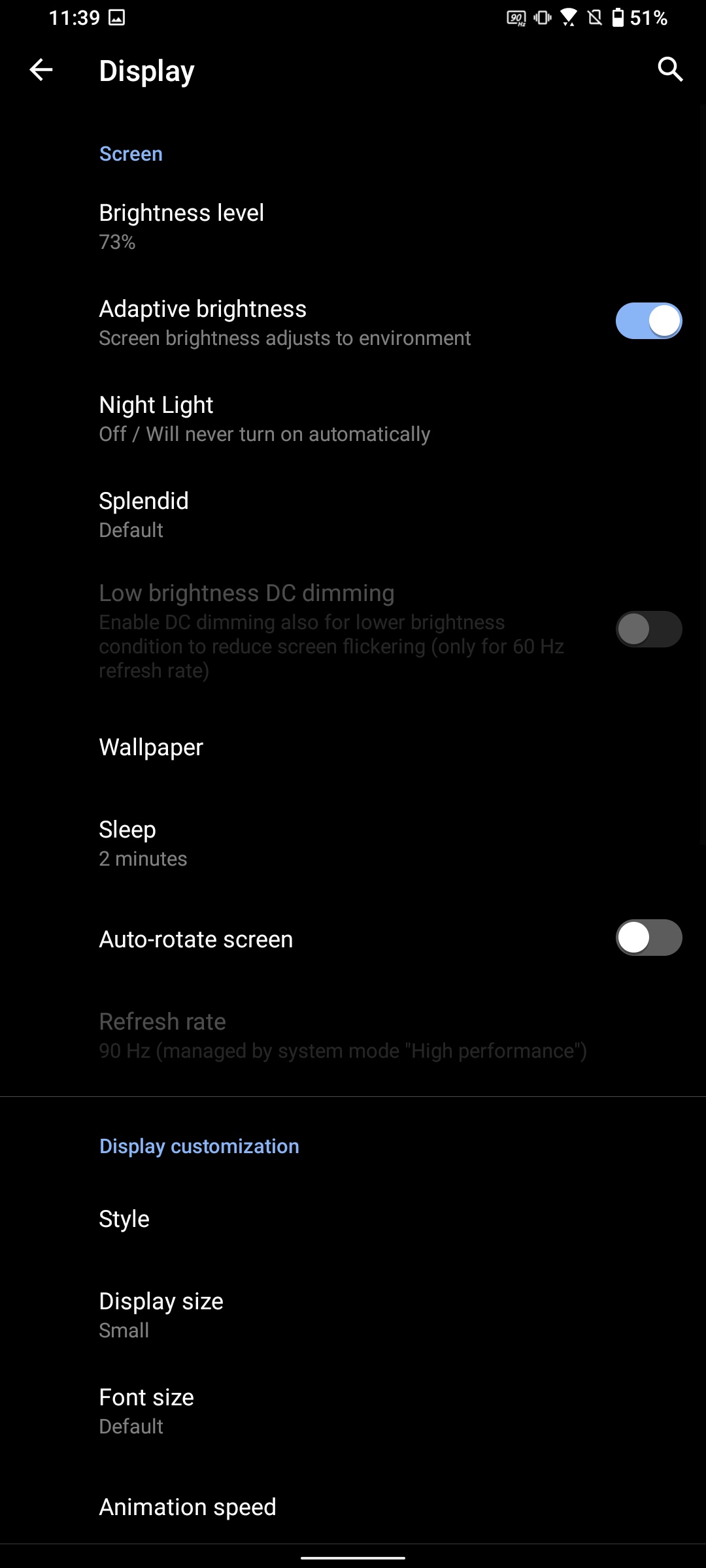
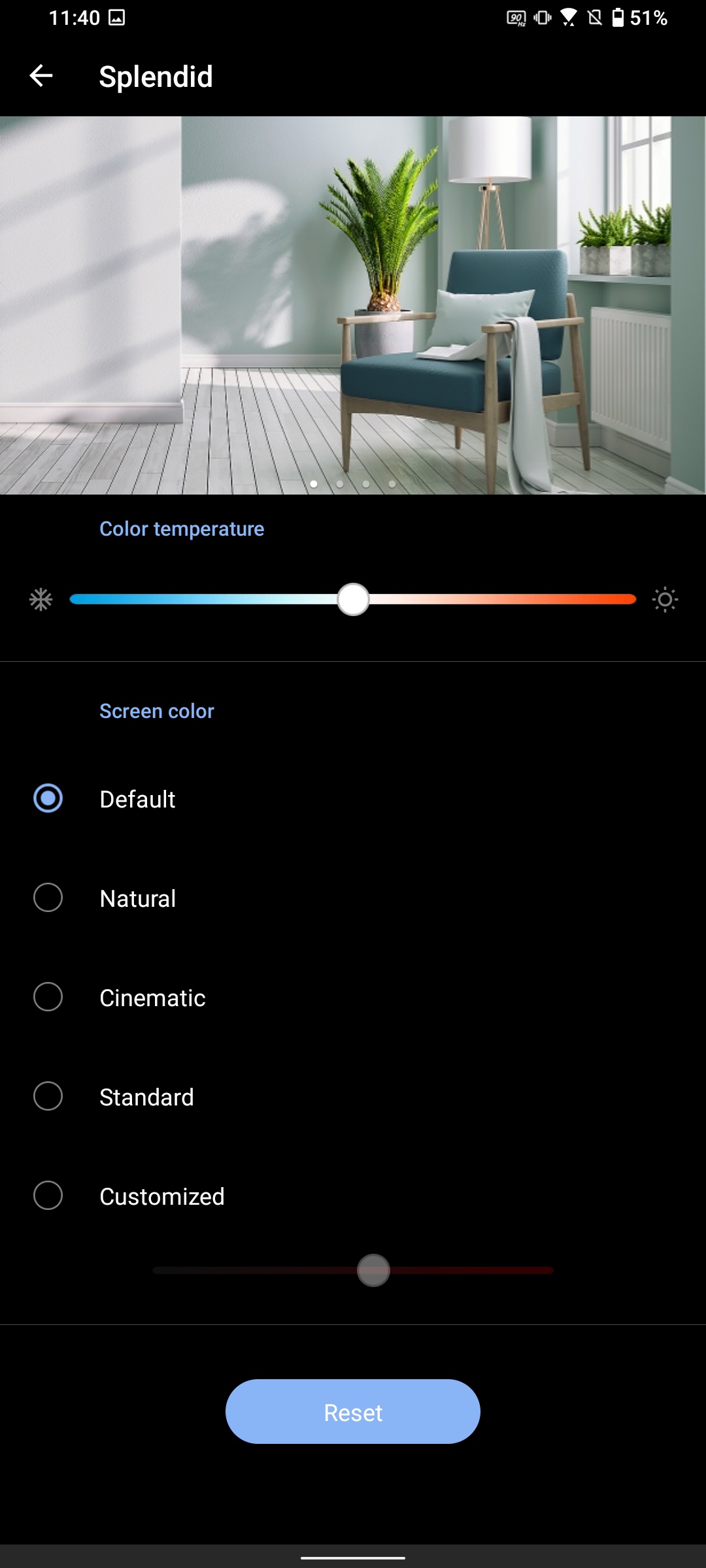
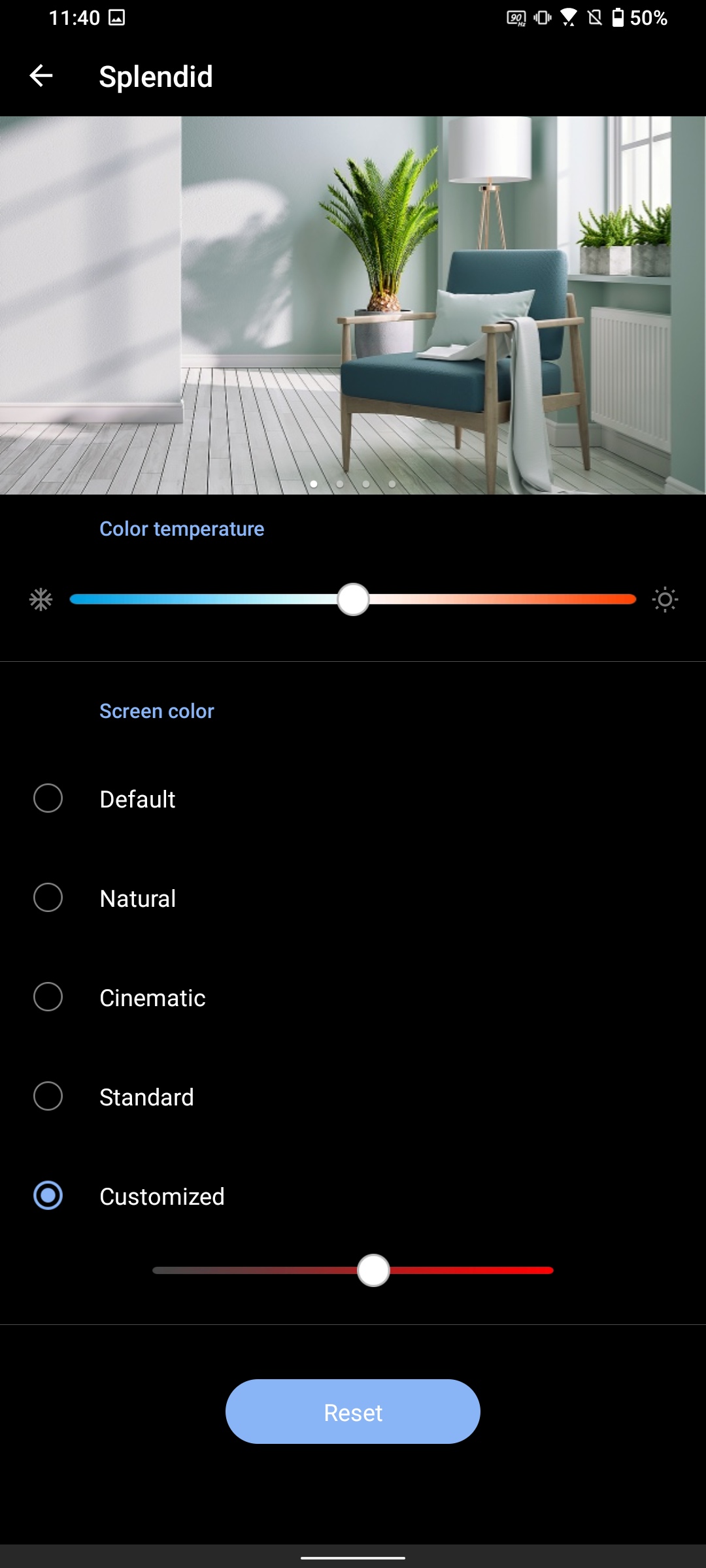
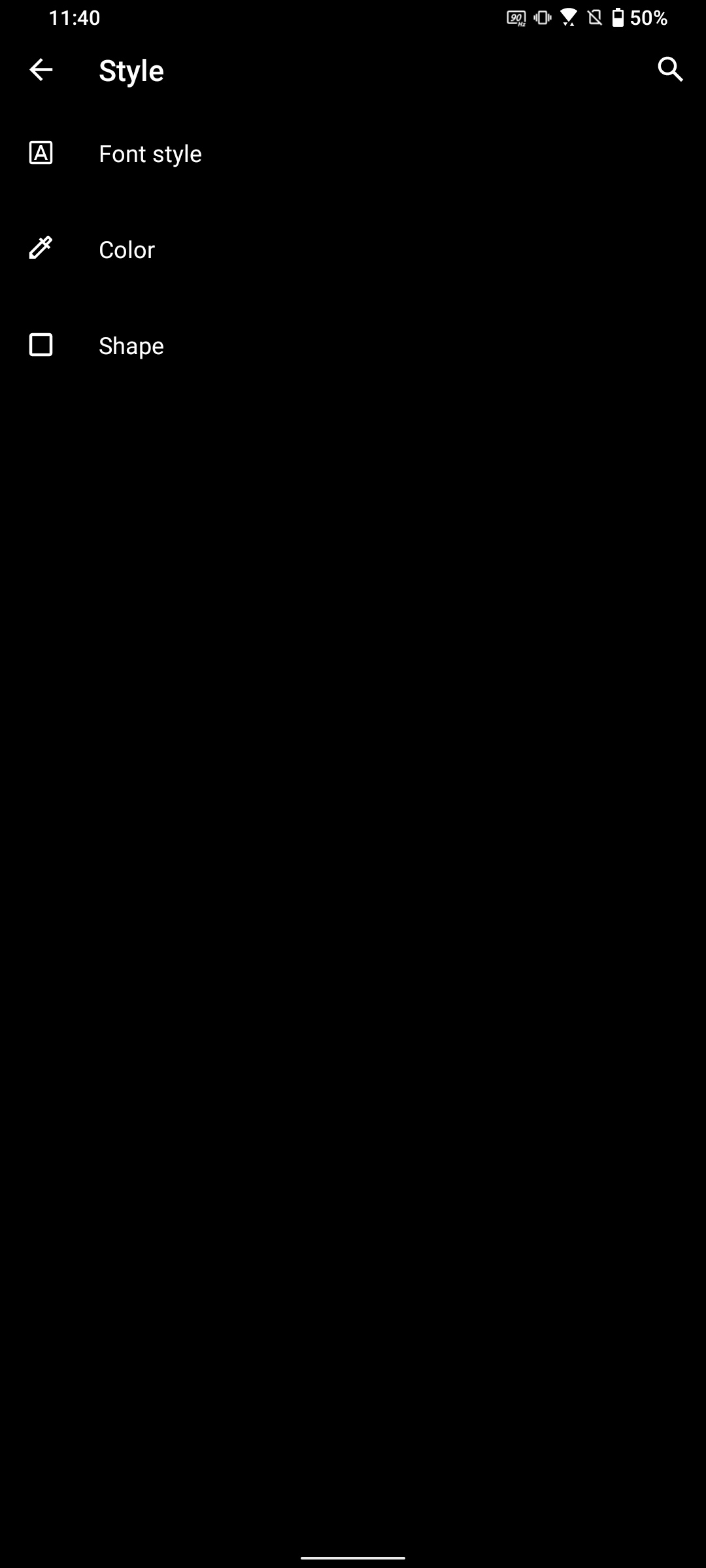
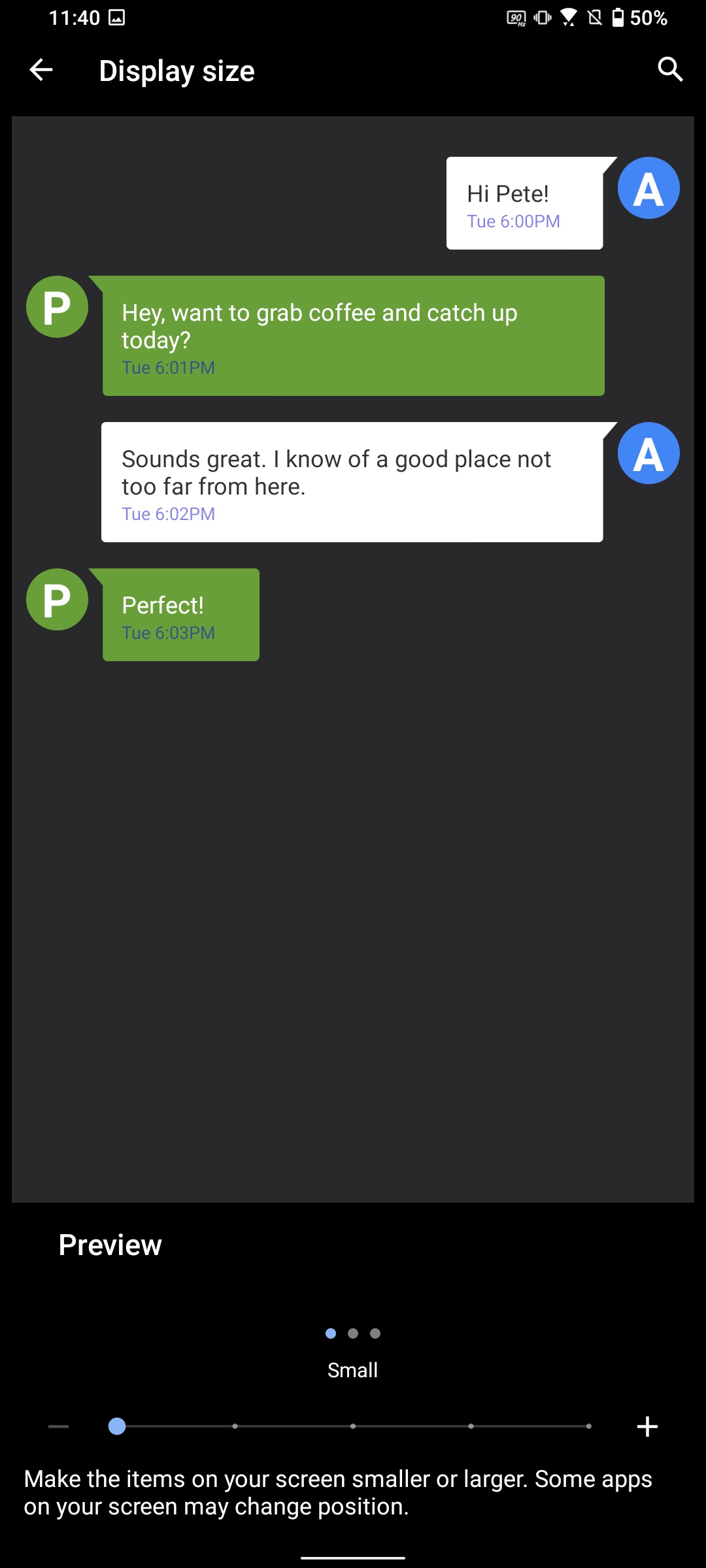
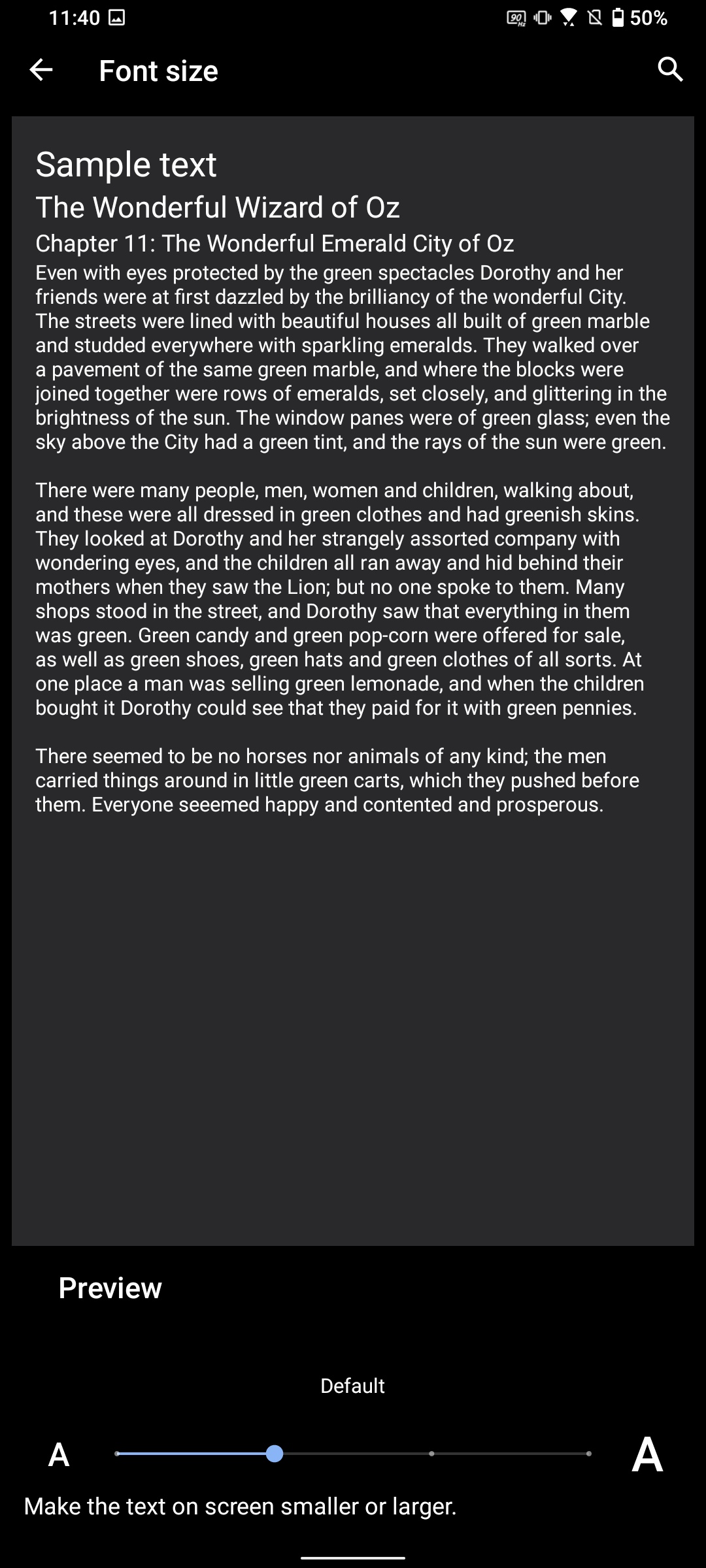
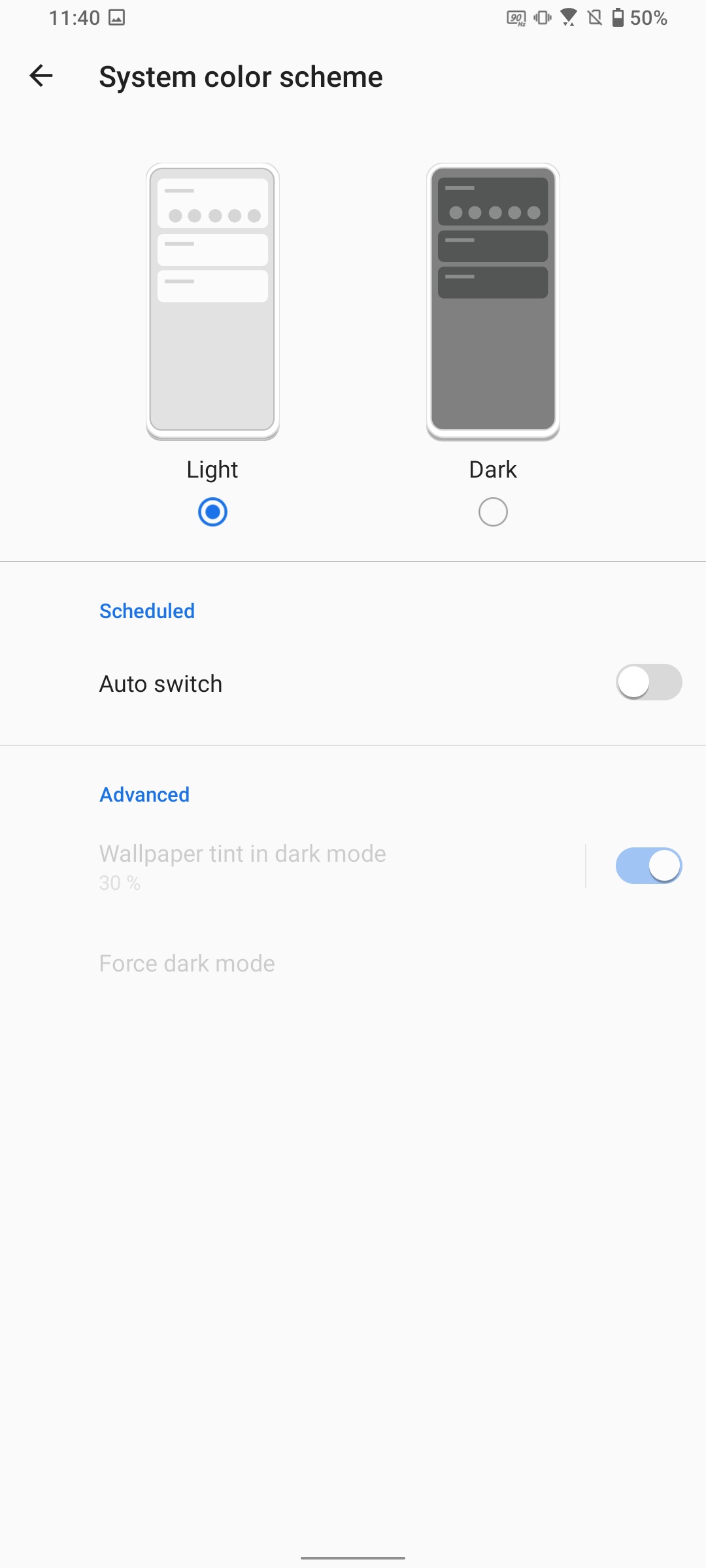
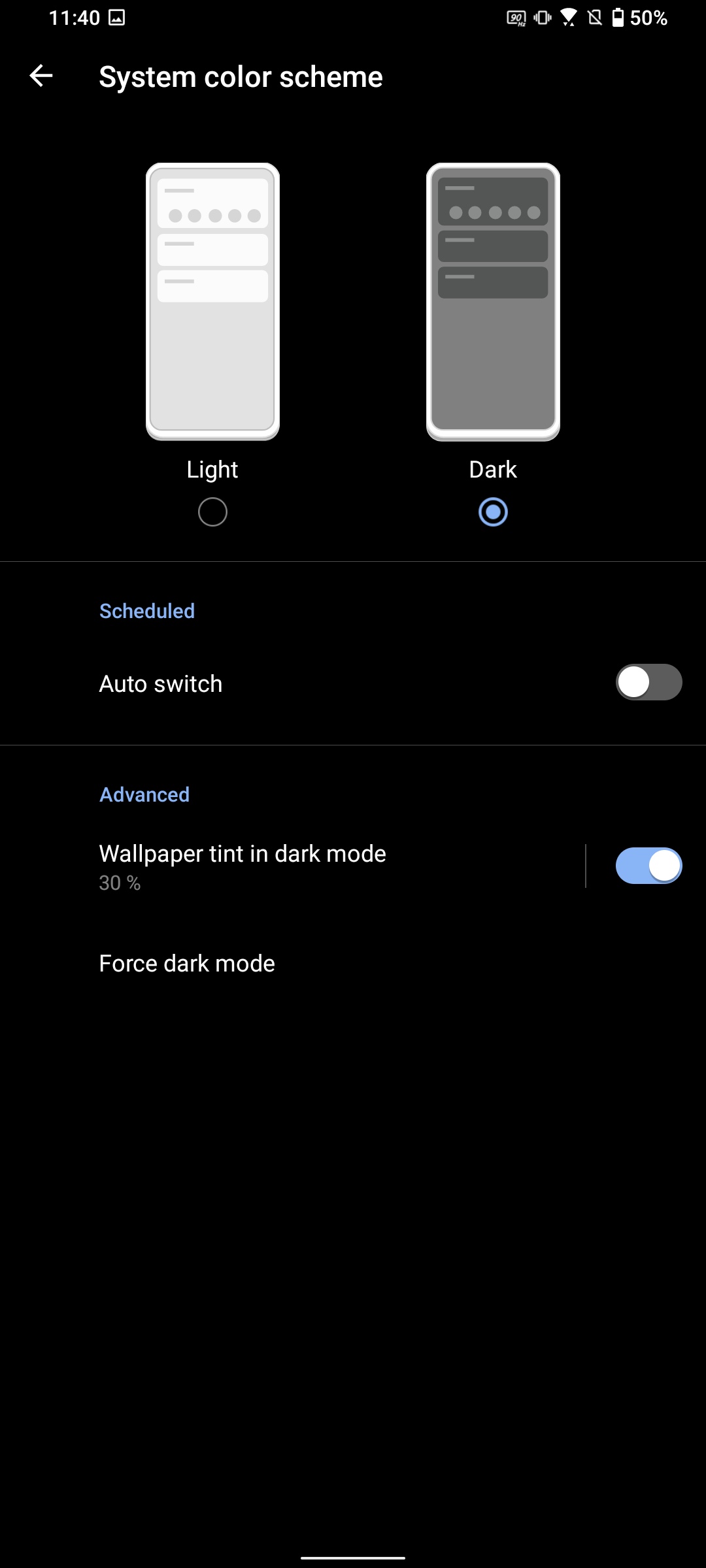
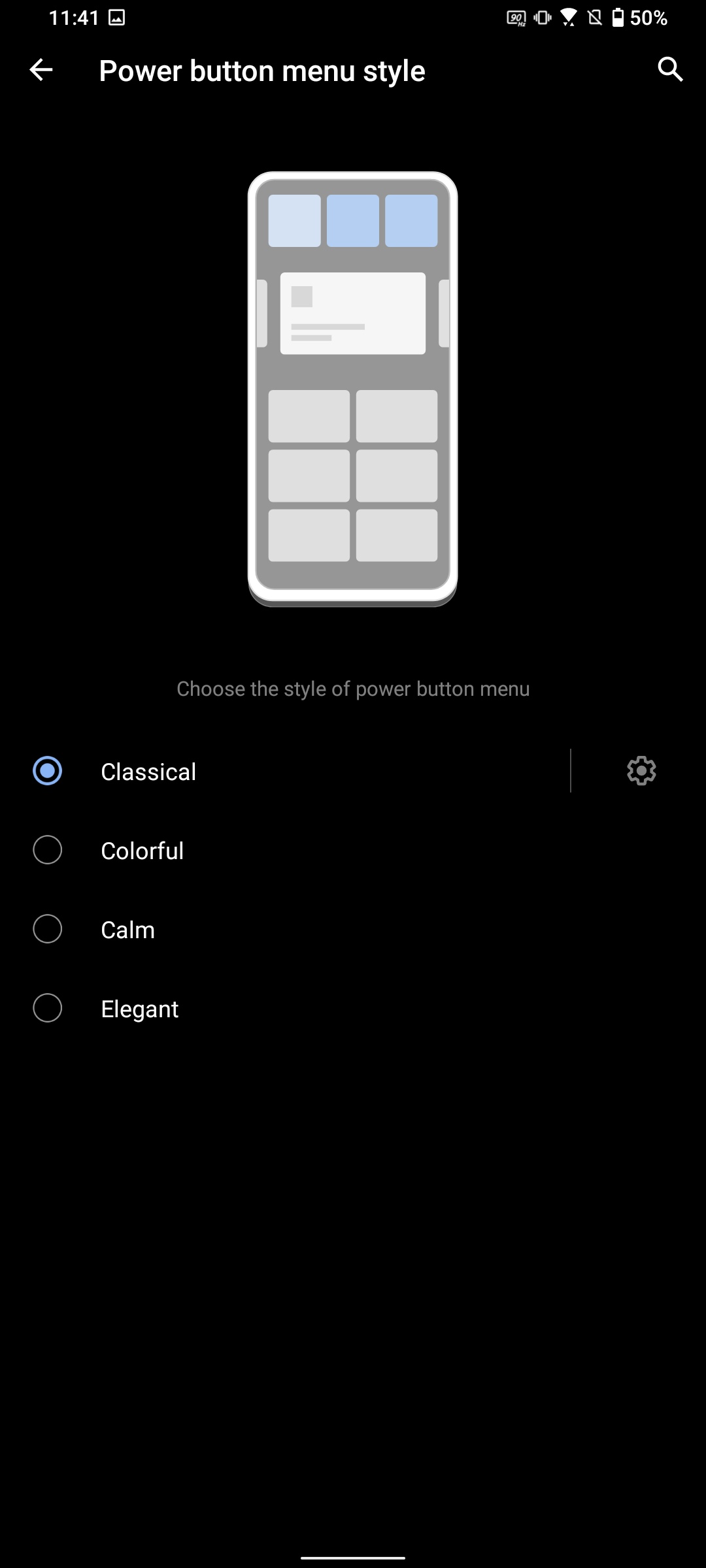
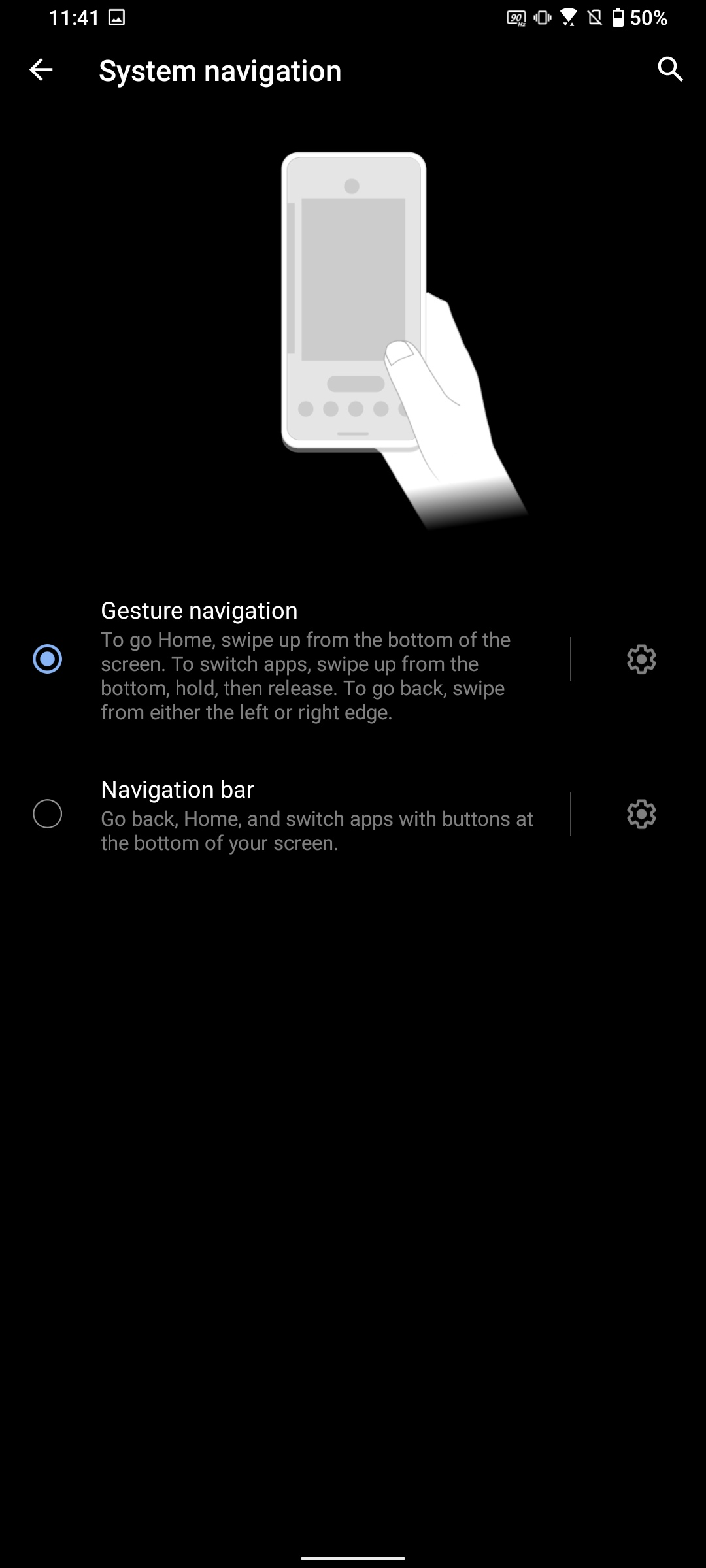
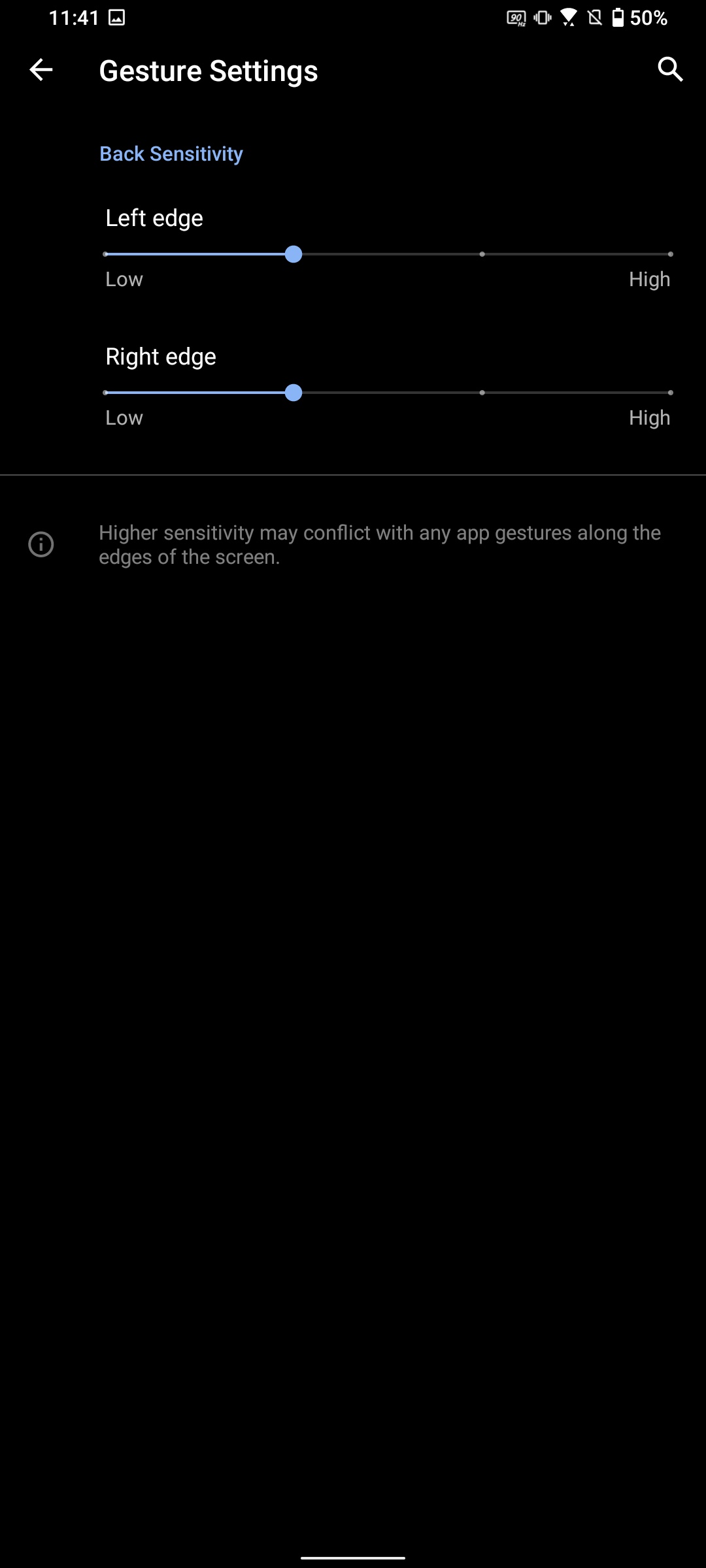
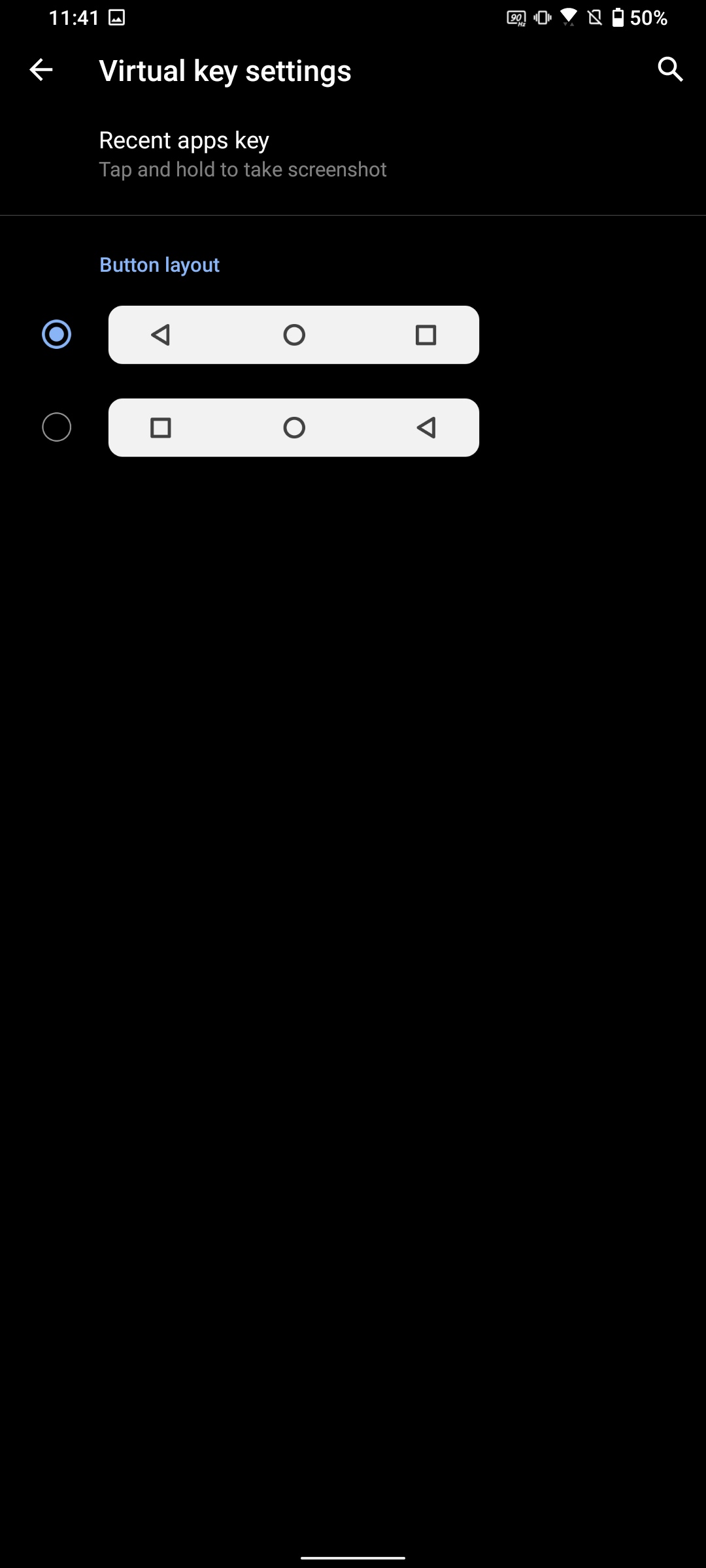
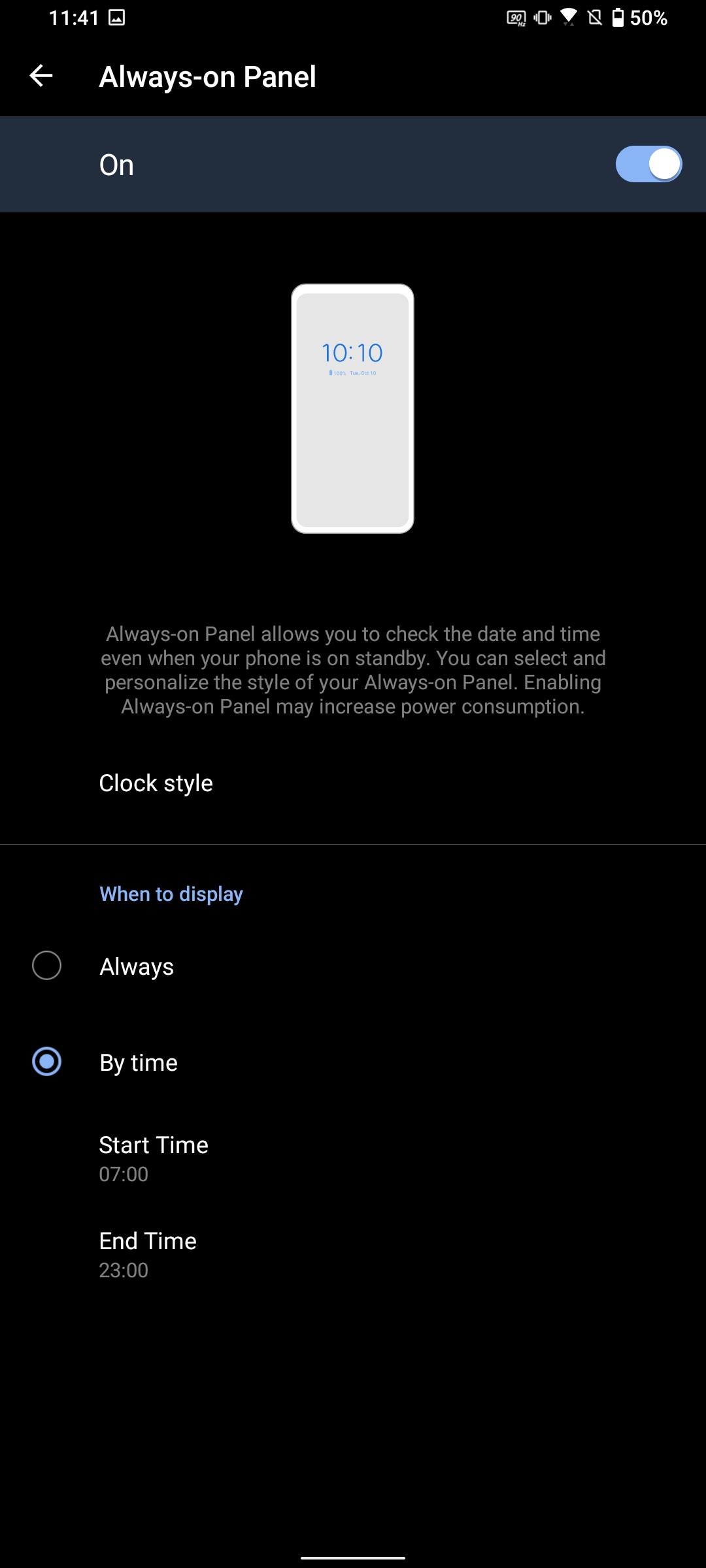
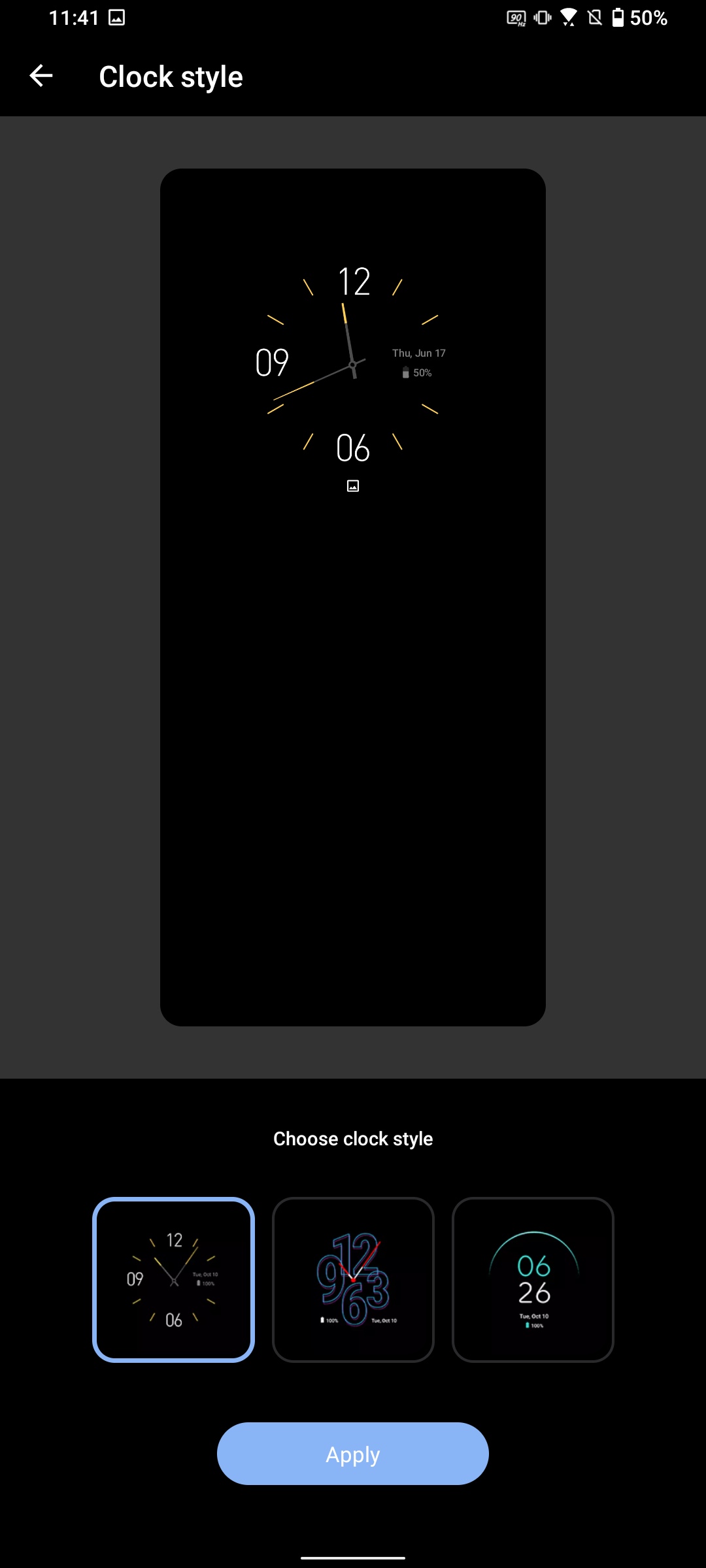

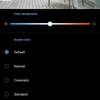
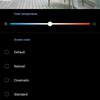




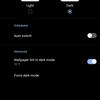
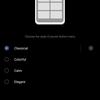
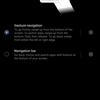


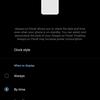
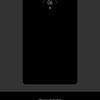
The Always on Display feature works habitually, but at the moment there are only three options of dials to choose from. And another oddity - some long-closed applications remain hanging on the off screen as notifications.
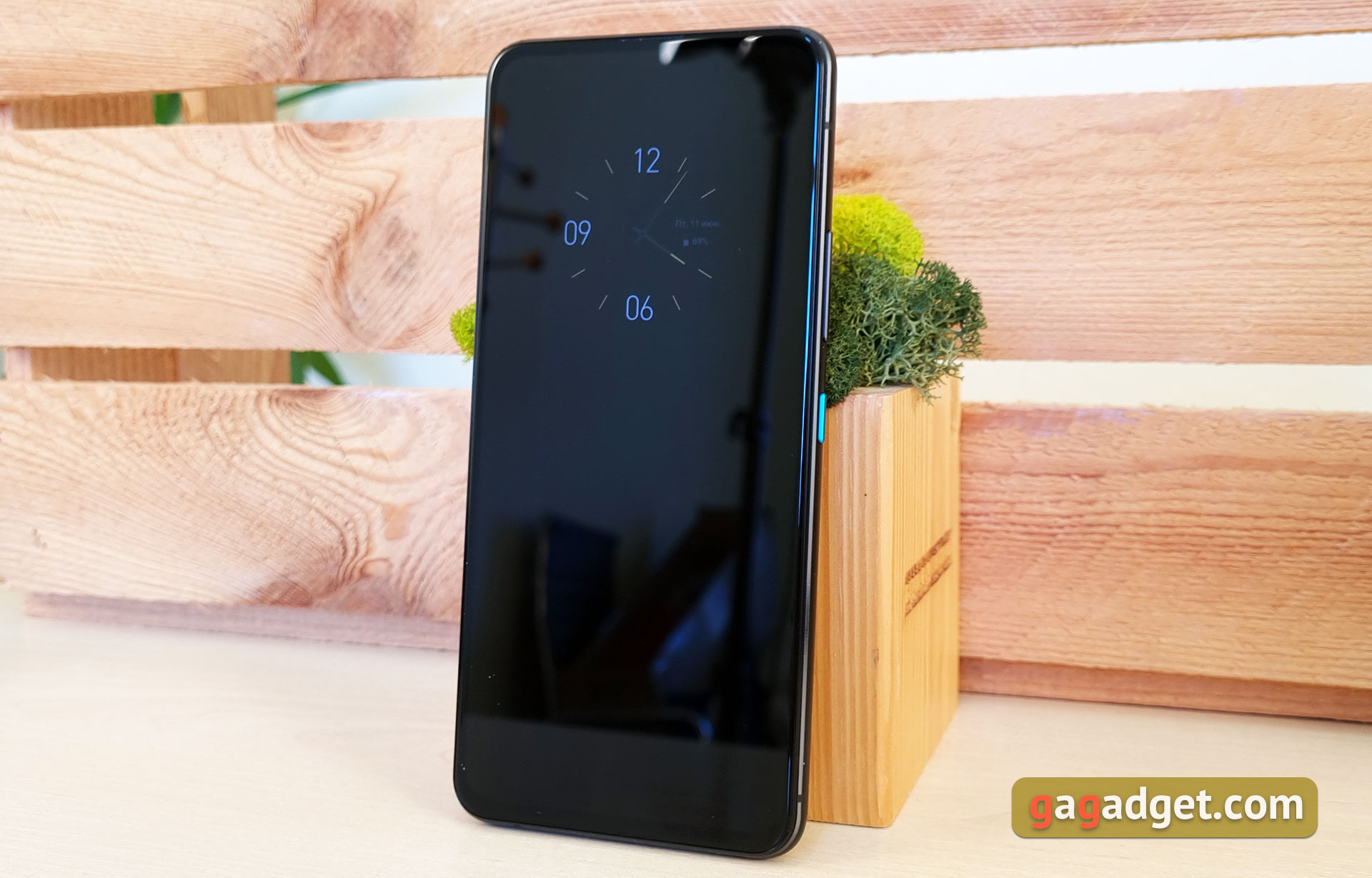
With a reserve of brightness and a picture in the screen everything is fine. In the sun it does not glare, the colors are rich, and the viewing angles are maximum. The absence of any cutouts for the front camera and the refresh rate of 90 Hz is very pleasing. Yes, it is not 120 Hz, but the lists, news feeds and the whole interface look and feel very smooth. In "Natural" mode with manual adjustment, the maximum brightness was 492.471 cd/m². The color gamut is much wider than sRGB, there is a noticeable overabundance of blue, as a result of which the screen goes into cold shades.
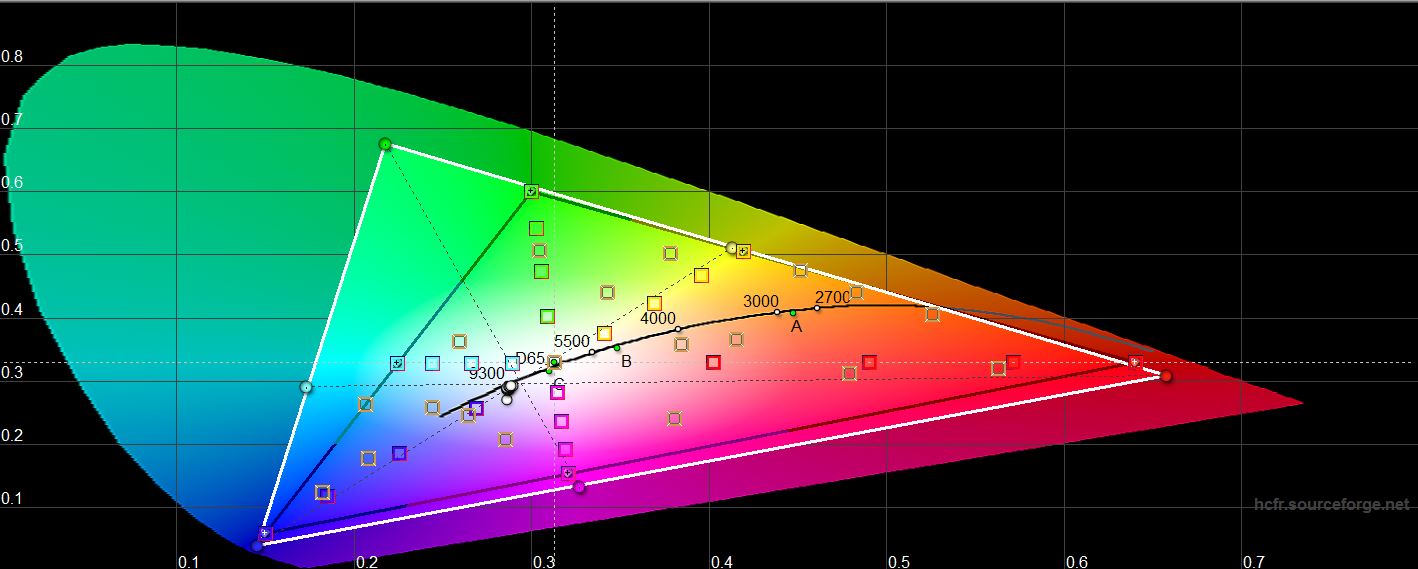
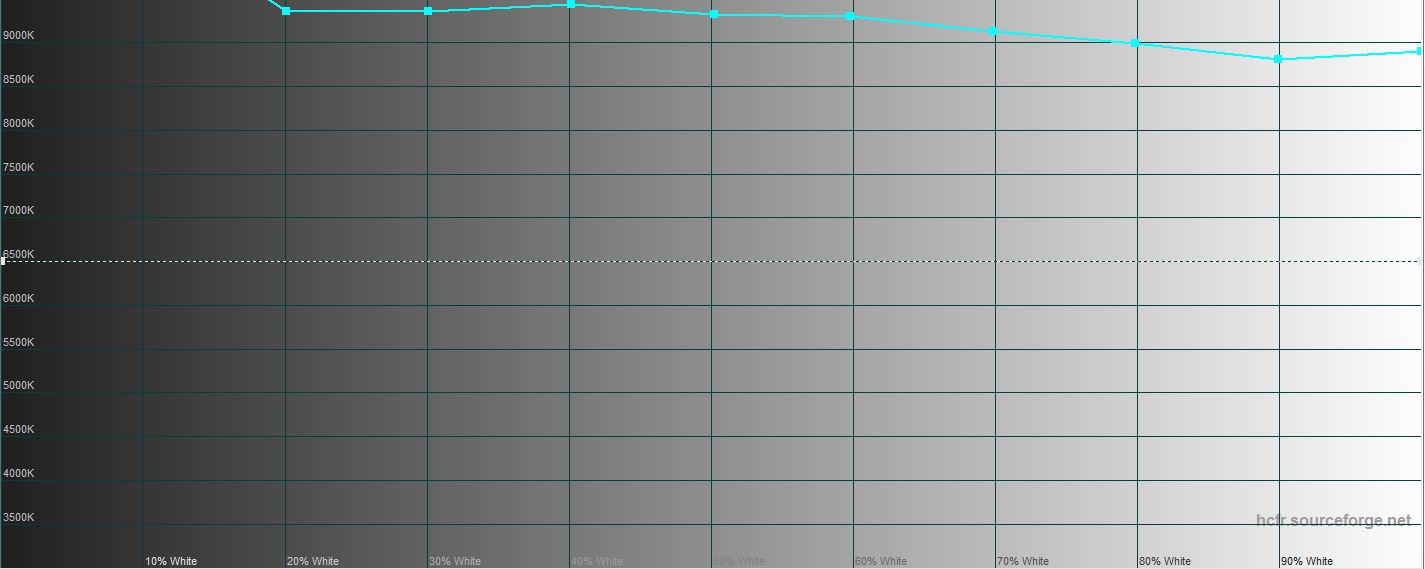
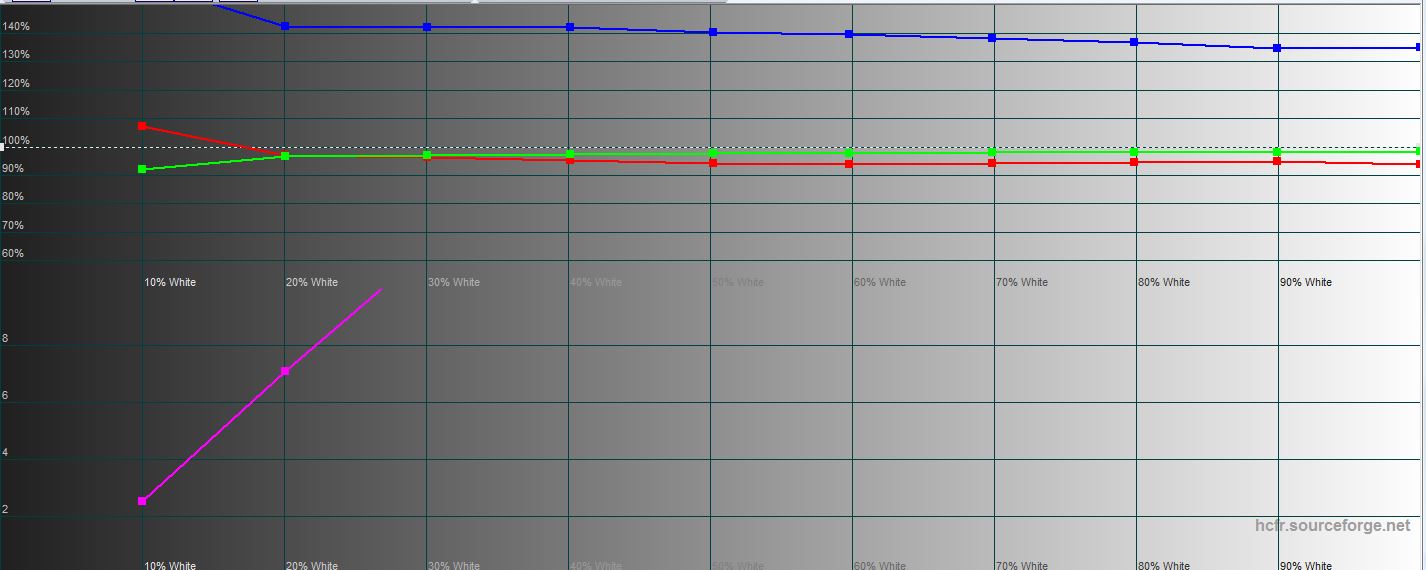
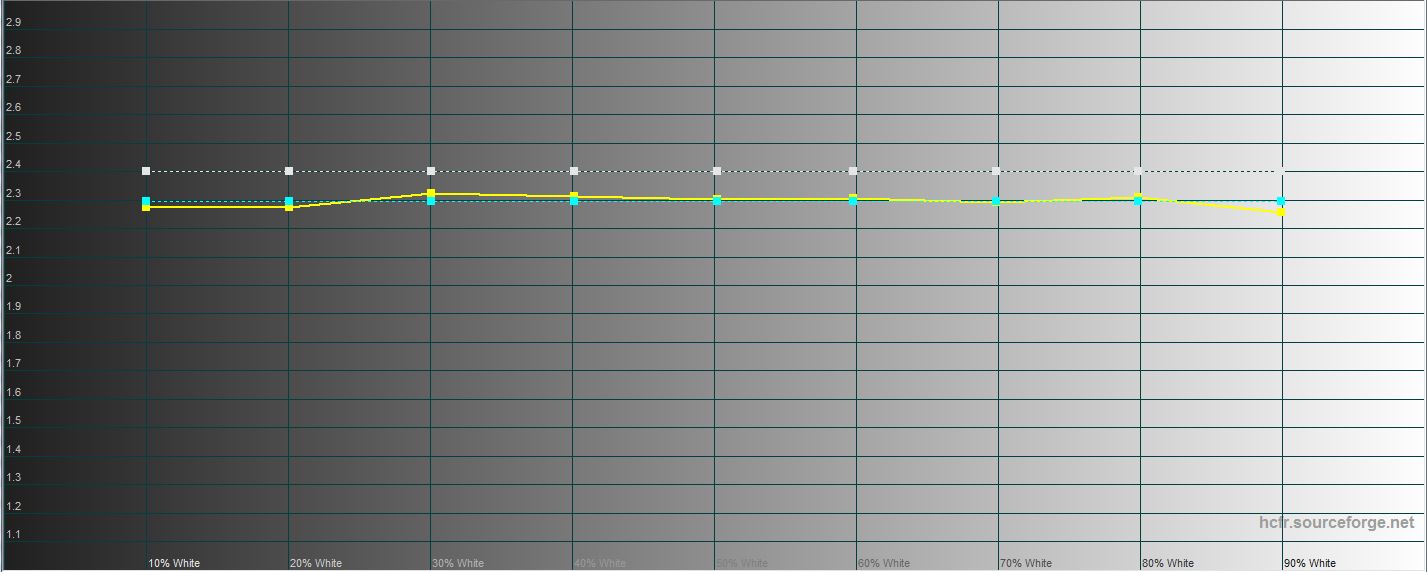
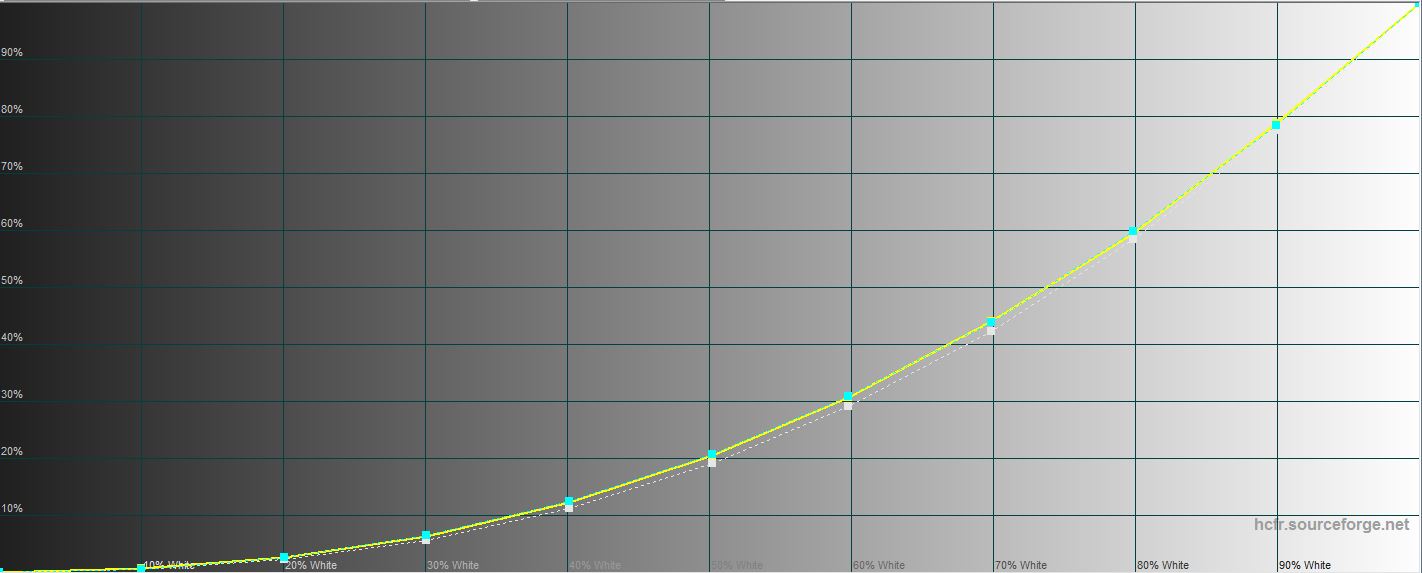
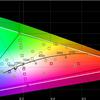




On the "Cinematic" mode the maximum brightness is slightly lower: 477,142 cd/m2. At the same time, the color gamut is also wider than sRGB, the skew towards cold shades is less. Color rendition is closer to reference indicators:
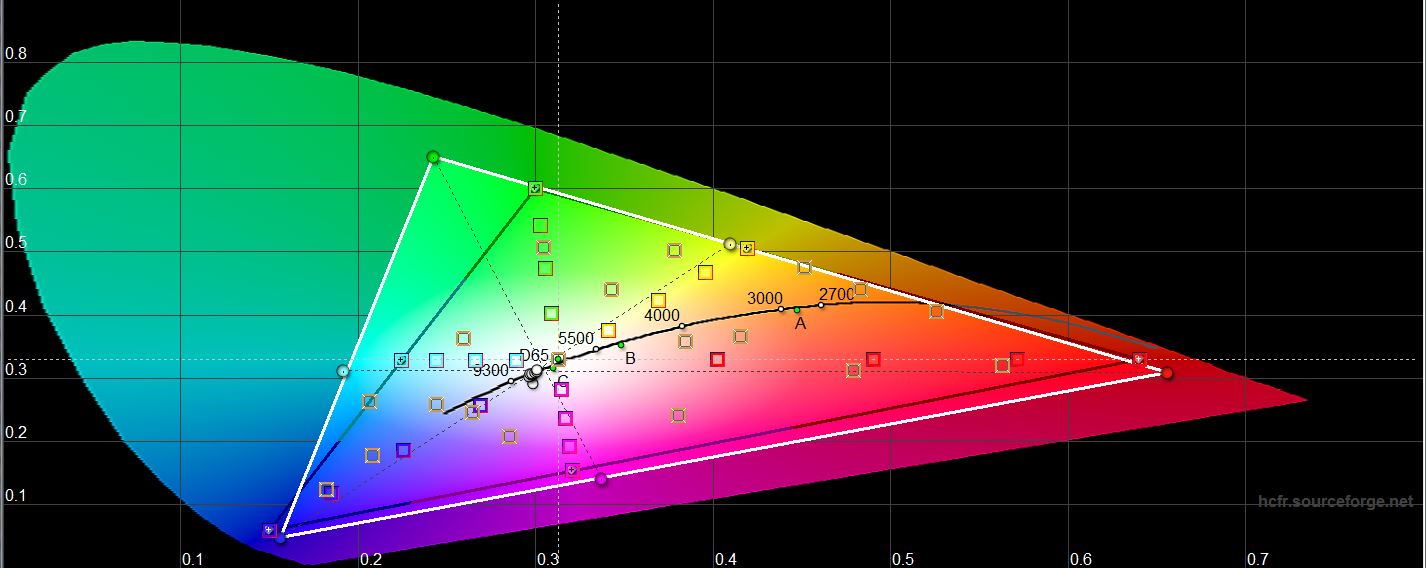
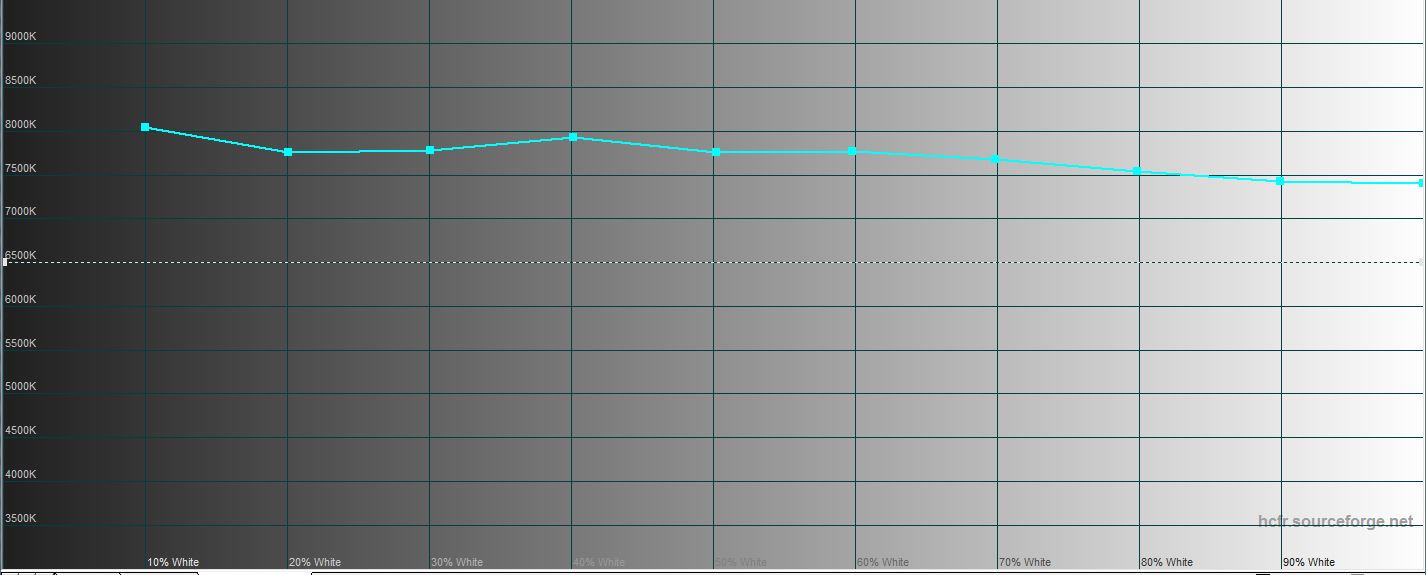
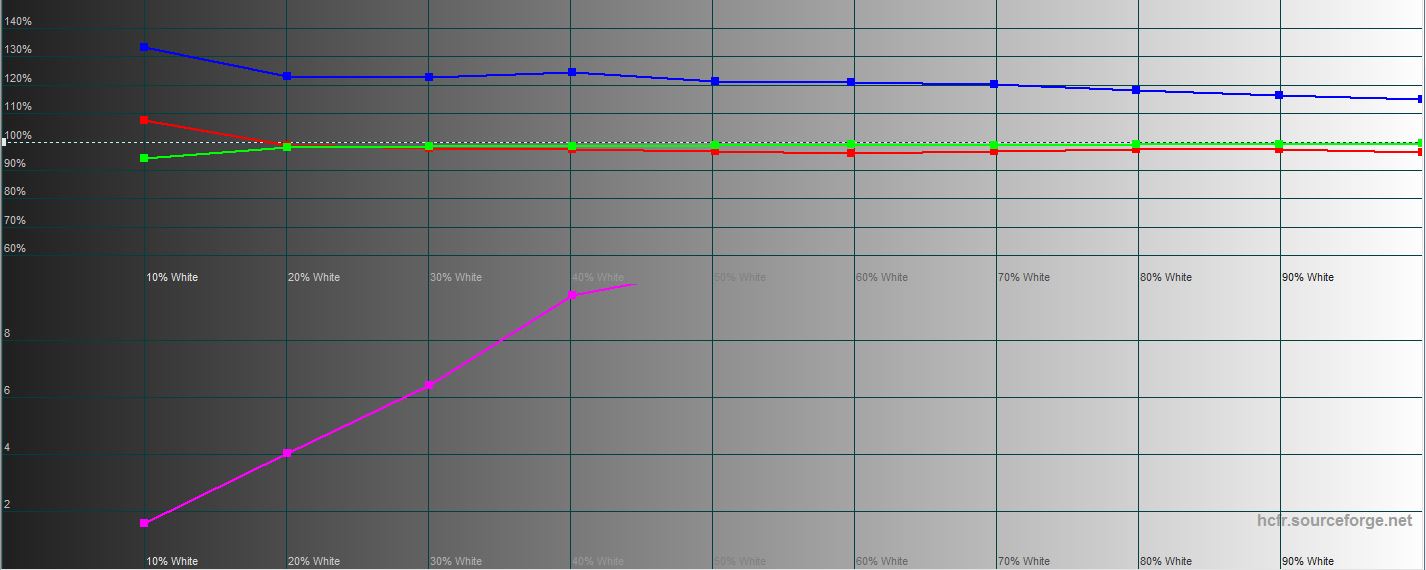
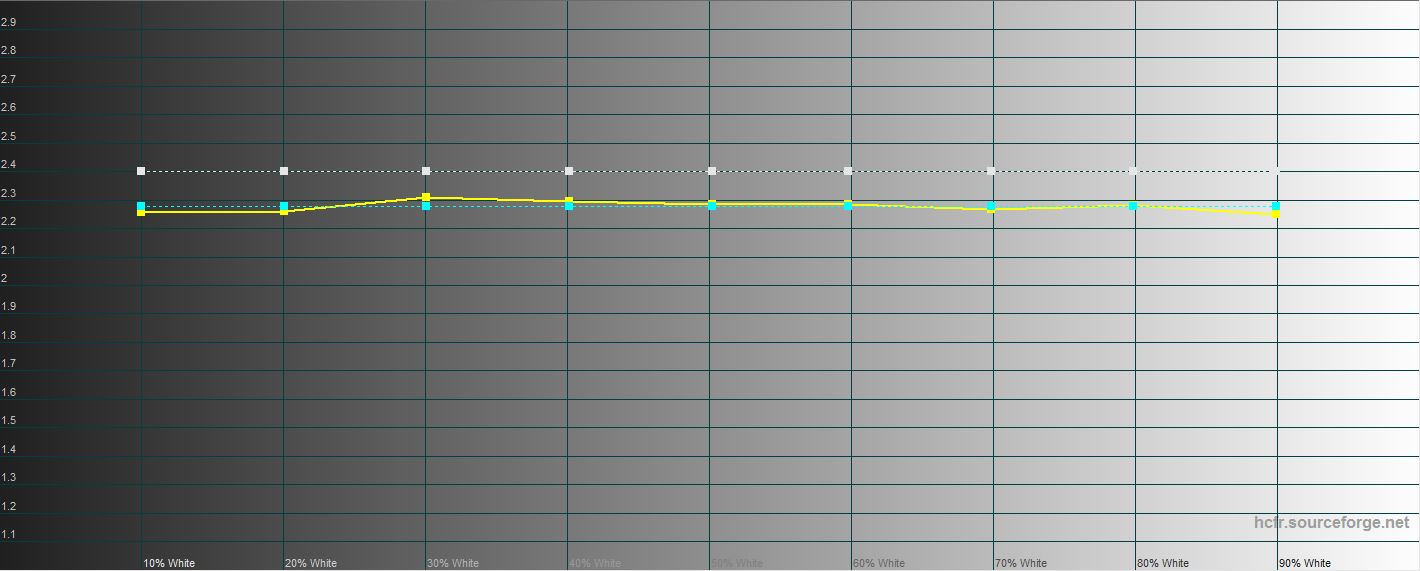
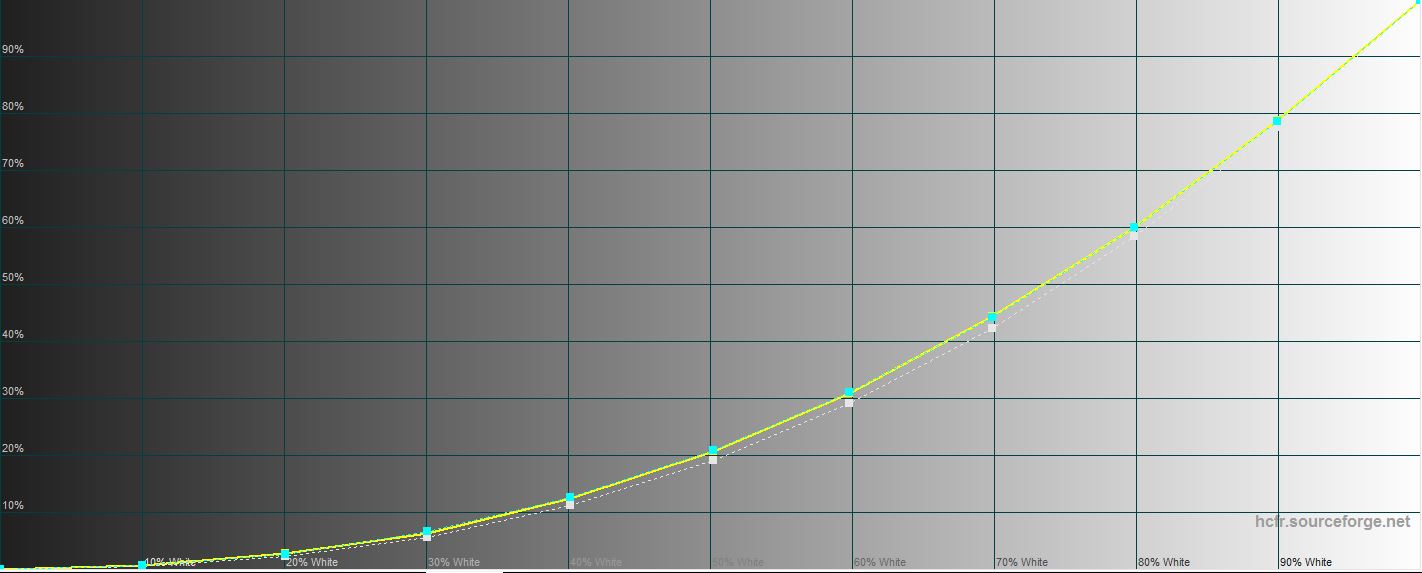
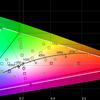
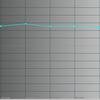



In "Normal" mode, the color gamut is close to the more familiar sRGB color space and the rest of the indicators are closer to the reference values. While the maximum brightness with is analogous to "Cinema" mode: 477,558 cd/m2:
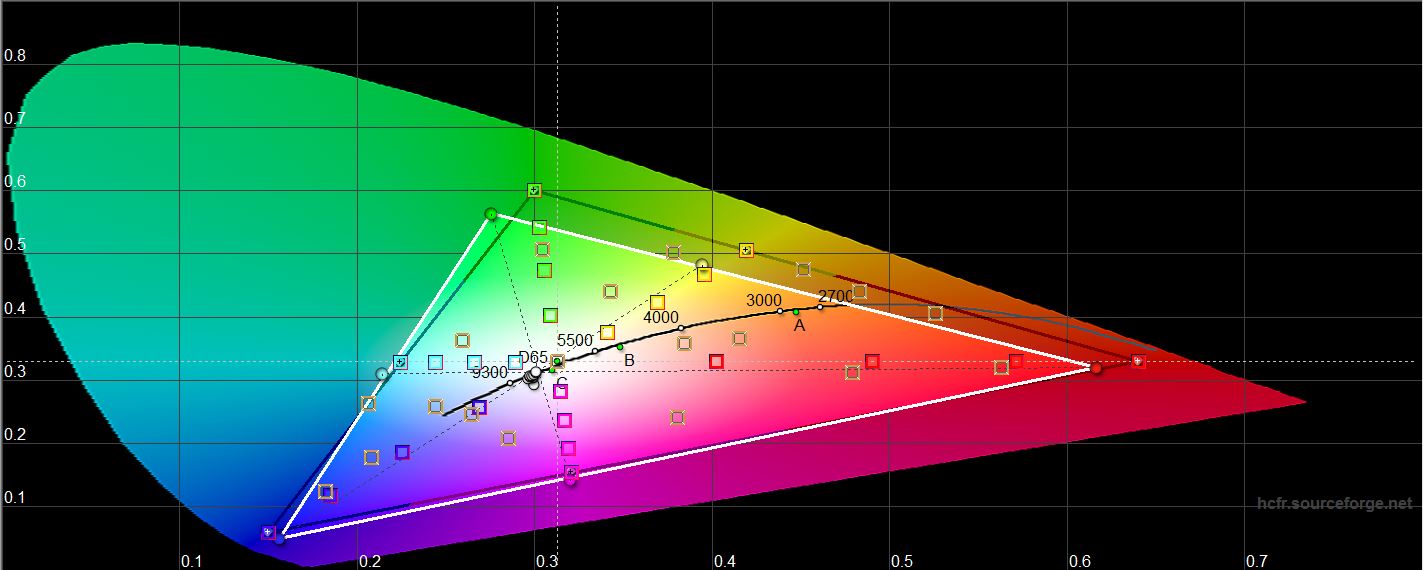
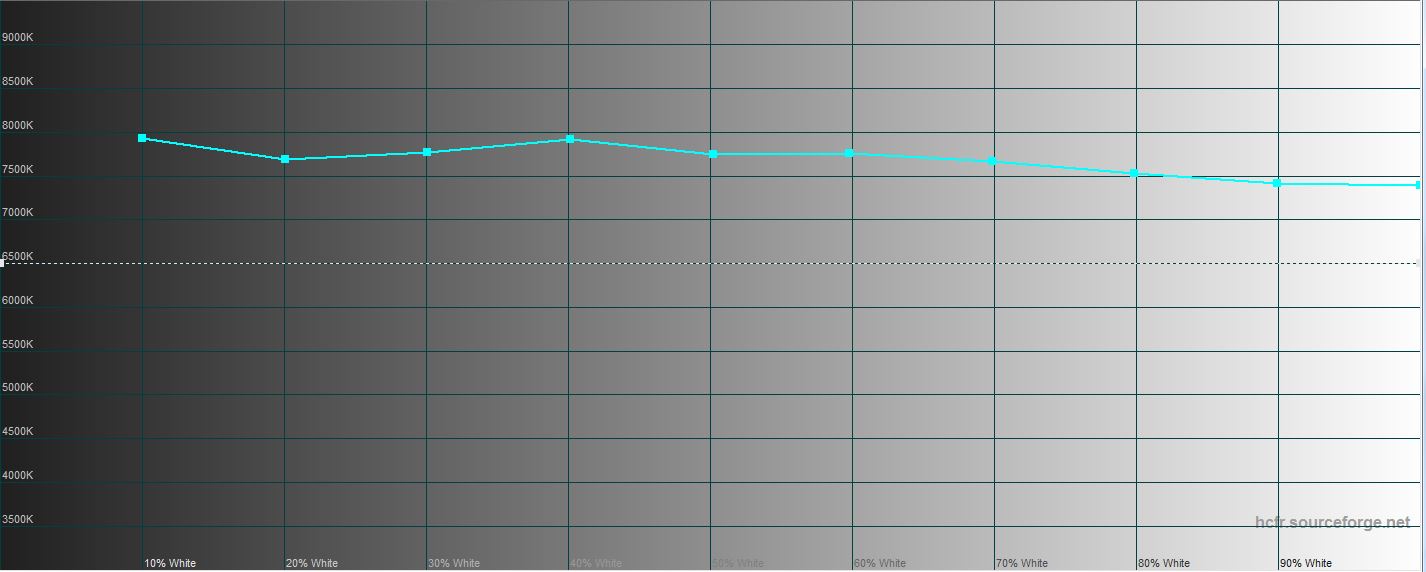
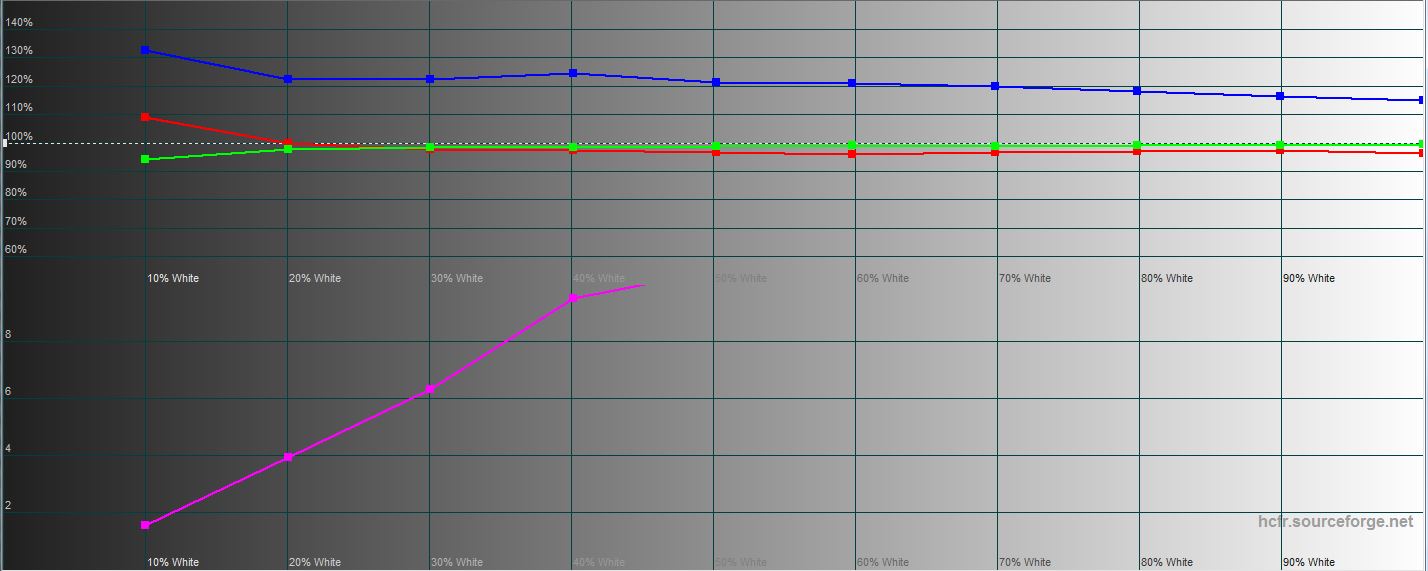
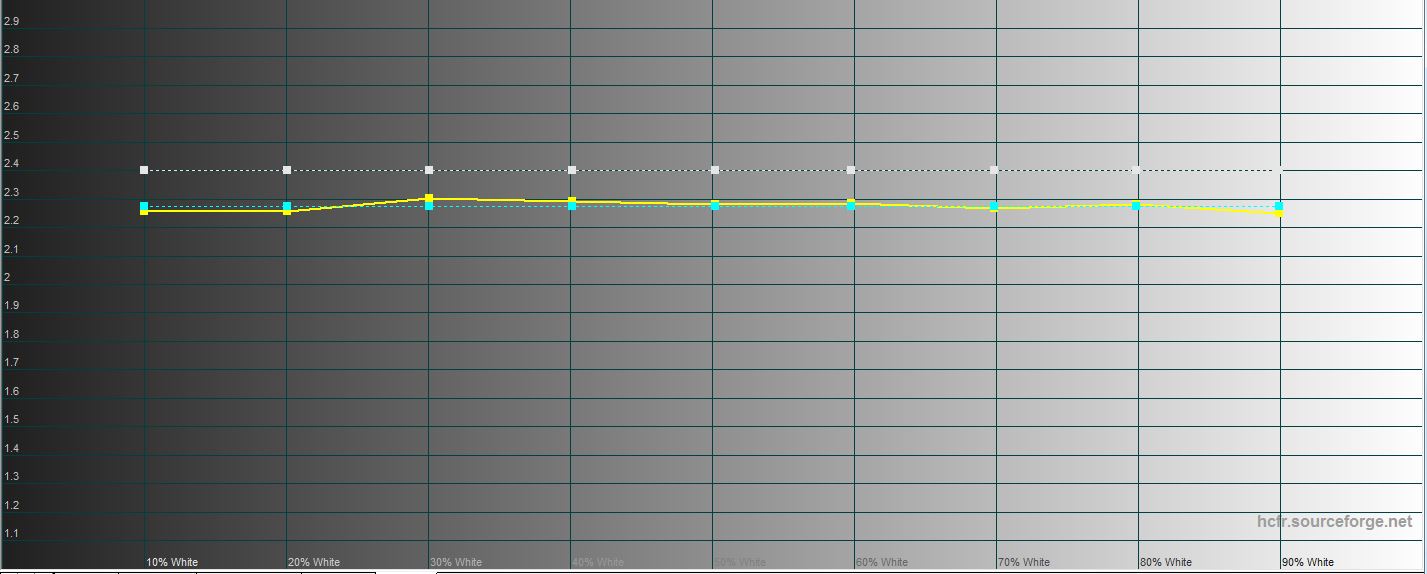
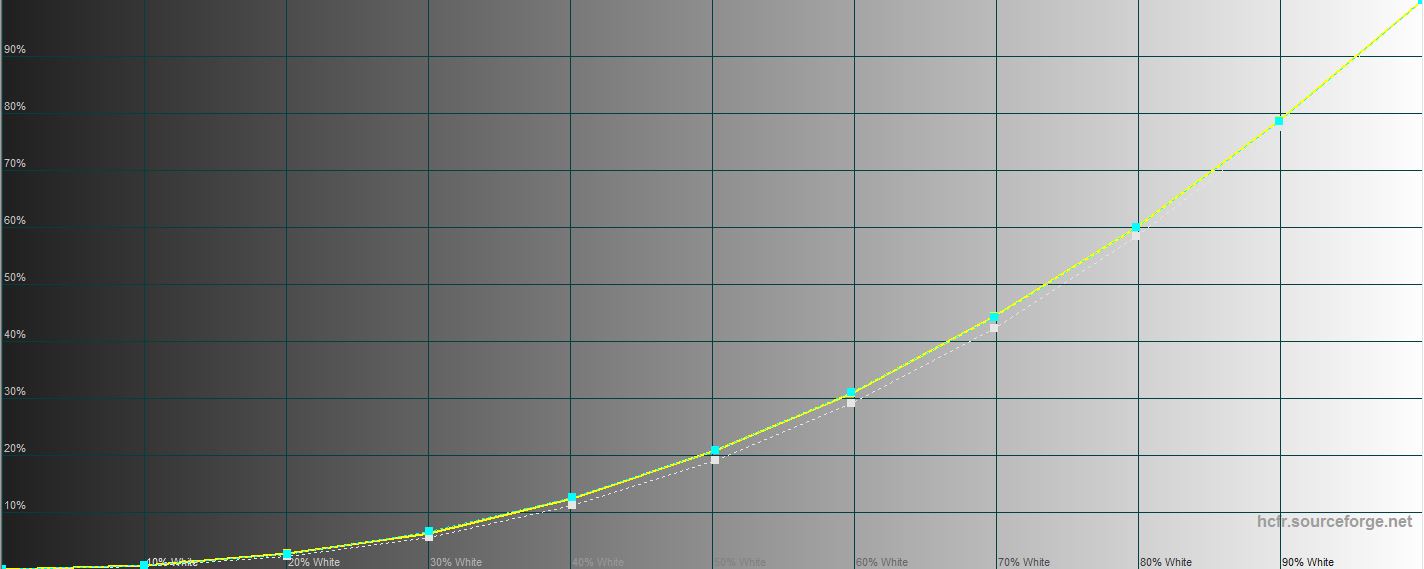
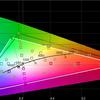




Comparison with other models:
| Device name | Brightness of white area, cd/m 2 |
Brightness of black area cd/m 2 |
Contrast |
|---|---|---|---|
| ASUS ZenFone 8 Flip | 492.471 | 0 | ∞ |
| Xiaomi Mi 11 Ultra | 498.377 | 0 | ∞ |
| ASUS ROG Phone 5 | 482.347 | 0 | ∞ |
| Samsung Galaxy S21 + | 437.906 | 0 | ∞ |
| Samsung Galaxy S21 | 432.854 | 0 | ∞ |
| Samsung Galaxy S20 Ultra | 408.388 | 0 | ∞ |
| Sony Xperia 1 | 394.97 | 0 | ∞ |
| Huawei P30 Pro | 447.247 | 0 | ∞ |
| Samsung Galaxy S10 | 378.72 | 0 | ∞ |
How to Unlock?
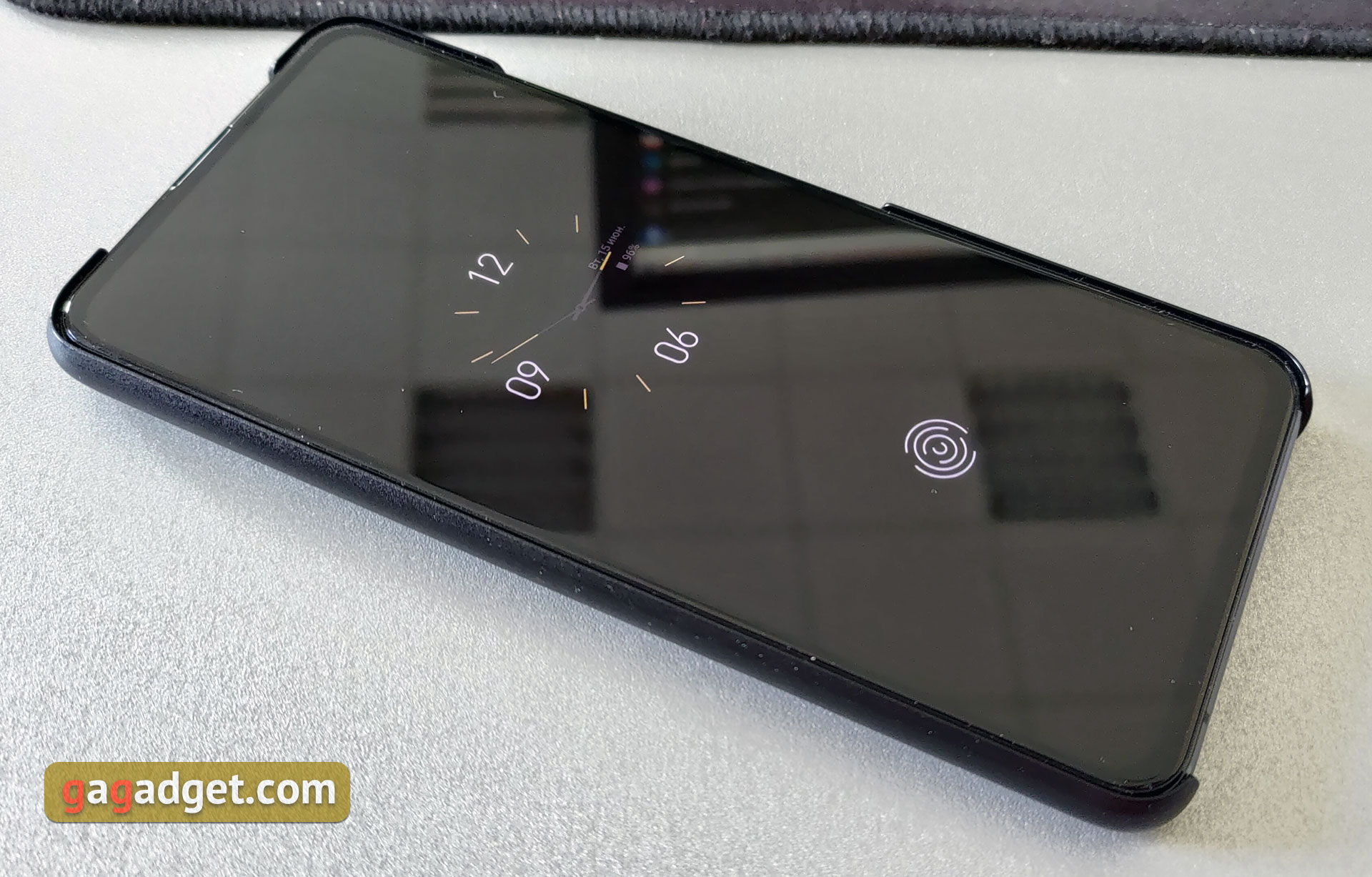
ASUS ZenFone 8 Flip has an optical fingerprint scanner under the screen. It works quickly and accurately, which is generally inherent in flagship smartphones. There were no complaints about its work during the use of the smartphone. Perhaps the speed of operation is a little lower than that of traditional capacitive scanners, but the difference is minimal. Unlocking by face is also there. But it is less effective. The recognition itself is fast. But to do this, the camera must still have time to turn 180°, which takes time. Besides, if you use a case with a camera lock, the procedure becomes even slower.
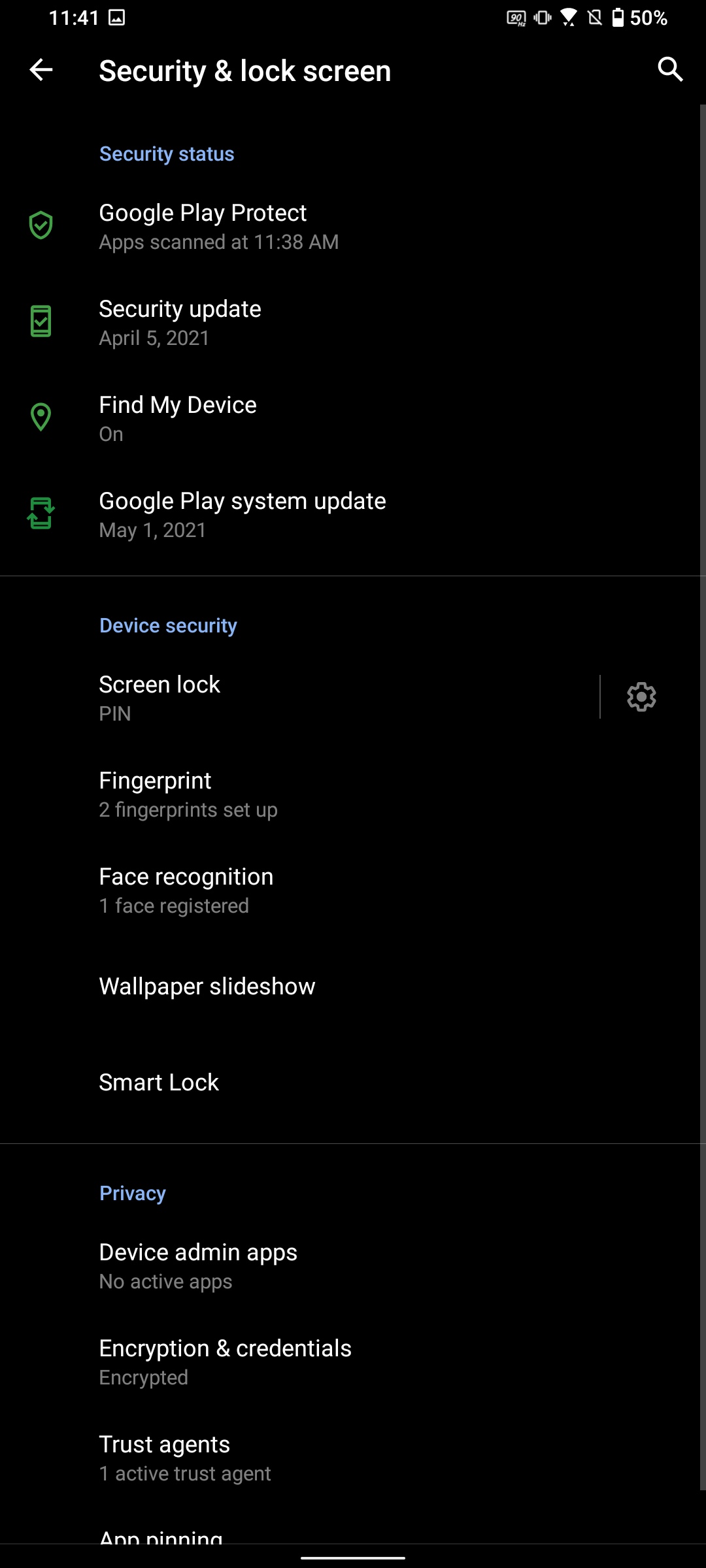
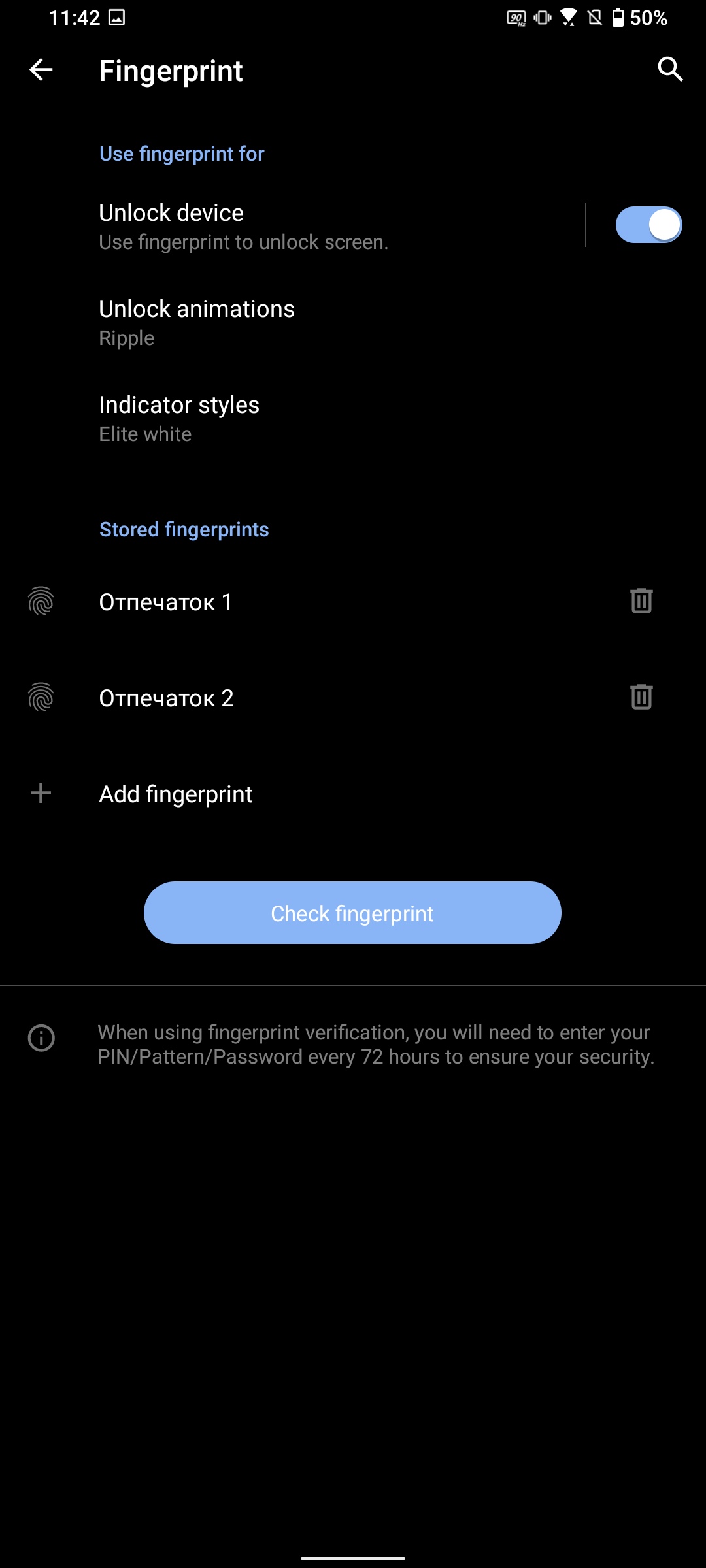

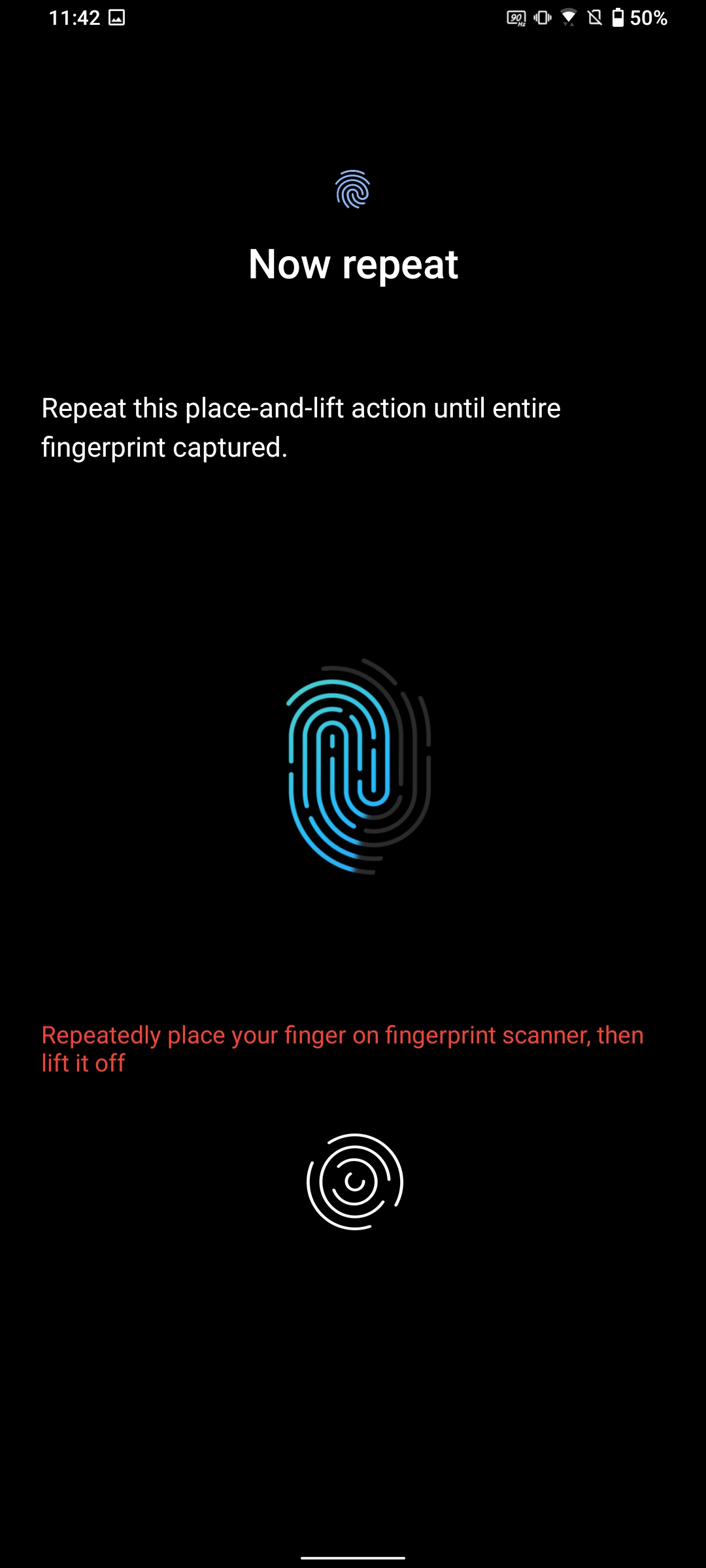
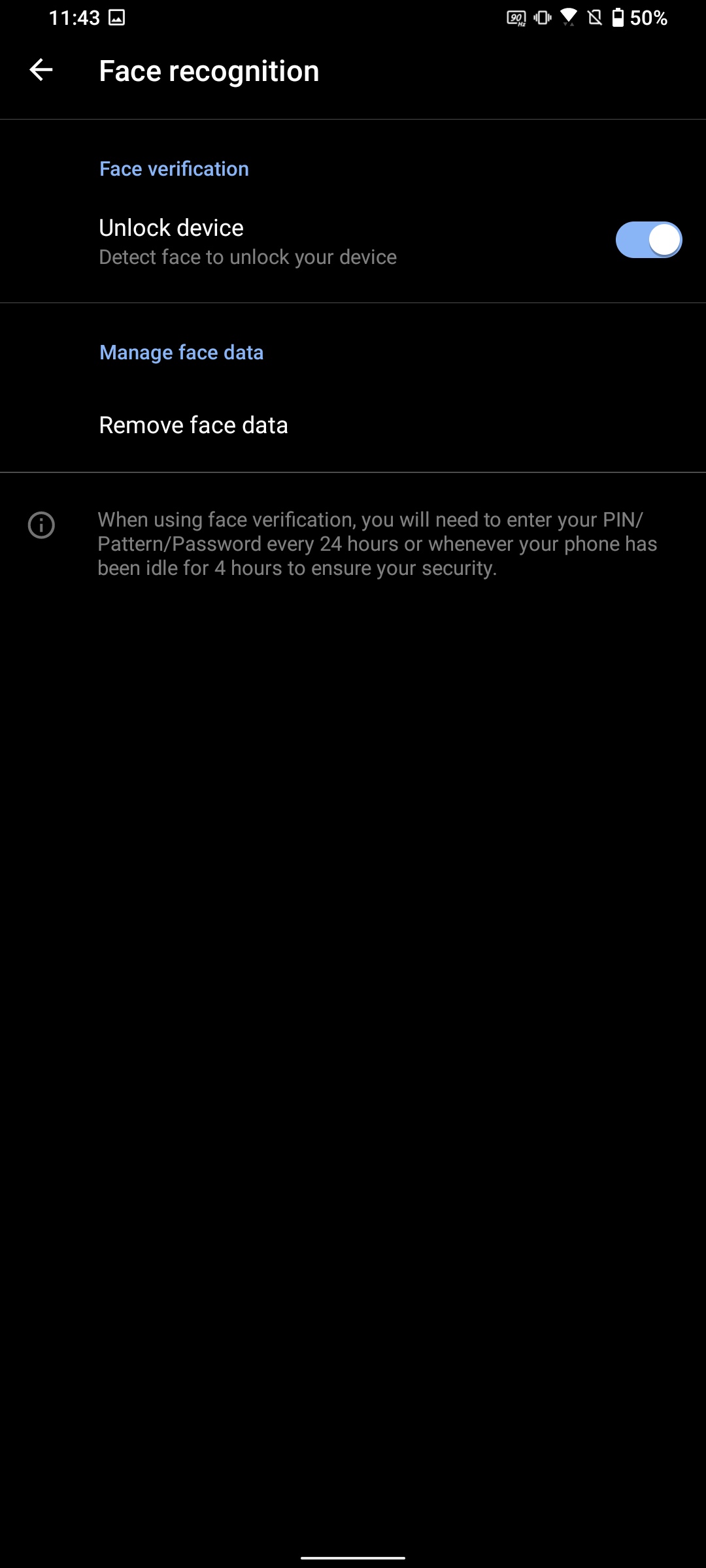





Performance, Memory, Sound and Battery Life
A flagship Qualcomm Snapdragon 888 processor, 8 GB of LPDDR5 RAM and 256 GB of built-in UFS 3.1 storage are installed inside ASUS ZenFone 8 Flip. So no performance problems, the smartphone's power reserve will probably be enough for the next few years. We should remind, Snapdragon 888 is an eight-core 5-nanometer processor, which includes one powerful core Kryo 680 at 2.84 GHz, 3hKryo 680 2.42 GHz and 4xKryo 680 at 1.8 GHz. The Adreno 660 booster is responsible for the graphics. The smartphone shows very high results in benchmarks.
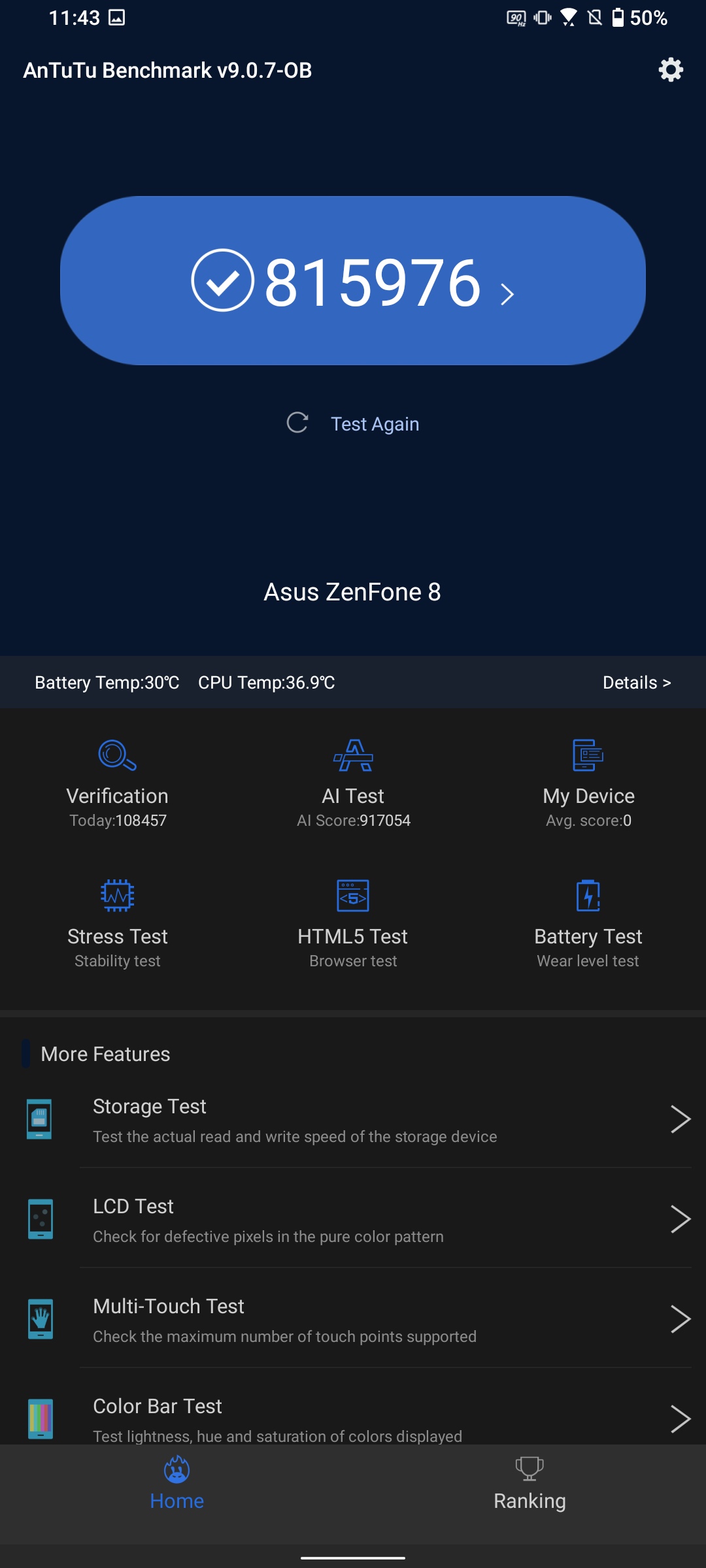
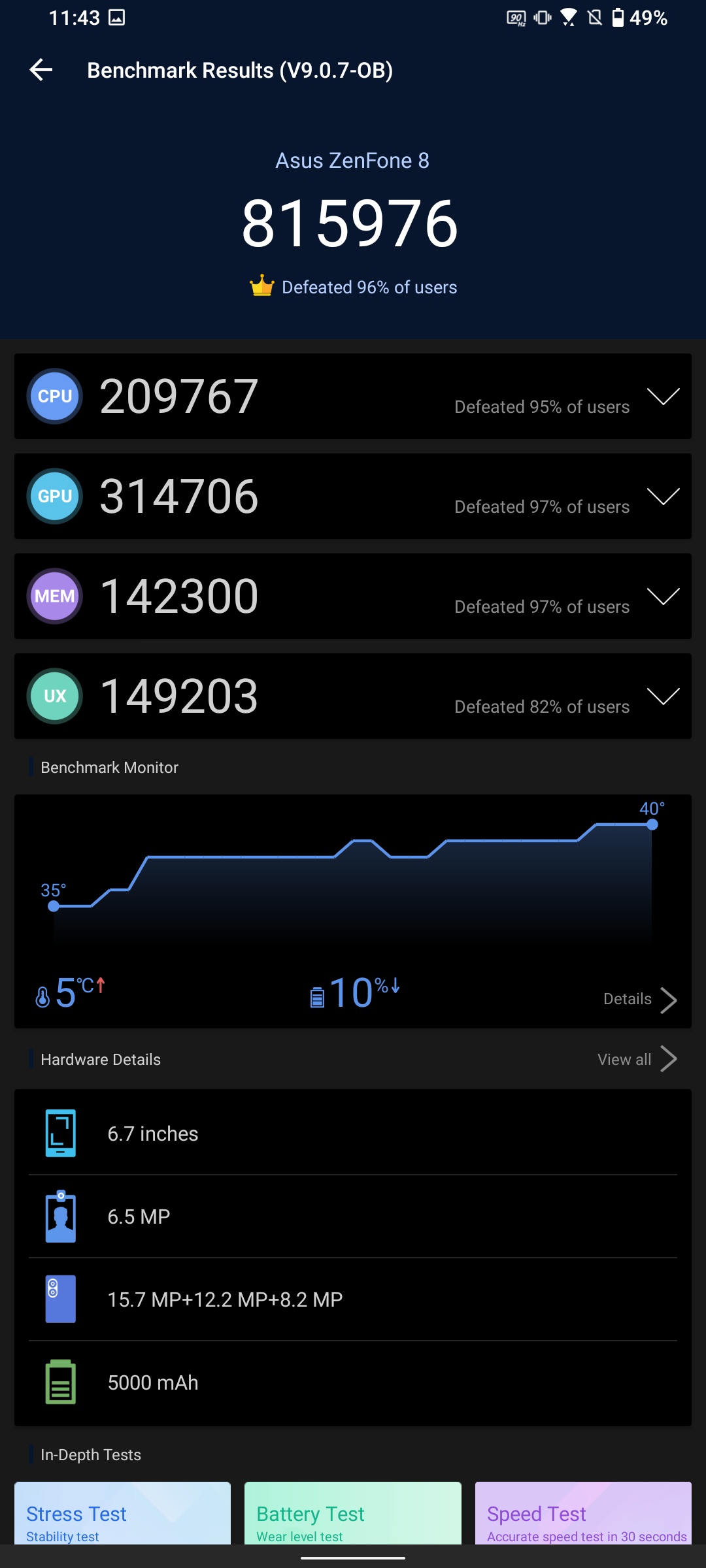
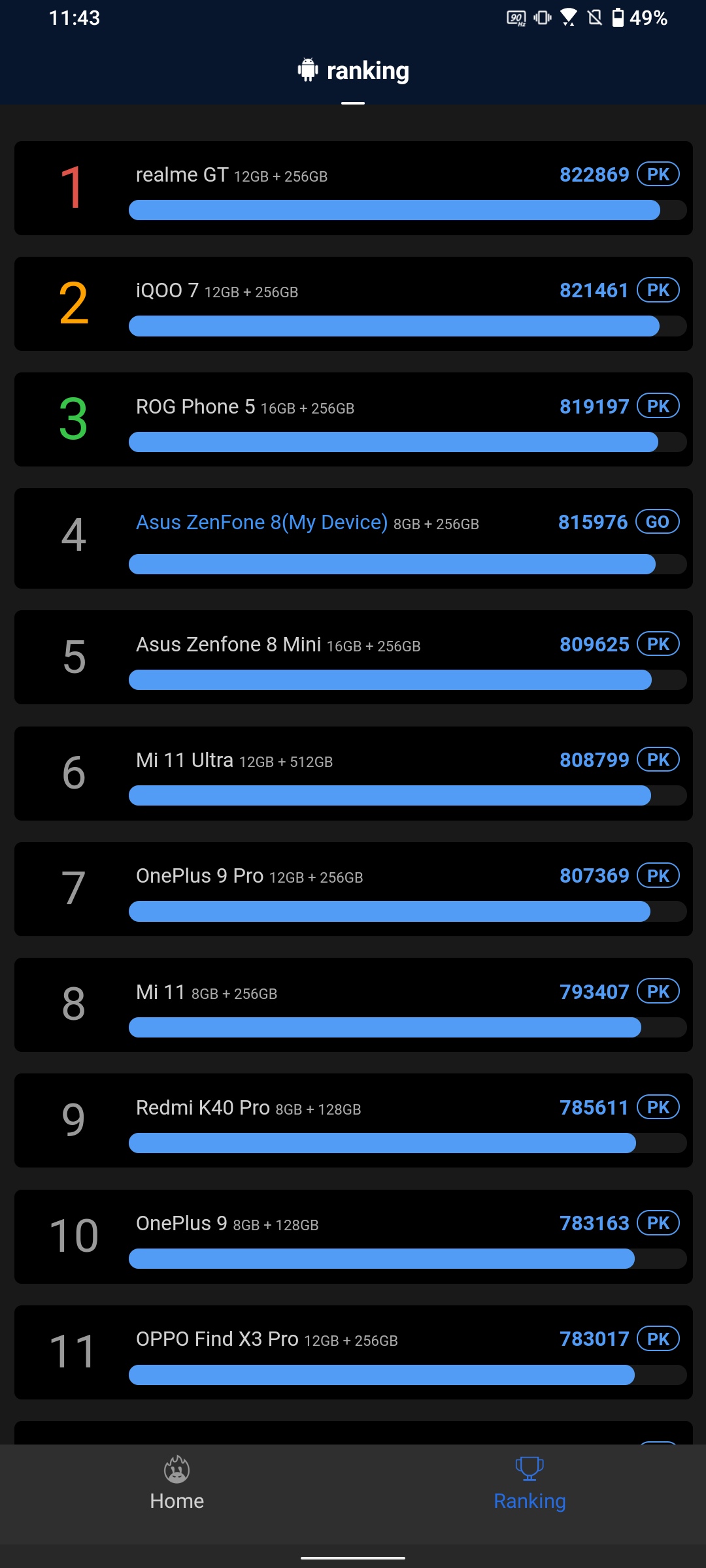
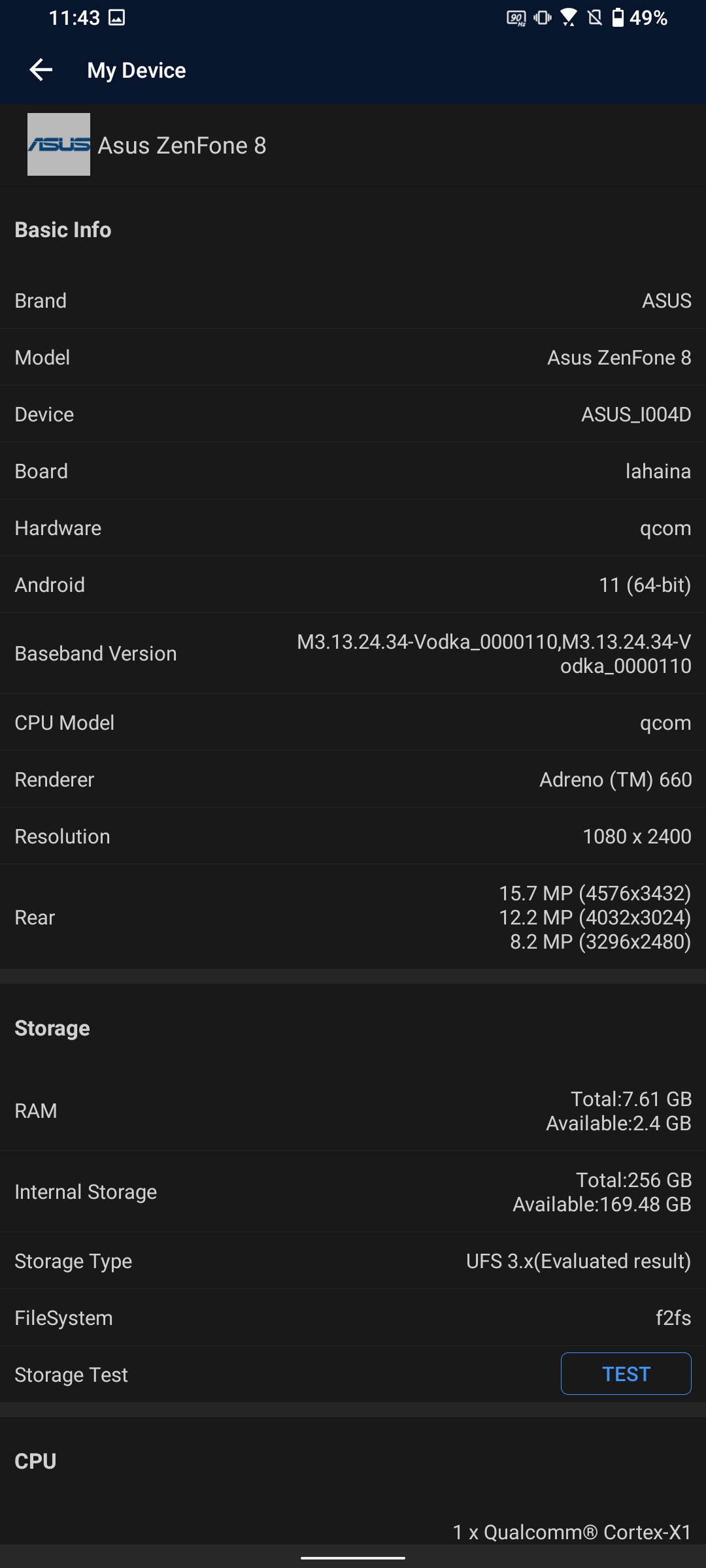
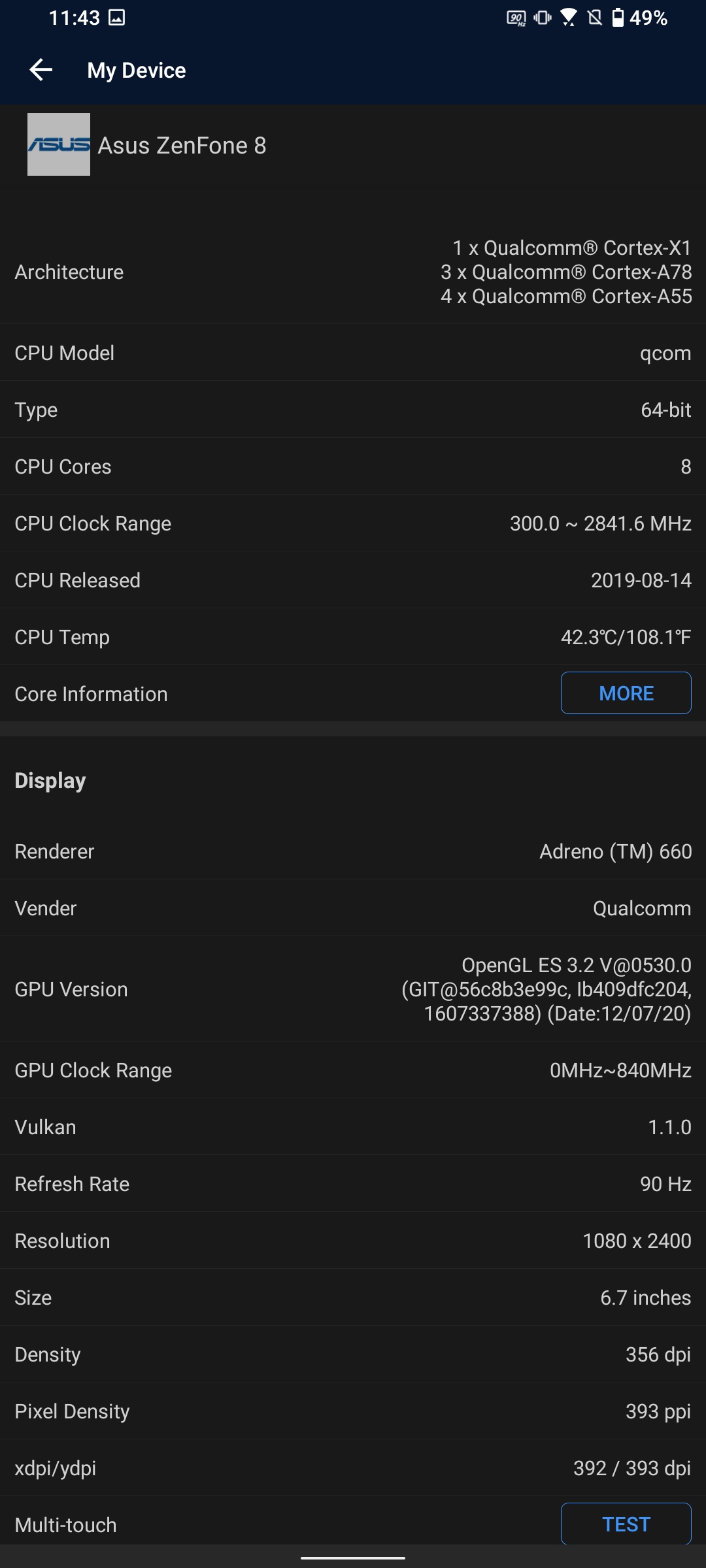
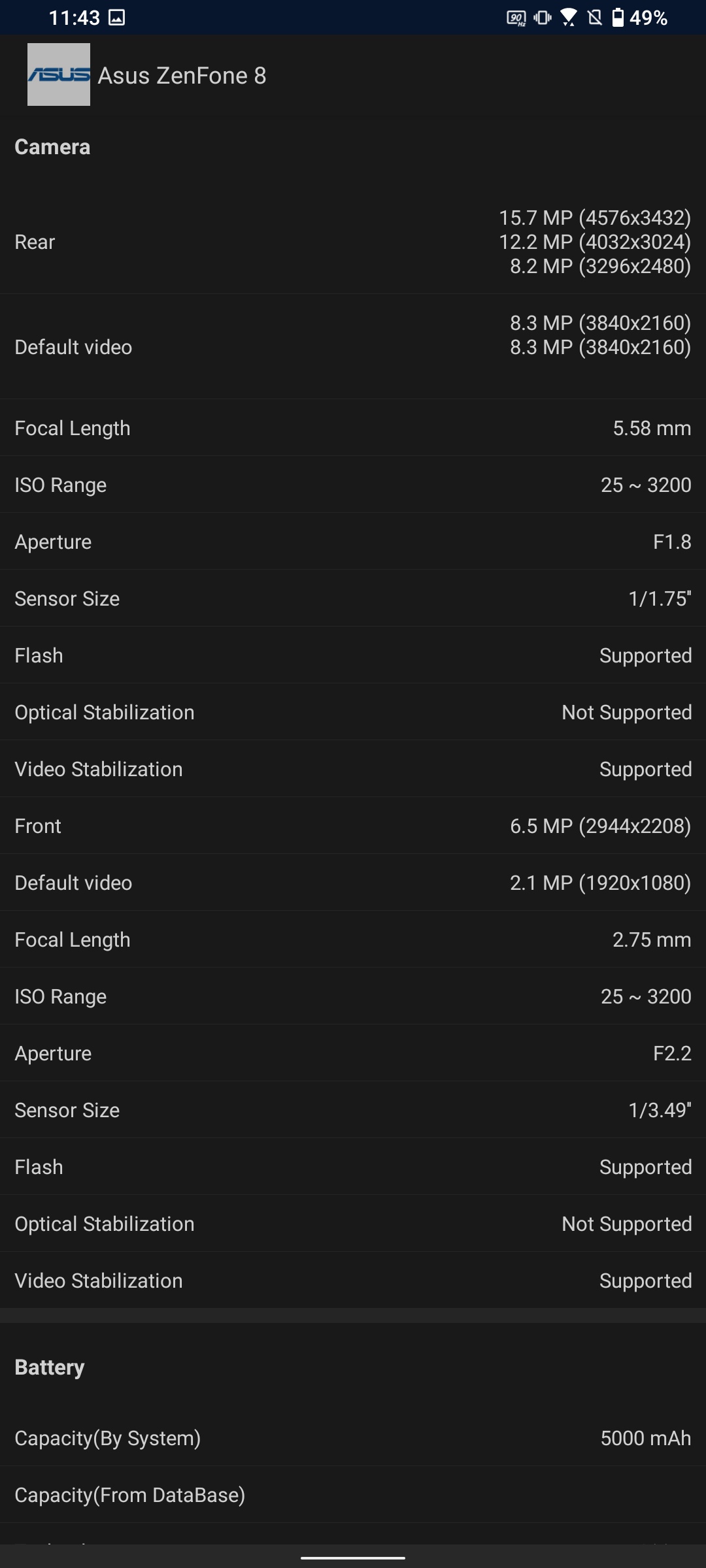
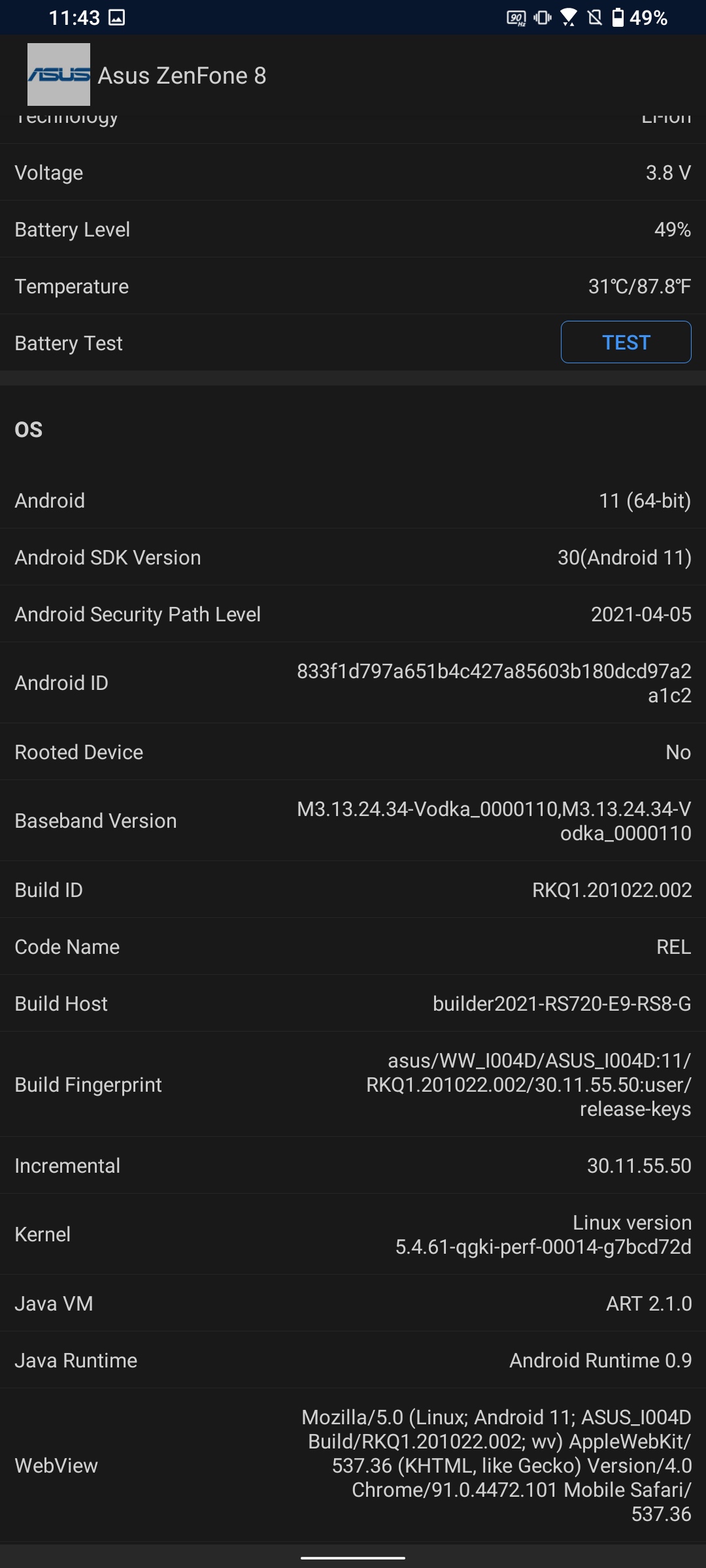
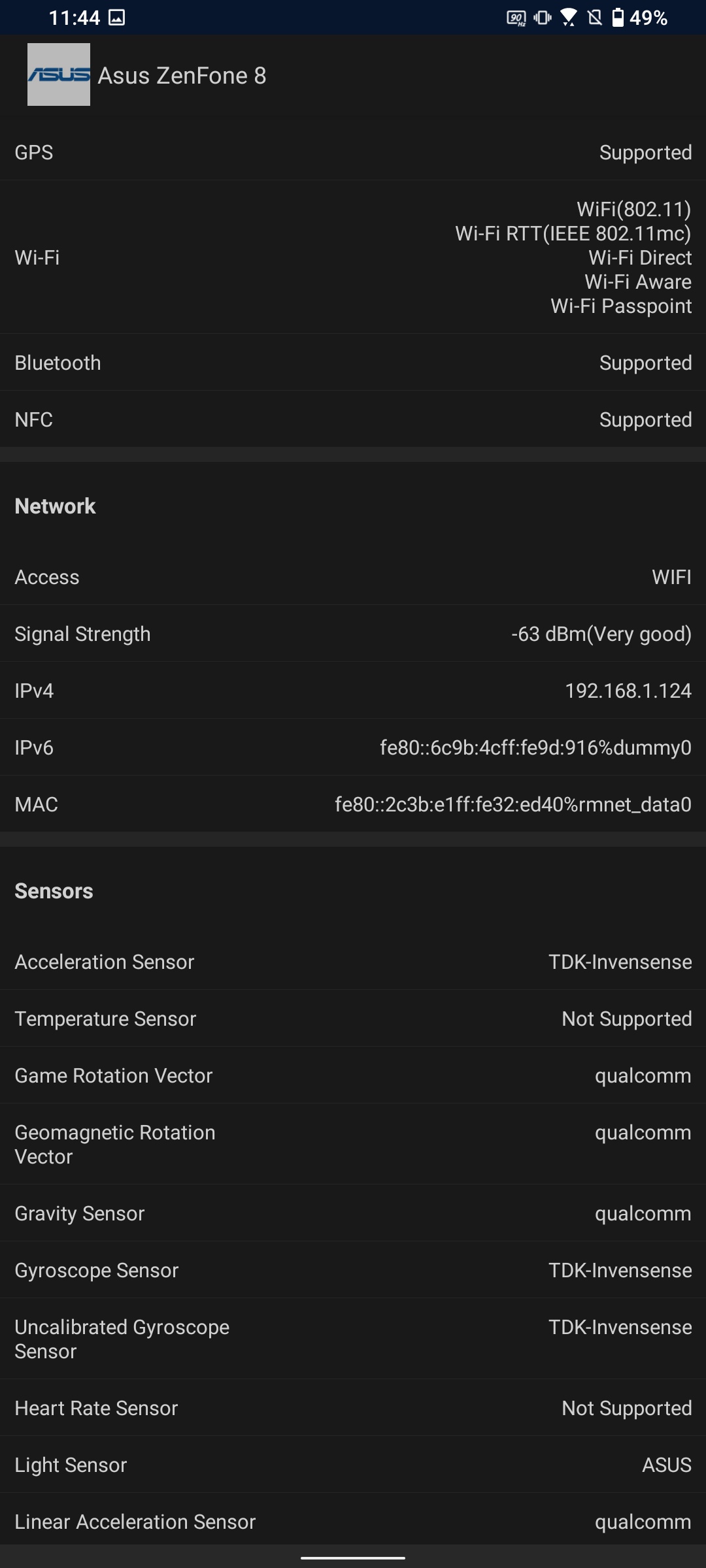
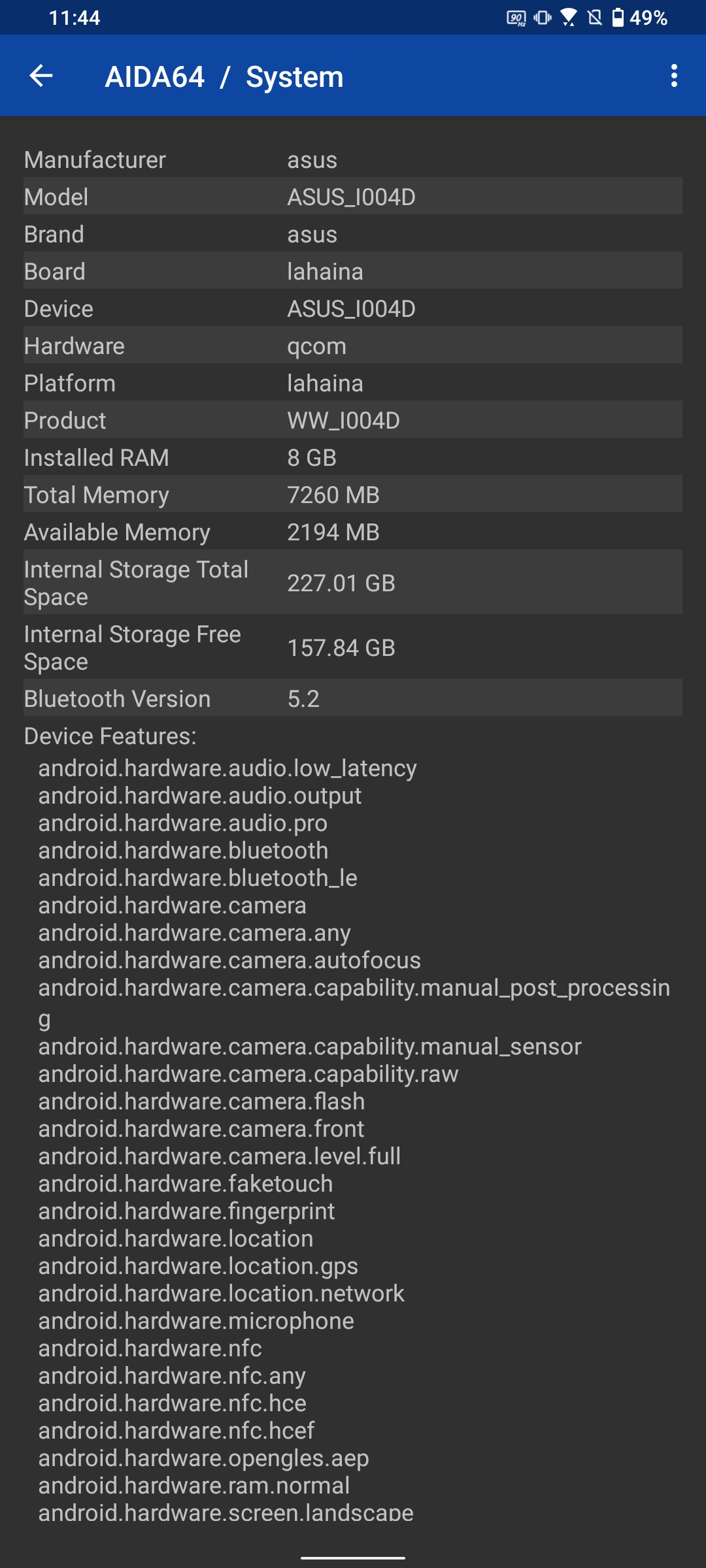
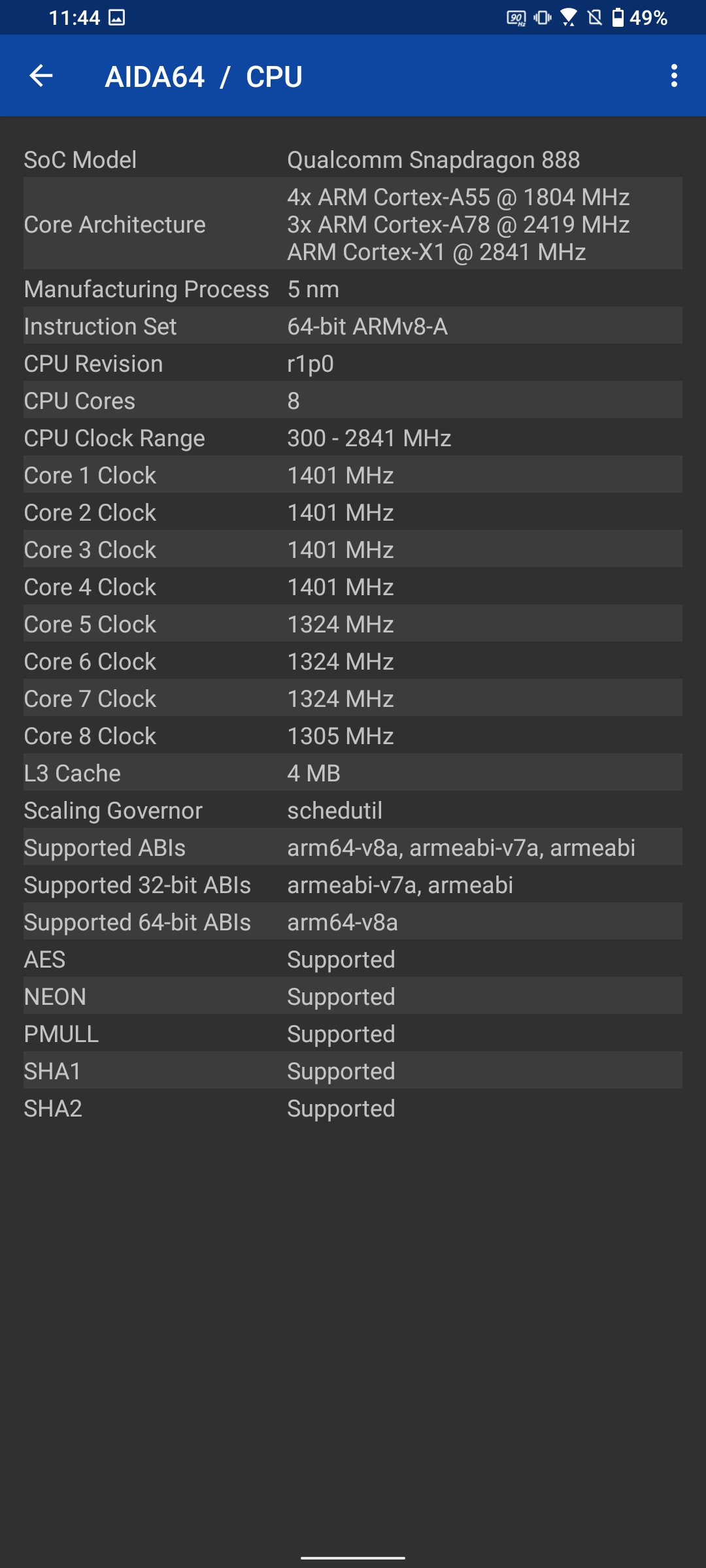
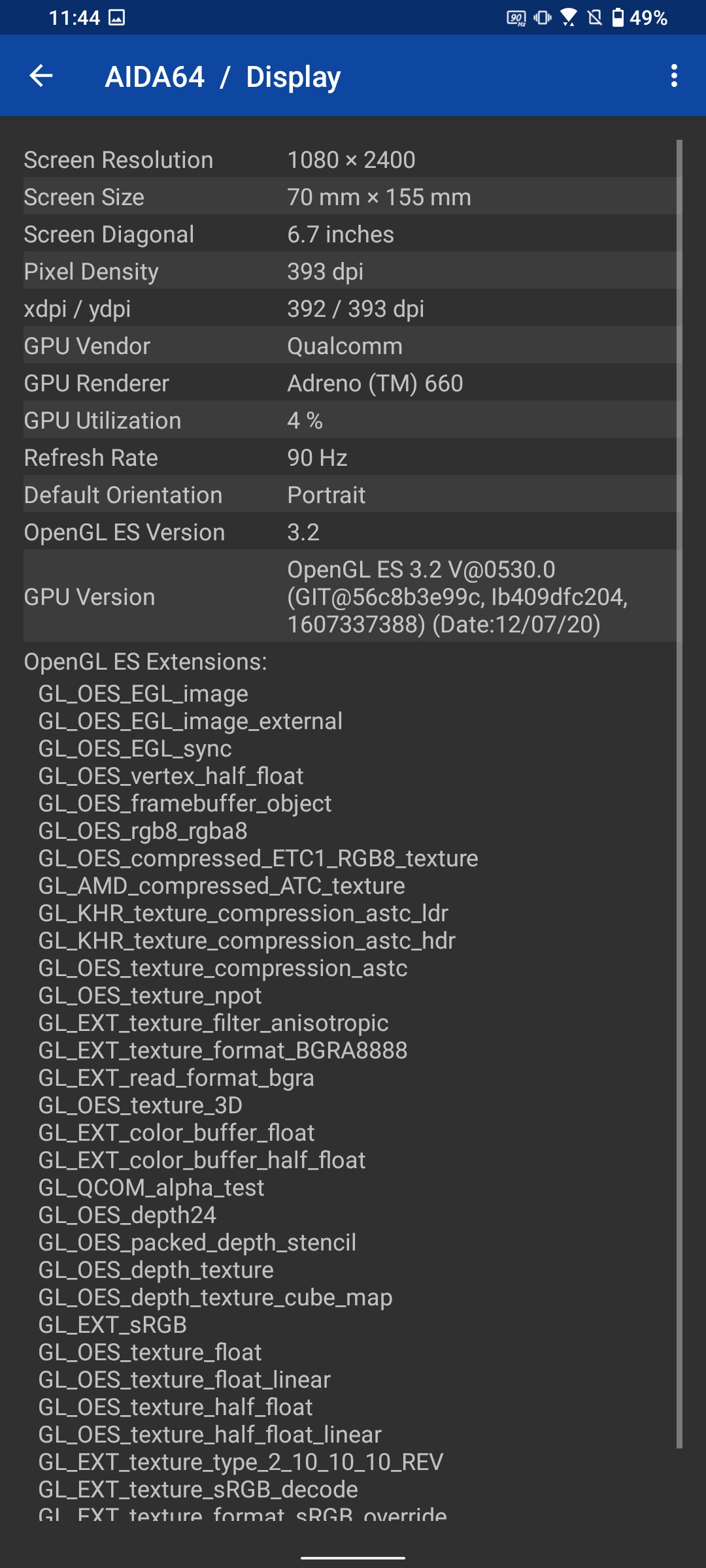

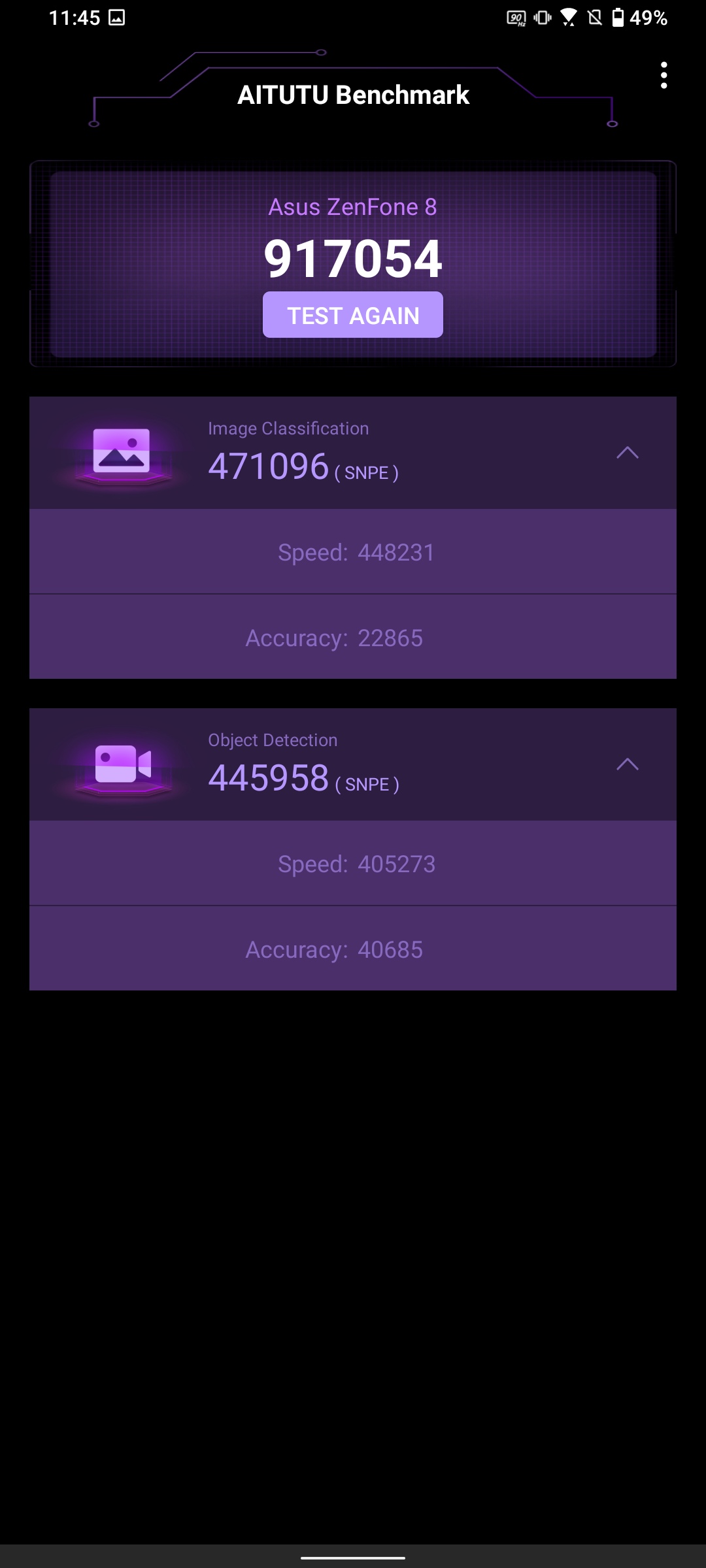
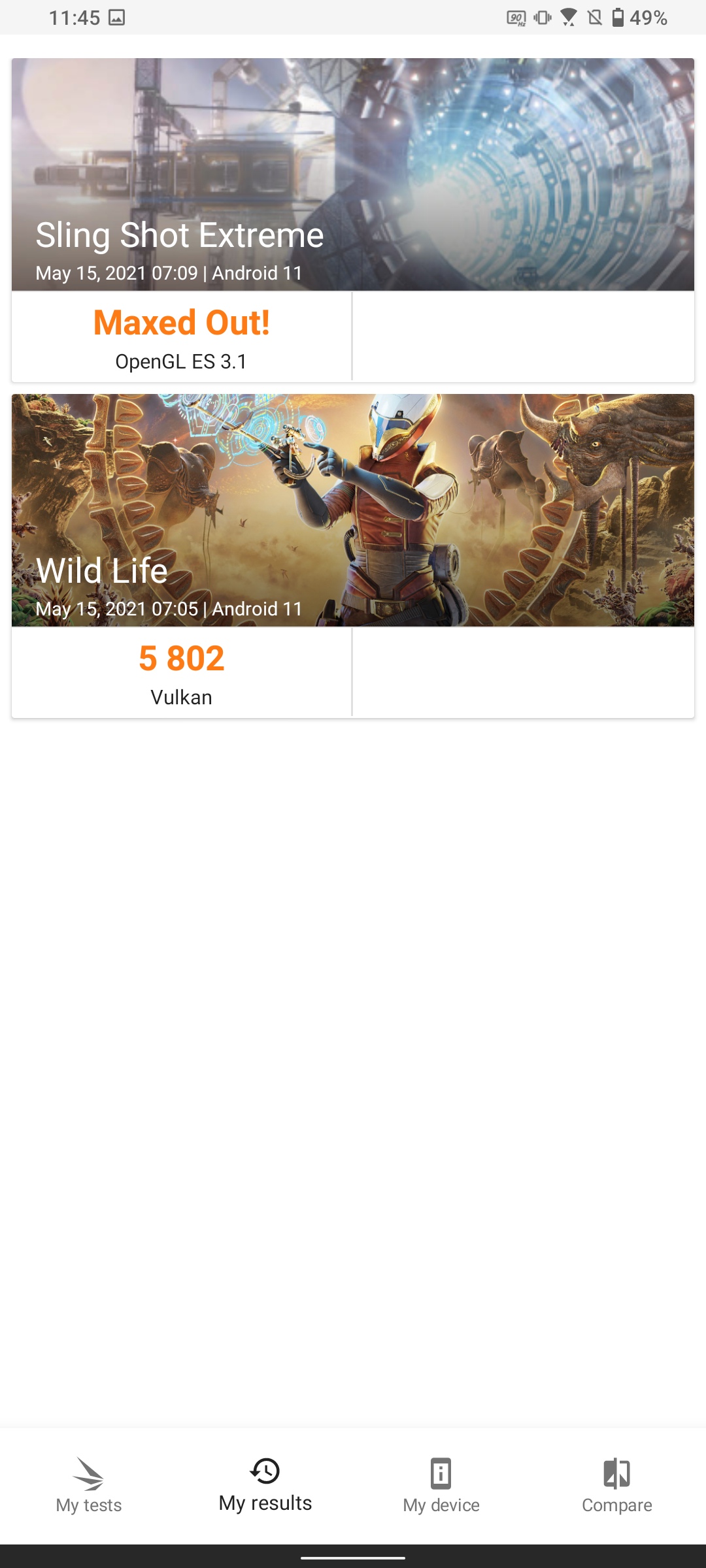
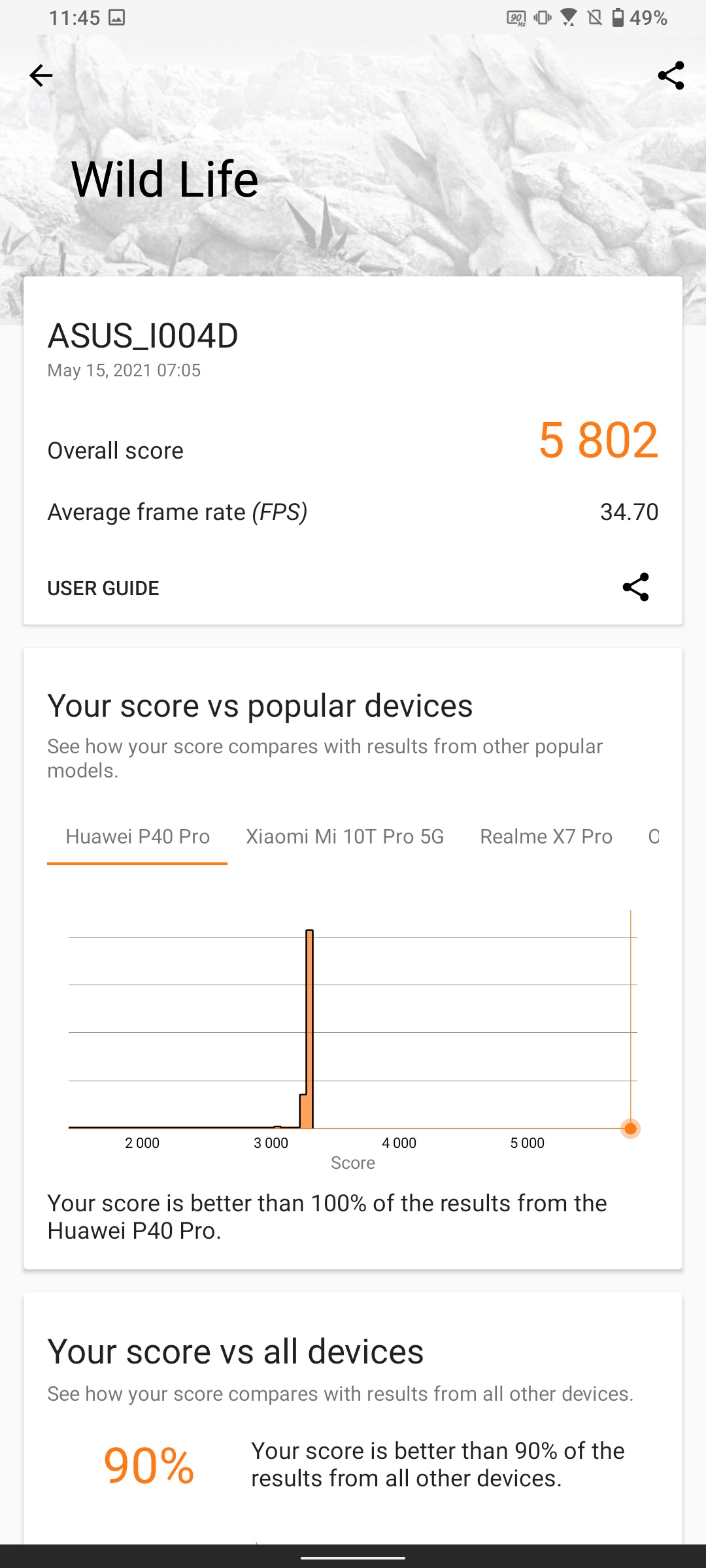
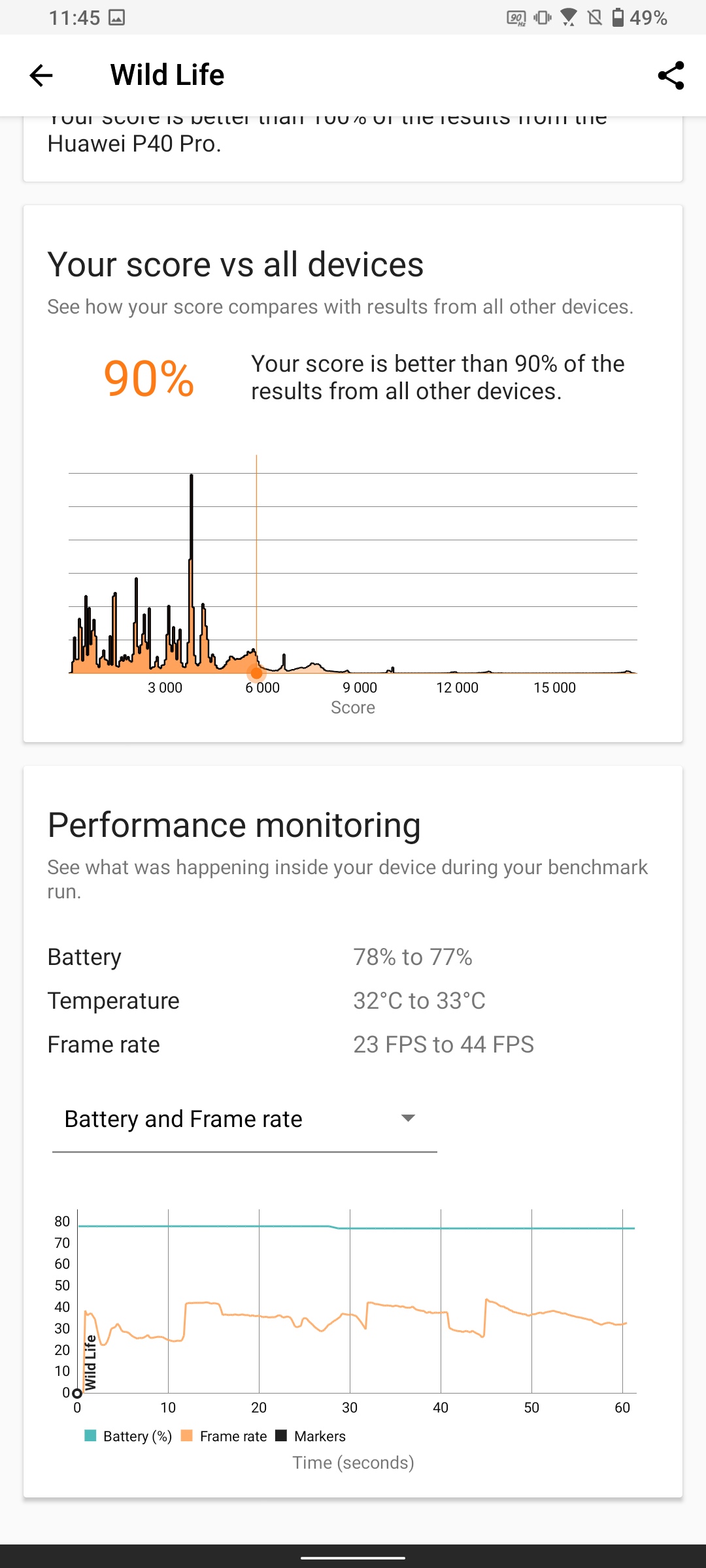
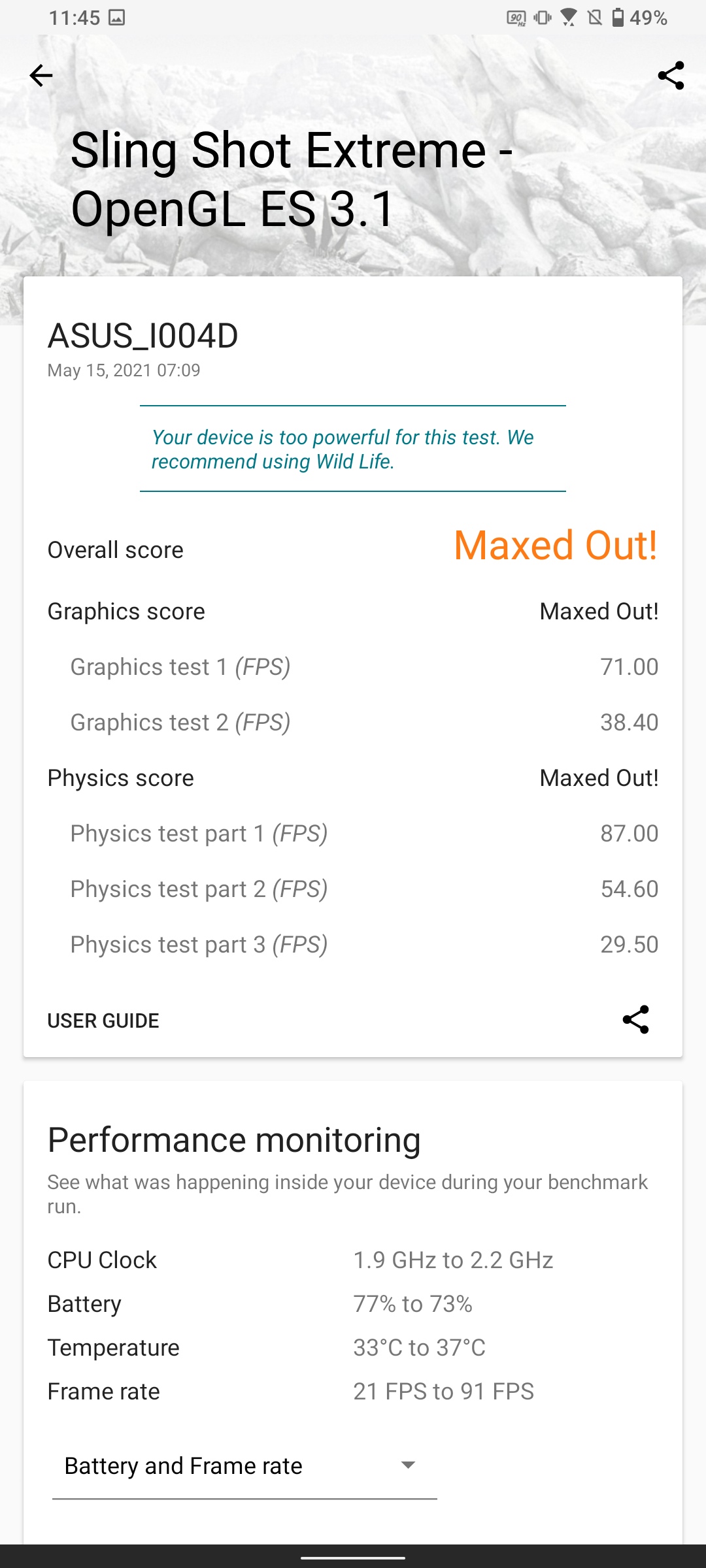

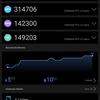




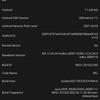




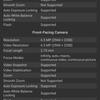



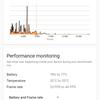

With prolonged peak loads in the CPU Throttling Test, performance can drop up to 91%, which is not critical at all. At the same time, the body of the smartphone is noticeably heated. In real conditions, there are no performance problems, ASUS ZenFone 8 Flip becomes warm when playing heavy games for a long time.
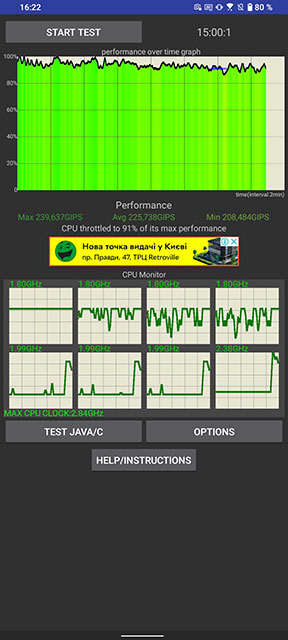
The smartphone provides a utility for Game Genie games with the ability to turn off notifications, record video clips, adjust performance, record macros and monitor CPU, GPU, temperature, and FPS in real time. The smartphone copes with modern games without problems: Shadow Fight 3 and Call of Duty Mobile demonstrate stable 60 FPS at maximum graphics settings. Shadowgun Legends - 90 FPS with occasional drawdowns up to 85. Genshin Impact: 30 FPS.
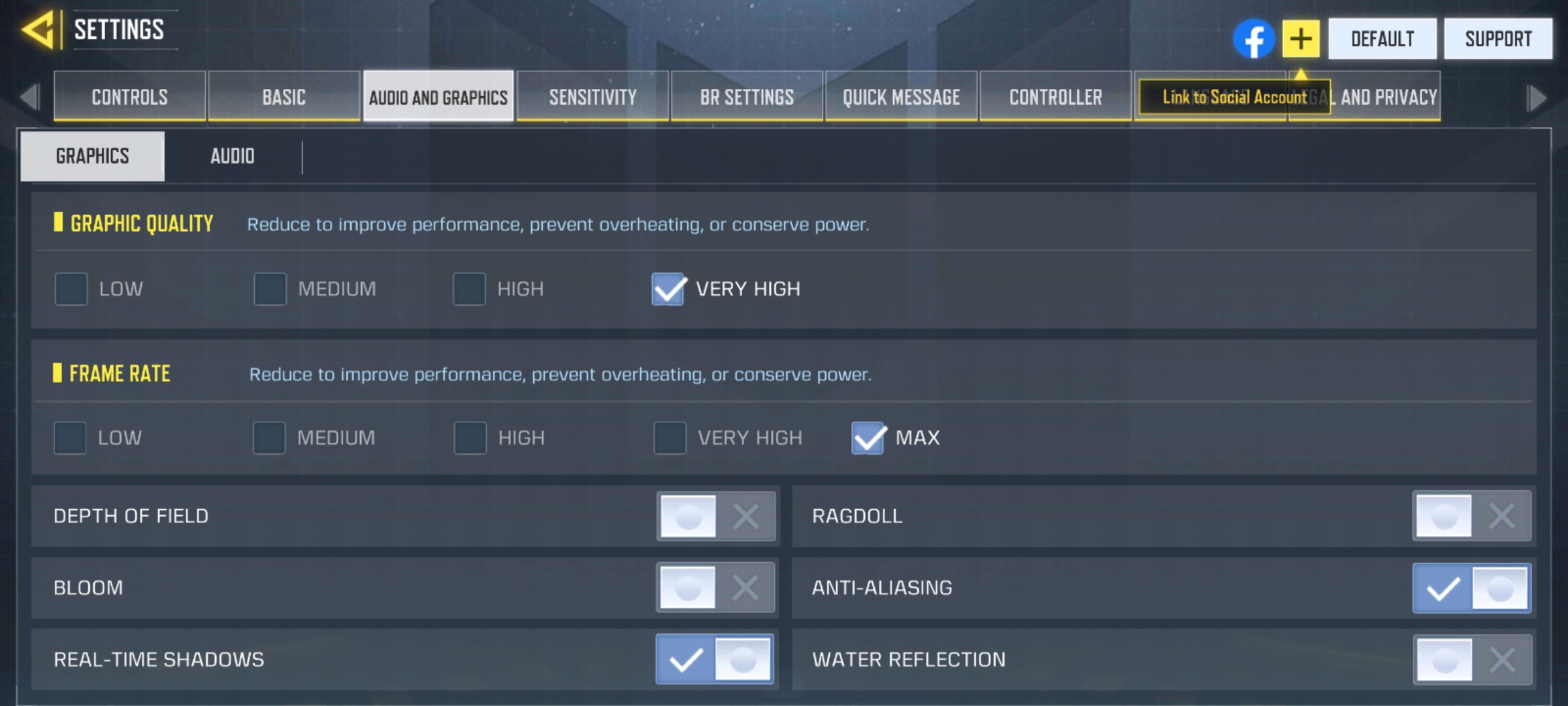
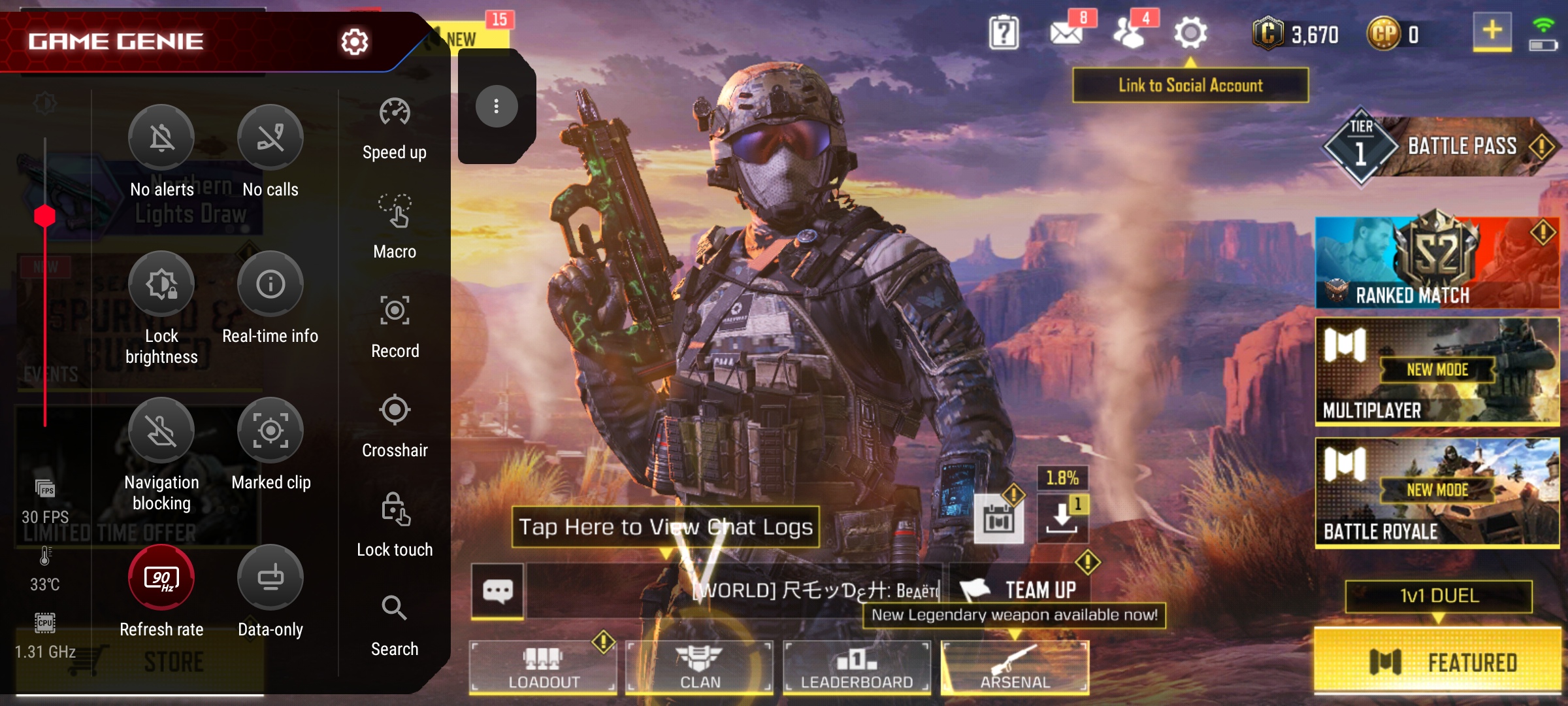
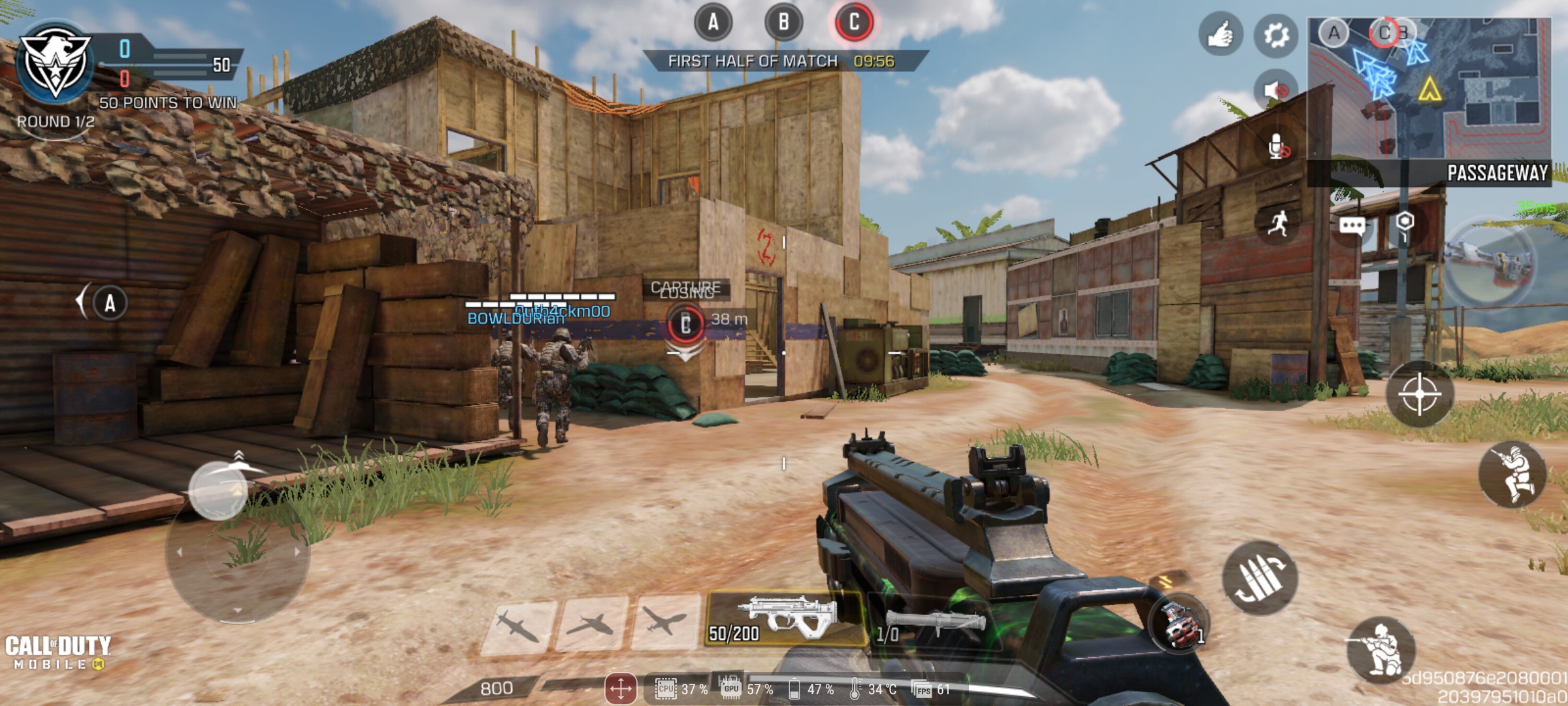
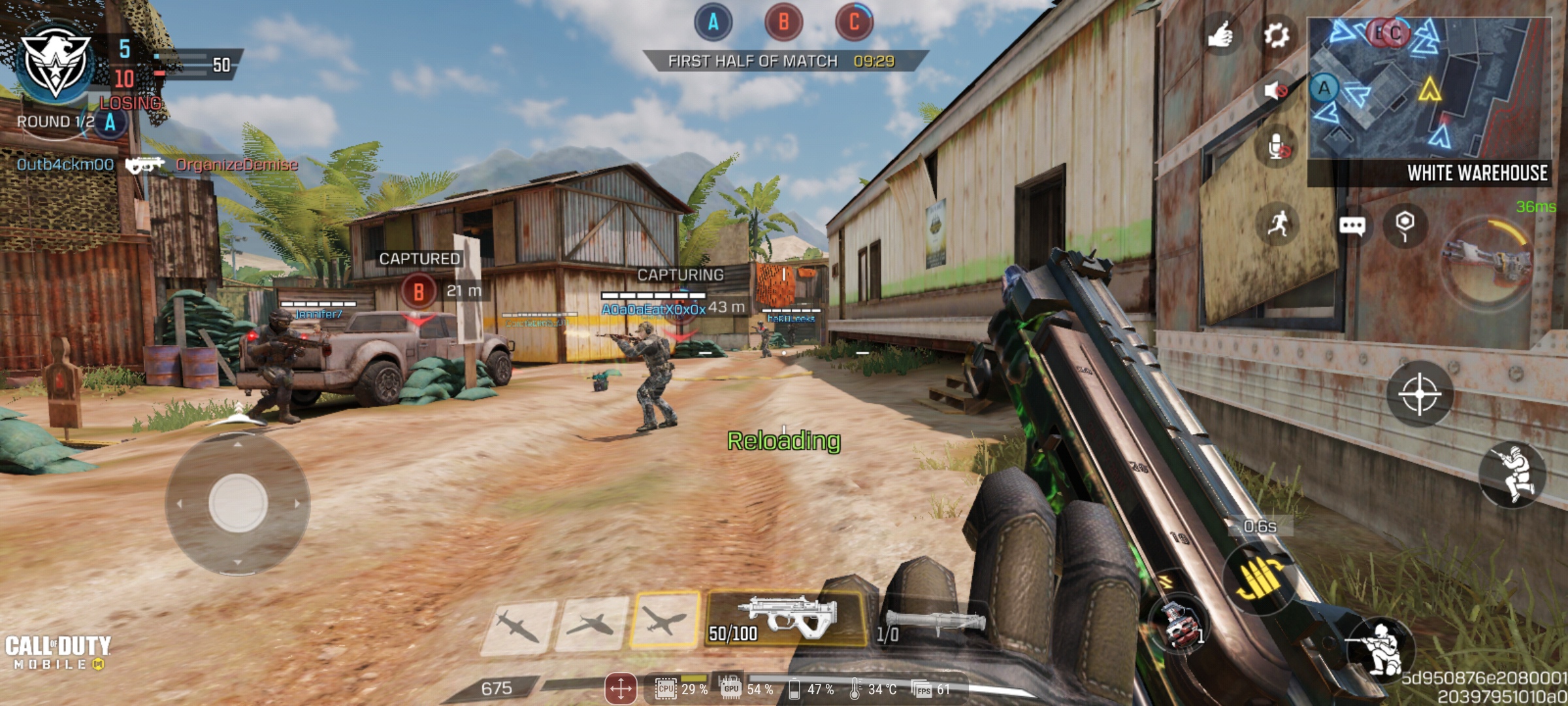
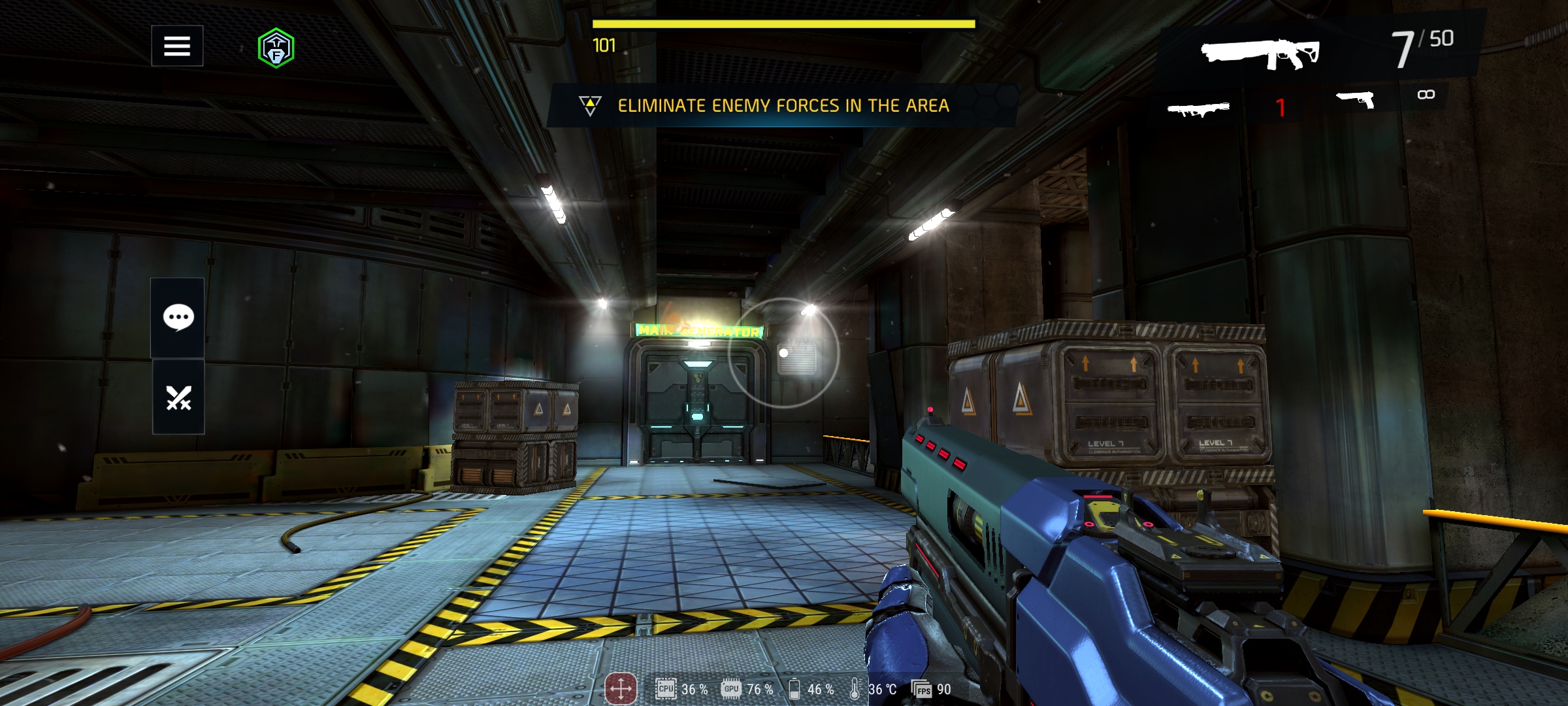
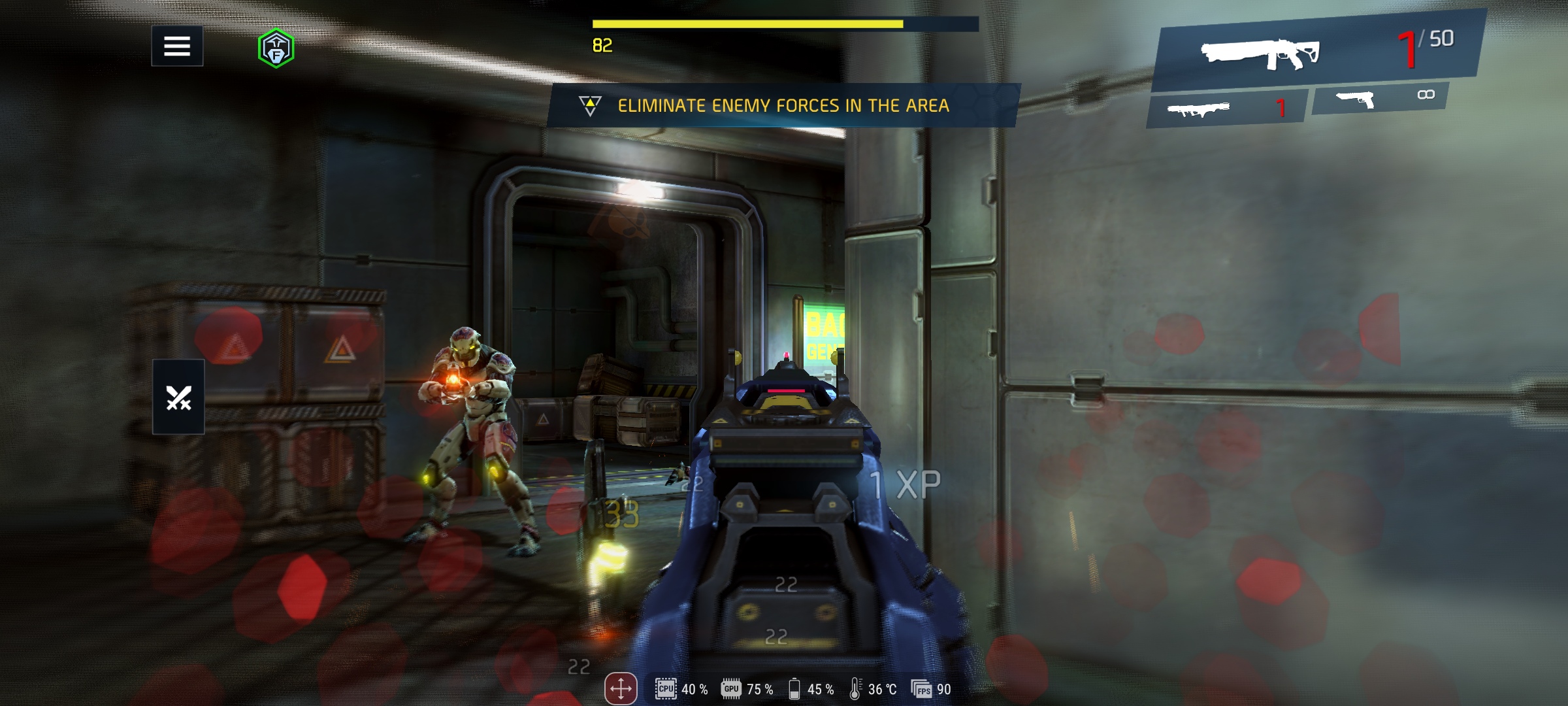
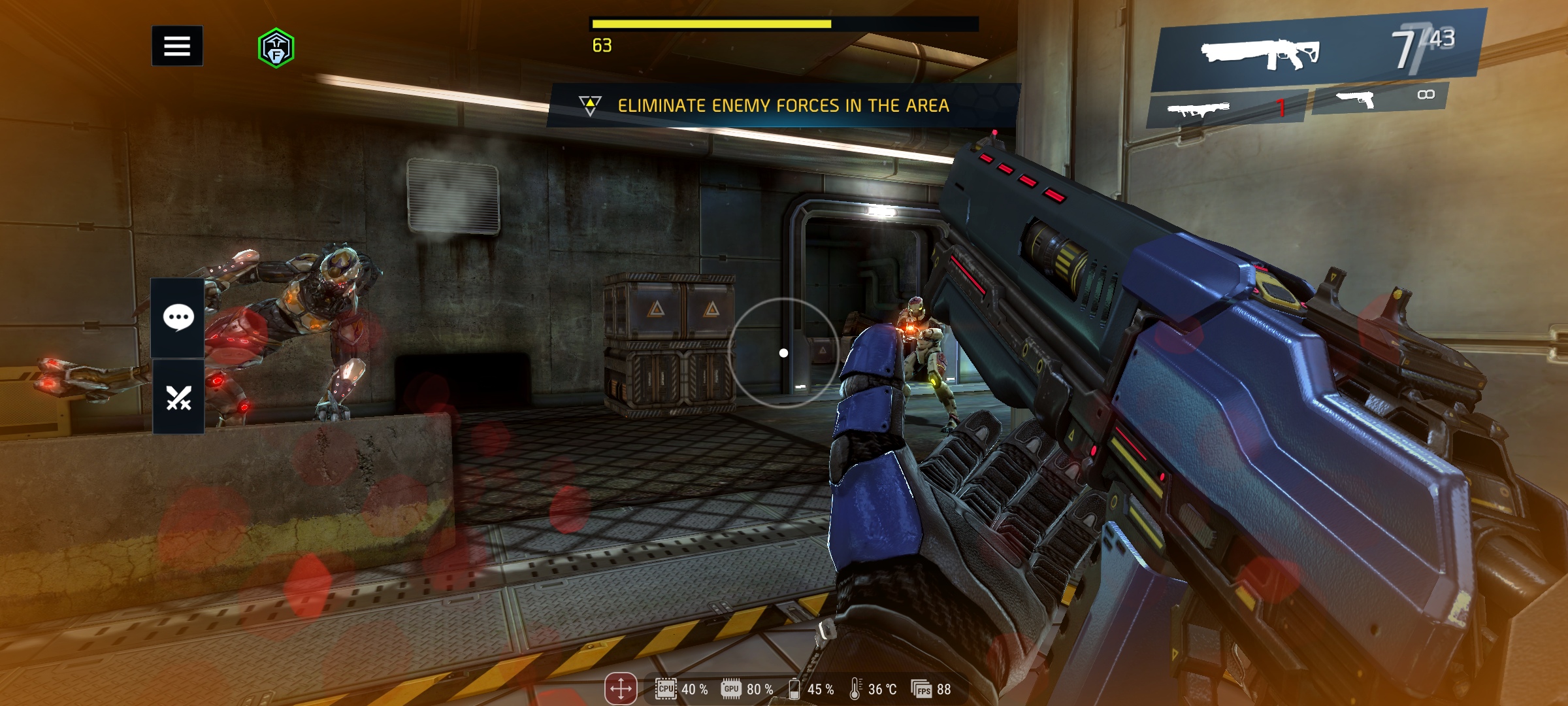
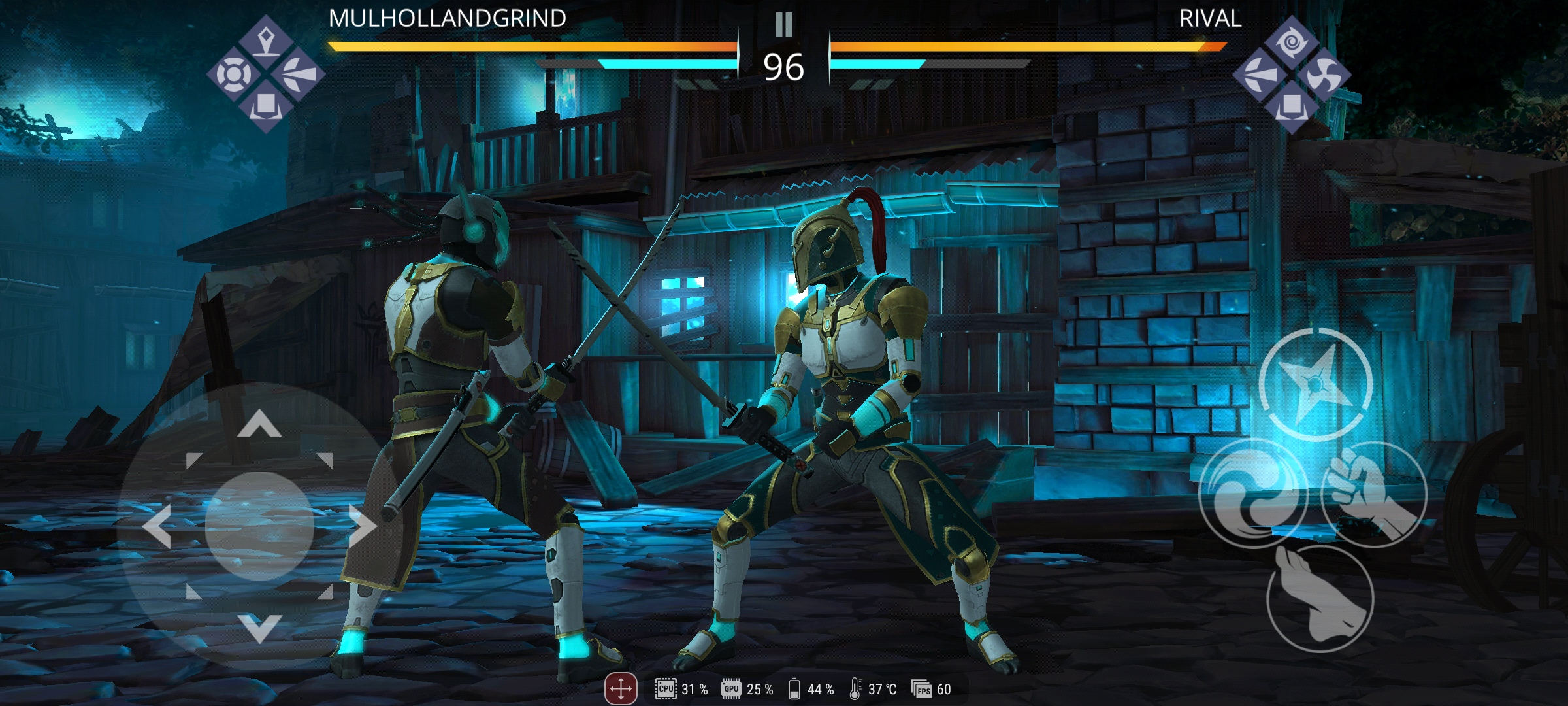
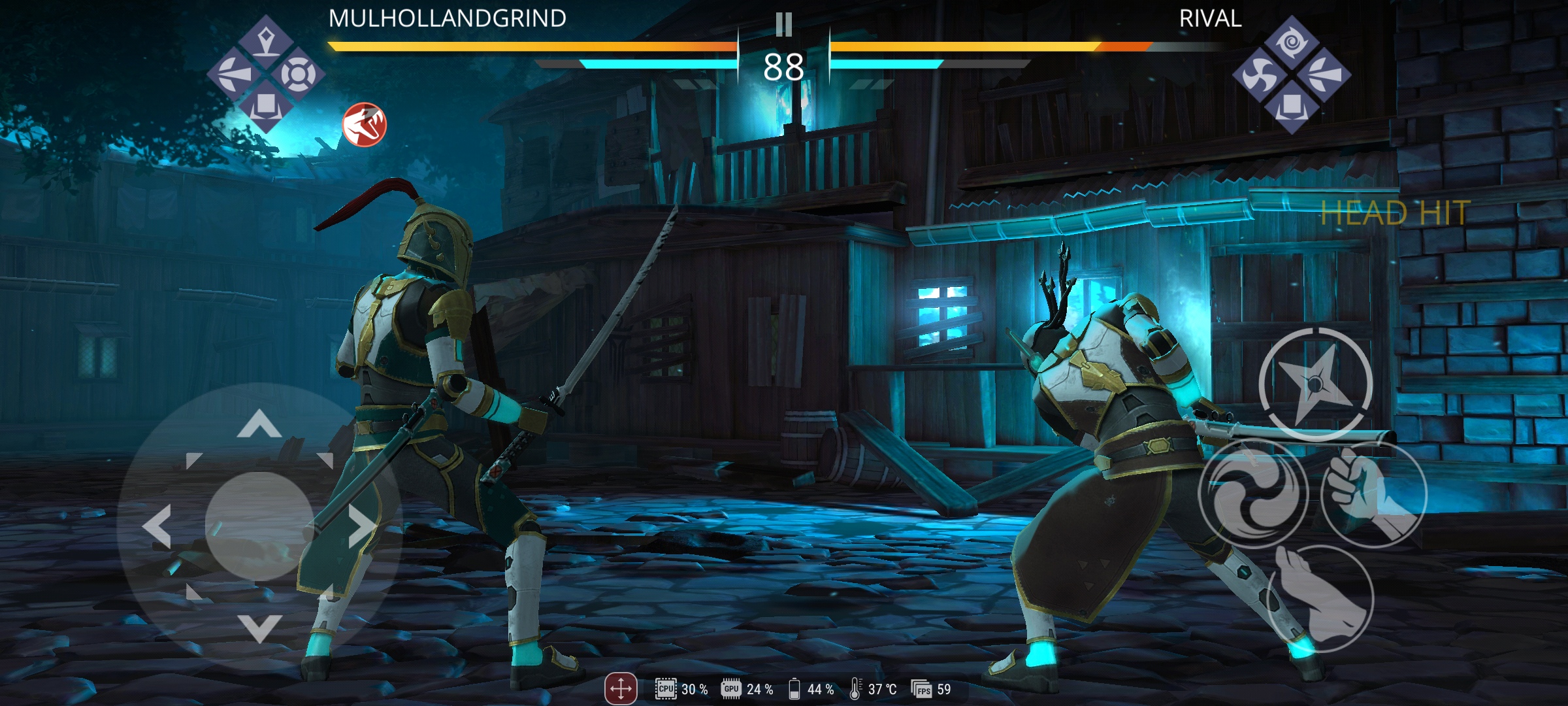















Wireless interfaces: dual-band Wi-Fi 802.11 a / b / g / n / ac / 6e 2.4 GHz and 5 GHz, Bluetooth 5.2 LE (aptX HD, aptX Adaptive, LDAC codecs are supported) and NFC for contactless payment. Support: global positioning systems GPS, GLONASS, GALILEO, BDS, QZSS, NavIC.
The smartphone produces stereo sound, the main speaker is the bottom 5-magnetic dual amplifier NXP TFA9874. The Conversation speaker is additional. There are Dirac settings for different types of content. ASUS ZenFone 8 Flip sounds loud and high quality (as far as it is applicable to smartphones). A headphone jack is not provided.
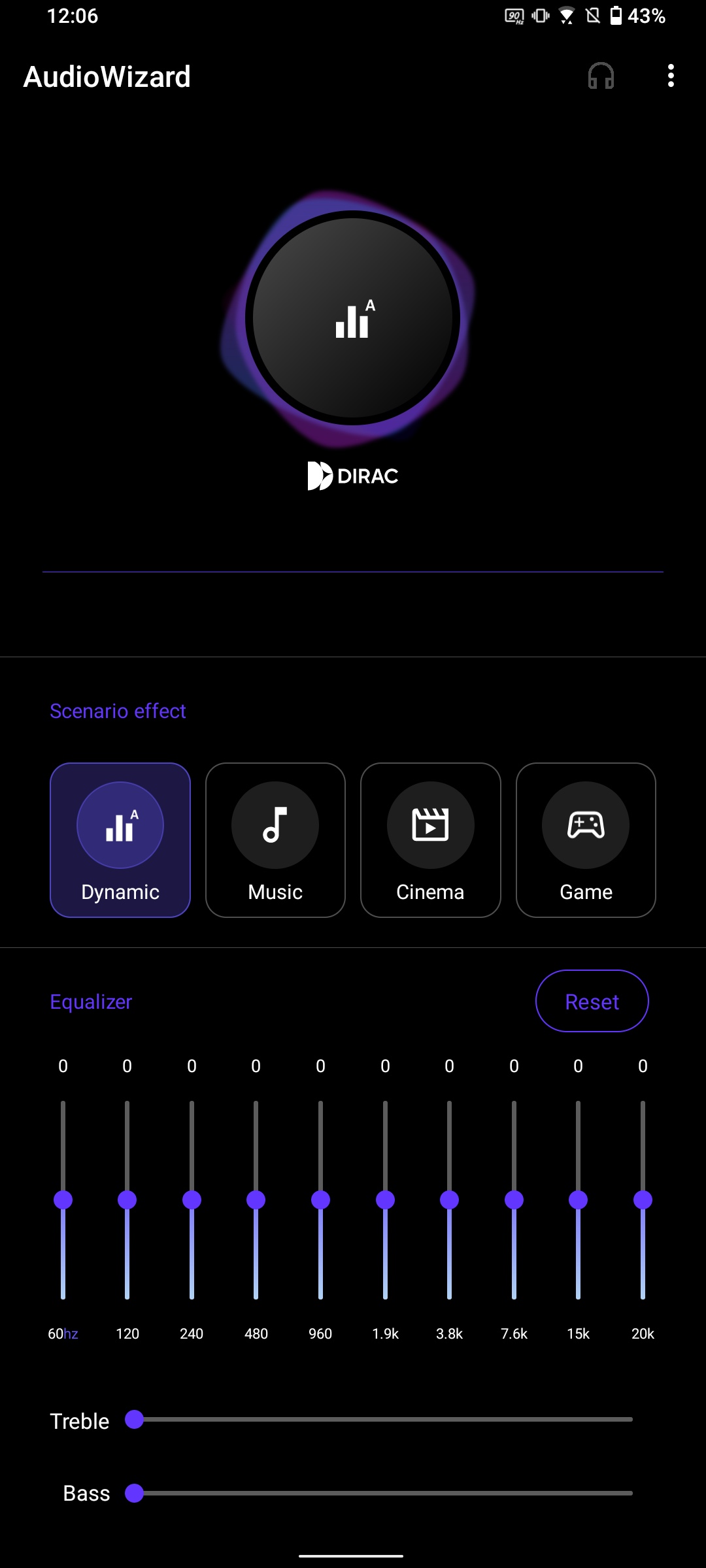
The smartphone features a 5000 mAh battery and supports 30W Power Delivery 3.0 fast charging. Far from being a record by today's standards, a full charge takes about an hour and a half. According to personal experience, in everyday mode (about 20 minutes of talking, mail, messengers, social networks, about half an hour of games and about 1.5 hours of music via Bluetooth), the battery is enough until late evening.
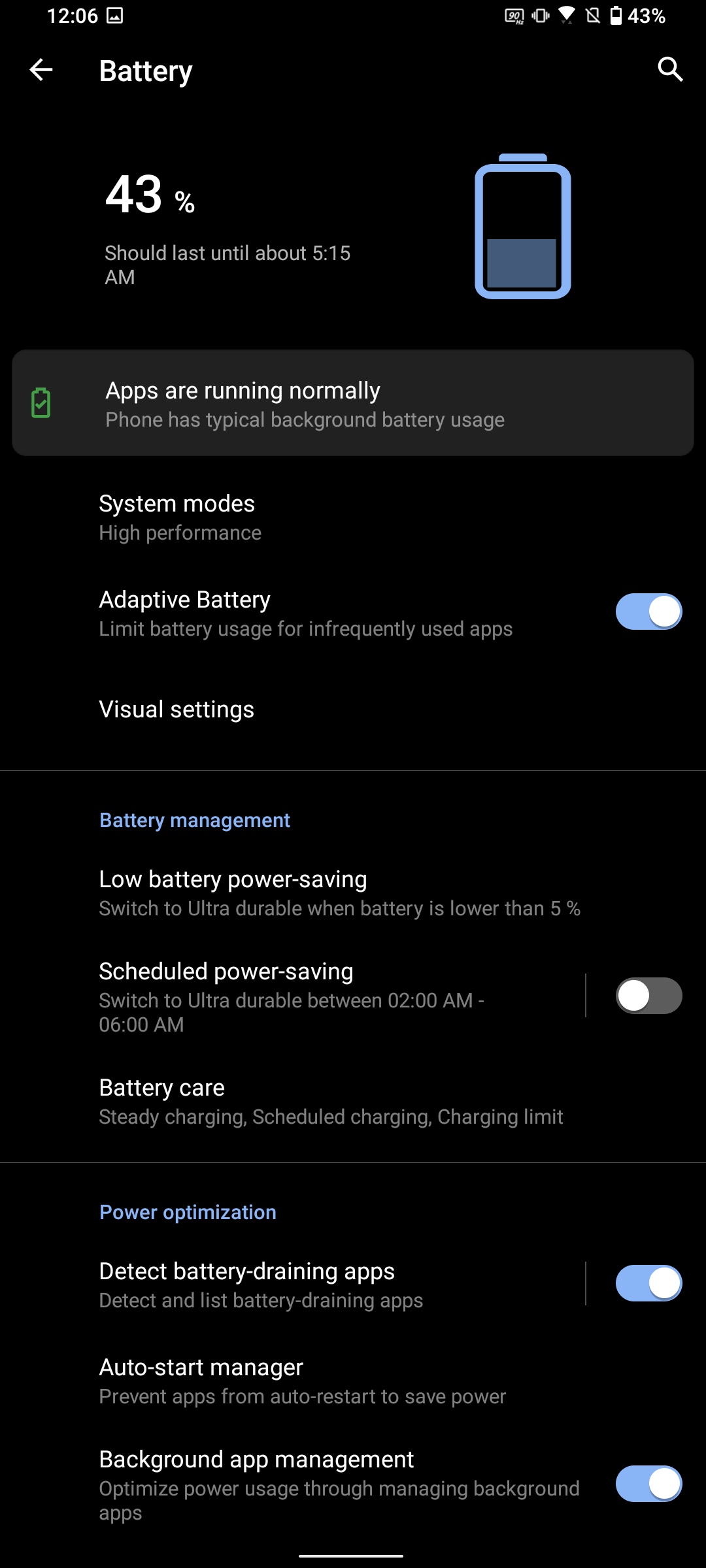
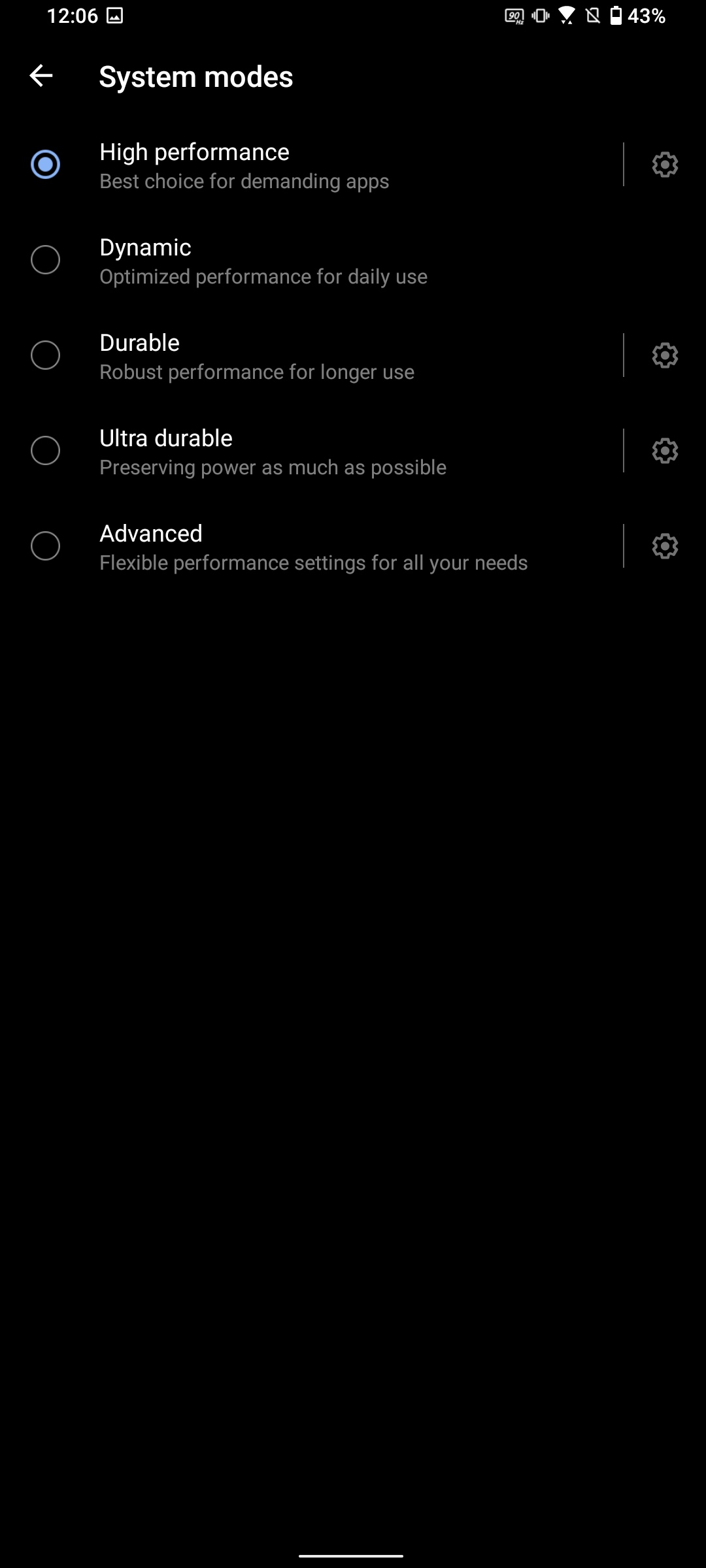
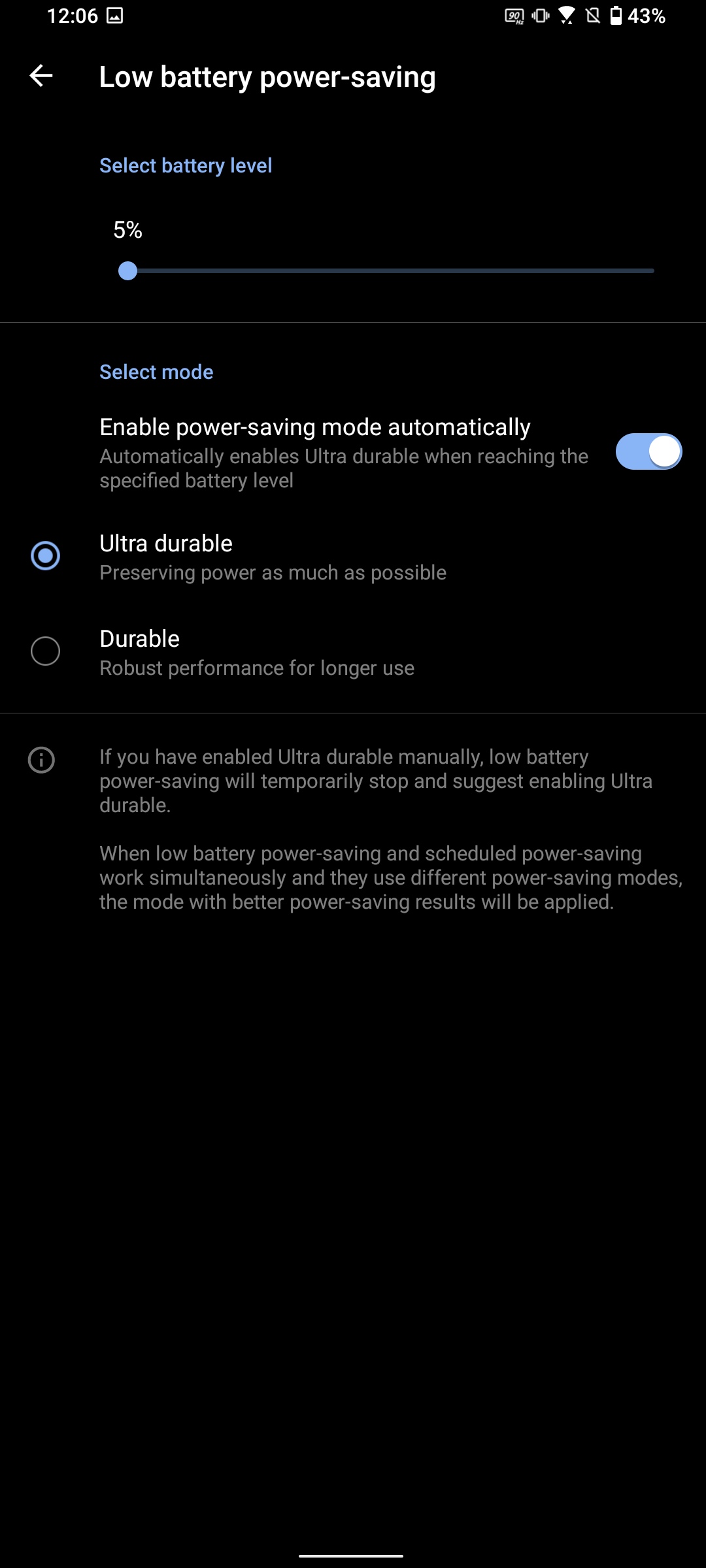
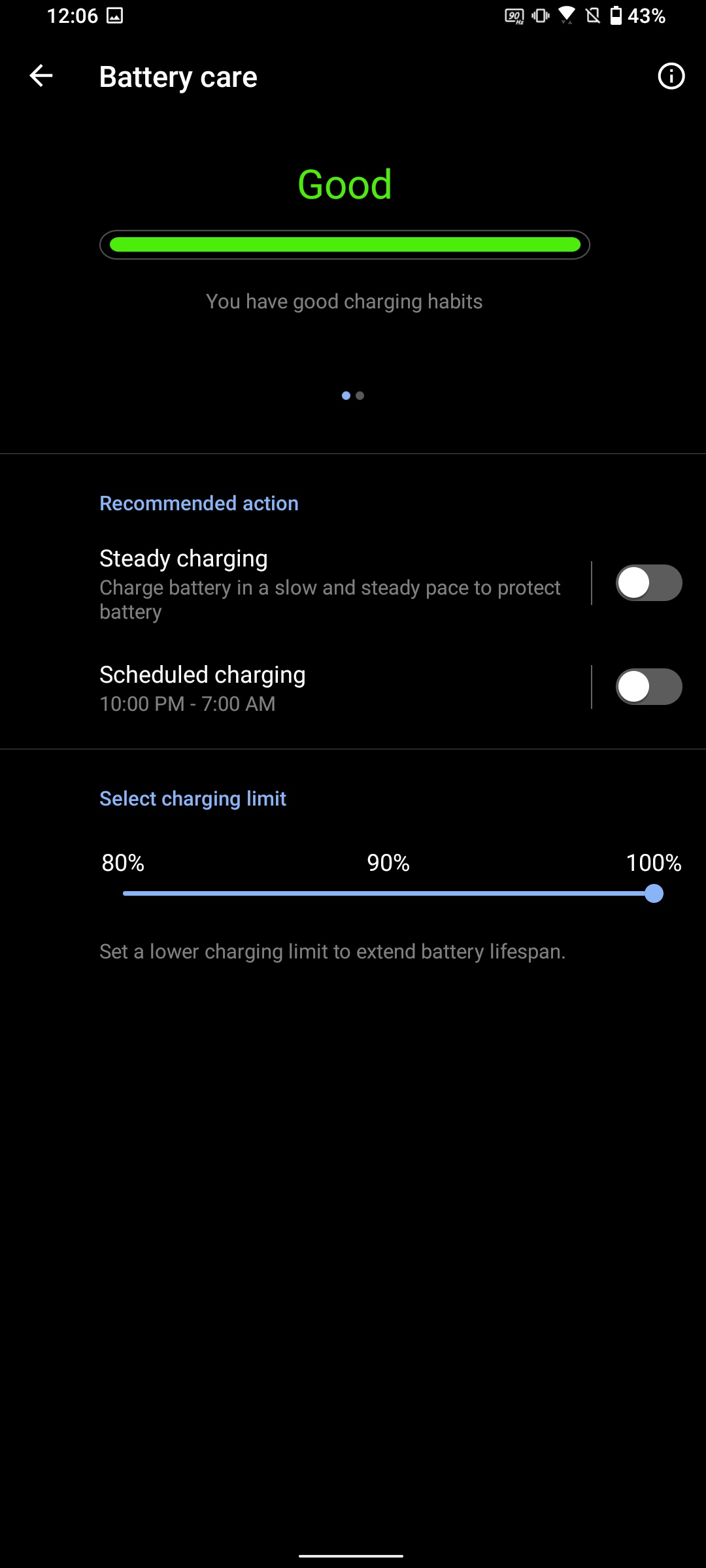
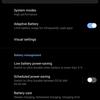


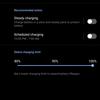
The Interface
ASUS ZenFone 8 Flip runs on Android 11 with its own ZenUI 8 interface. In fact, it's is very close to "pure" Android, which means that everything is known and is in familiar places. The shell is not overbloated, works very quickly, without brakes, and there were no bugs (except remaining on Always on Display notifications from closed applications). During the time of use a couple of updates have already arrived. There is an option to turn on the applications menu or unloading everything to the desktops, a network configuration. Navigation options with buttons and gestures, customizing the appearance of icons, etc.
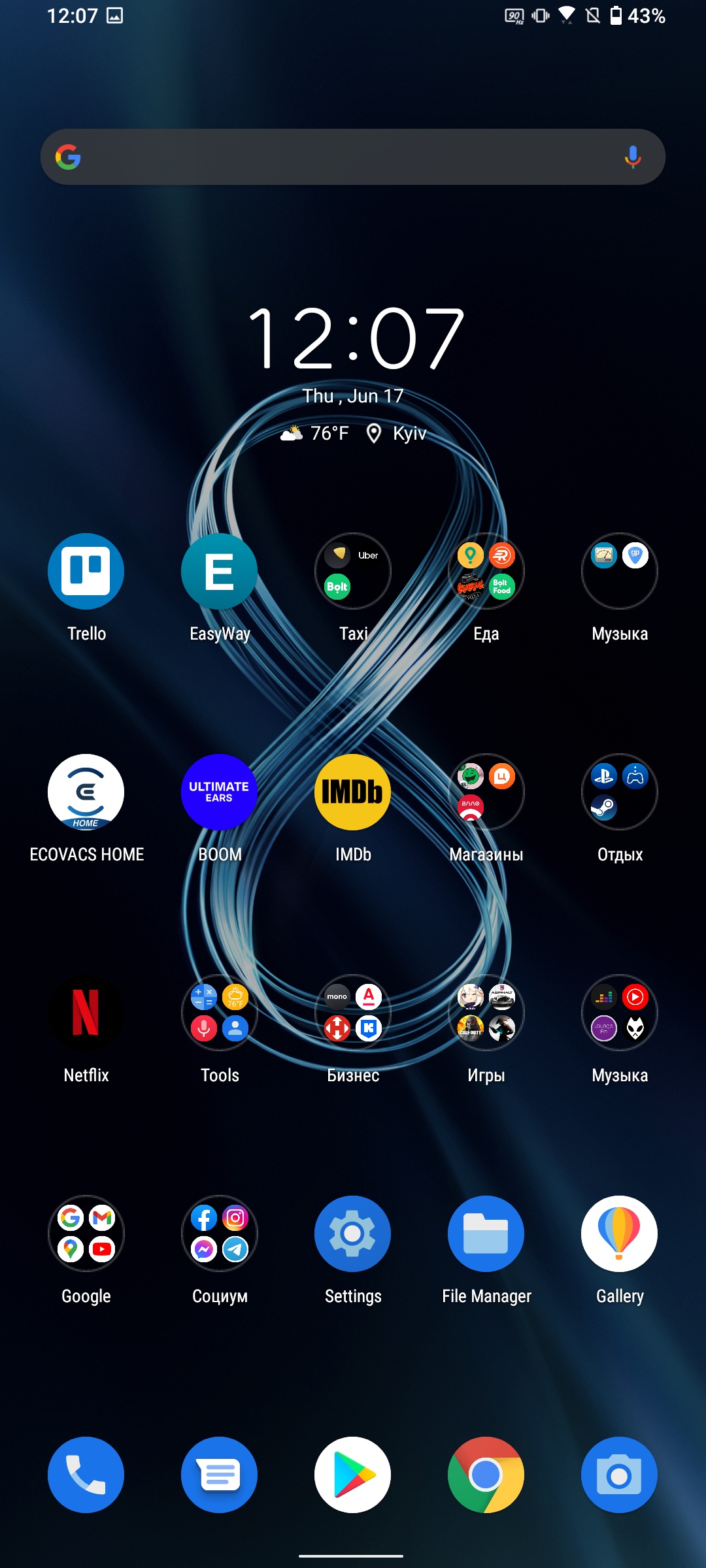
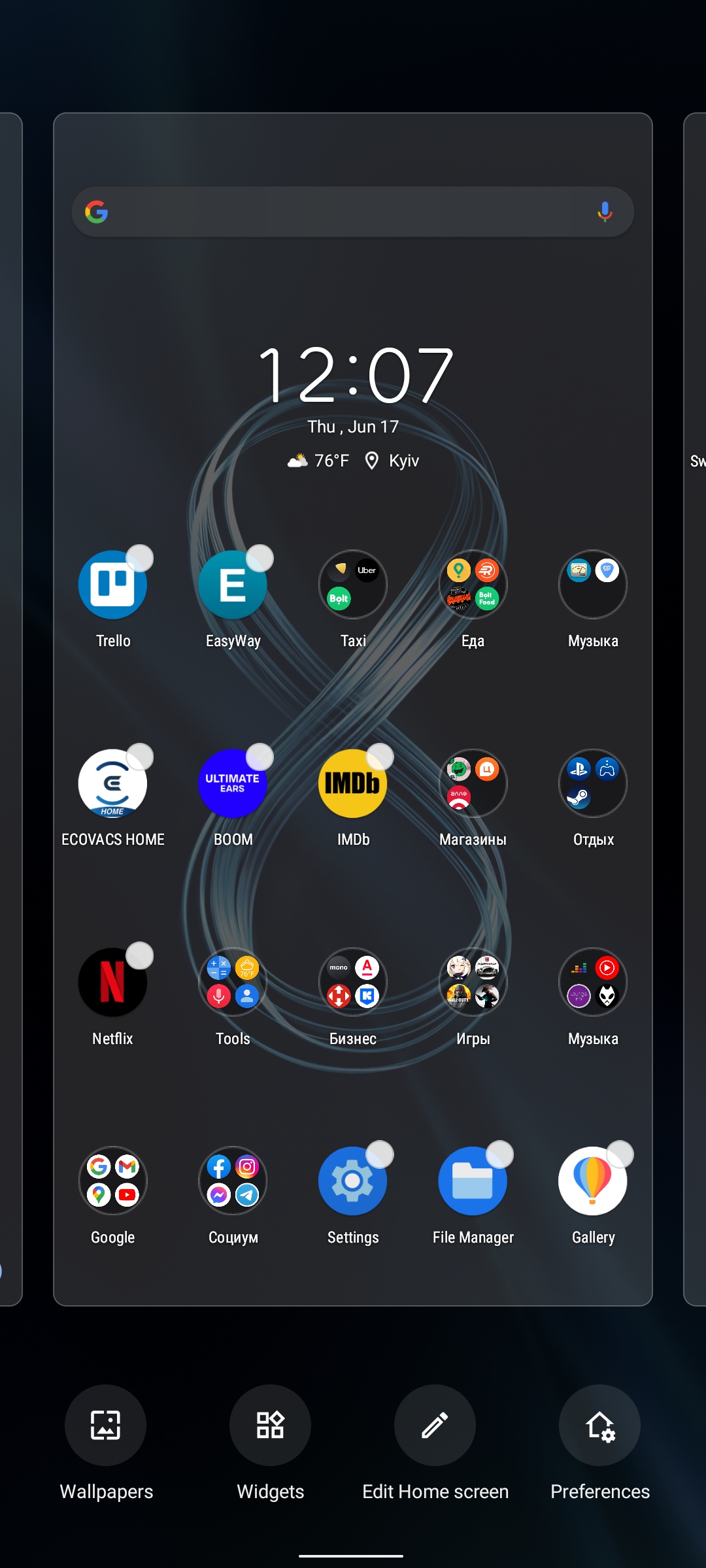
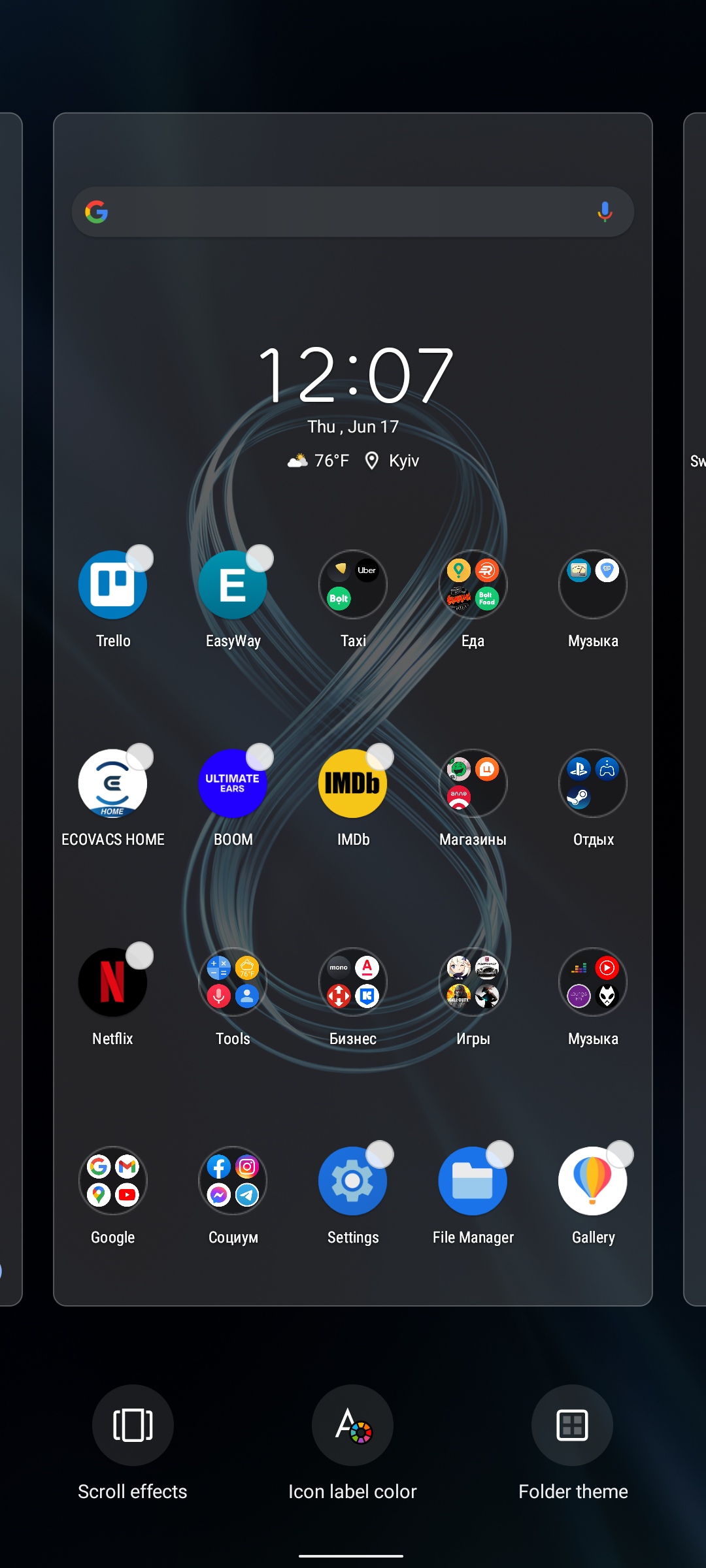
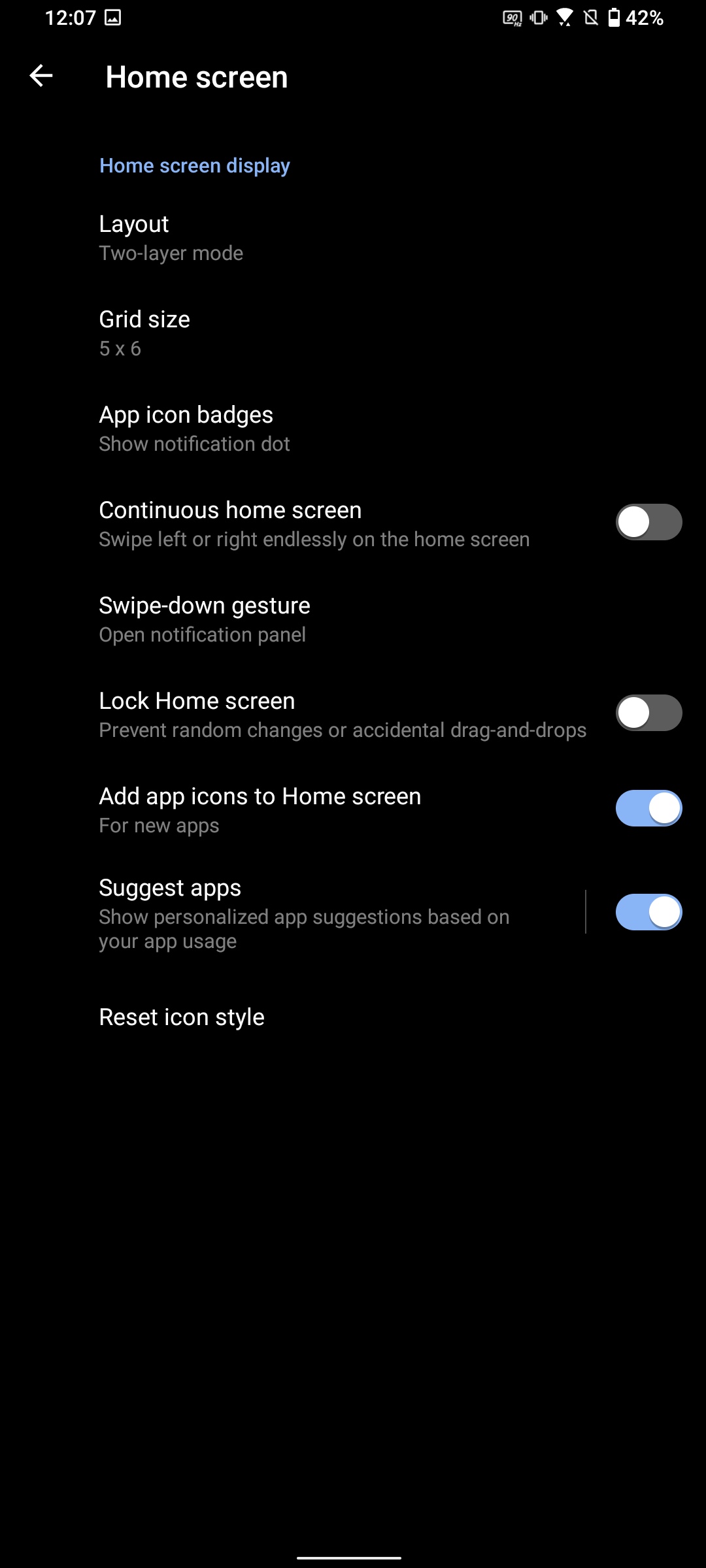
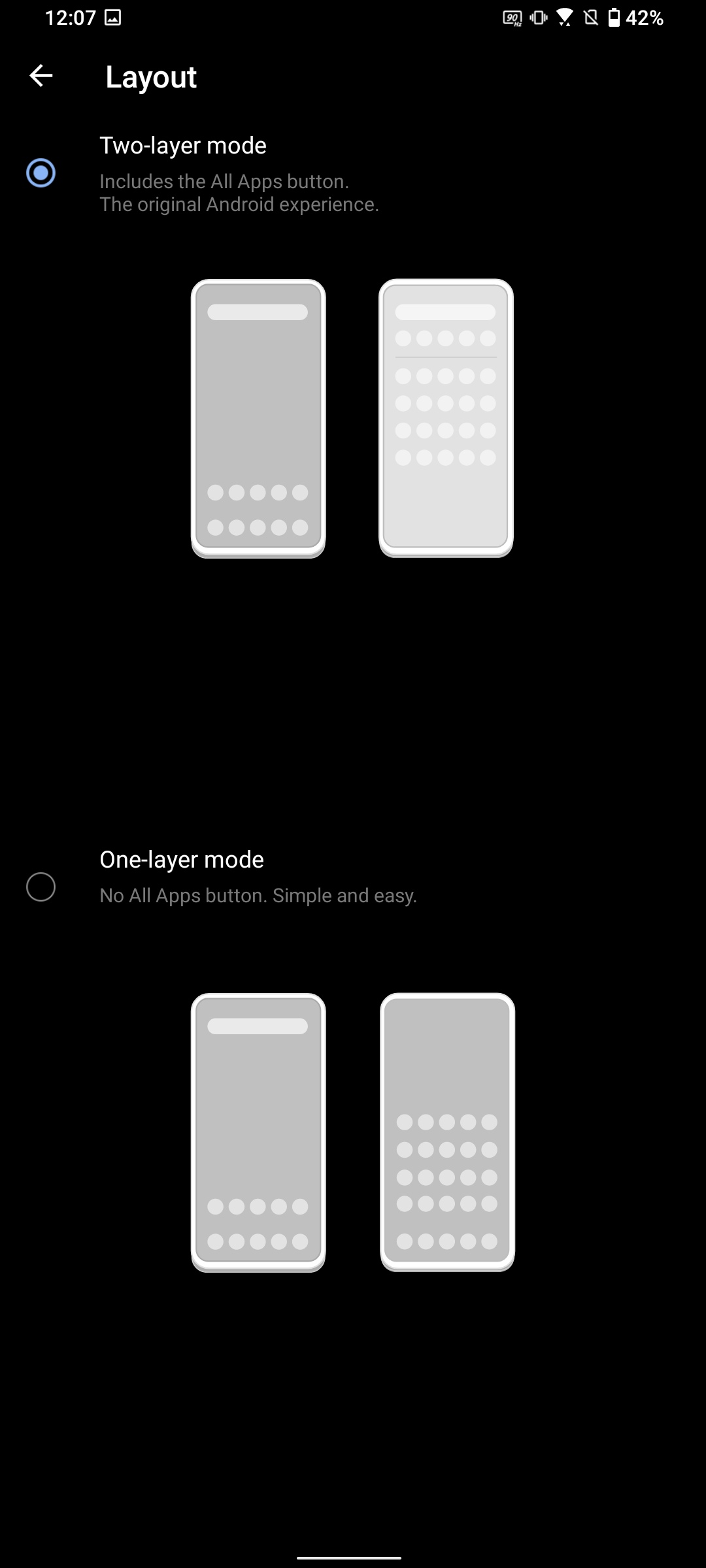
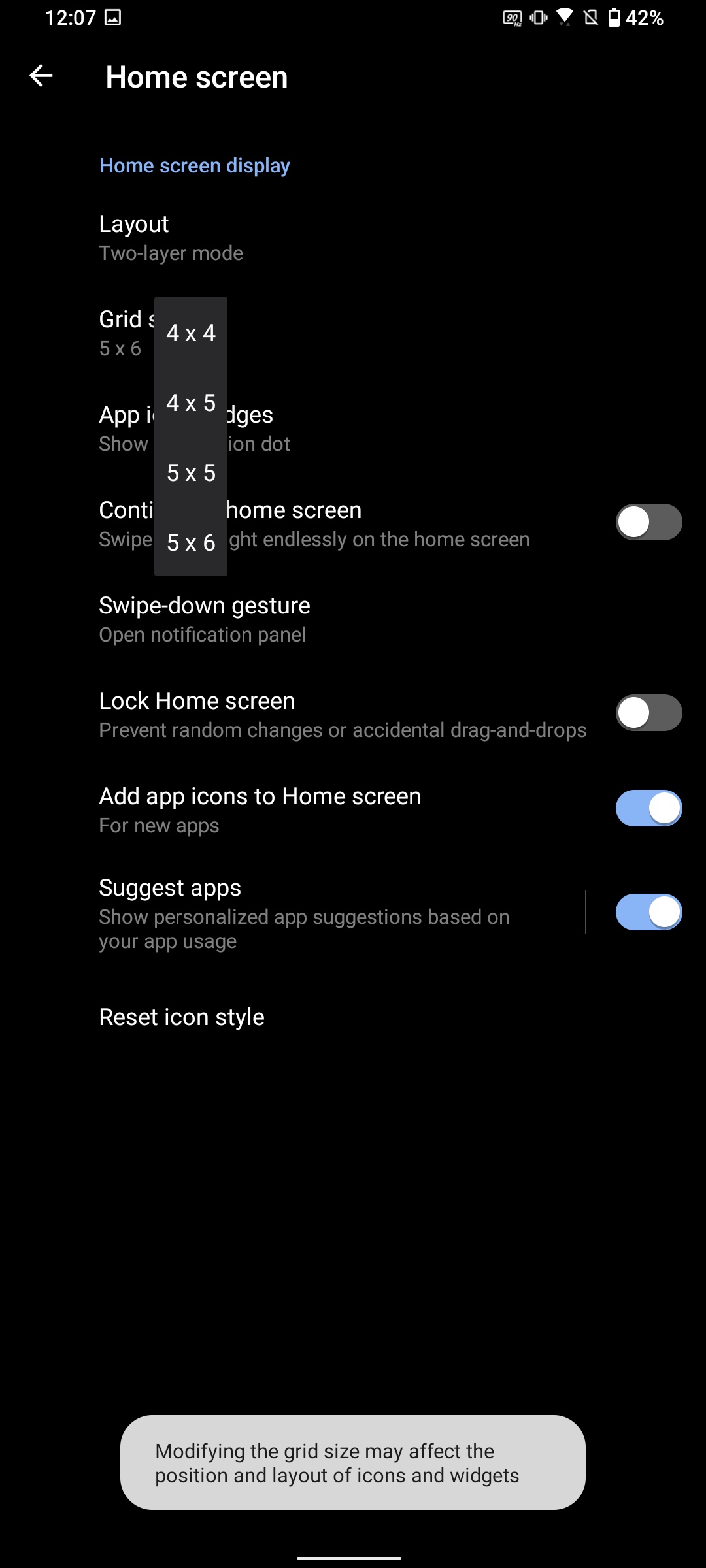
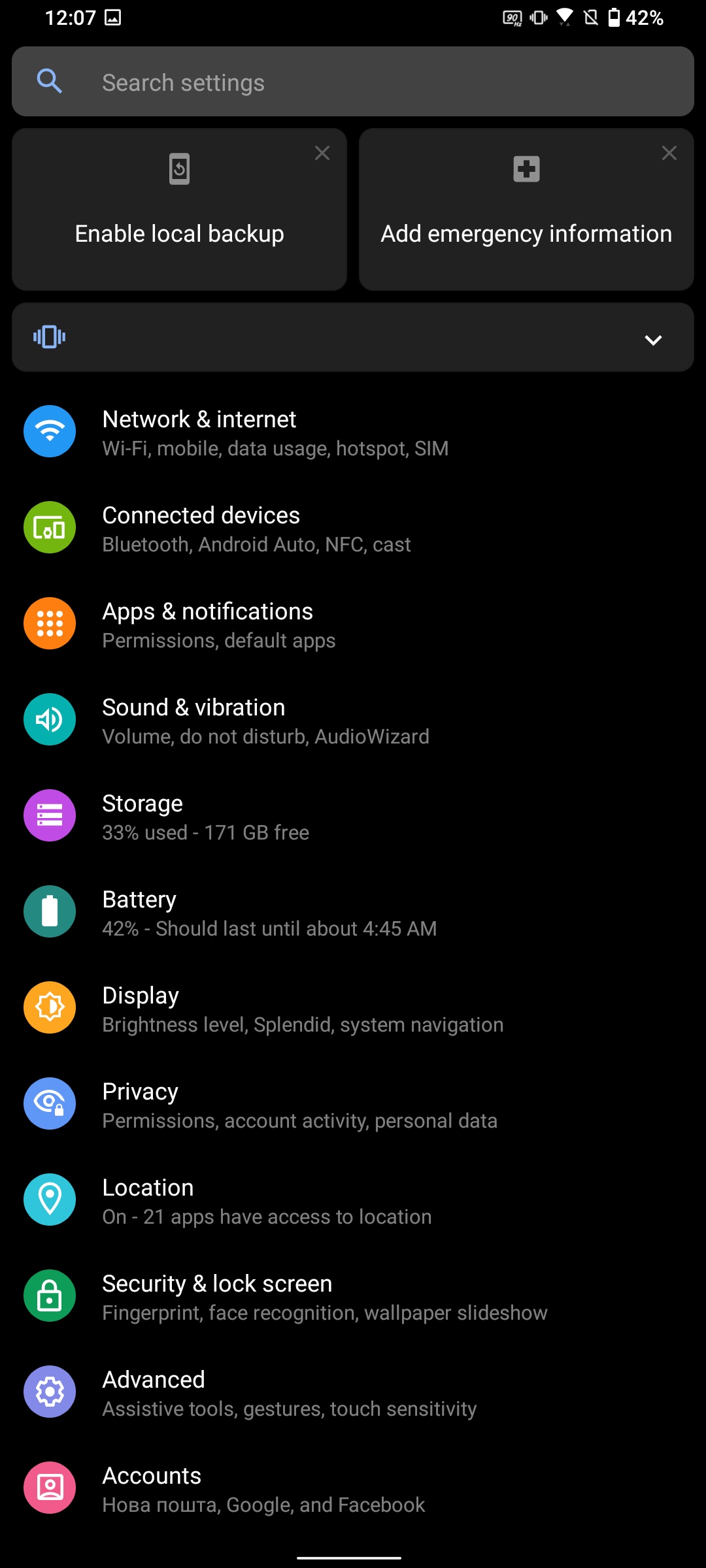
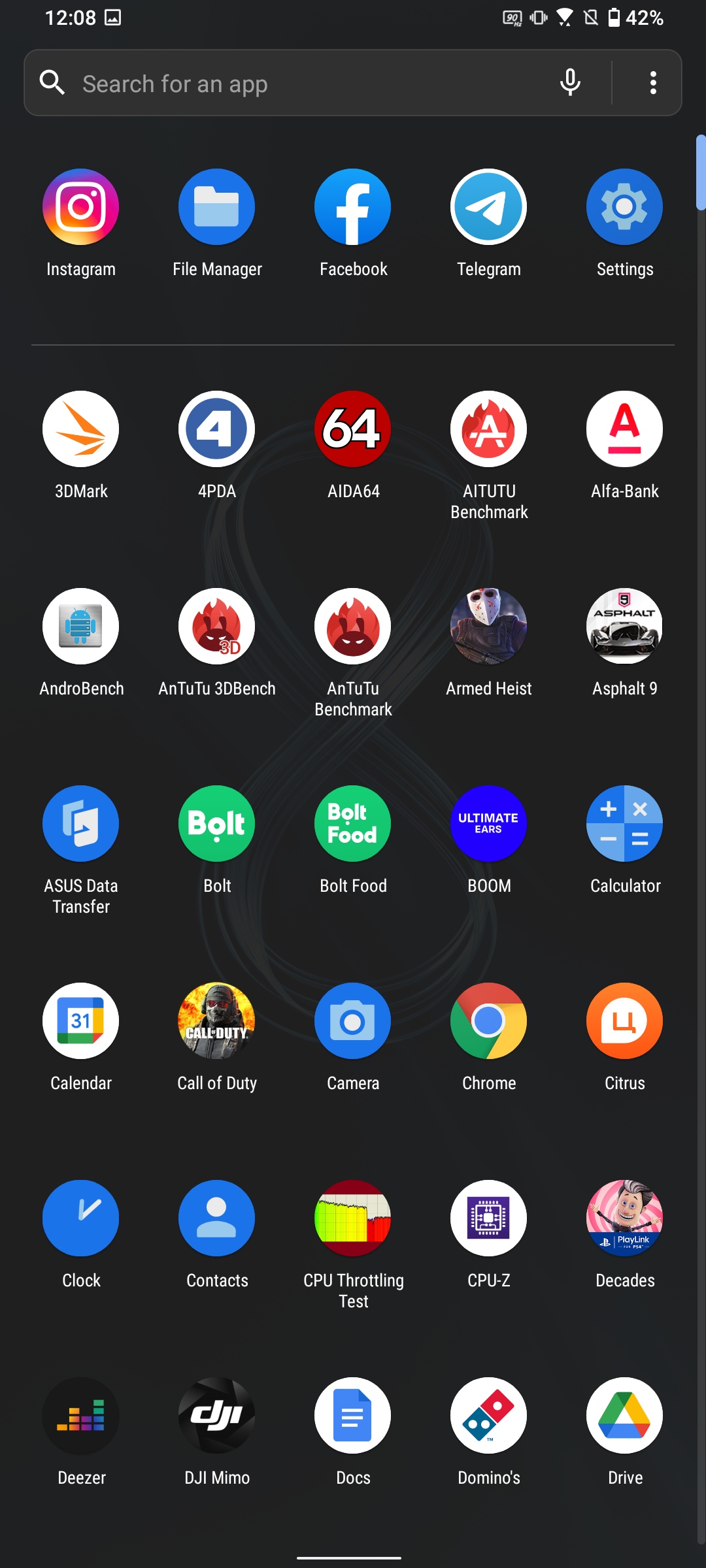

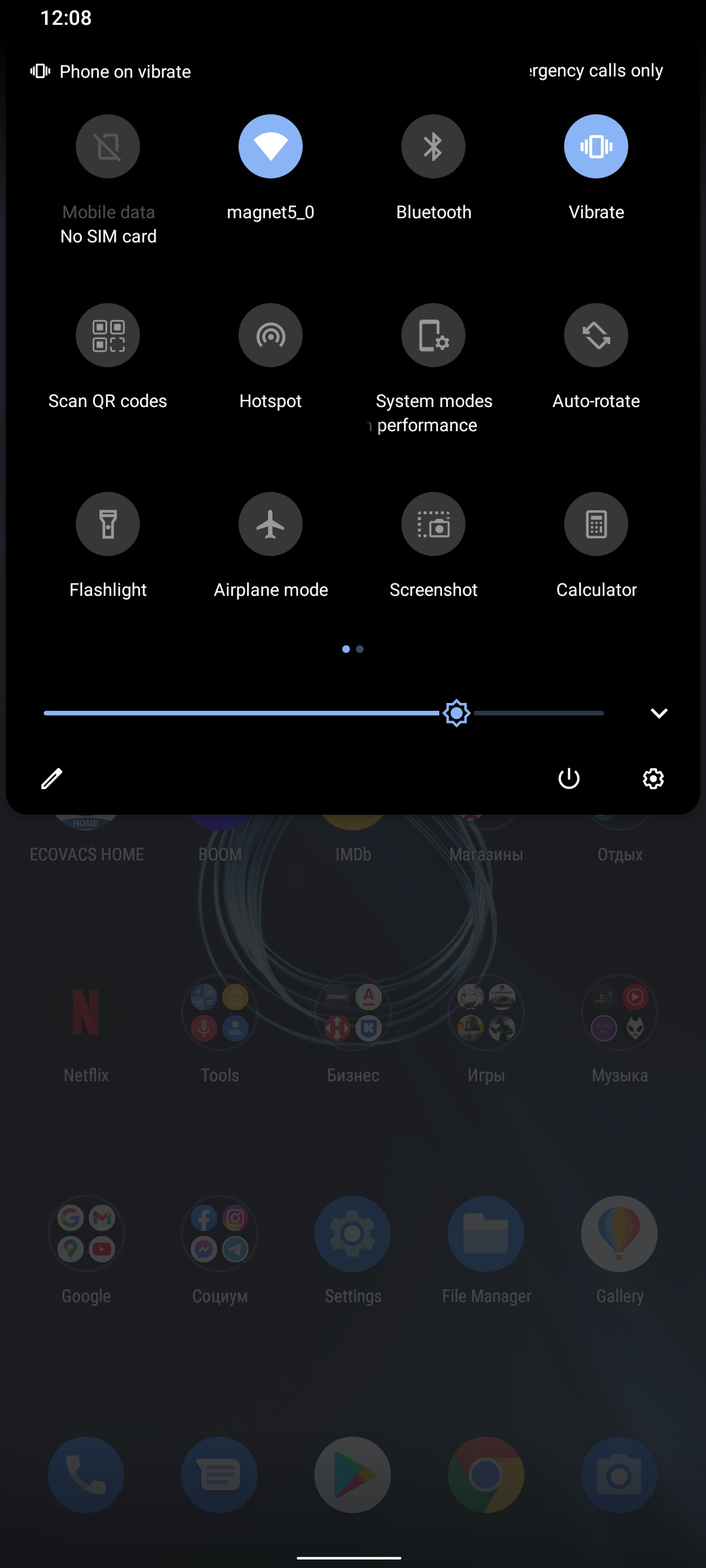
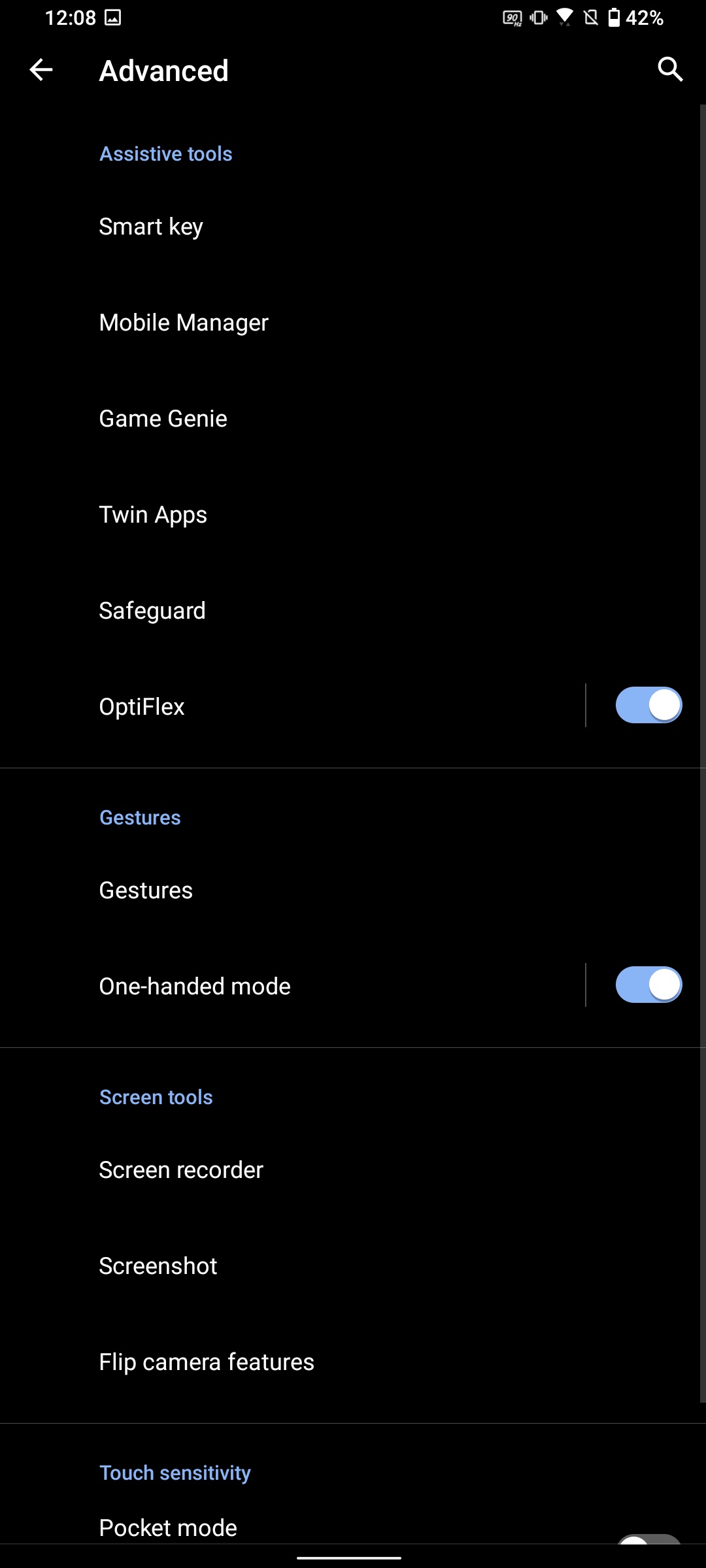
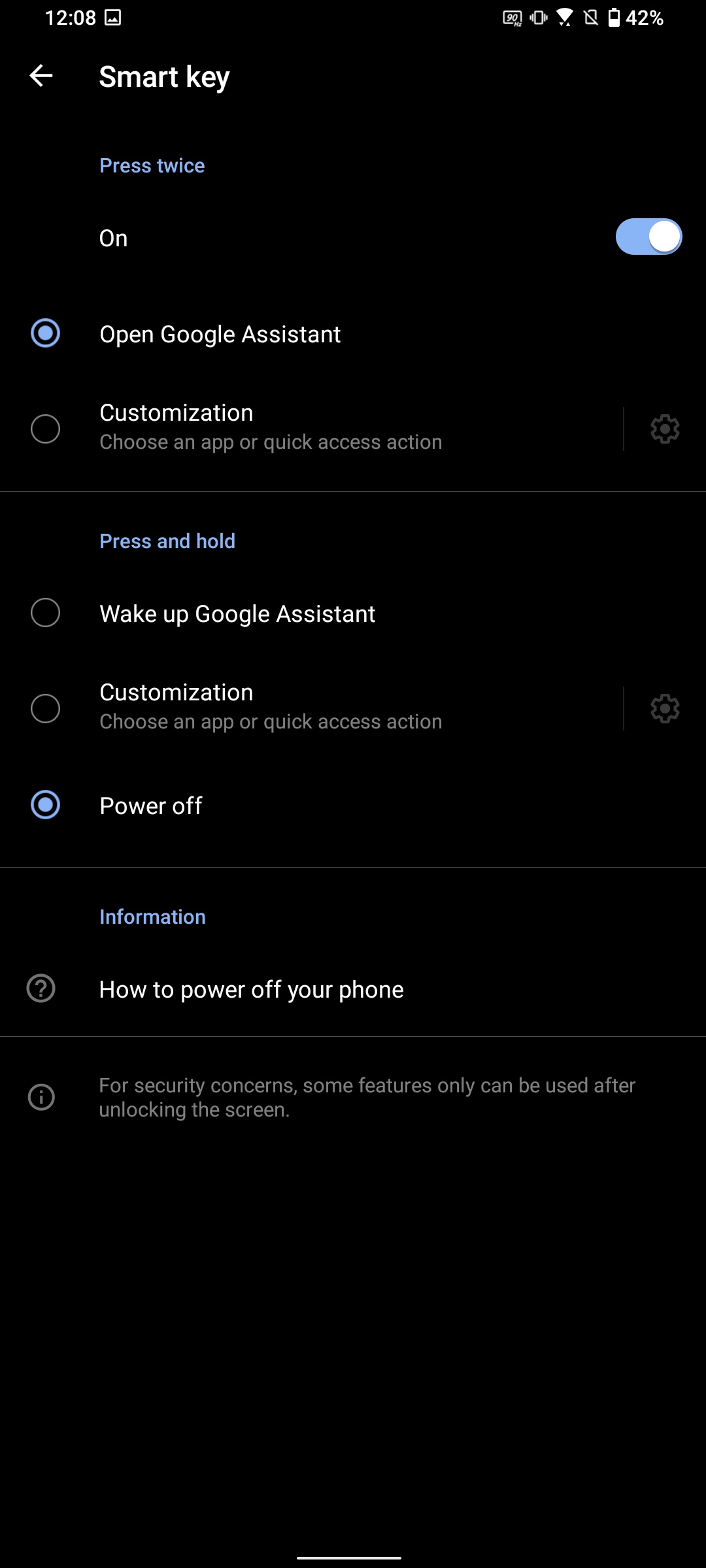
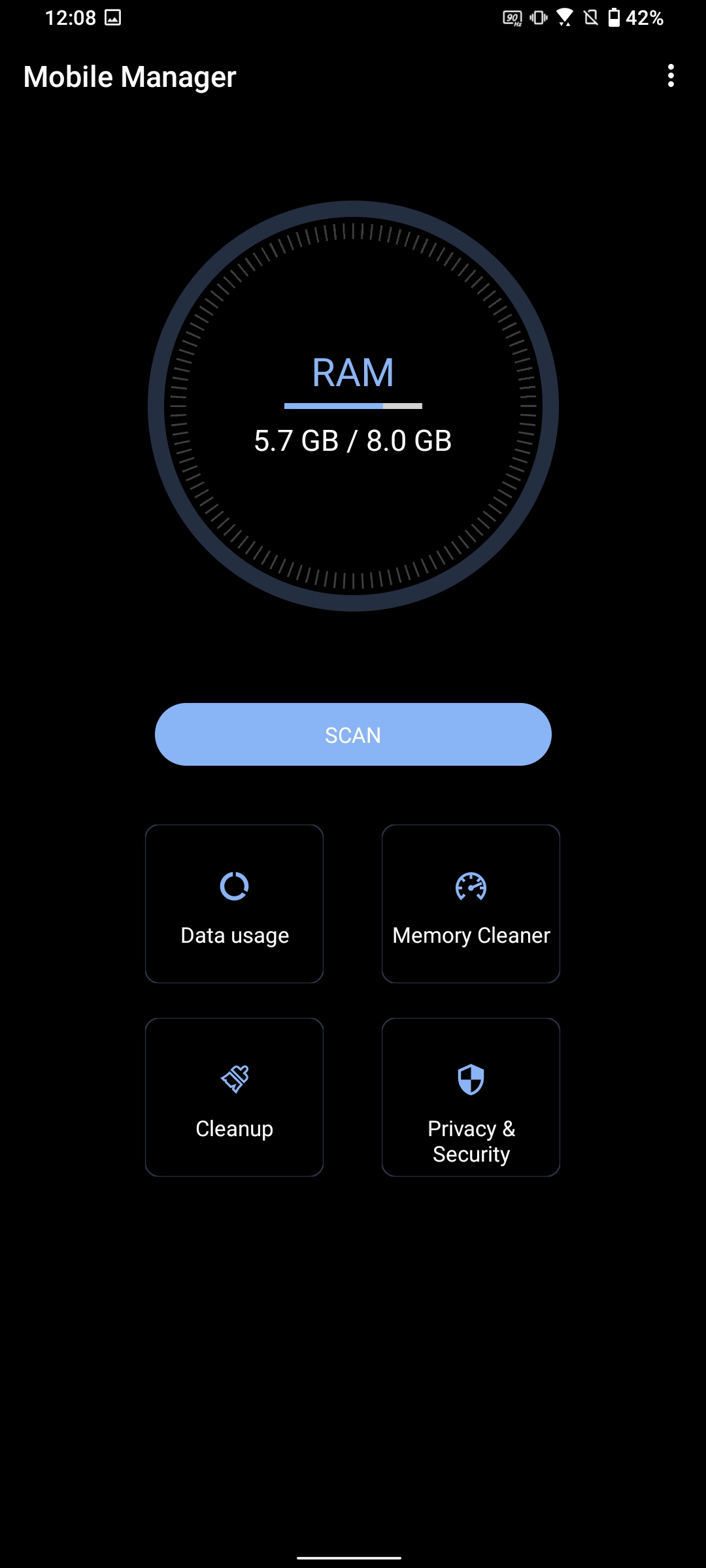
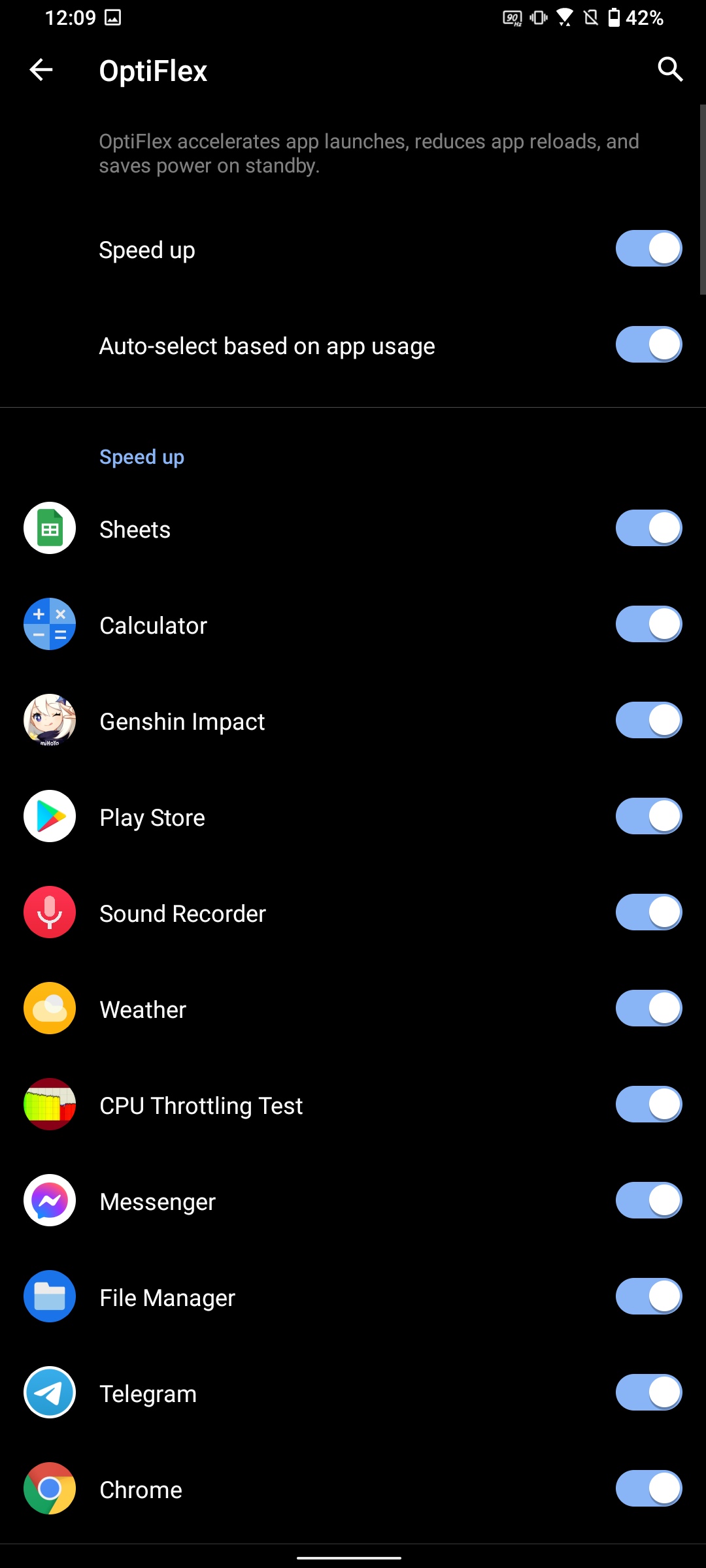
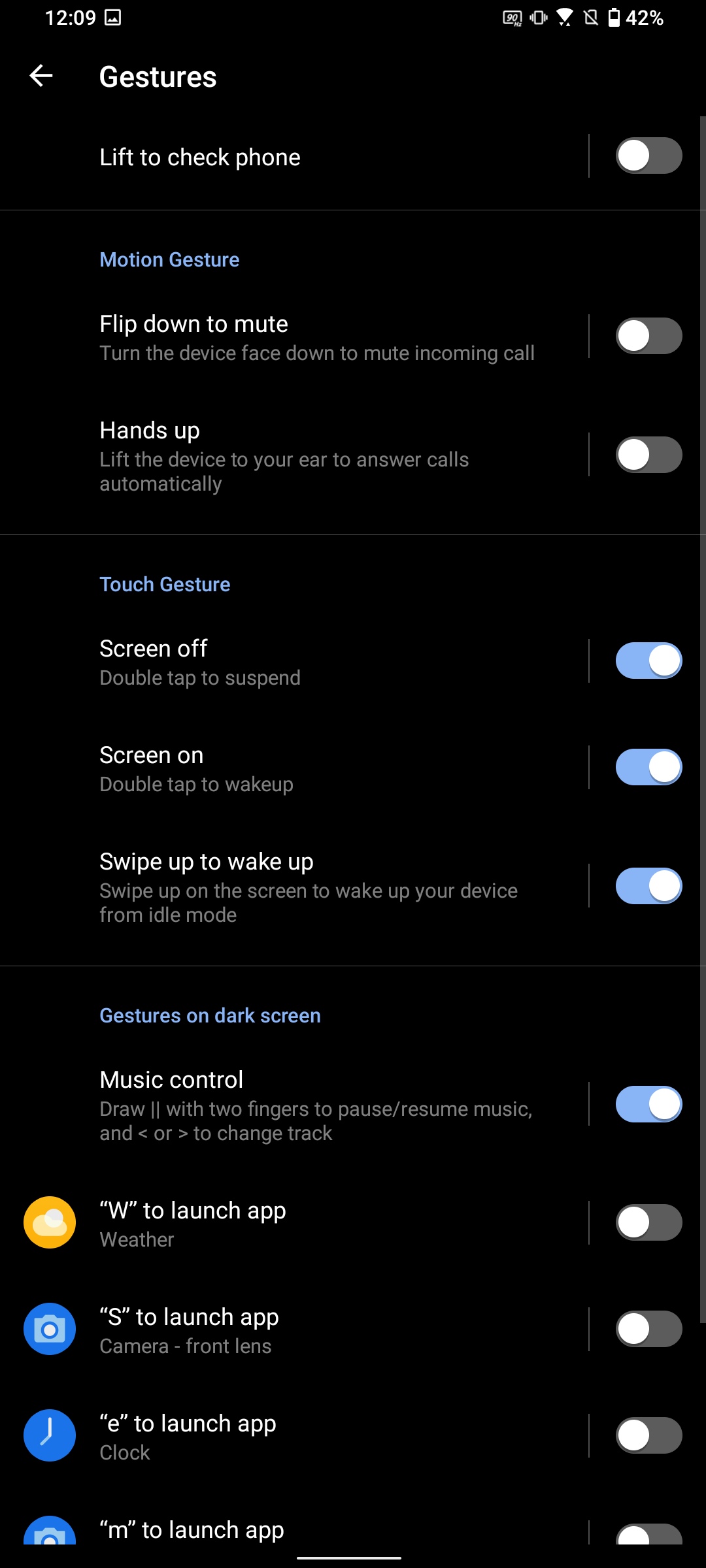
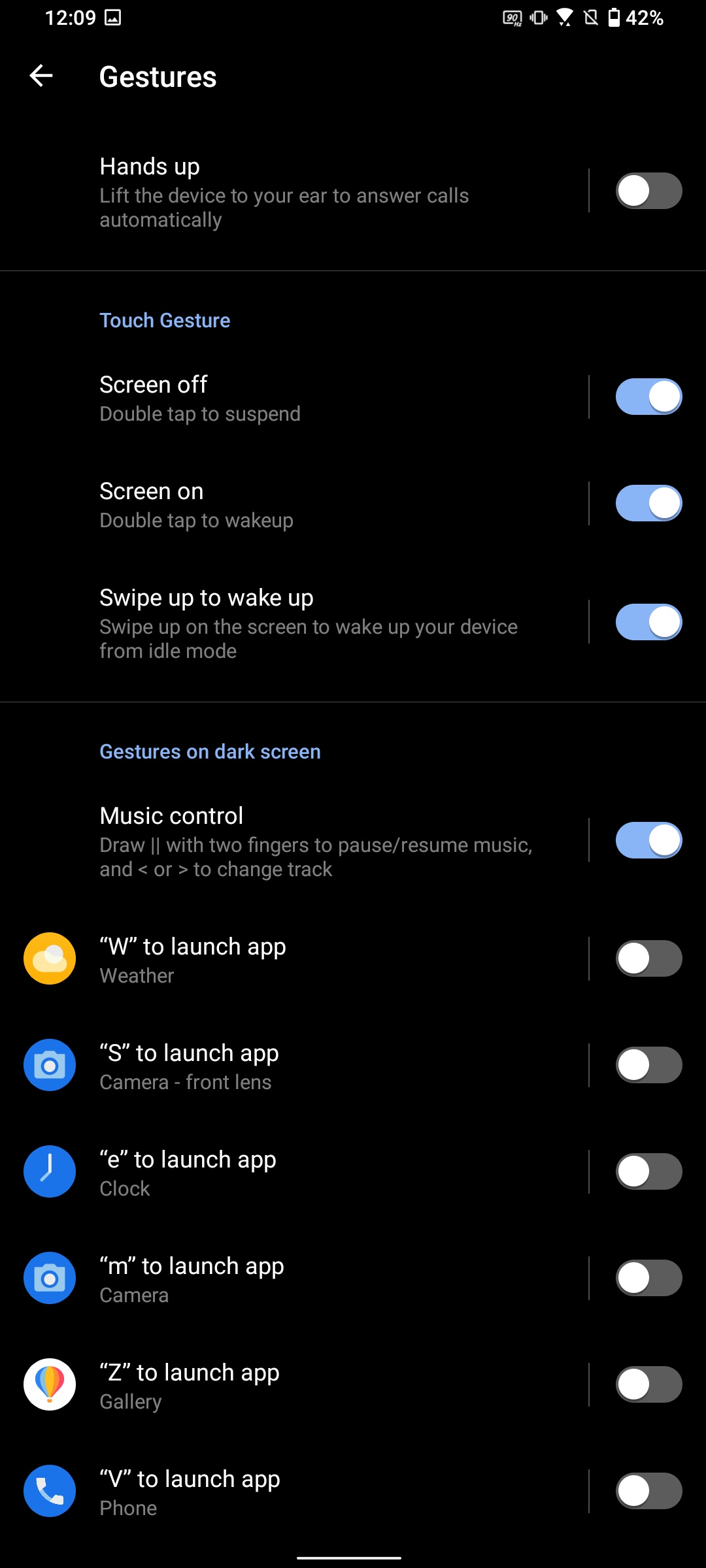
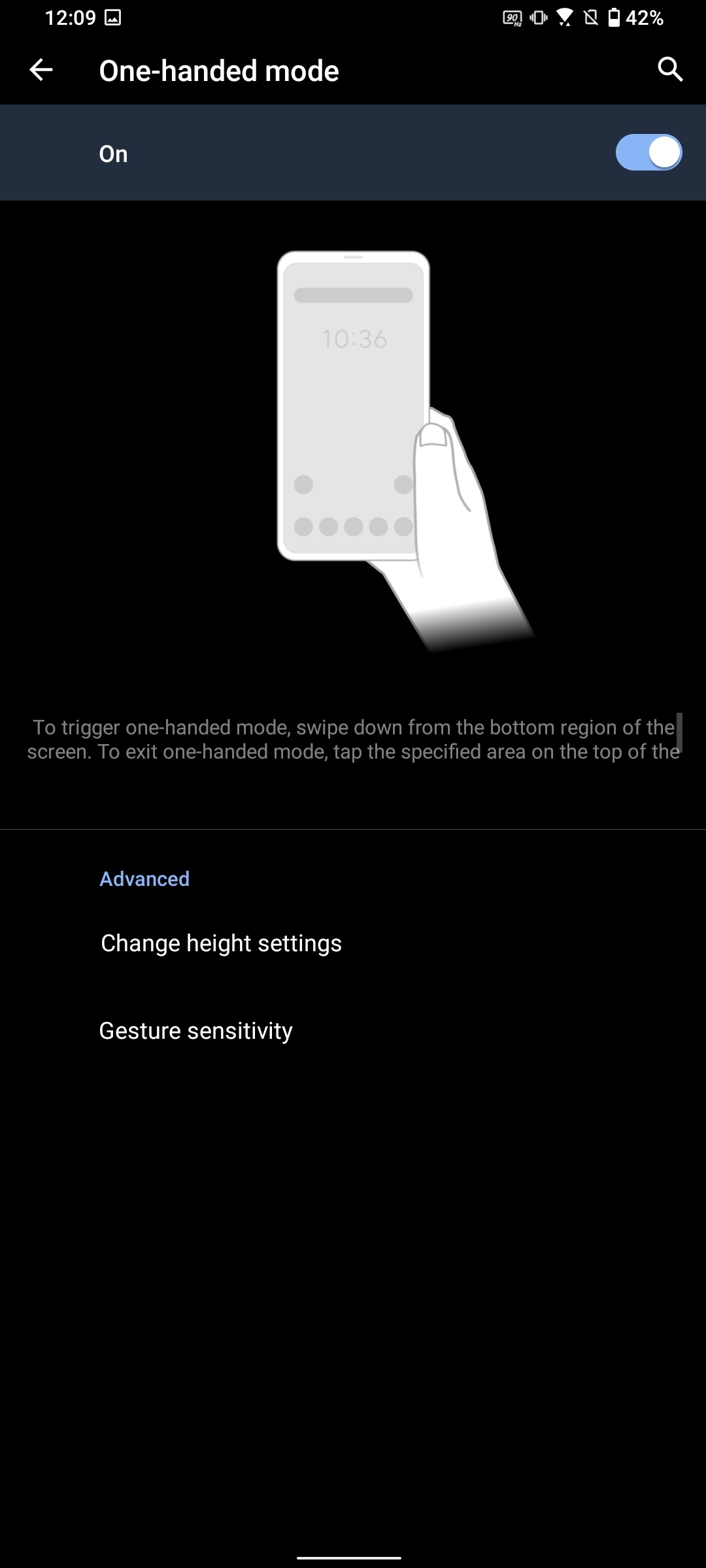
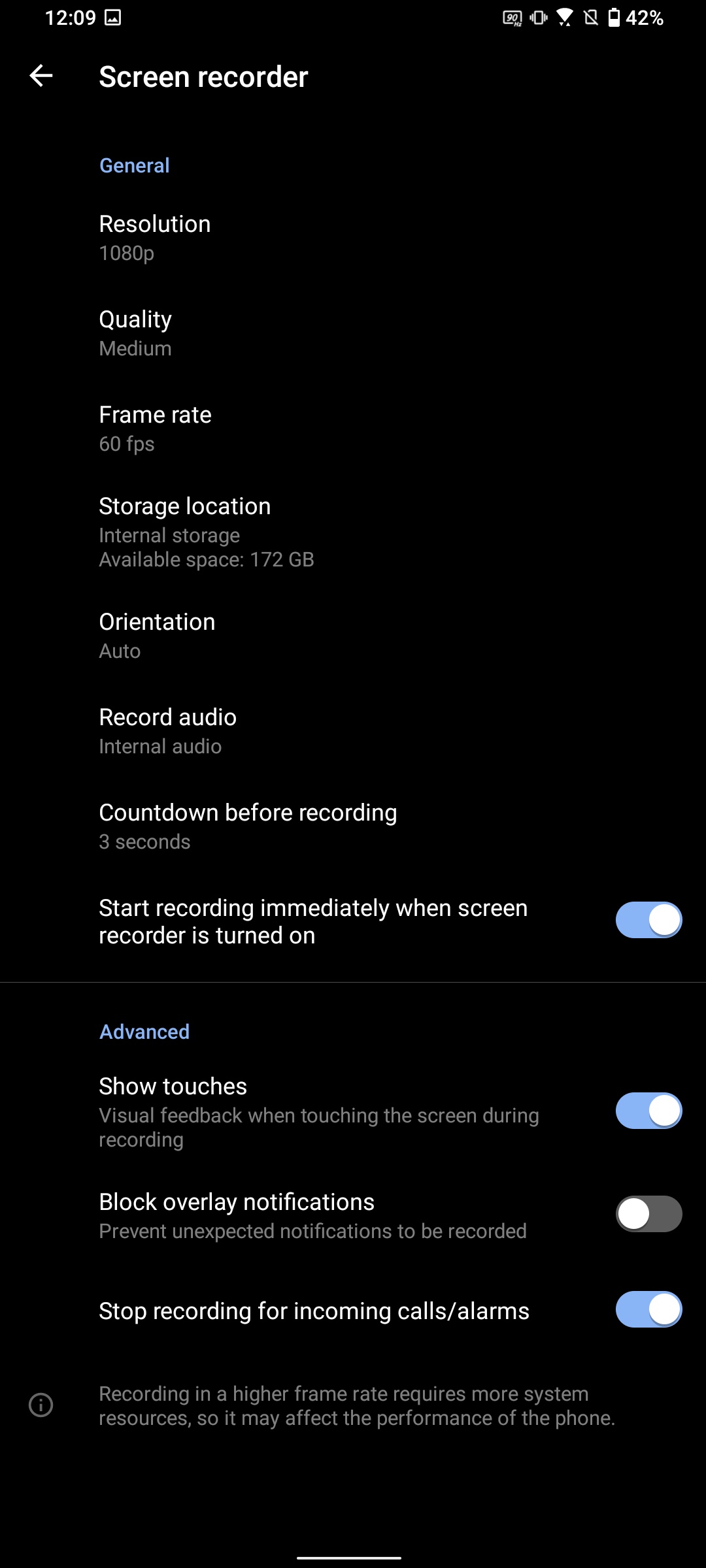
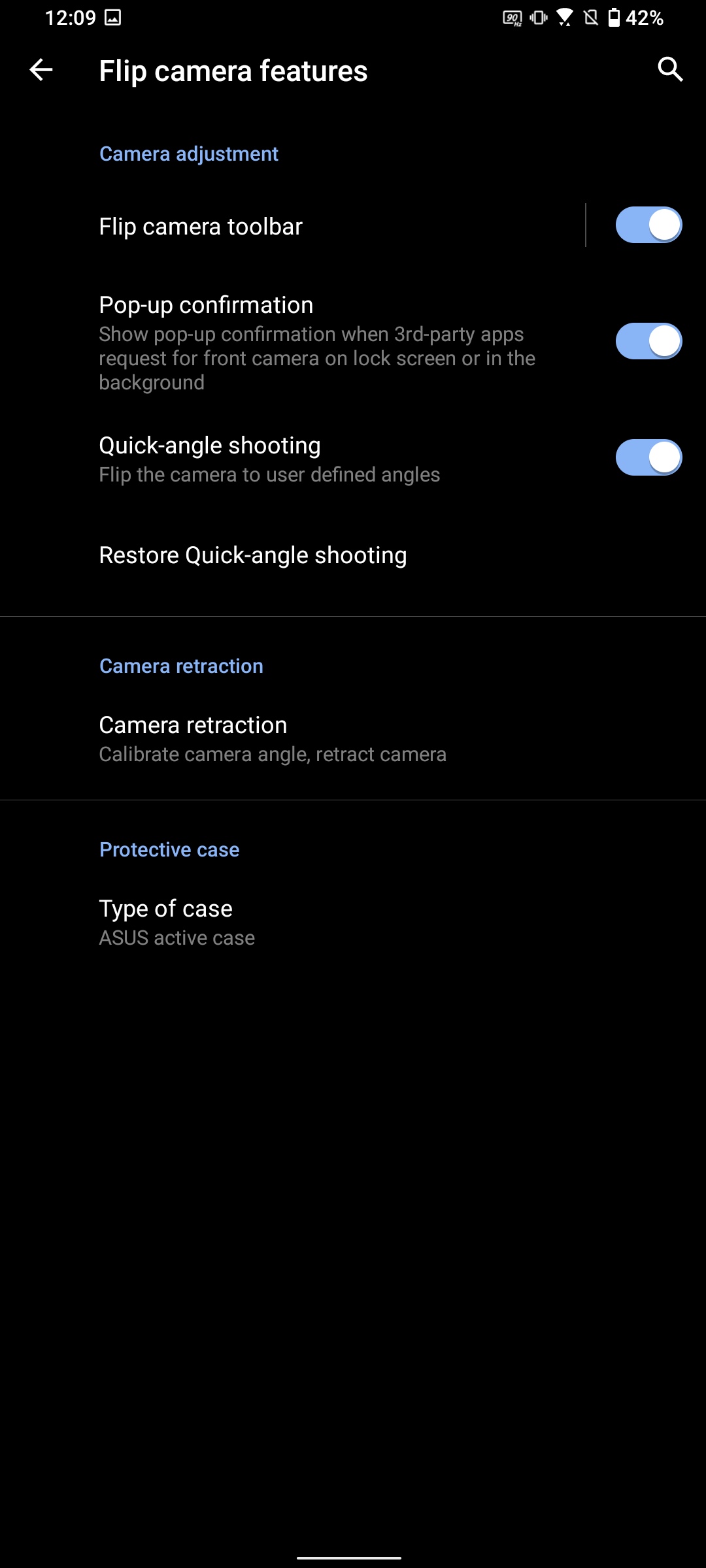
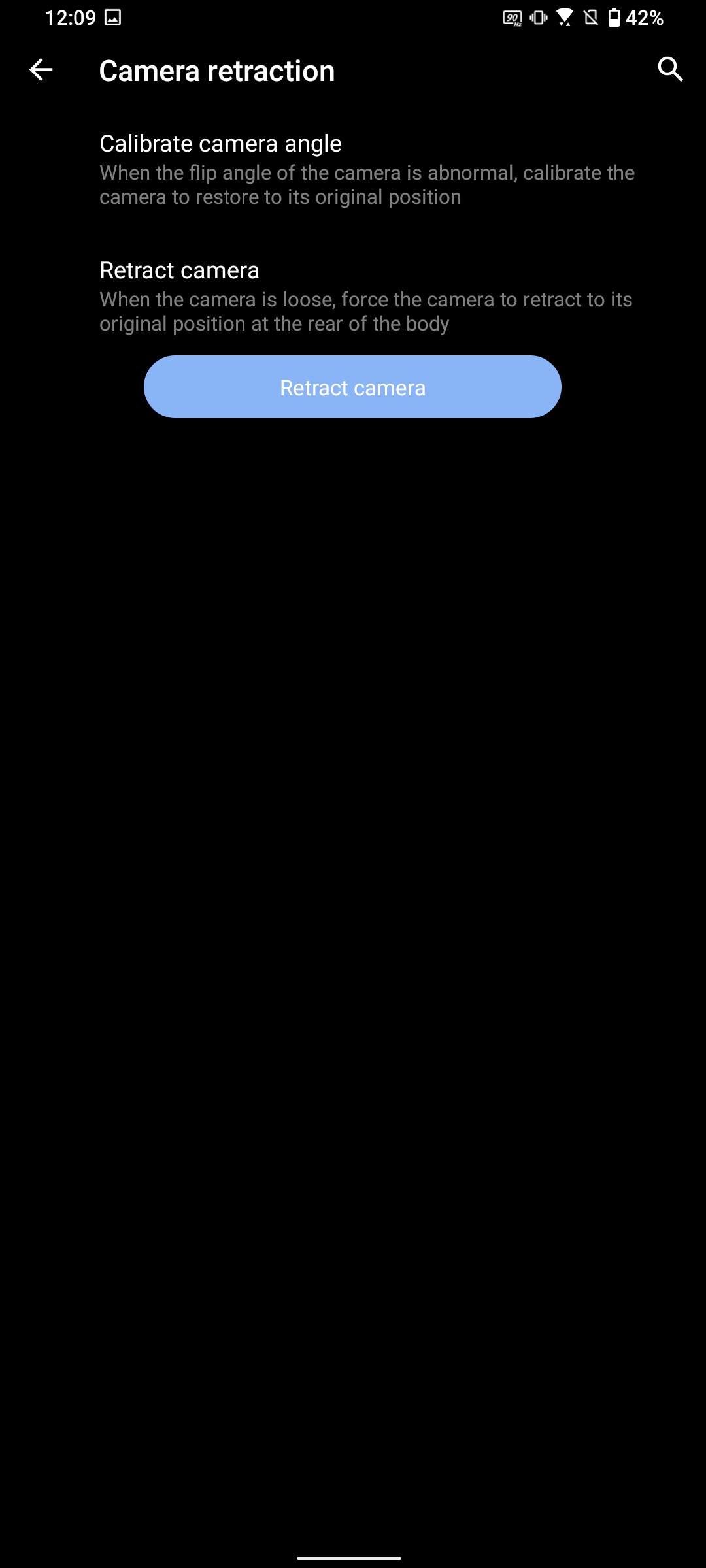
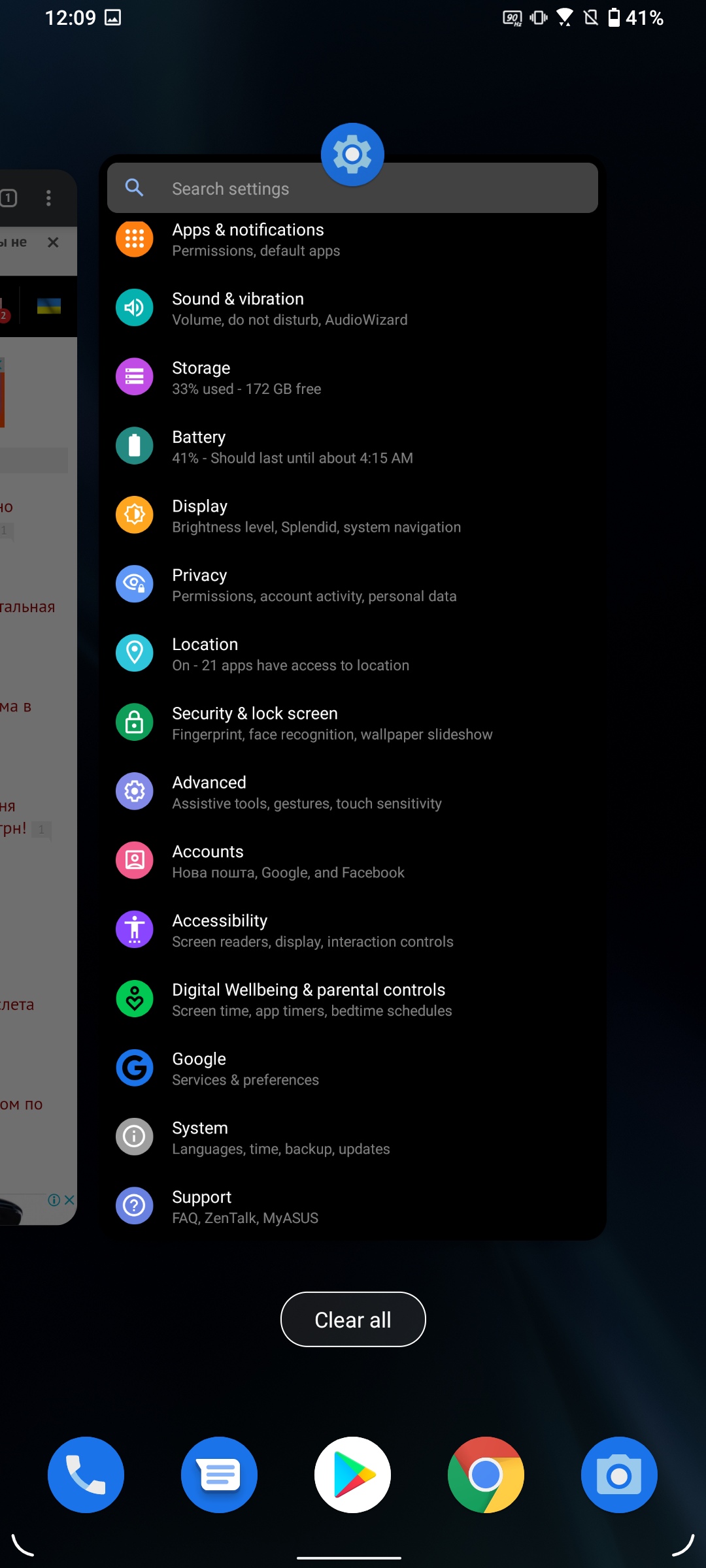
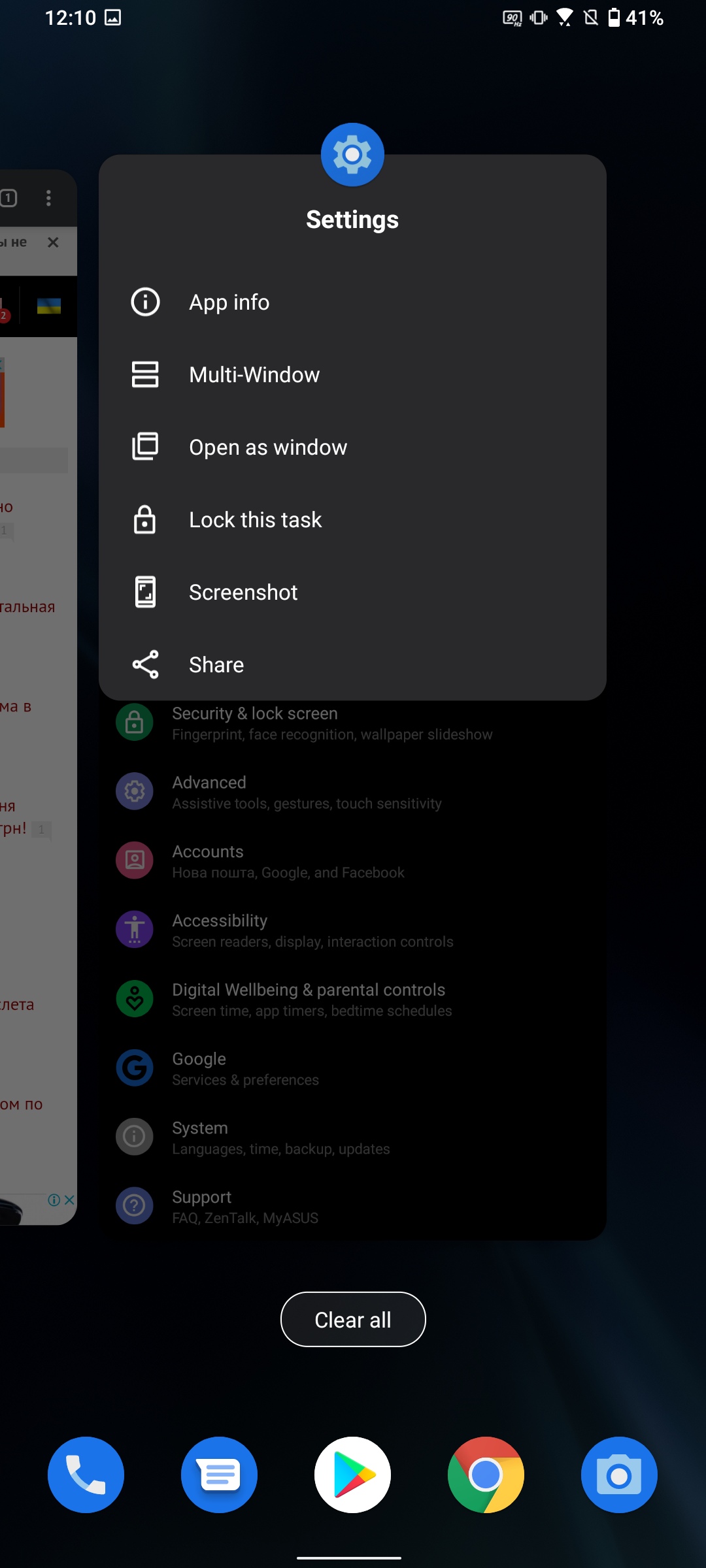
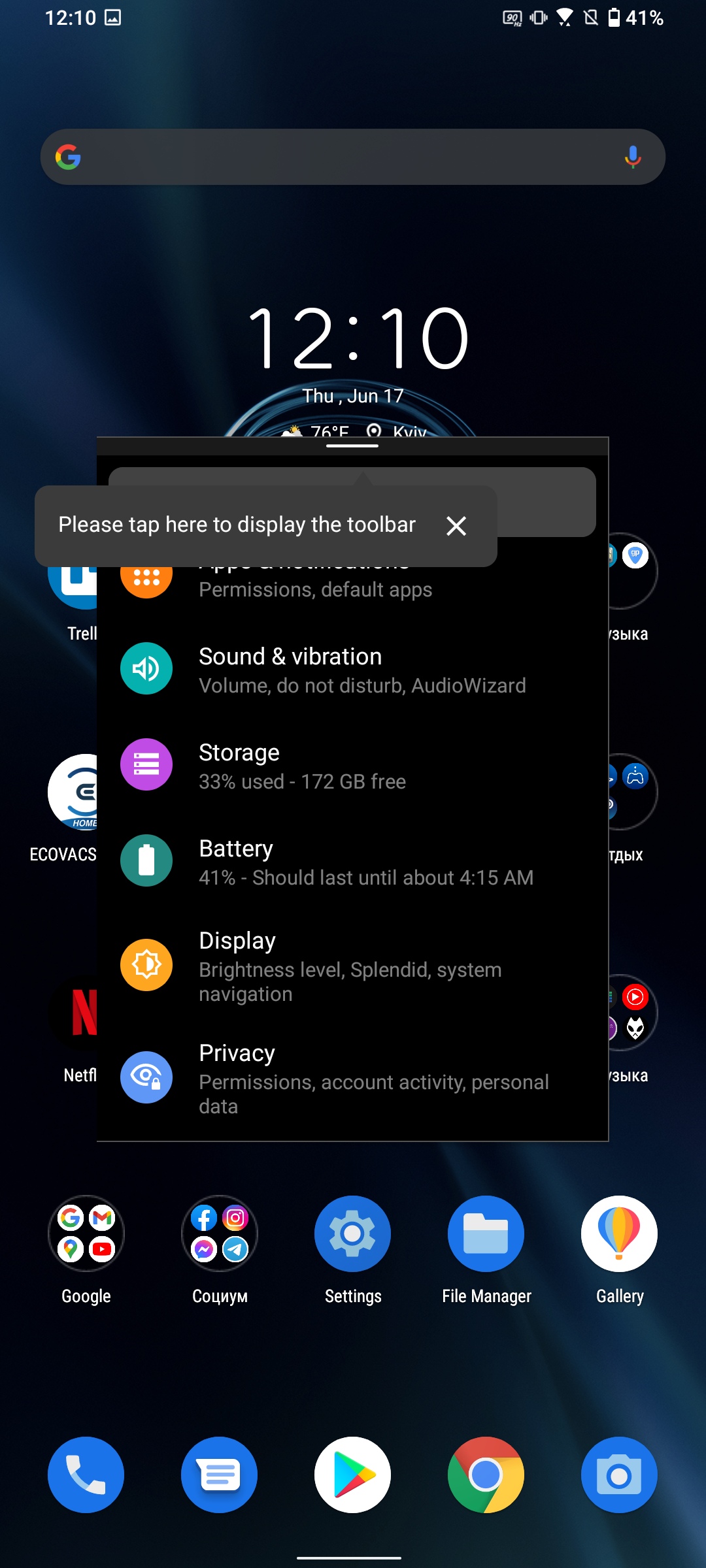
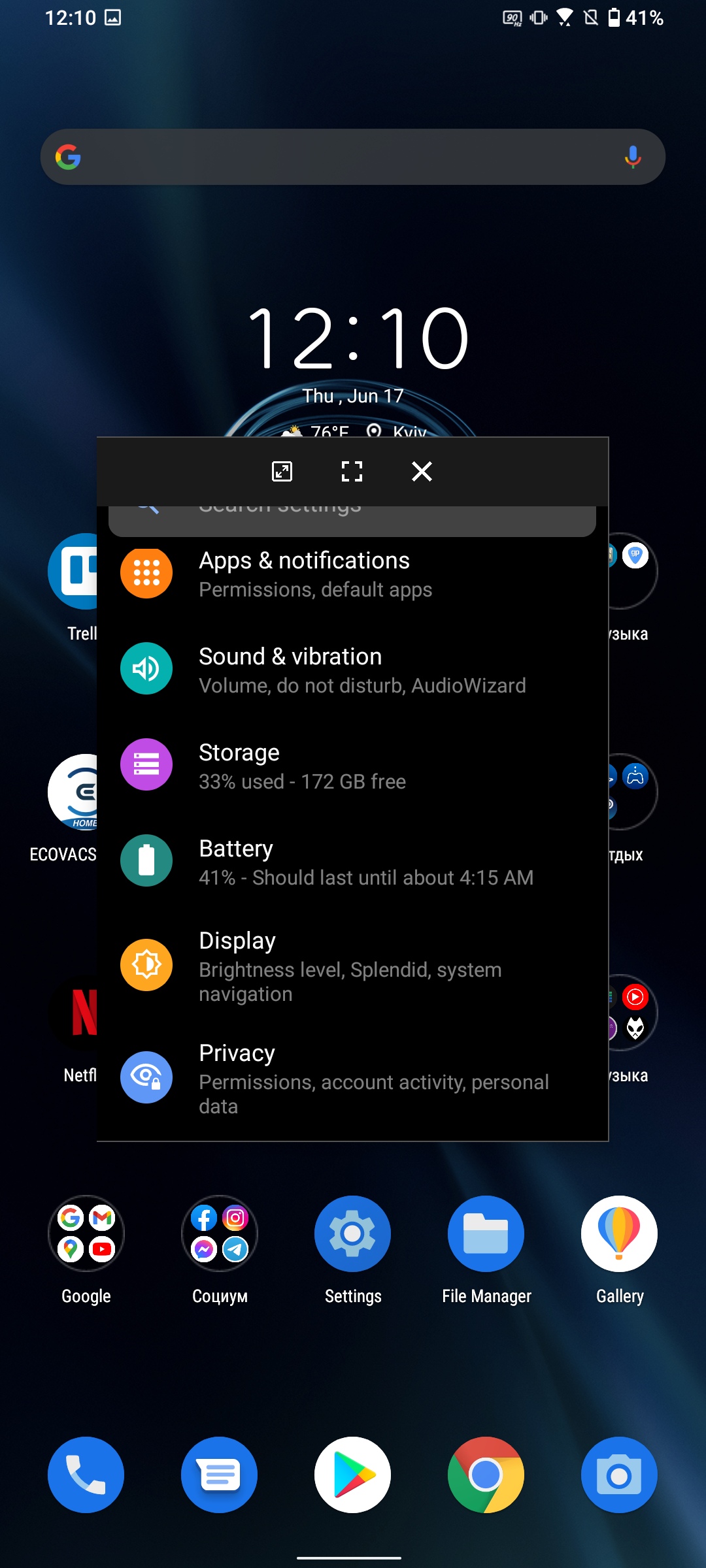
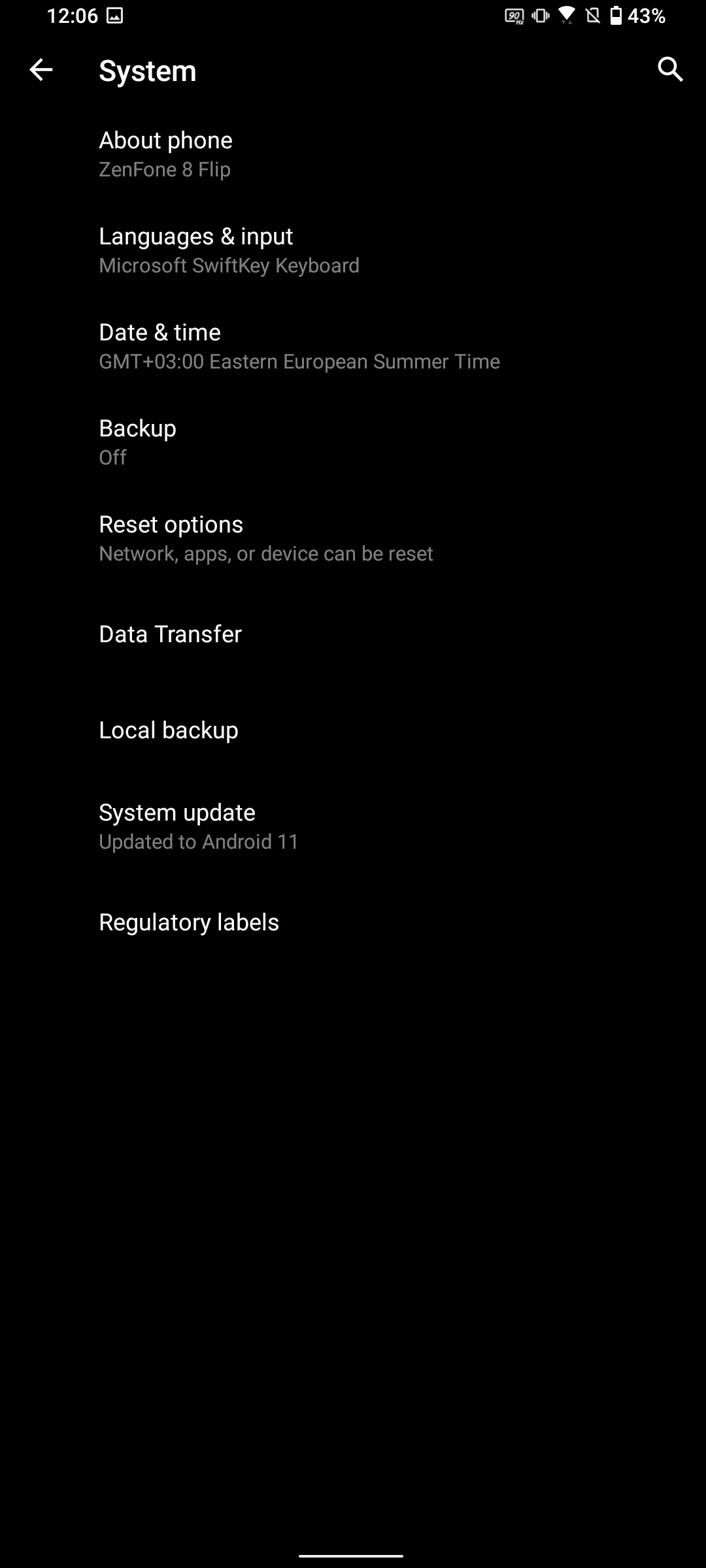
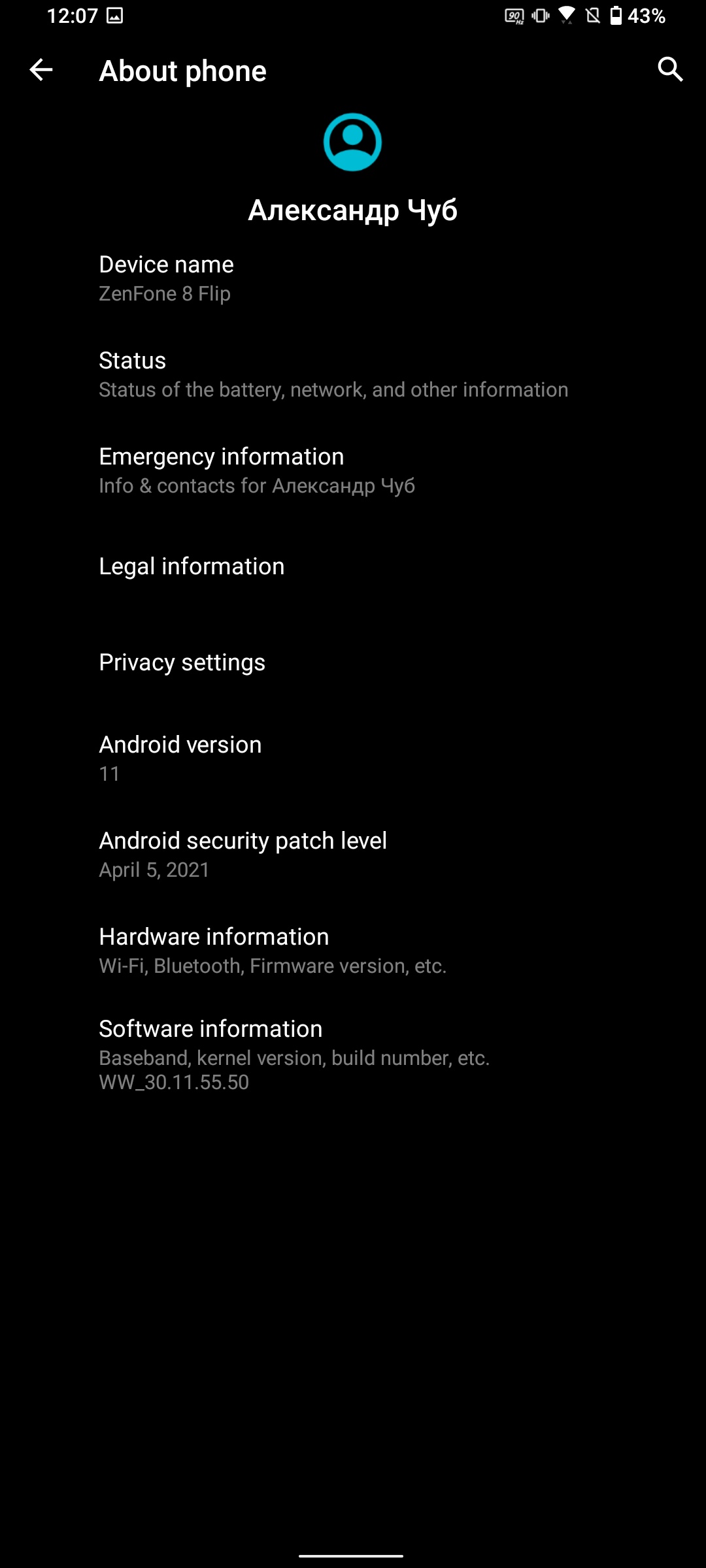
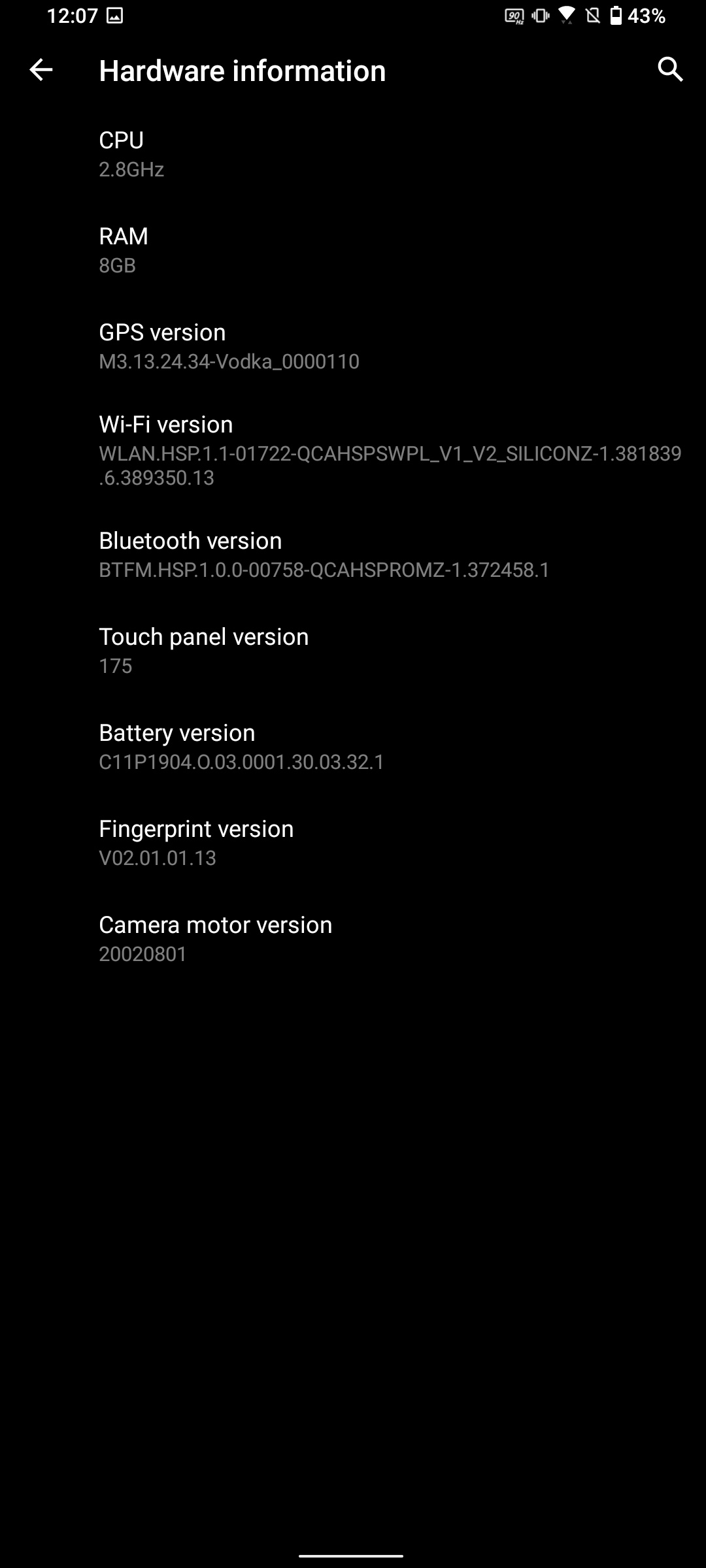
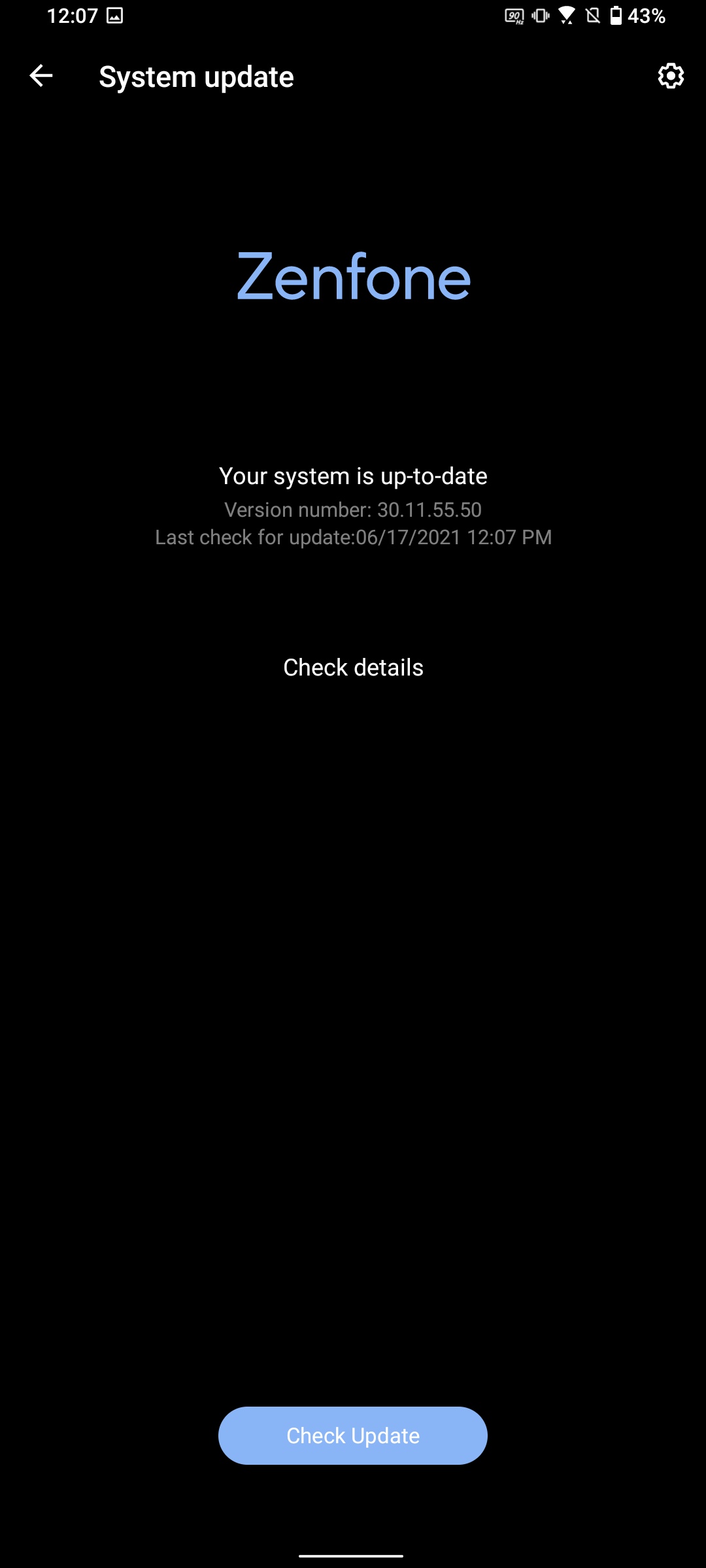

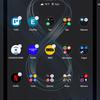
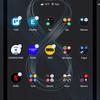
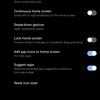
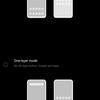
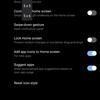



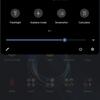


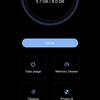



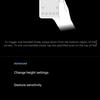
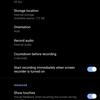


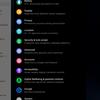

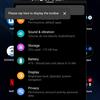
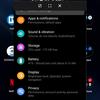




Additionally, there is a decent quantity of control gestures (including on the screen off), one-handed control mode and a "smart key" function. Extra functions can be assigned to the power button. The application manager is familiar in functionality and appearance. It is possible to open applications in a window or in split screen mode.
The set of stock applications is very small. Only the essentials: a file manager, a manager for optimising your smartphone, a calculator and a voice recorder. Not even a music player. But there is an application for transferring data ASUS Data Transfer, which works extremely convenient and fast. All data donor-smartphone creates in its own Wi-Fi network, through which everything is transmitted.
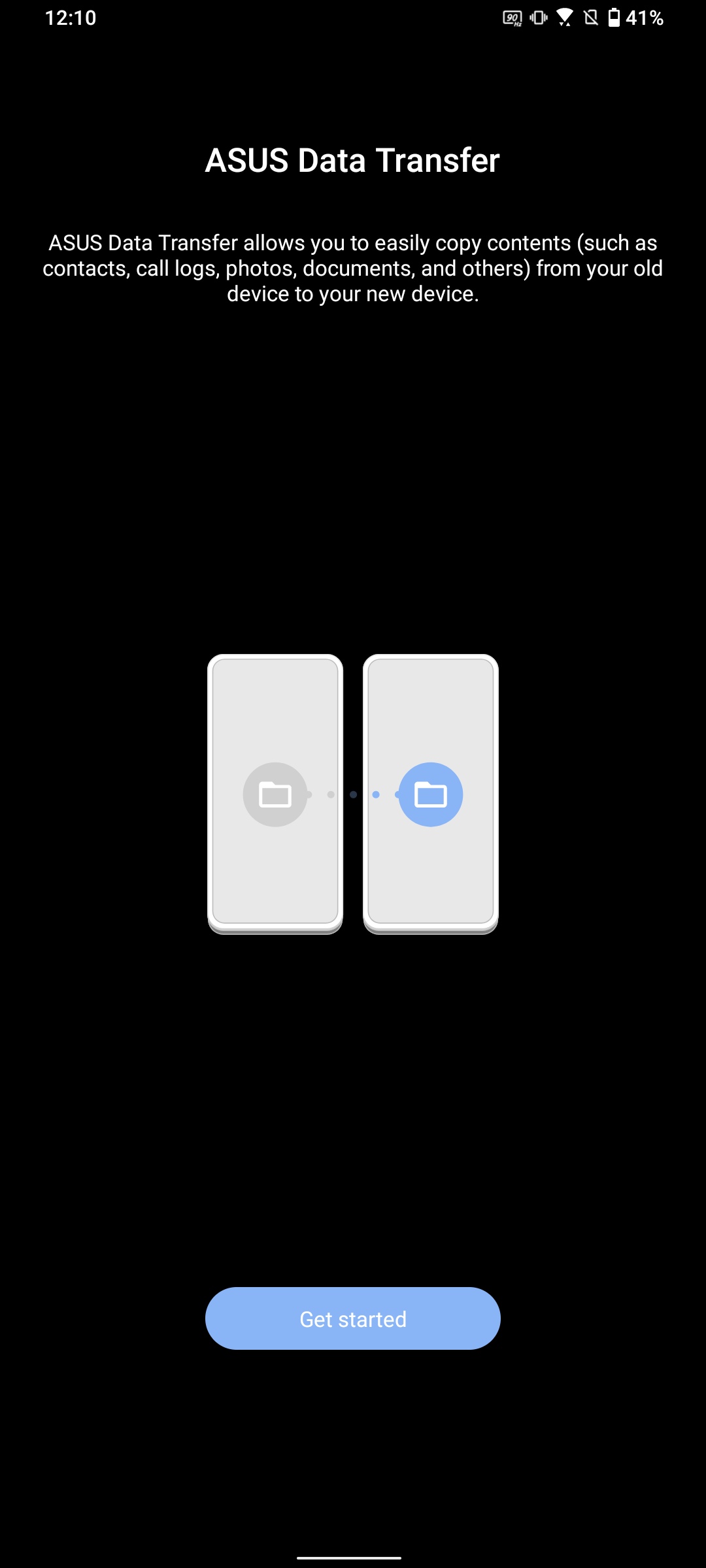
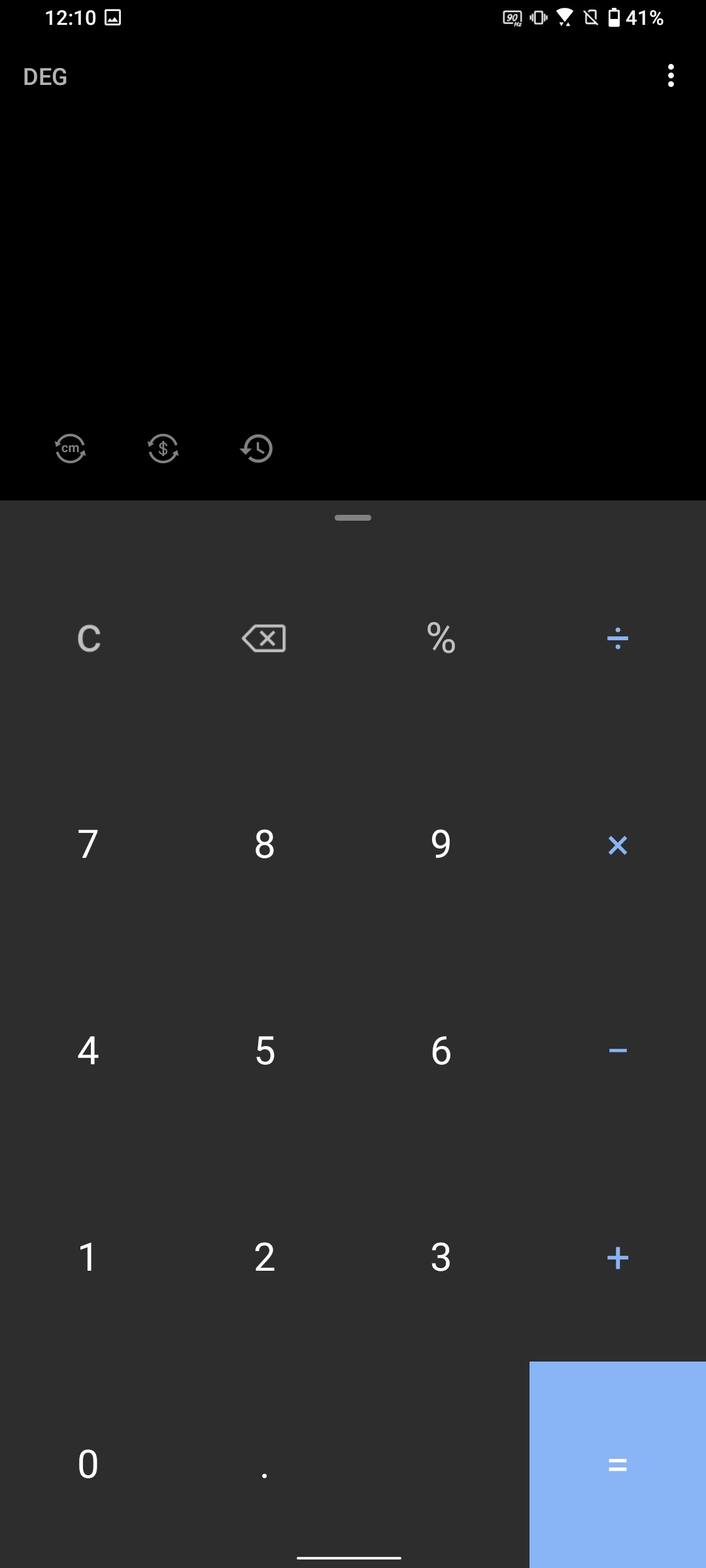
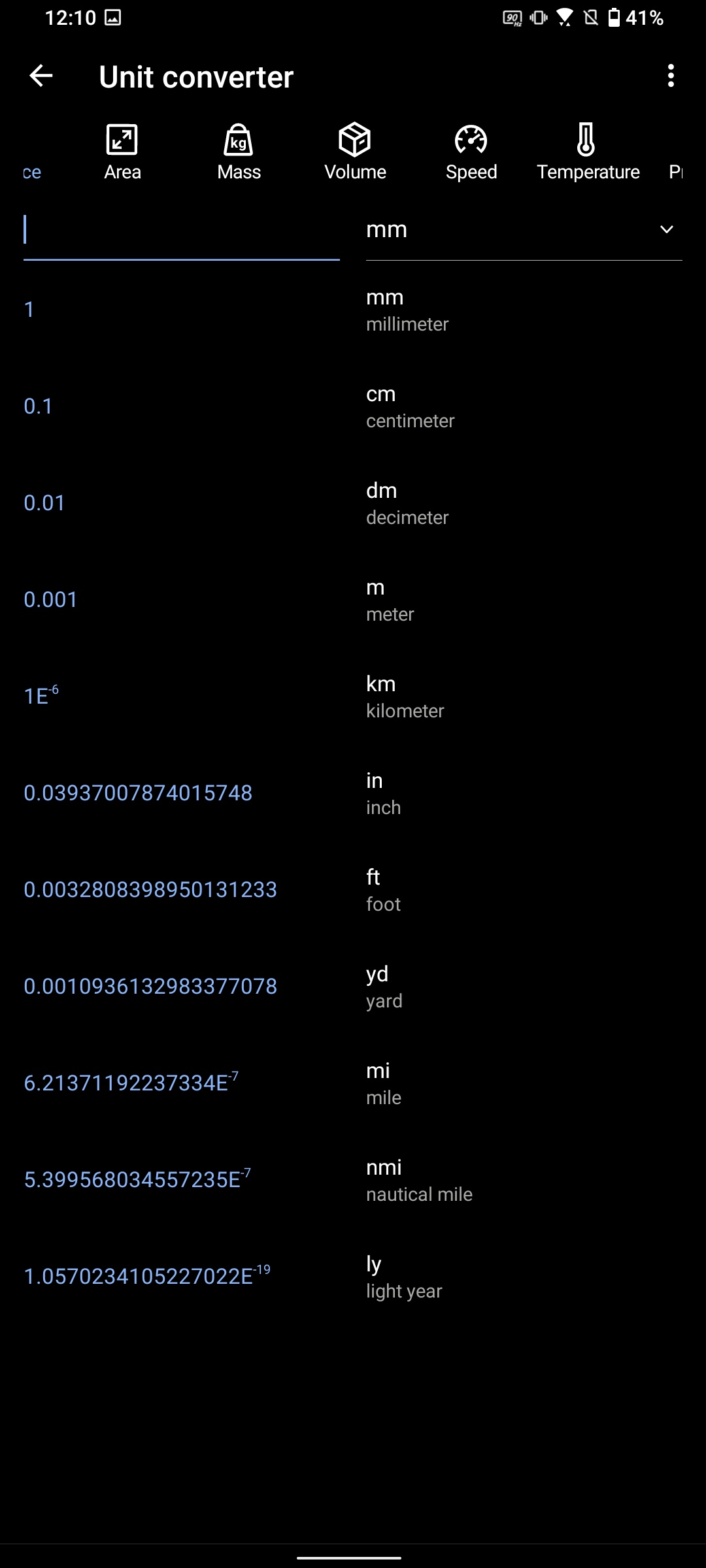
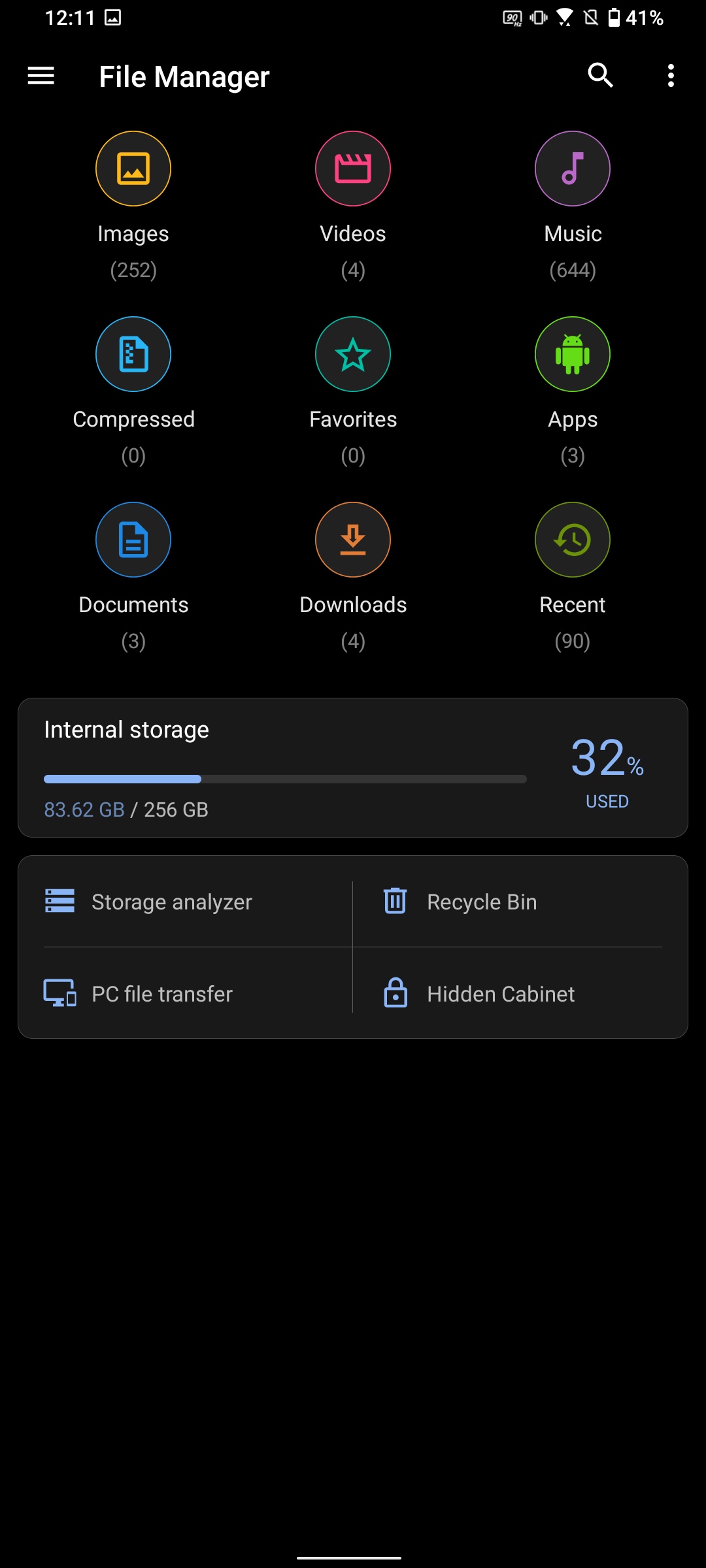
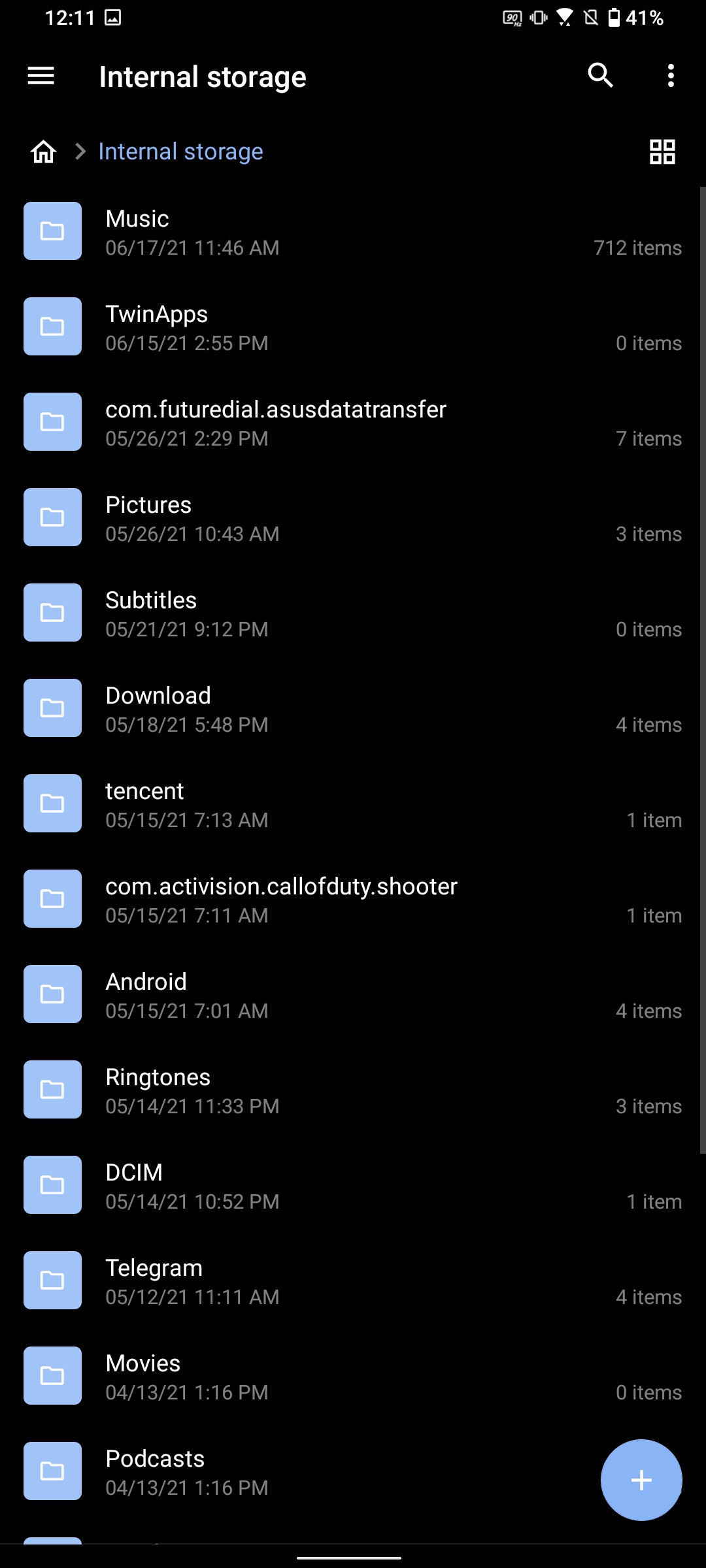
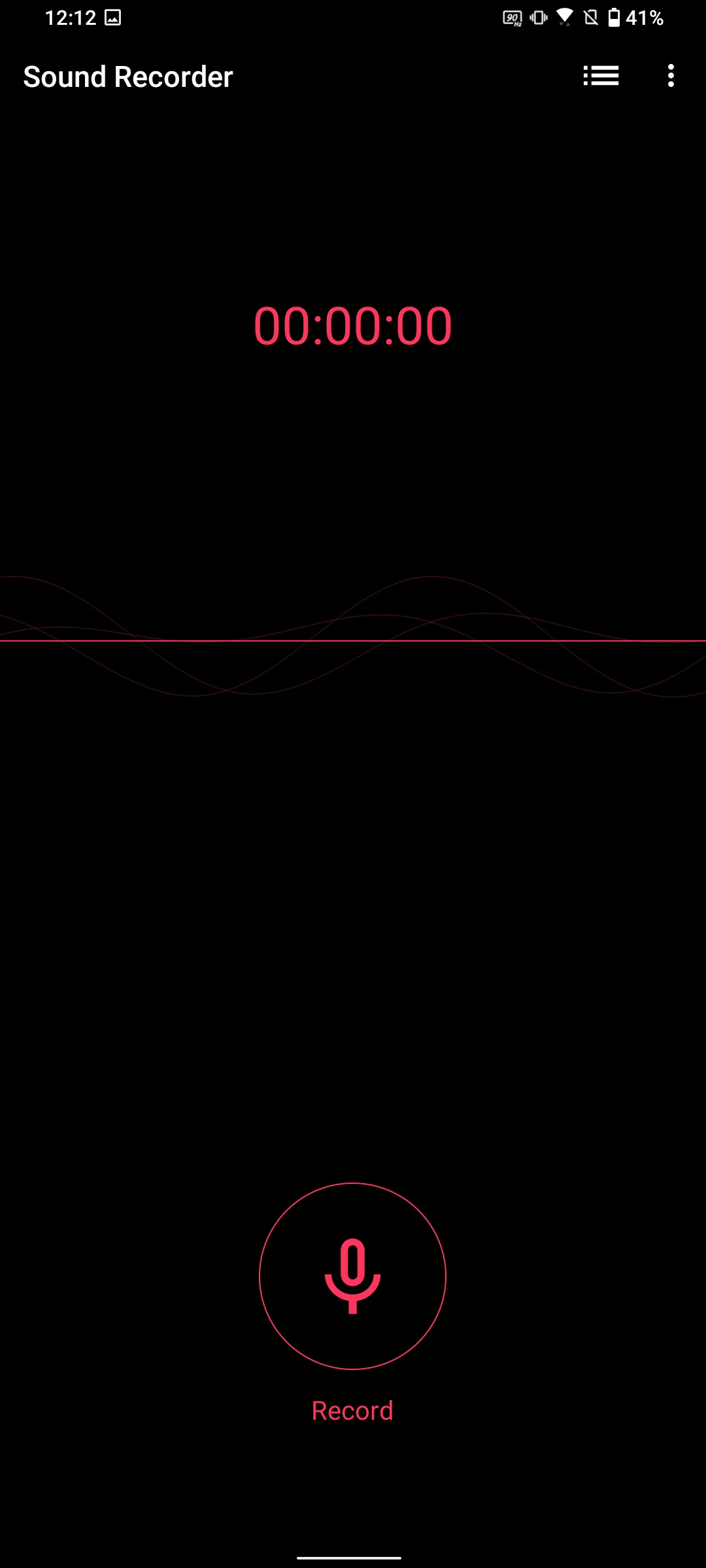






The Cameras
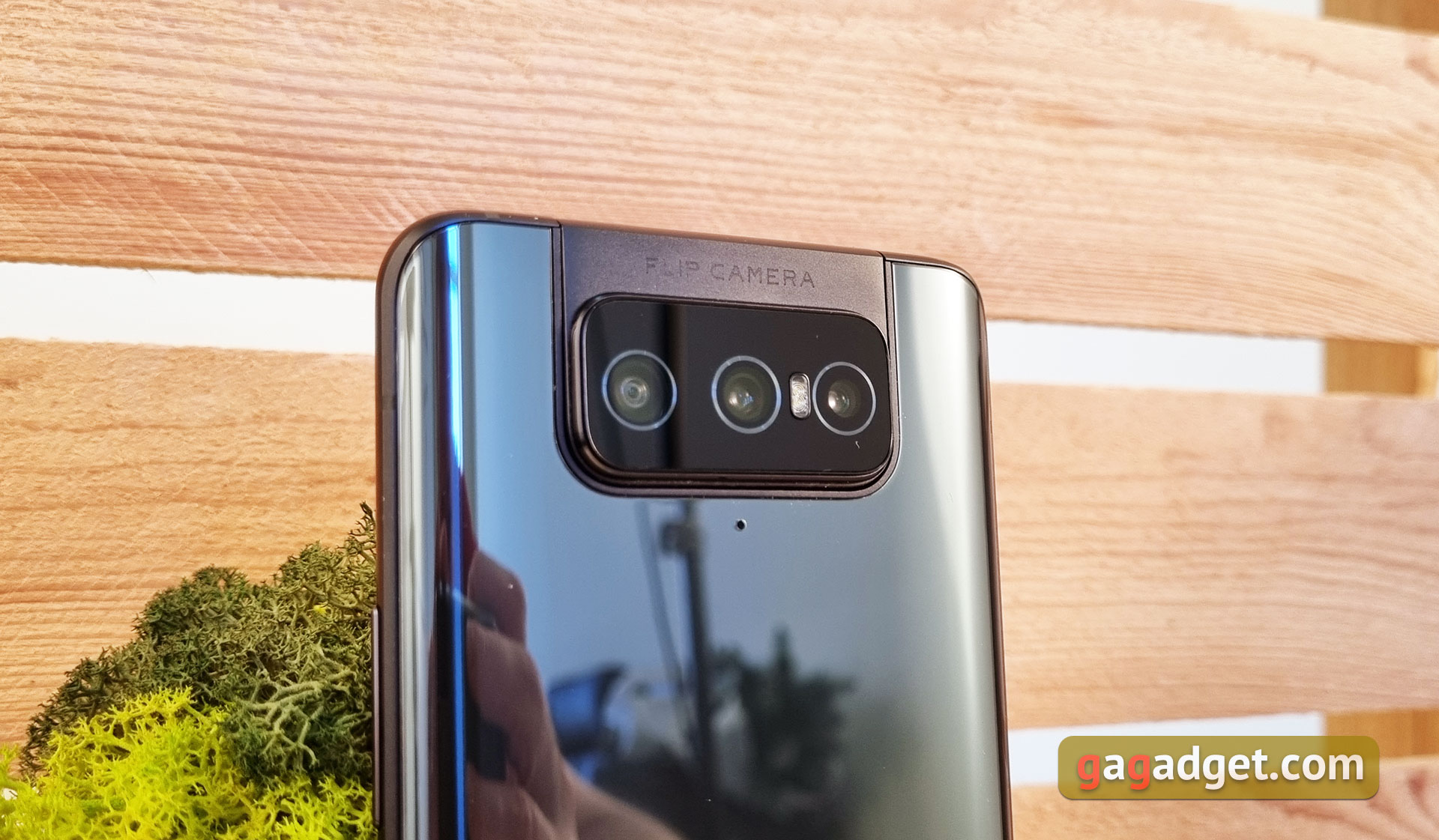
One of the most attractive features of the smartphone is its triple rotating camera. Which not only allows you to take better self-portraits on any of the three modules. But it also allows you to automate the process of shooting panoramas, rotate the camera during video shooting, as well as using tracking autofocus. Additional interesting things are the system of three microphones with the function of wind noise suppression and sound zoom. As for the triple camera itself, it's not bad, but it doesn't quite make it up to the modern flagships.
The main module is 64-megapixel Sony IMX686 (Quad Bayer, in standard mode takes pictures of 16 megapixels), f/1.8 aperture, phase autofocus. The ultra-wide-angle camera is a Sony IMX363 at 12 MP, f/2.2 and telephoto at 8 MP with 3x zoom.
There is no optical stabilization in either module. The camera app is usual, with a customizable carousel of modes and all basic controls (camera switching, flash, HDR and so on) on the main screen.
There are manual photo and video modes. By the way, the smartphone can shoot video up to 8K. Of the unusual features, there are controls for camera rotation and the aforementioned sound effects.
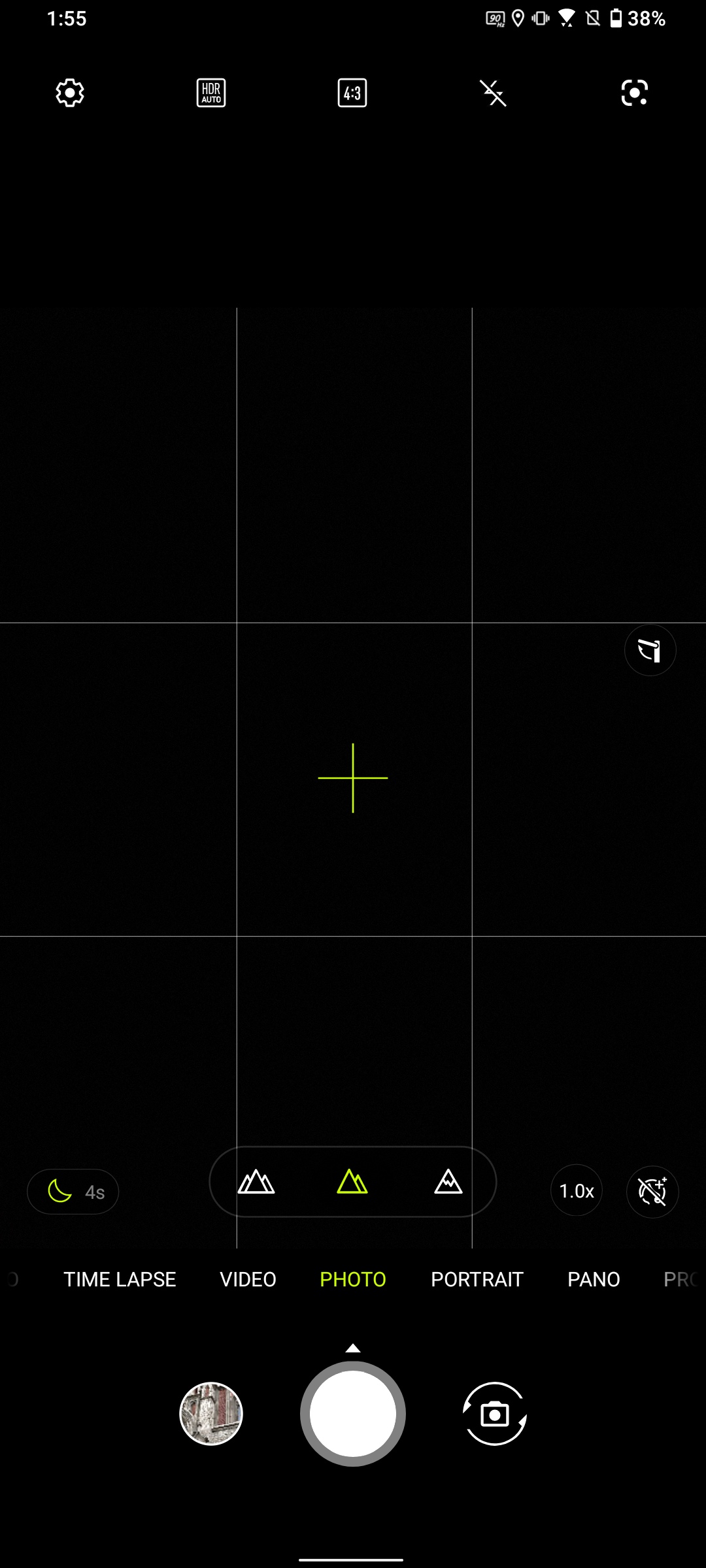
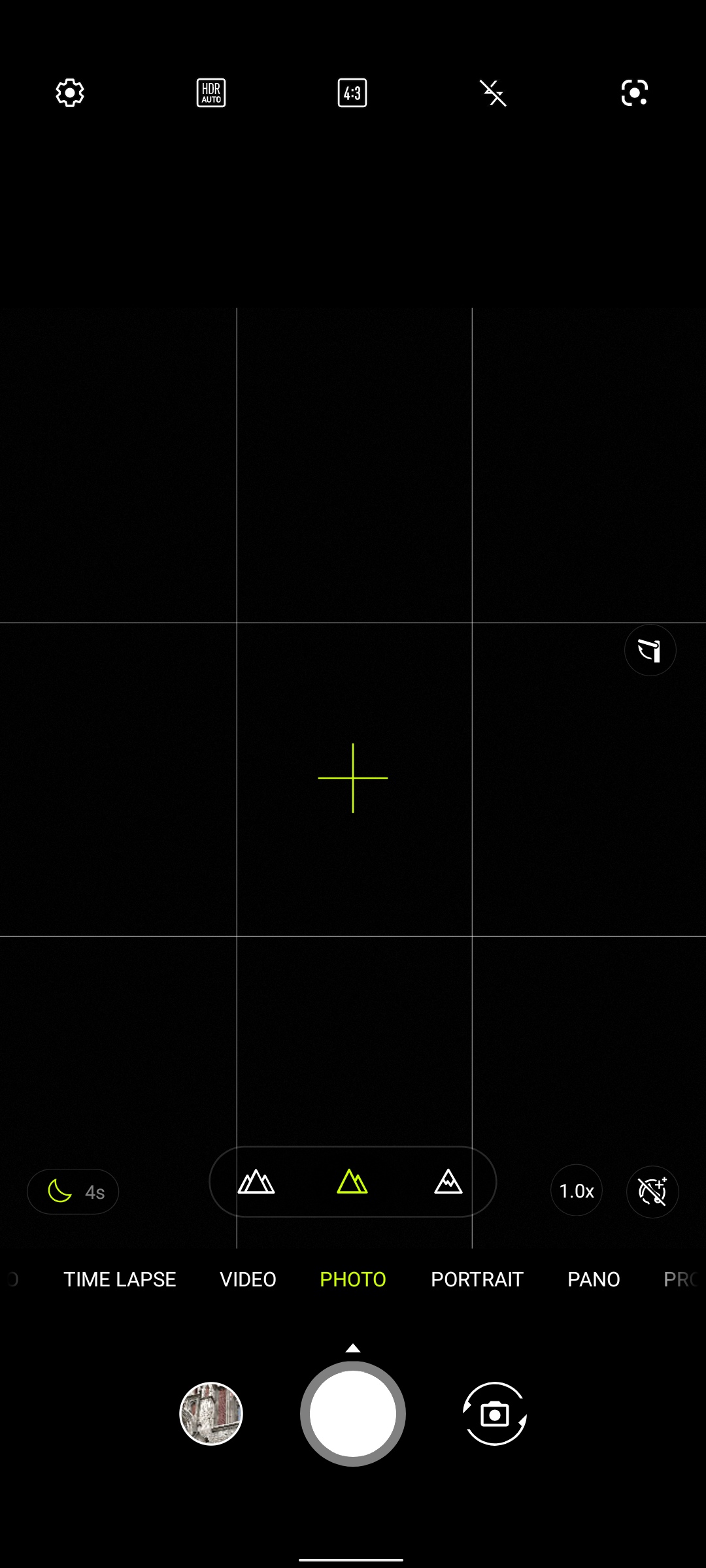
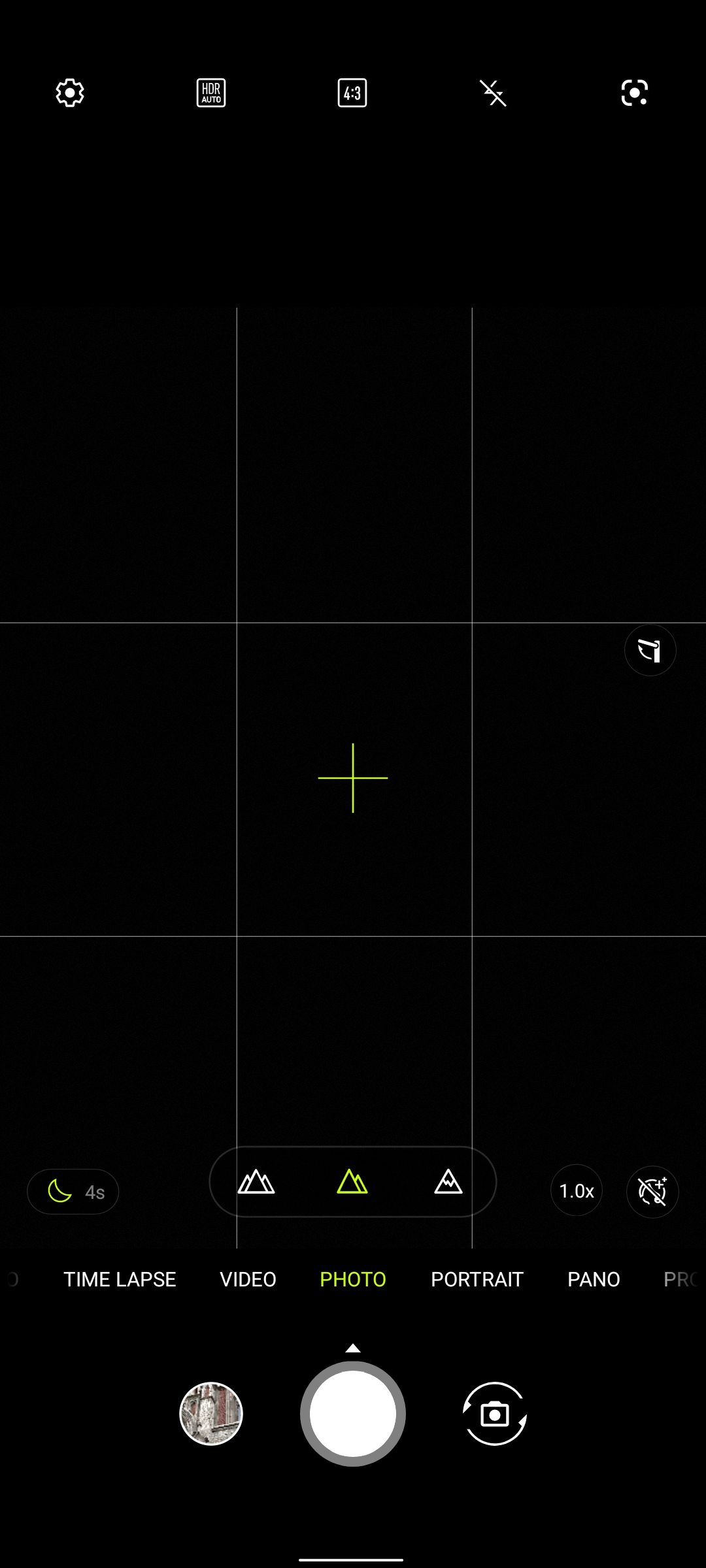
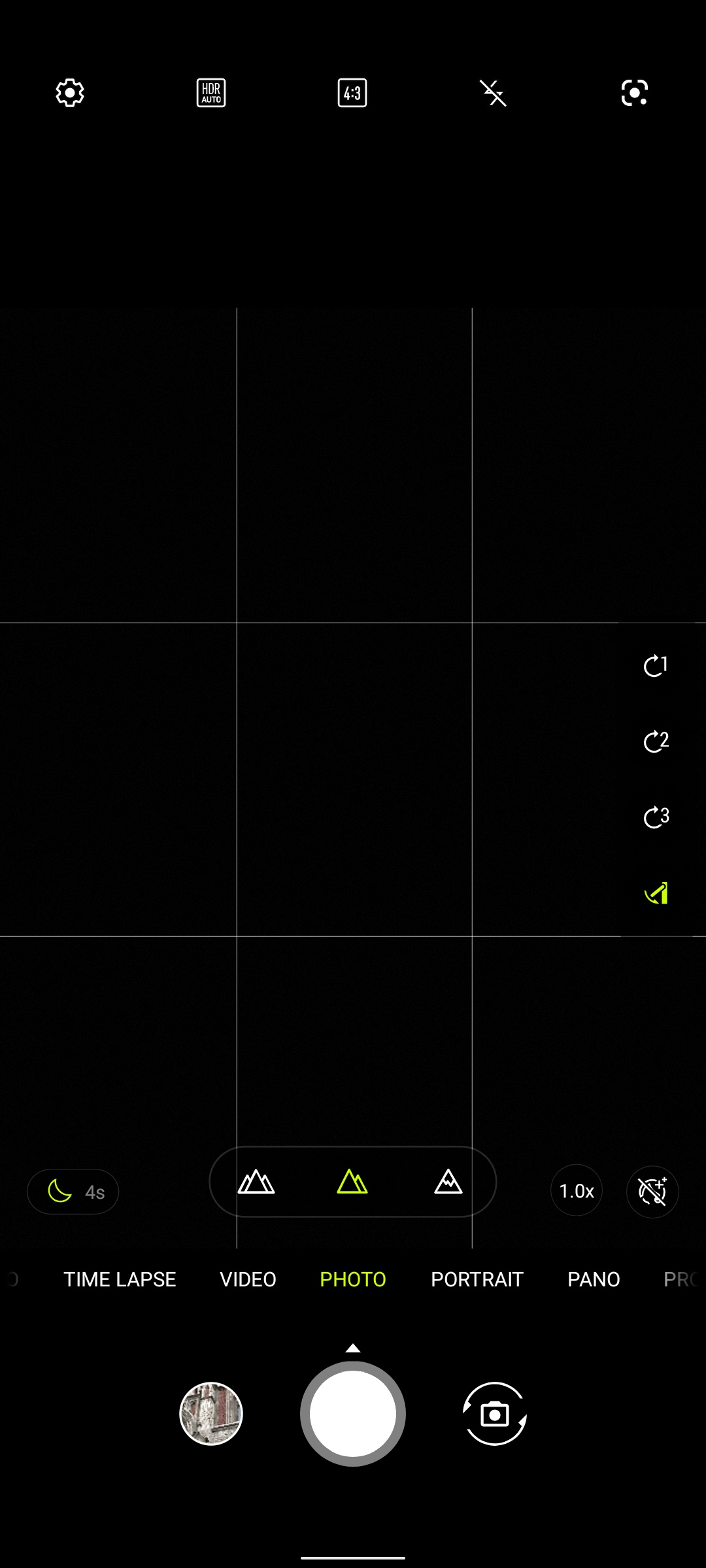
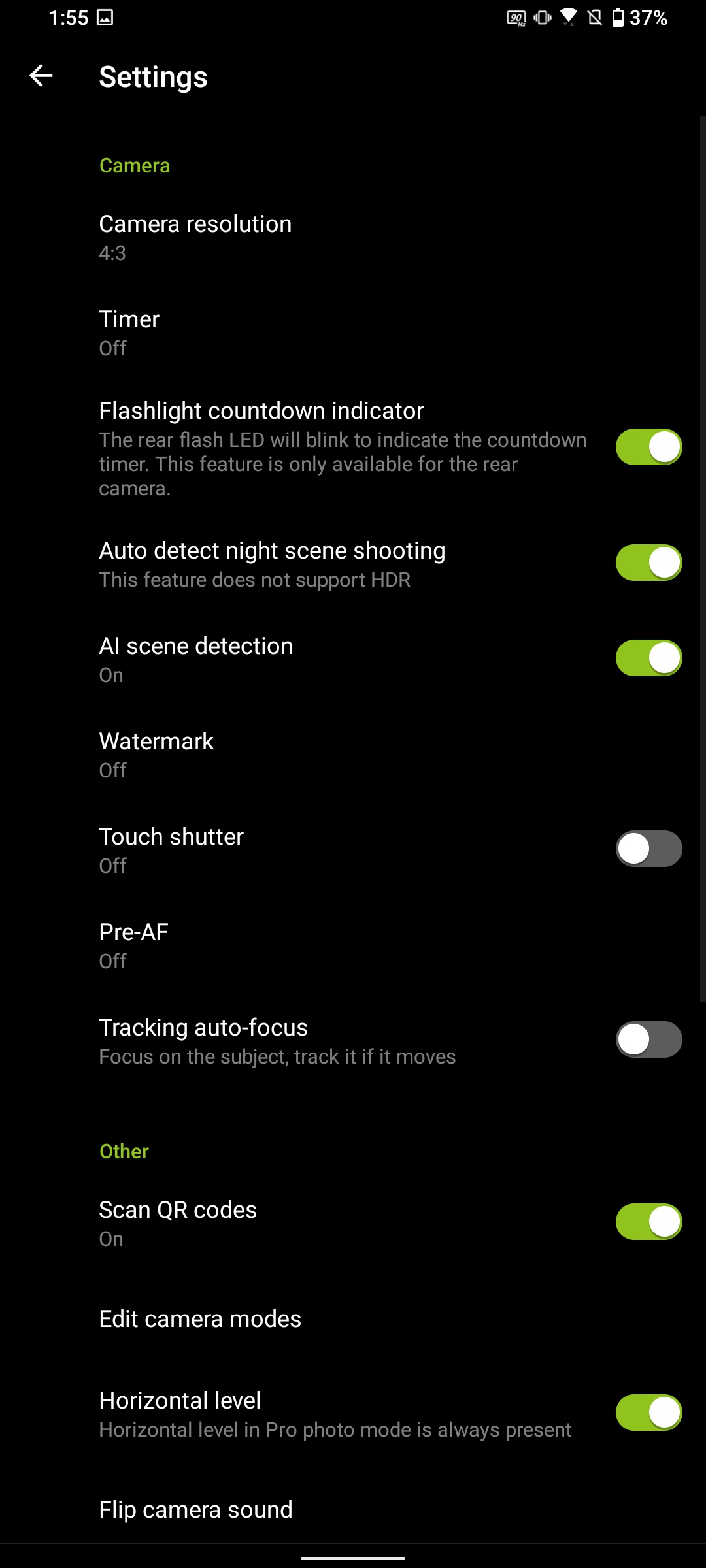
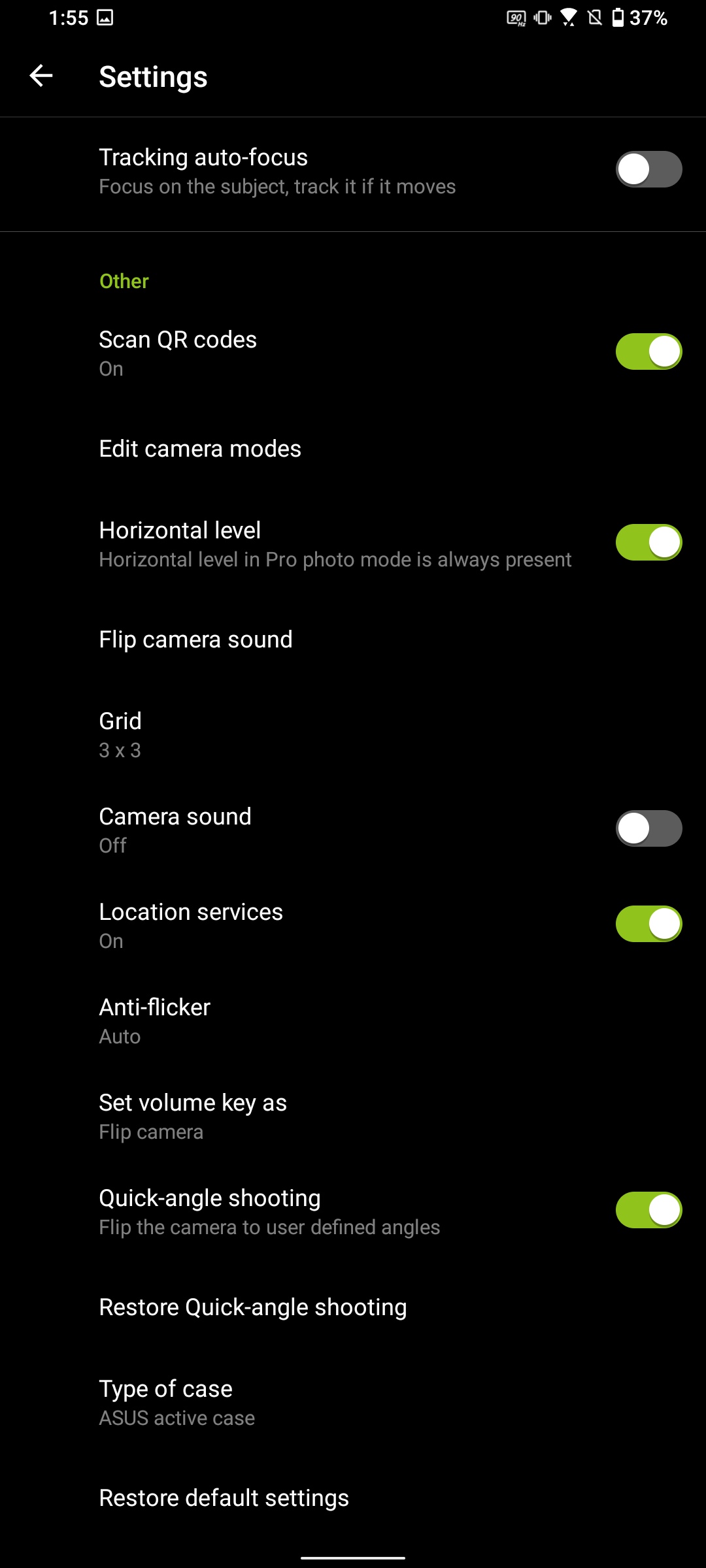
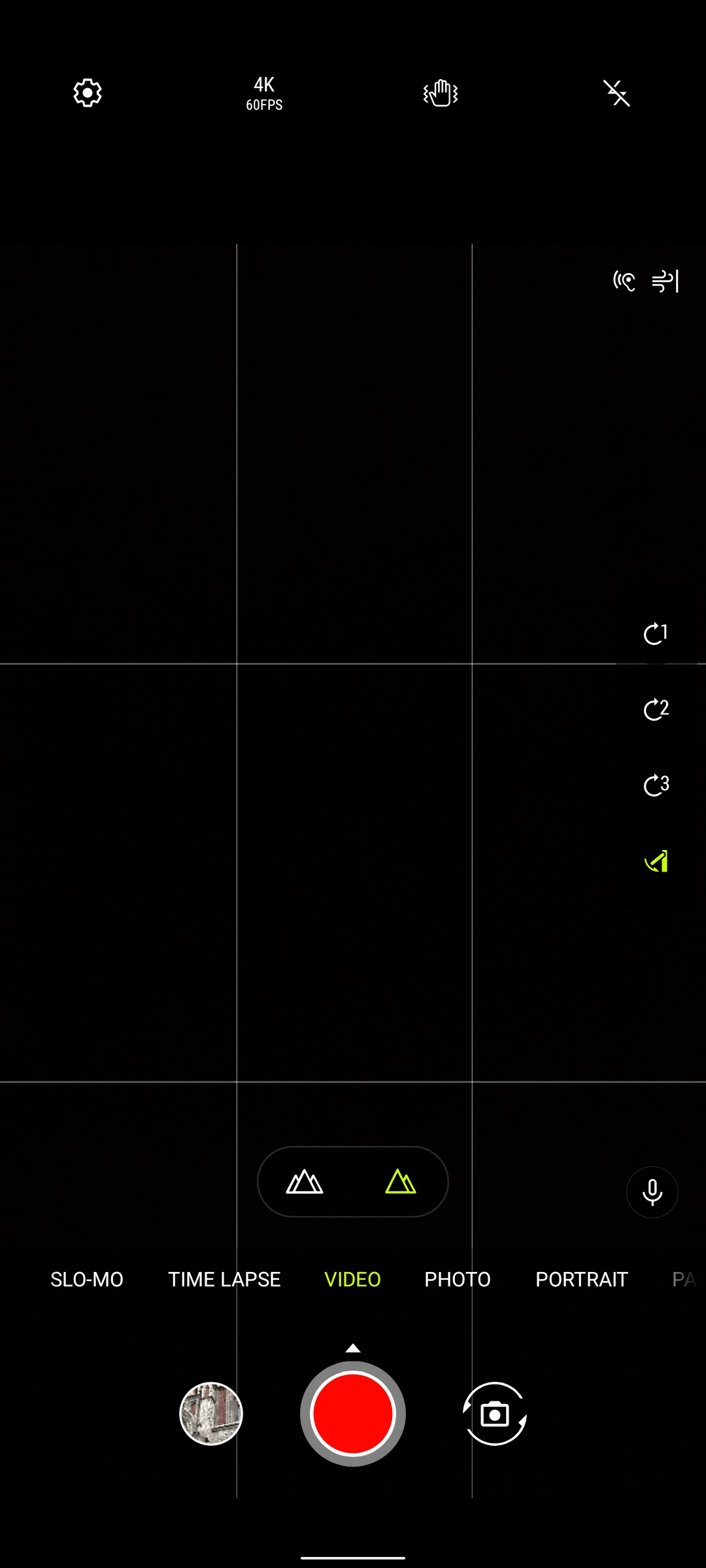
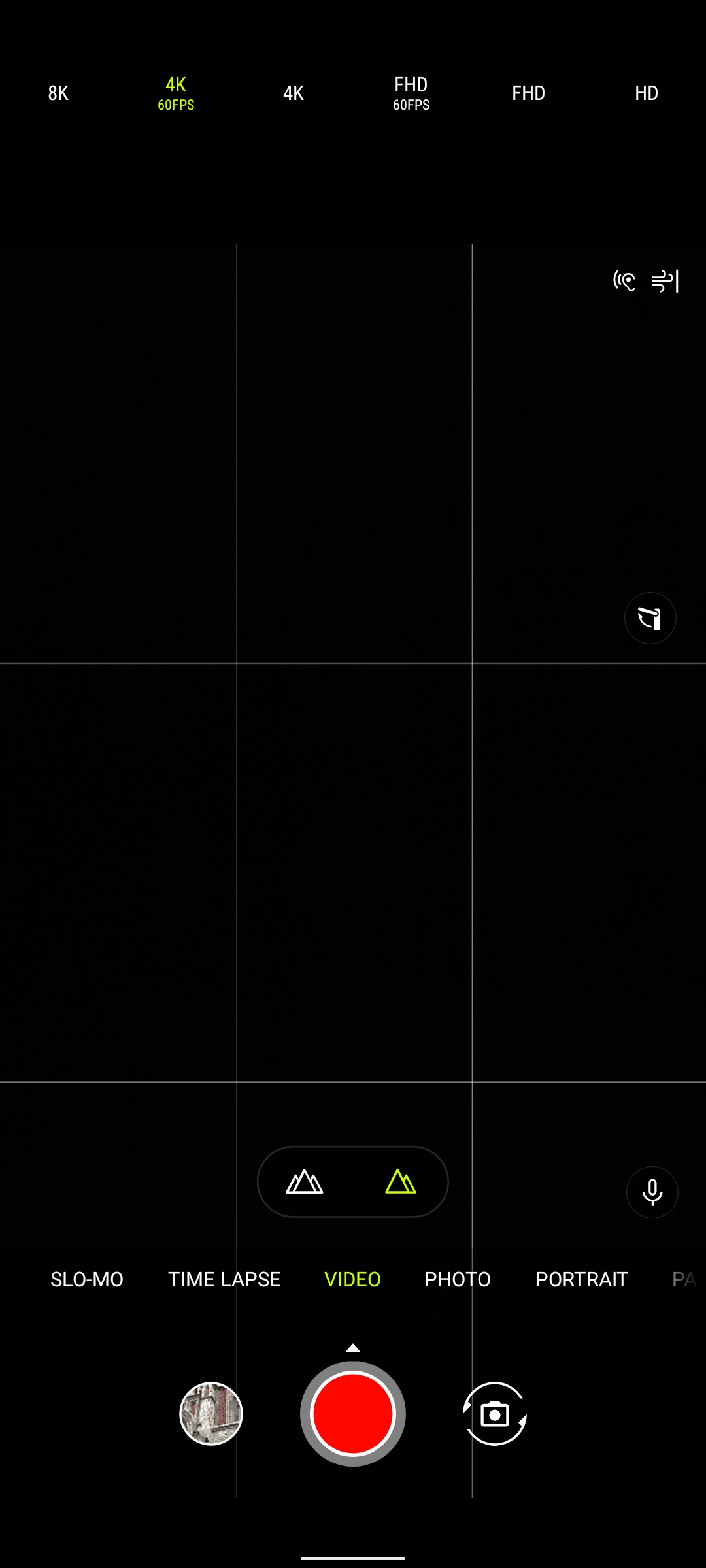
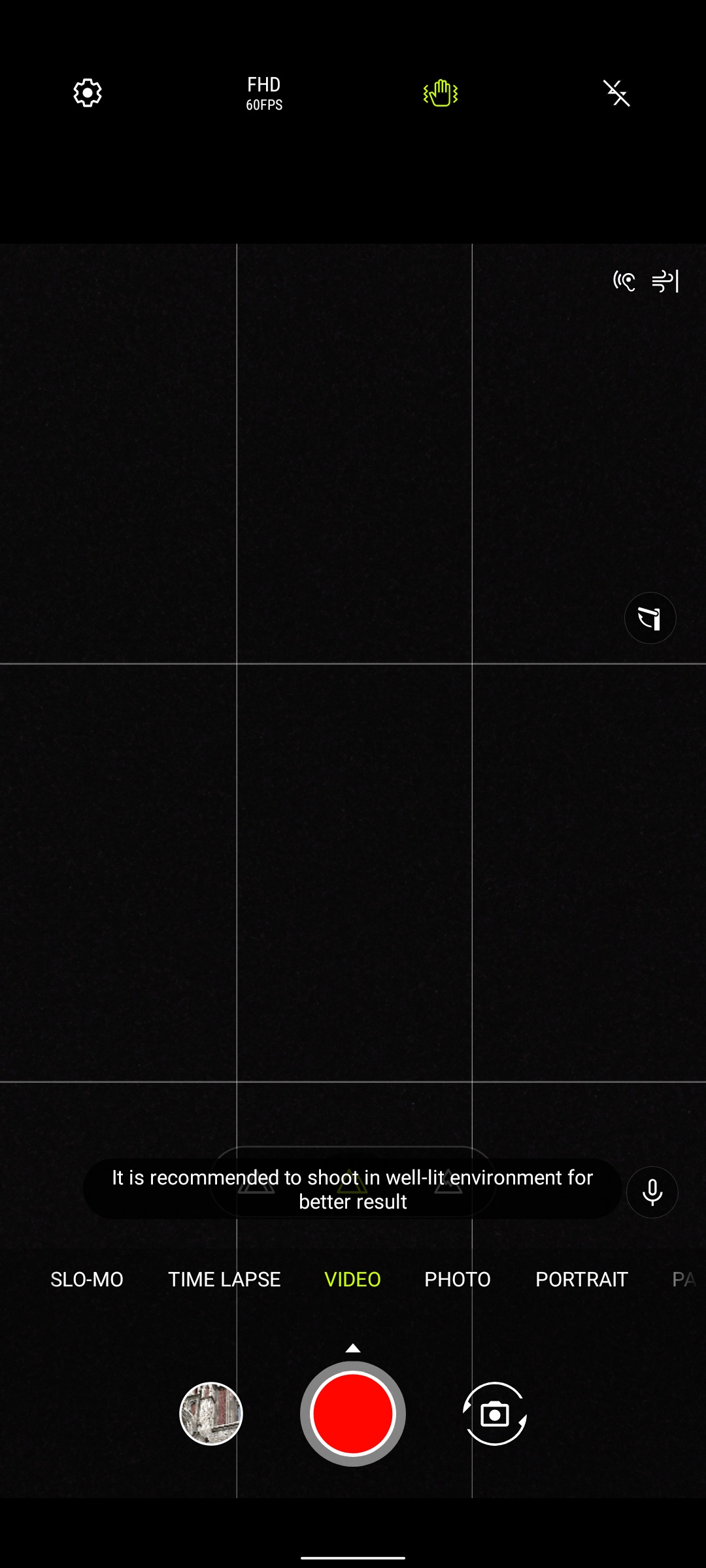
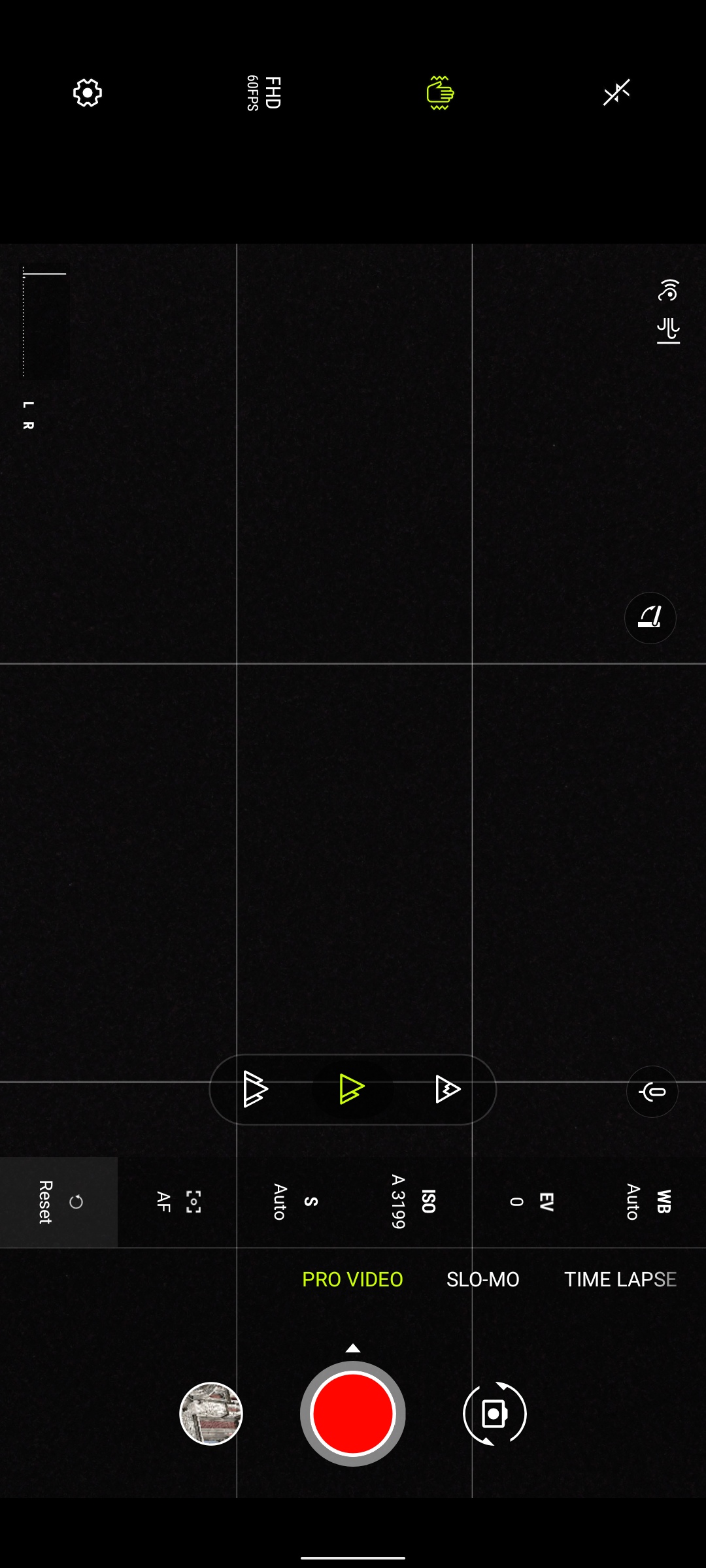
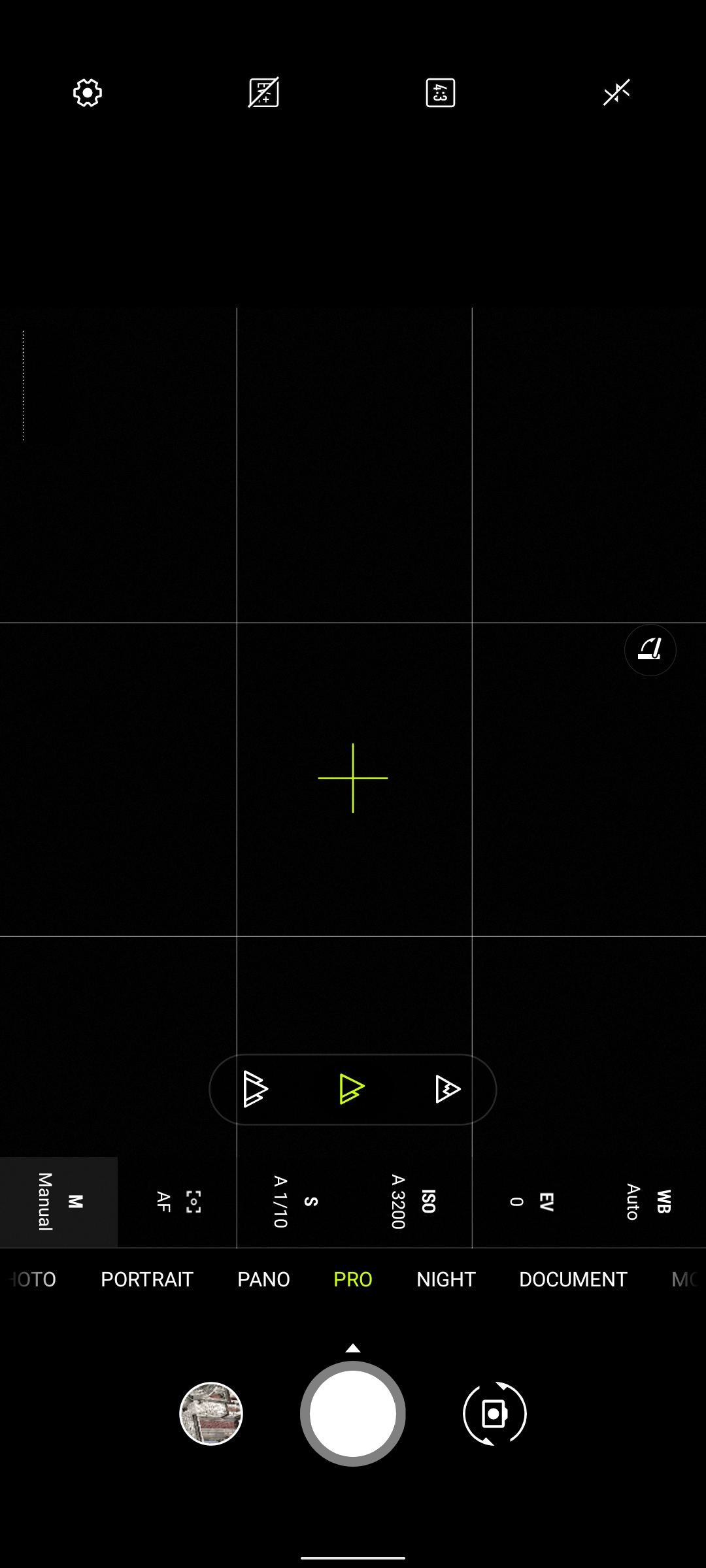
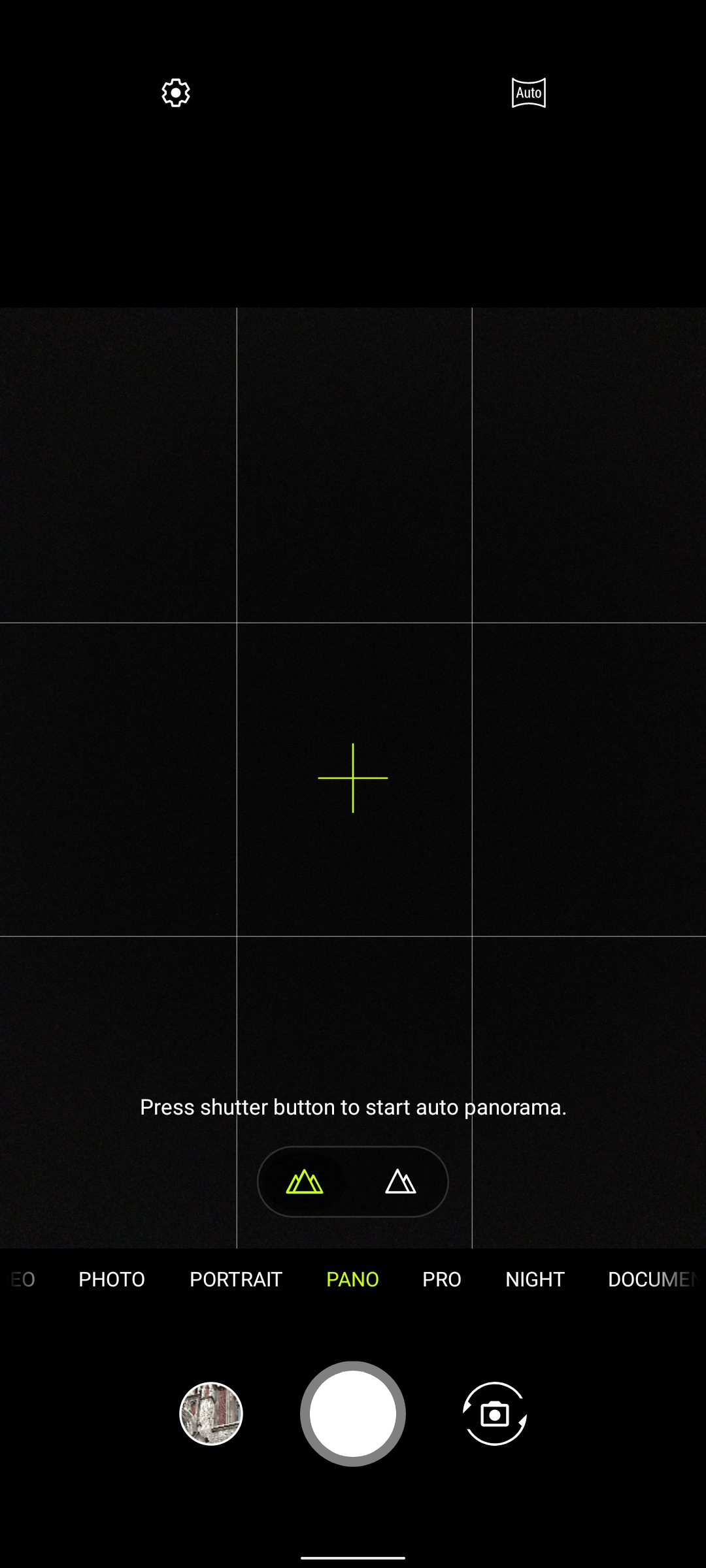
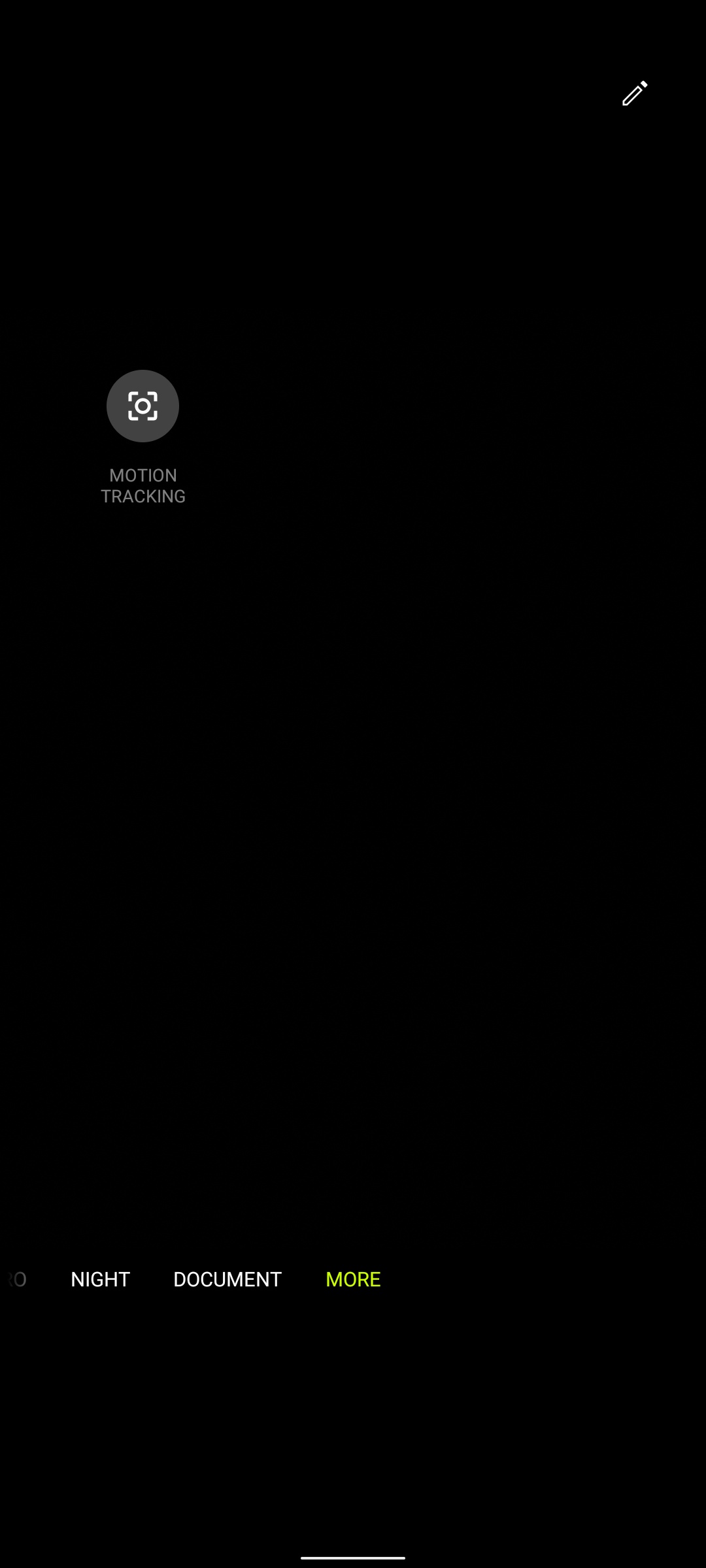













ASUS ZenFone 8 Flip shoots very well. Even though it does not reach the level of modern Samsung/Apple/Huawei flagships. The main camera takes pictures with good detail and a wide dynamic range. At the same time, the color rendering is quite natural in good light. Night shooting is also good, but you can already see the work of the processing algorithms and the colors are a little yellowish.
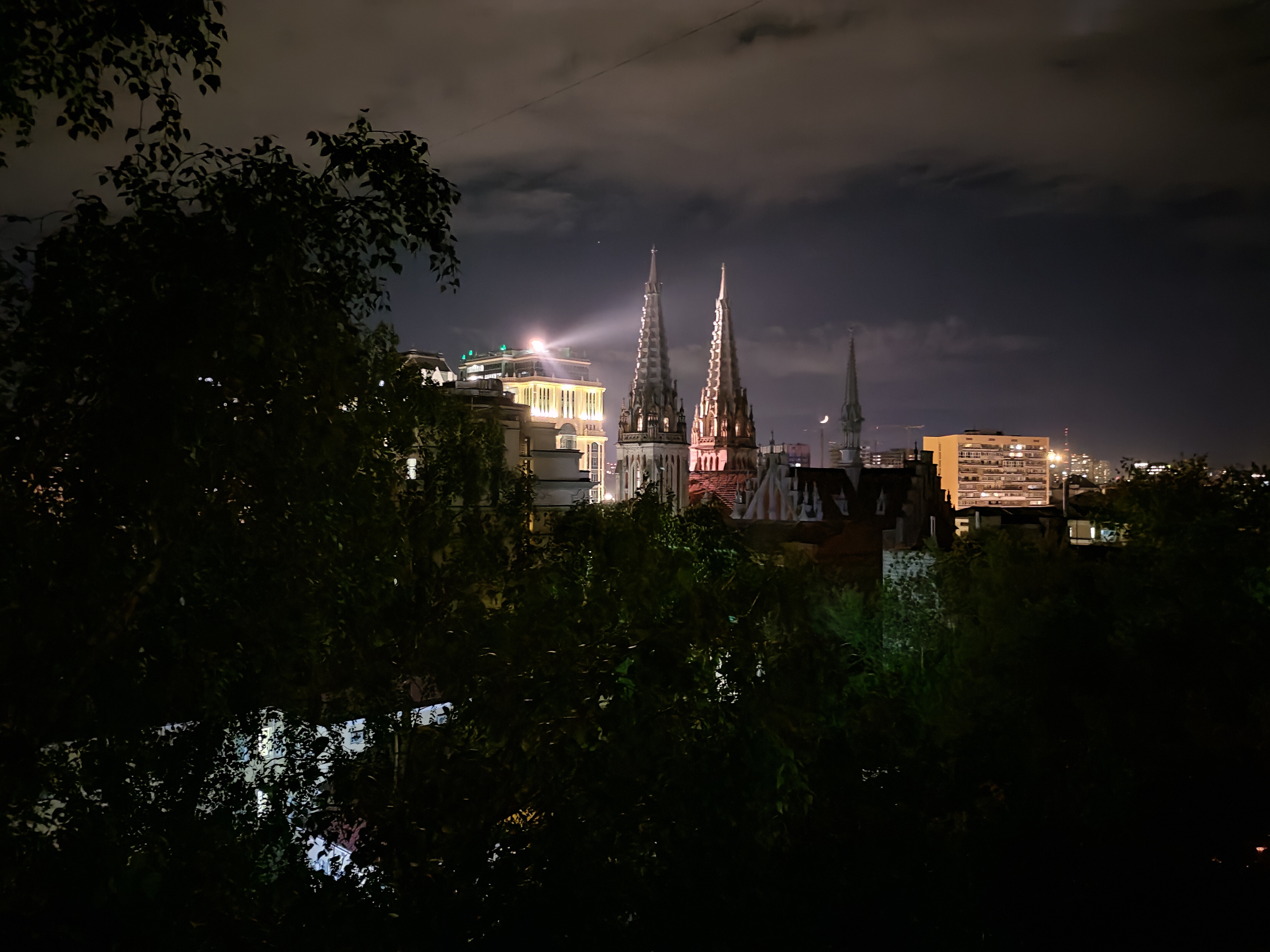
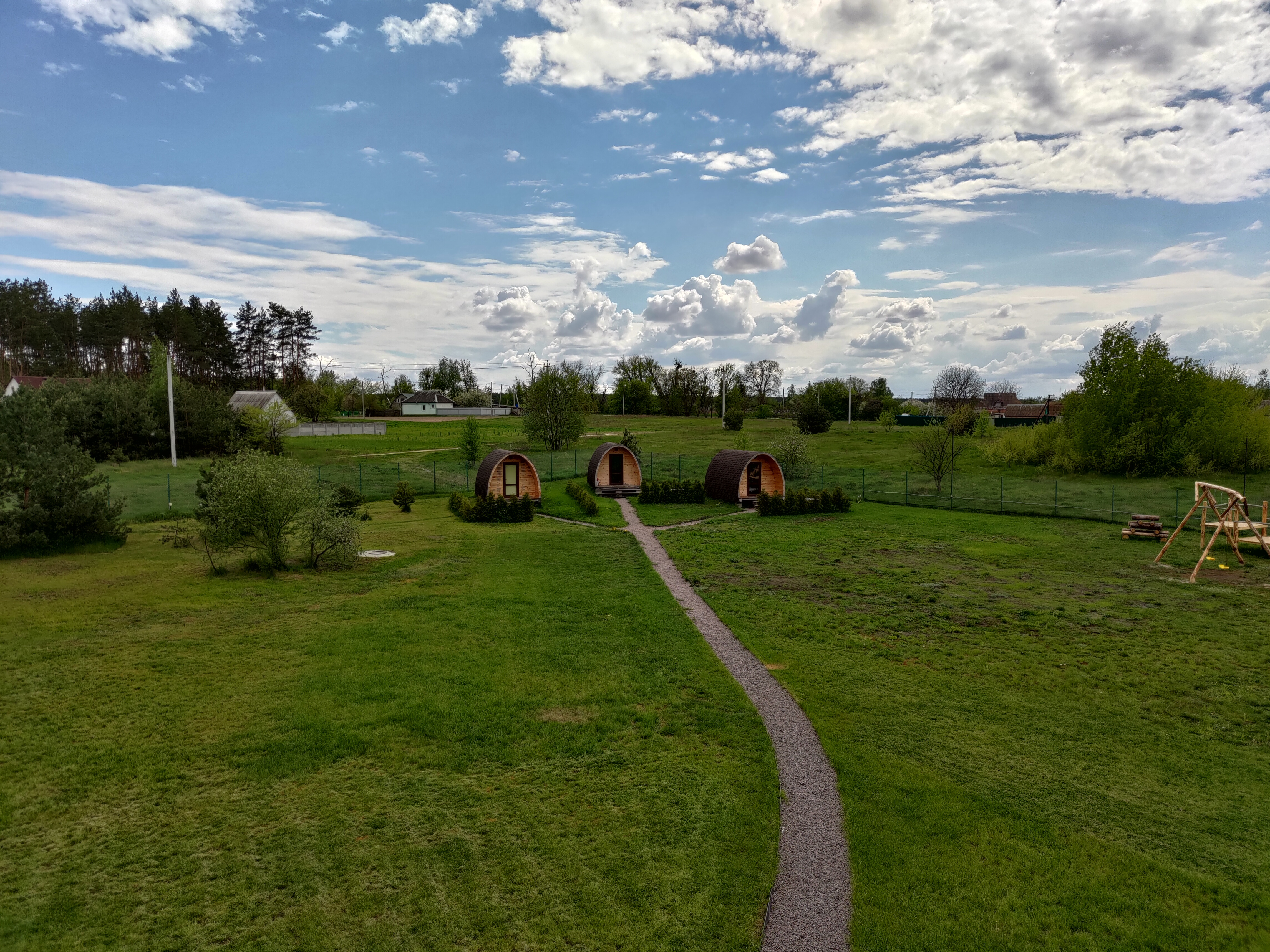
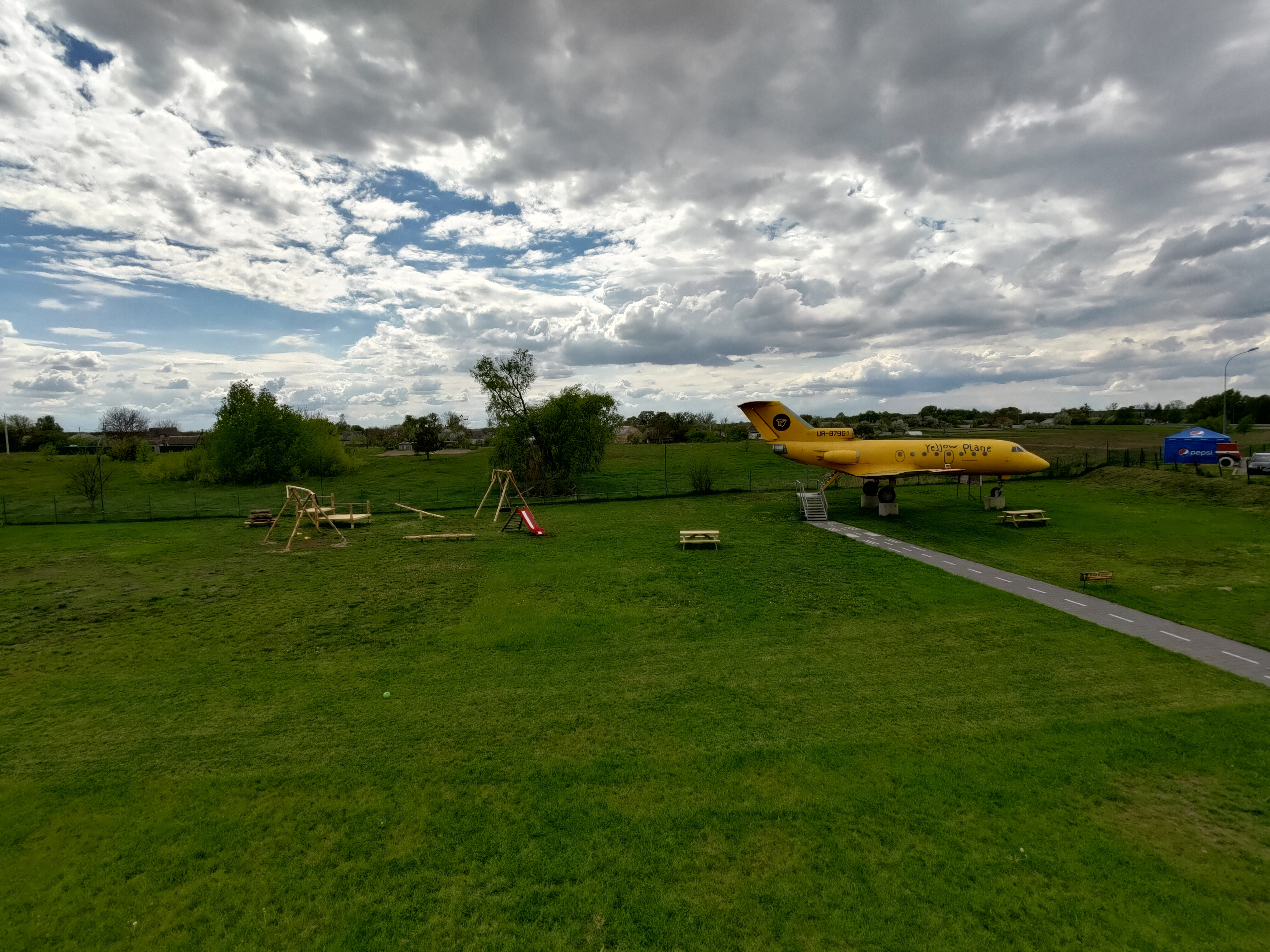
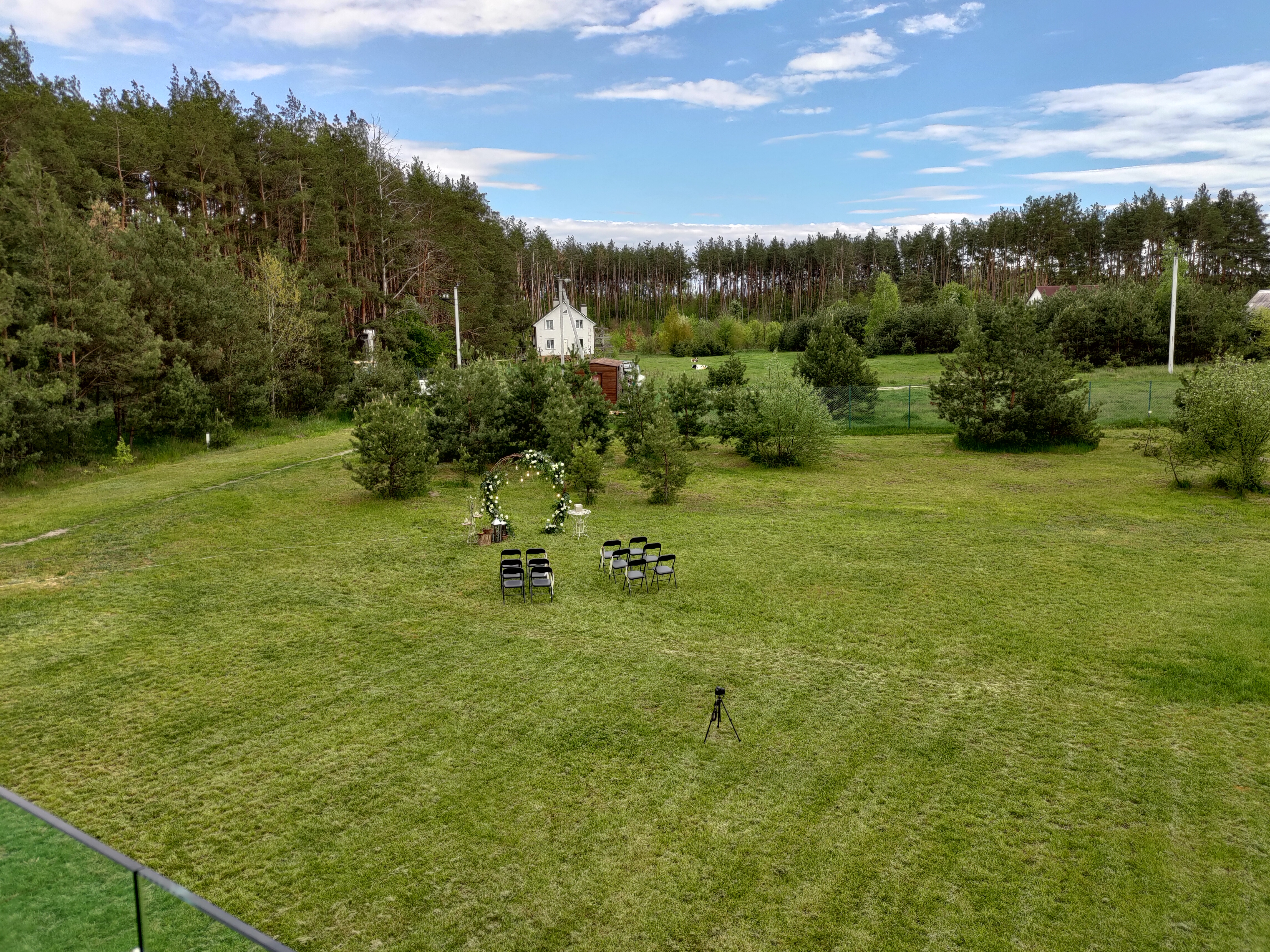
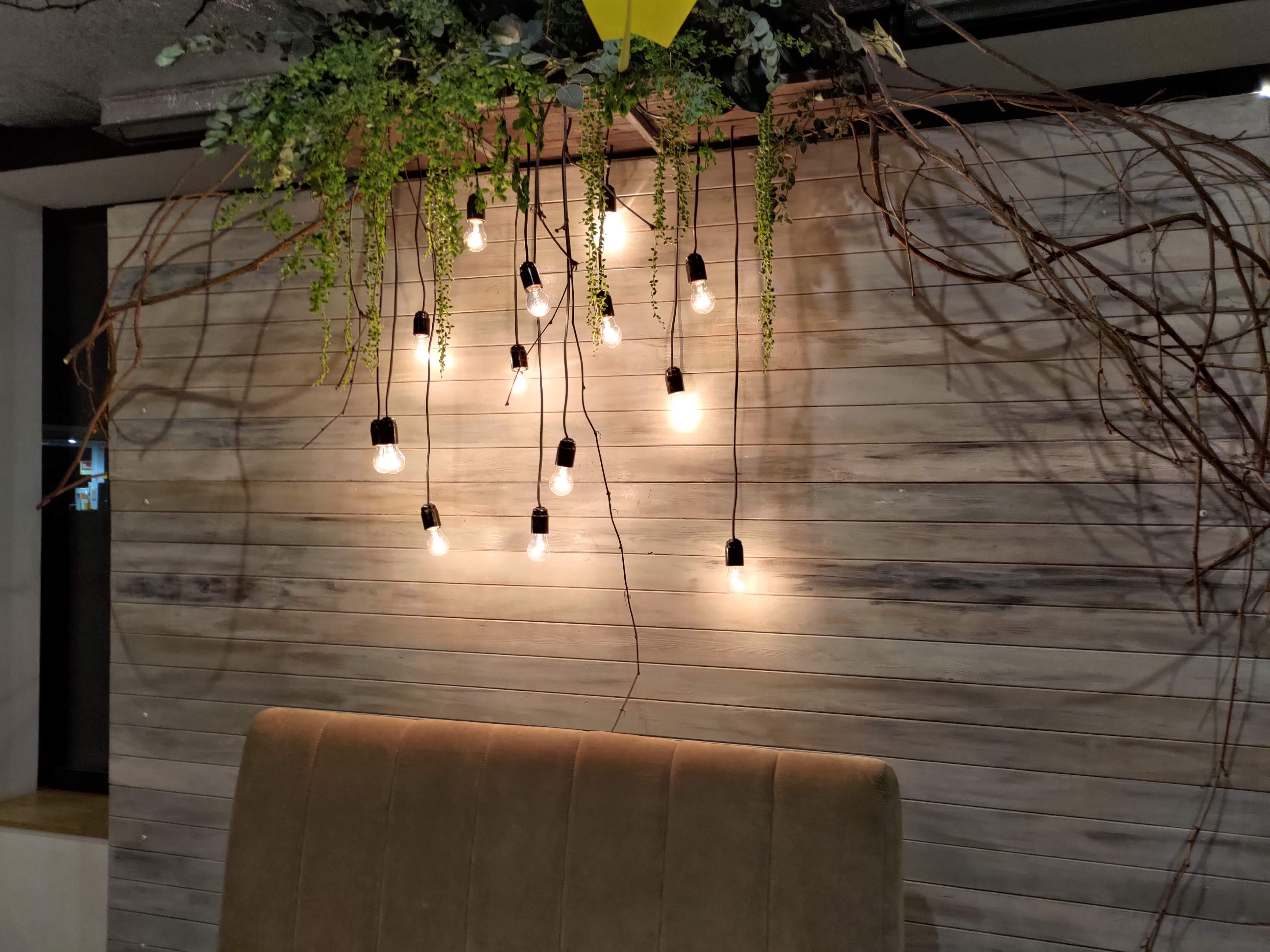
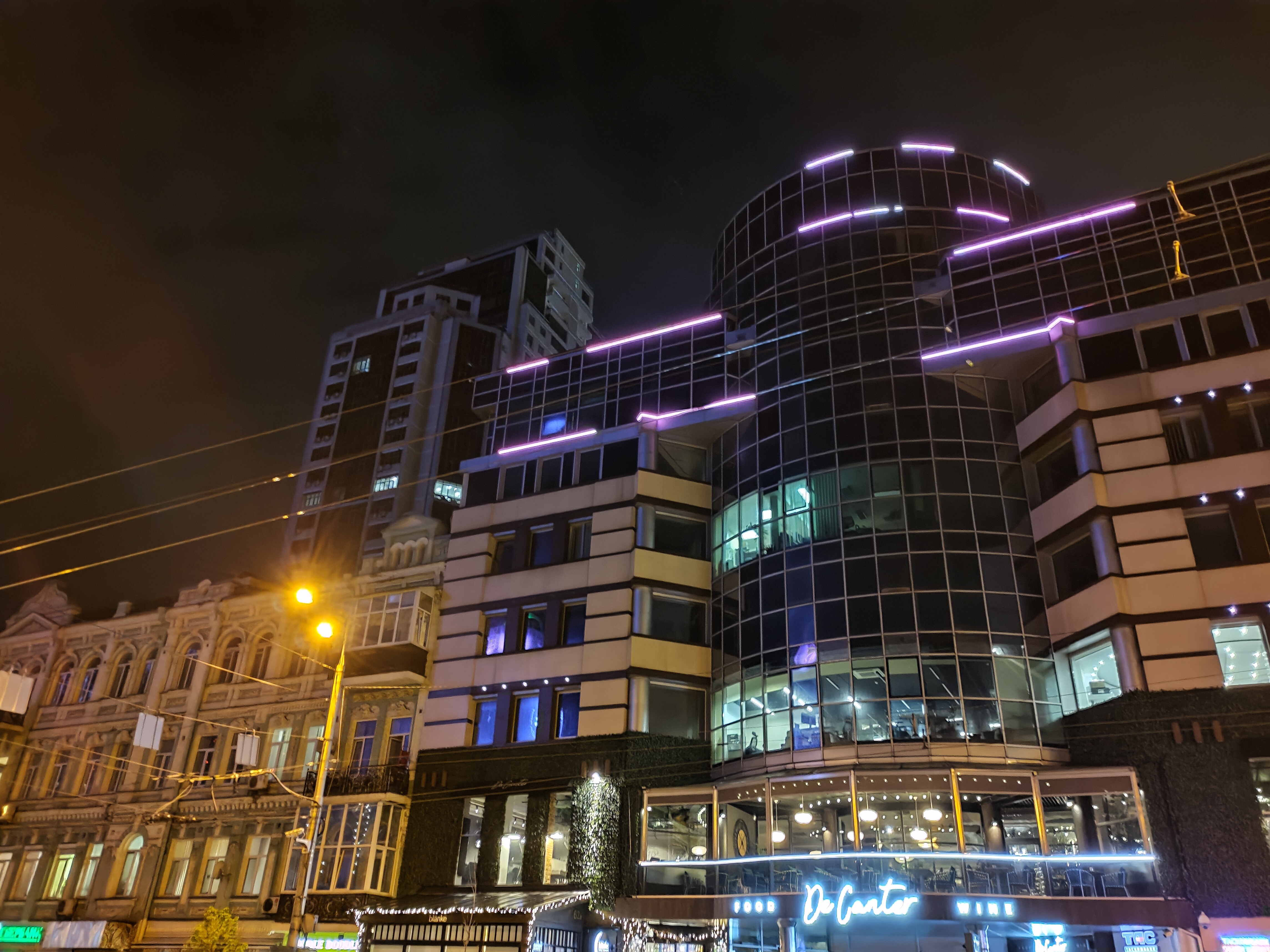
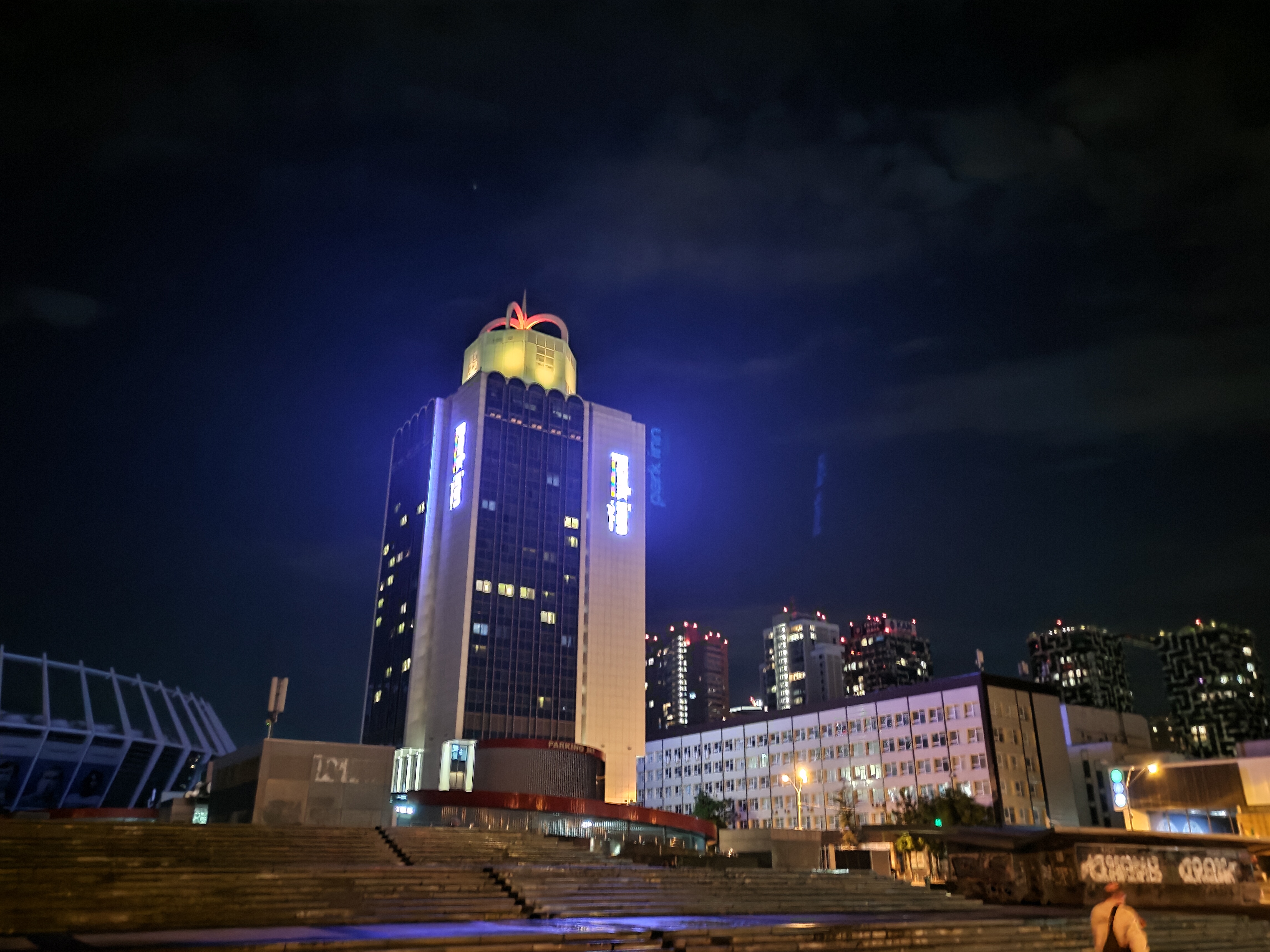
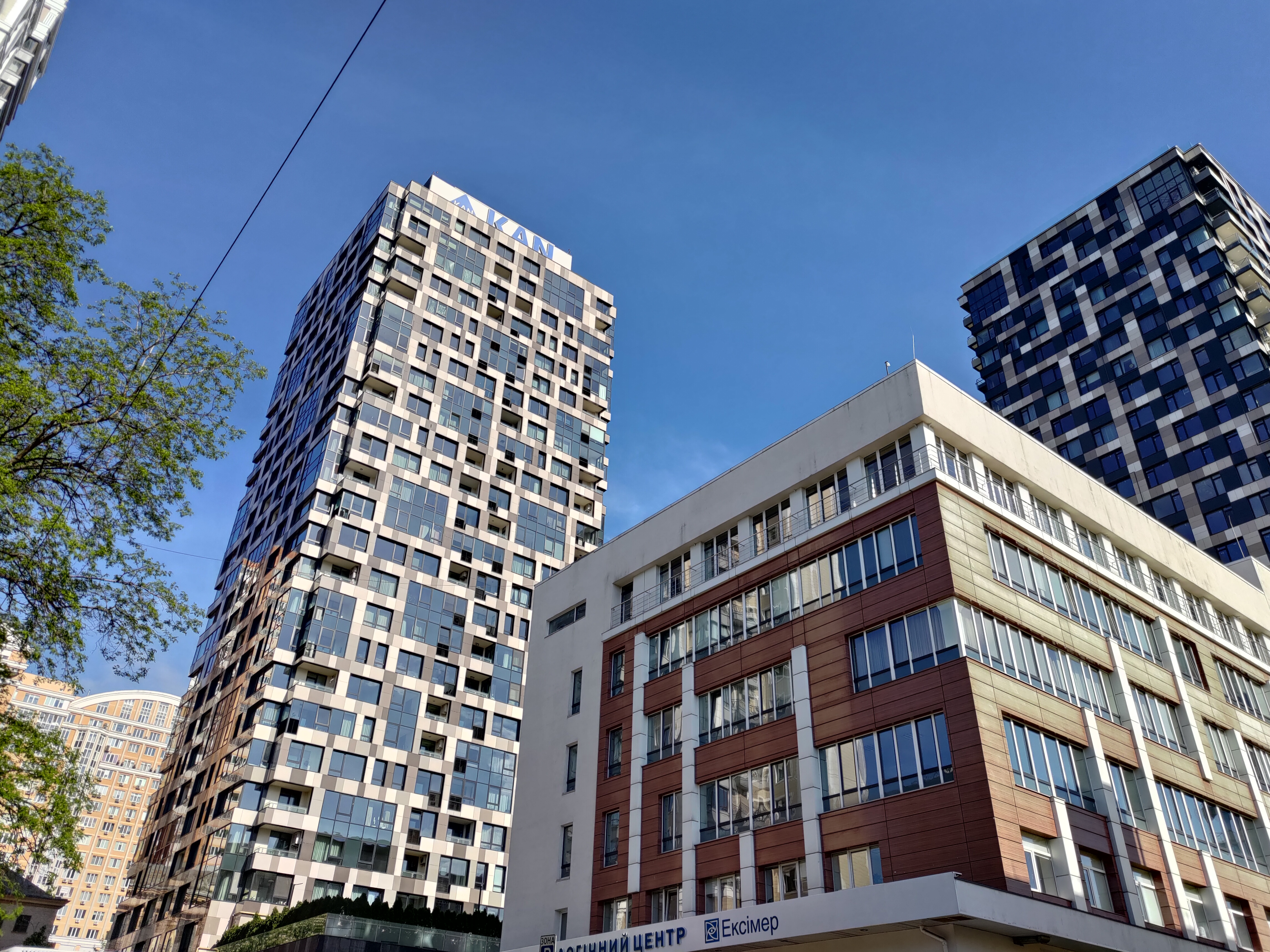
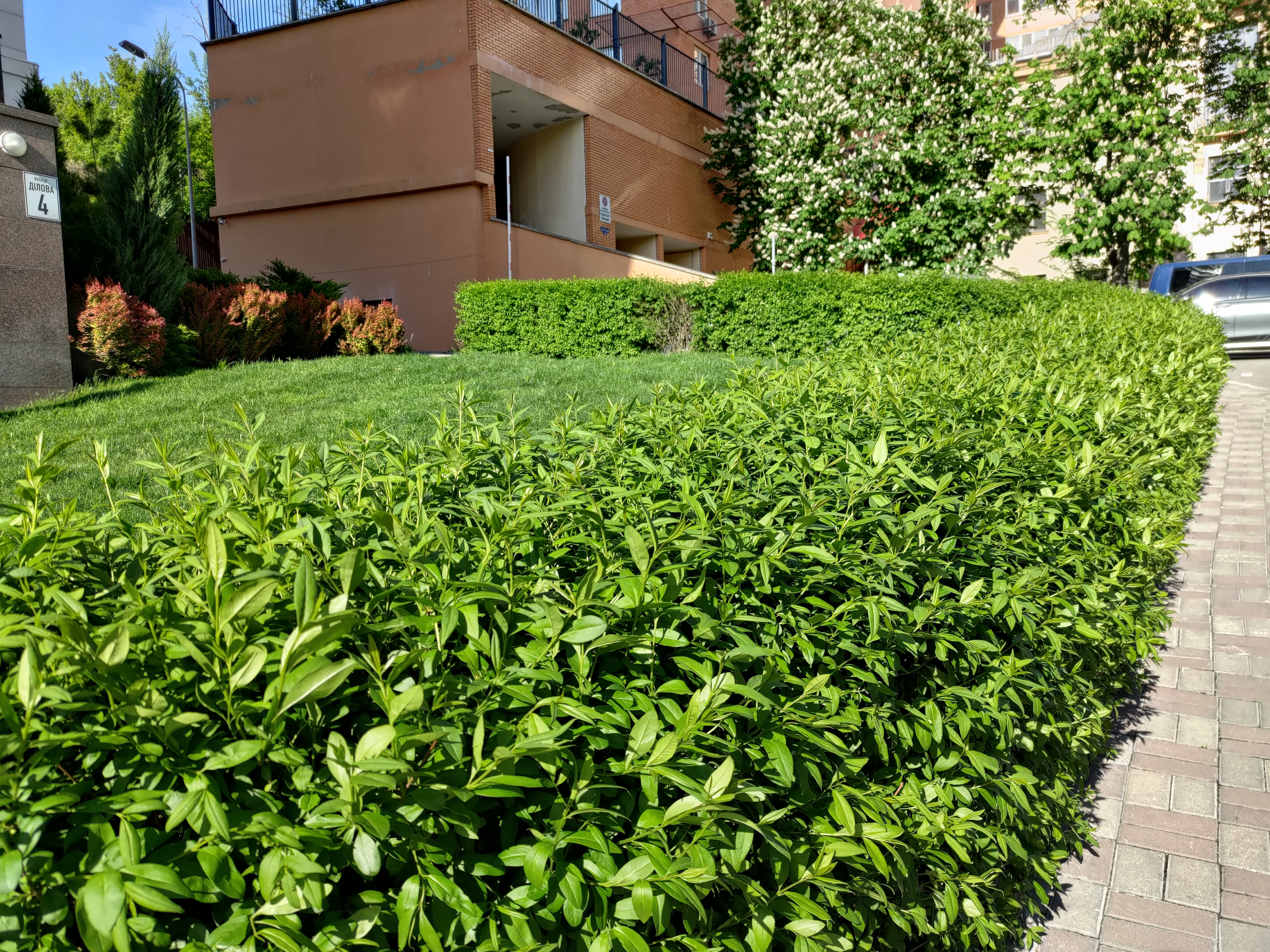
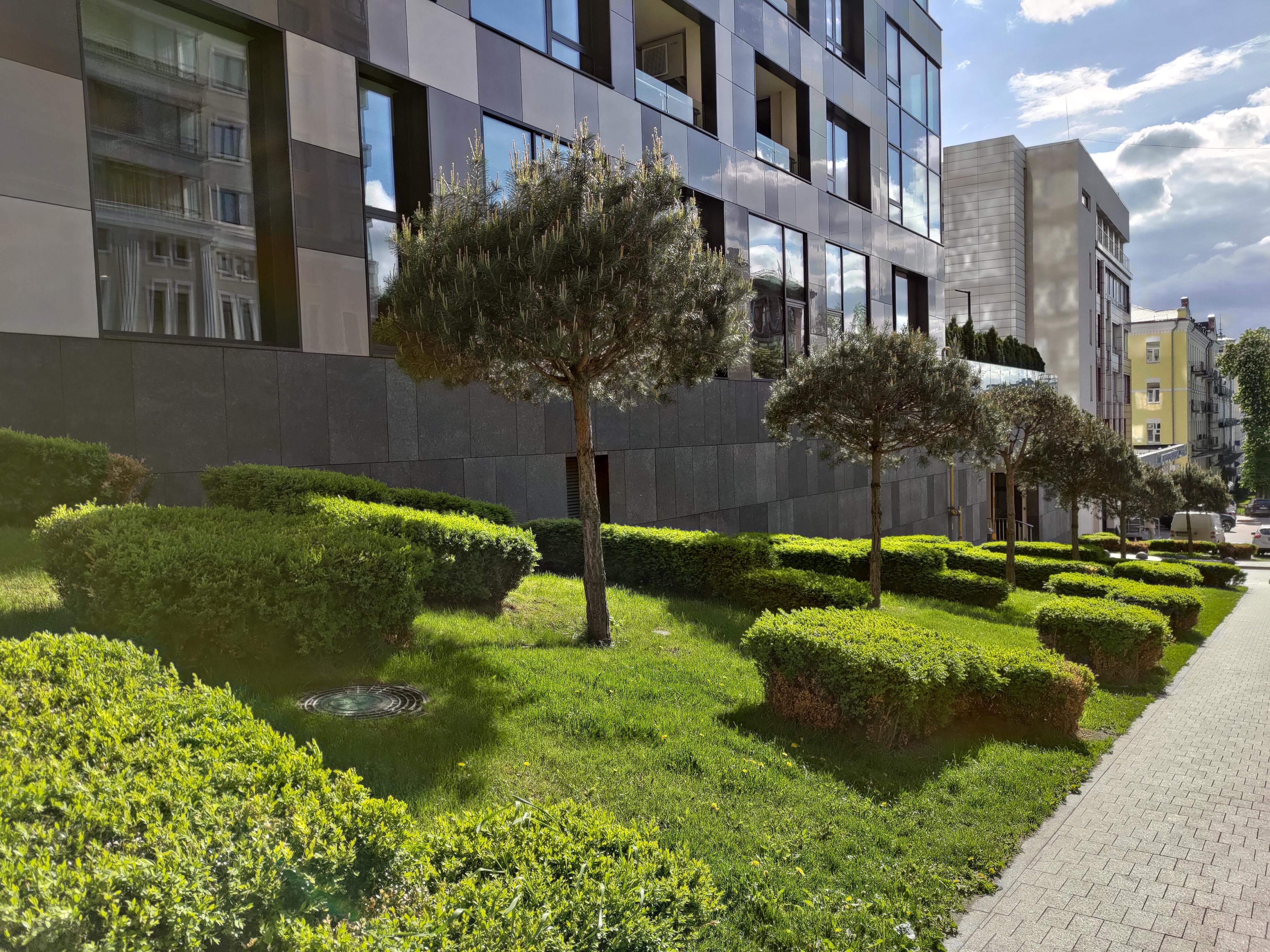
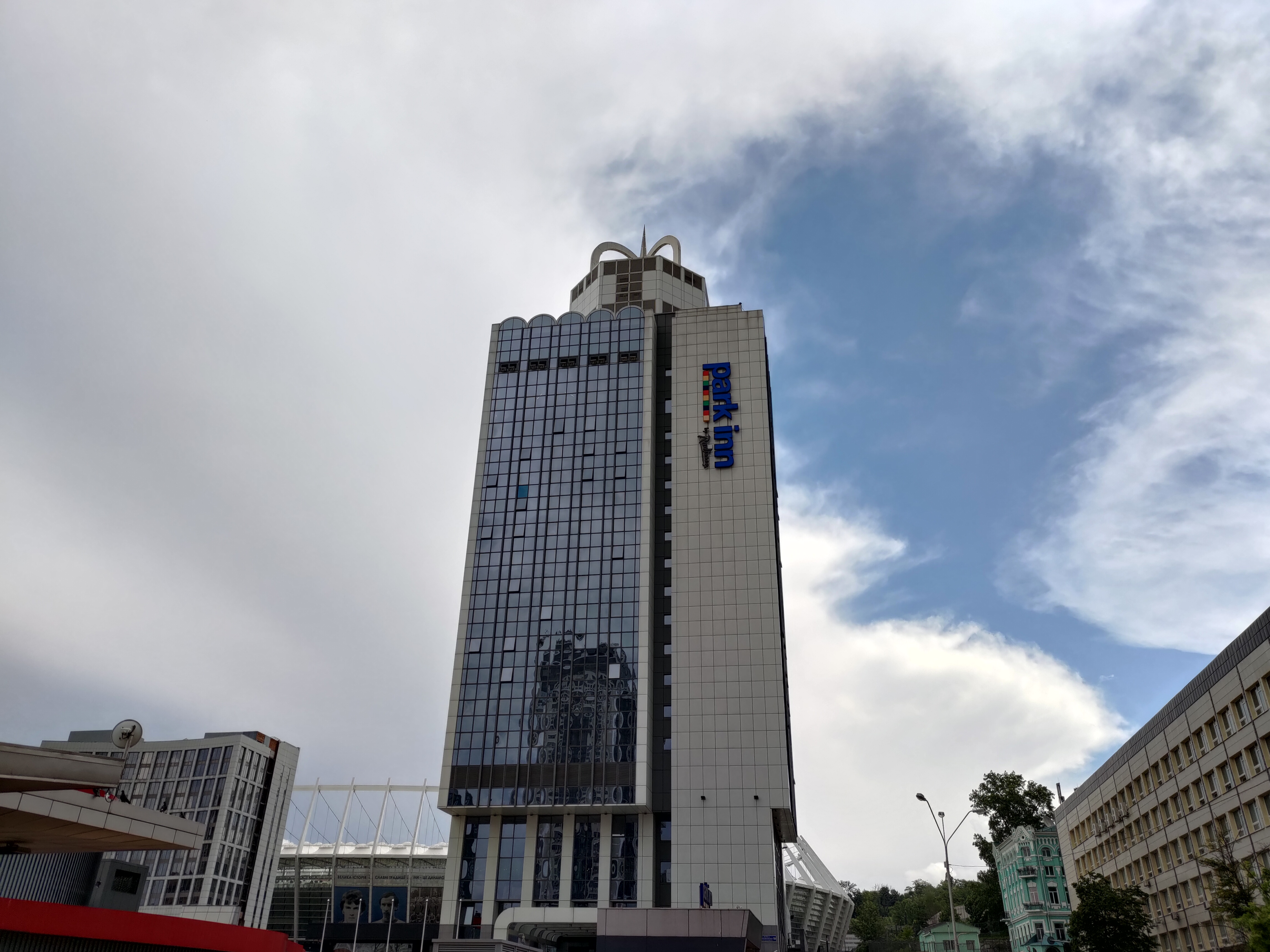
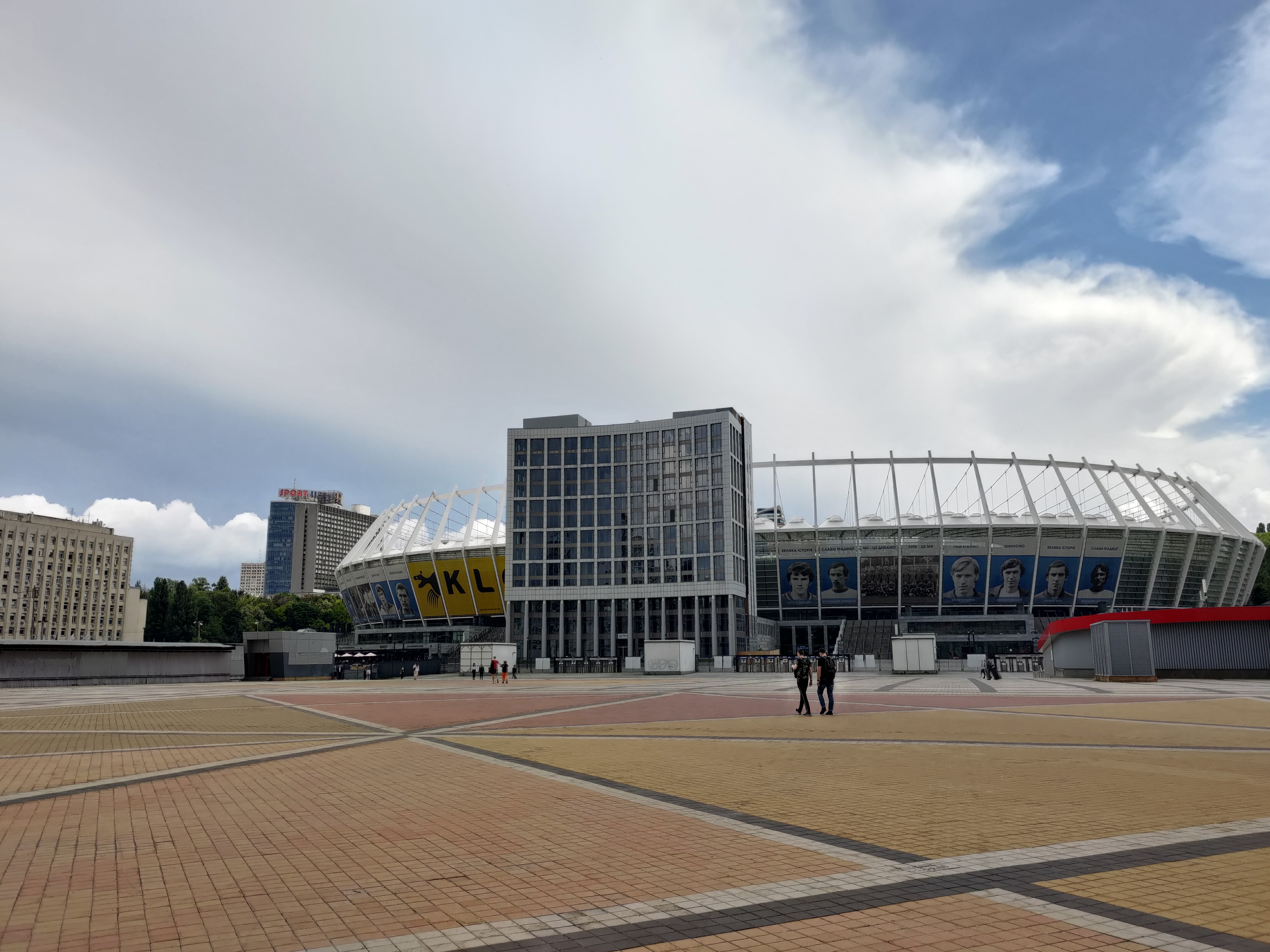
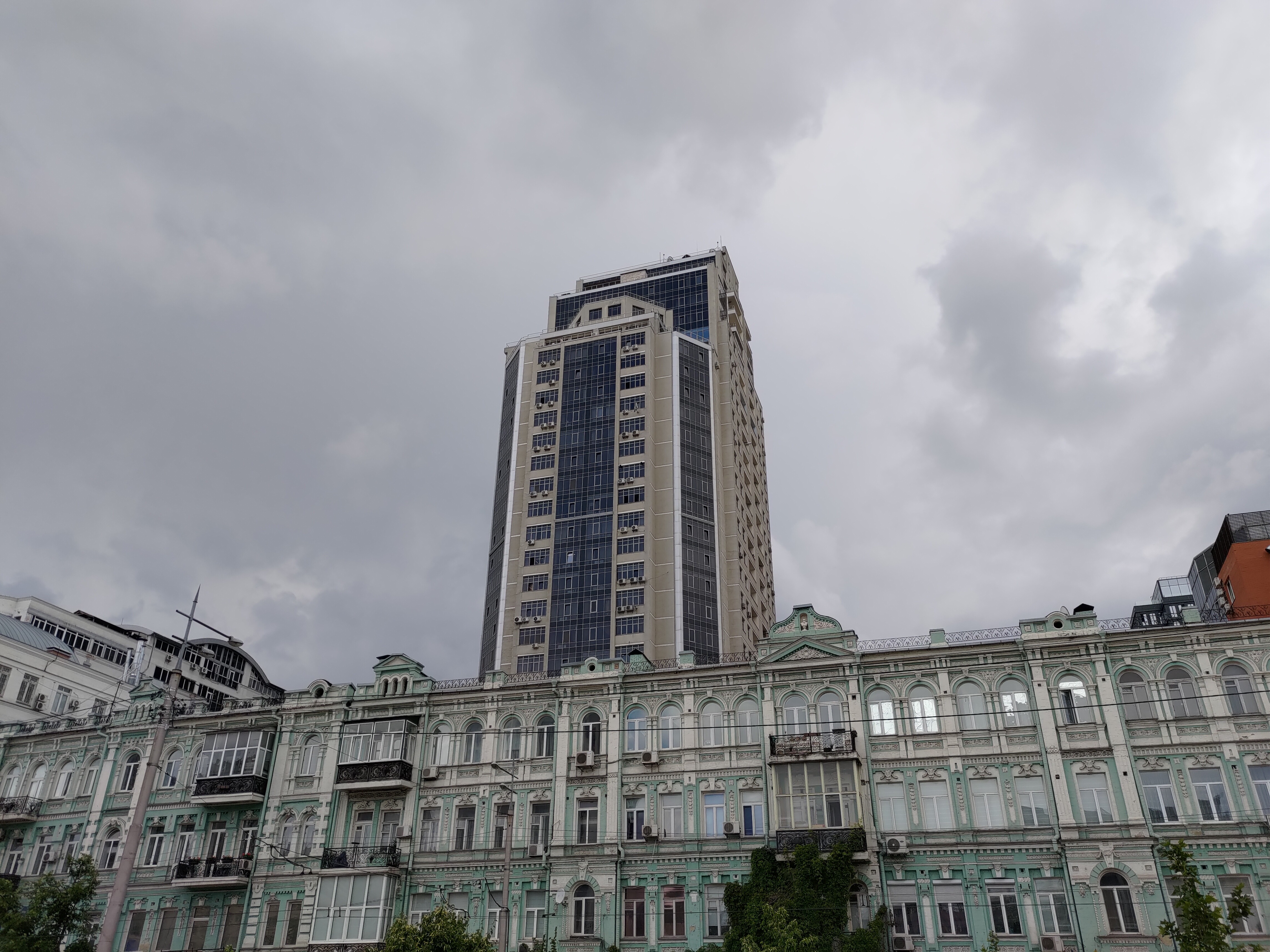
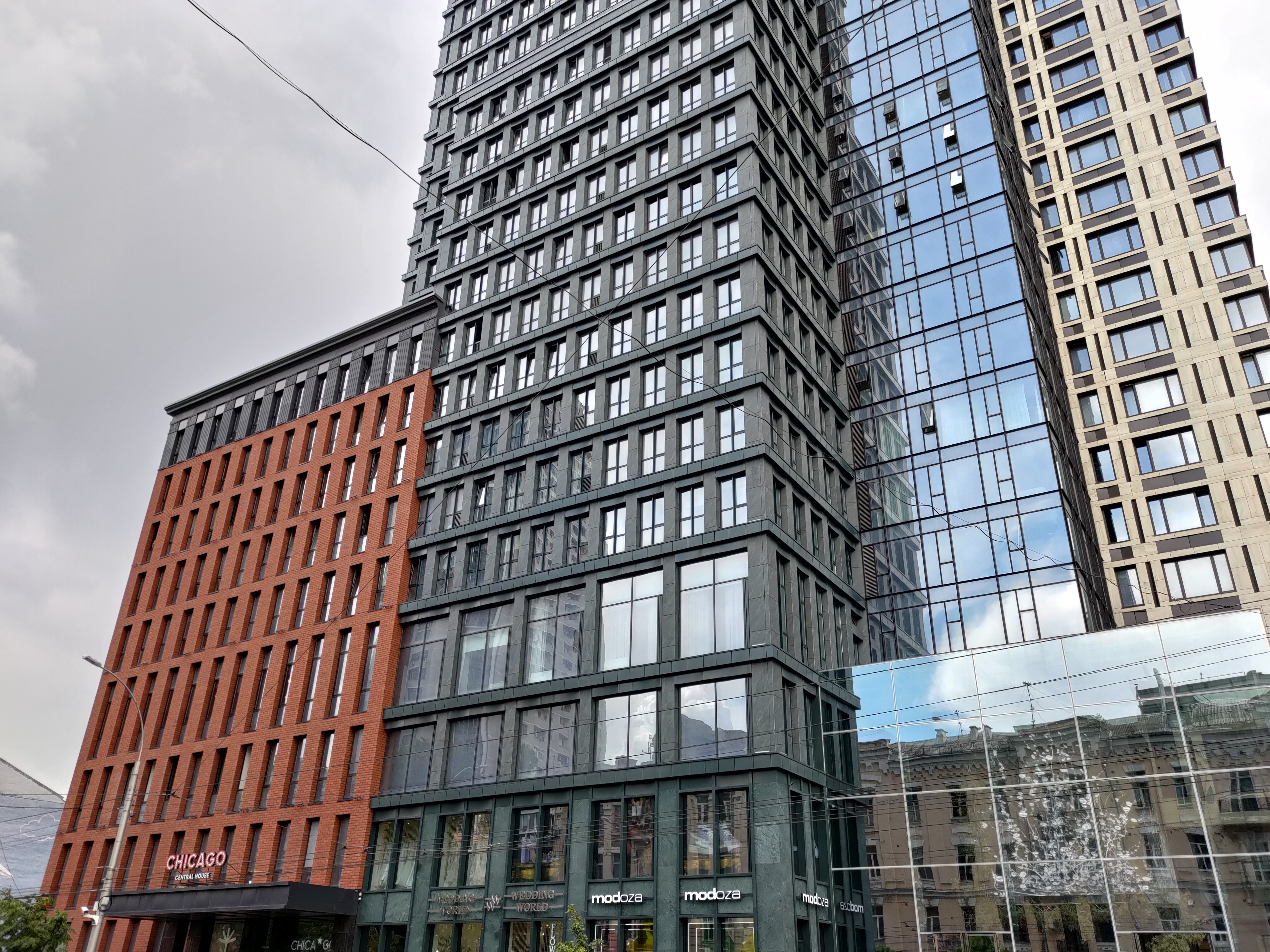
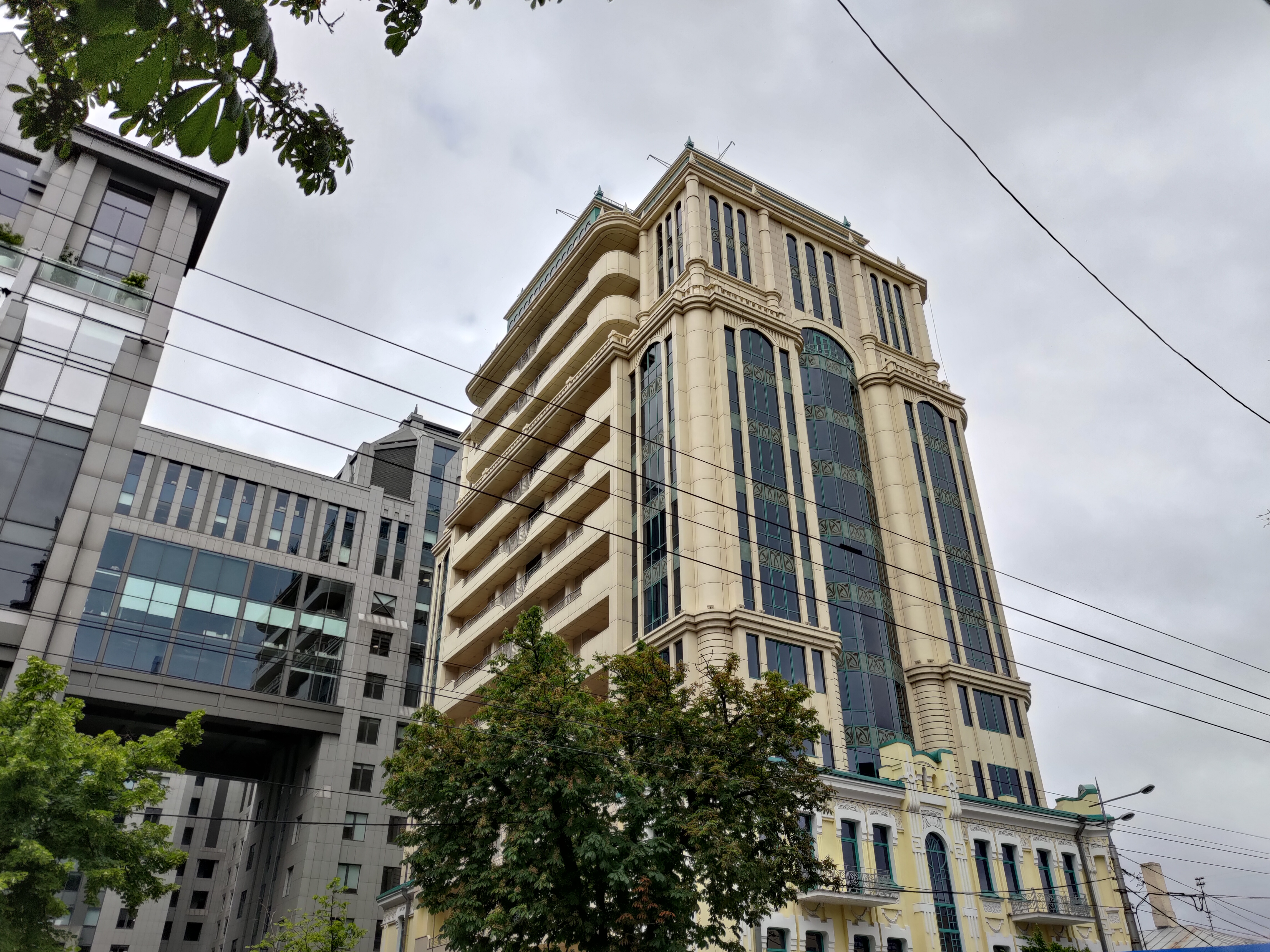






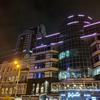










The ultra wide-angle camera behaves as expected. With sufficient lighting, you can easily make a good photo, but at night the detail drops significantly, blurring and noise appear. Although a decent shot can also be obtained, especially if there is some kind of support or tripod.
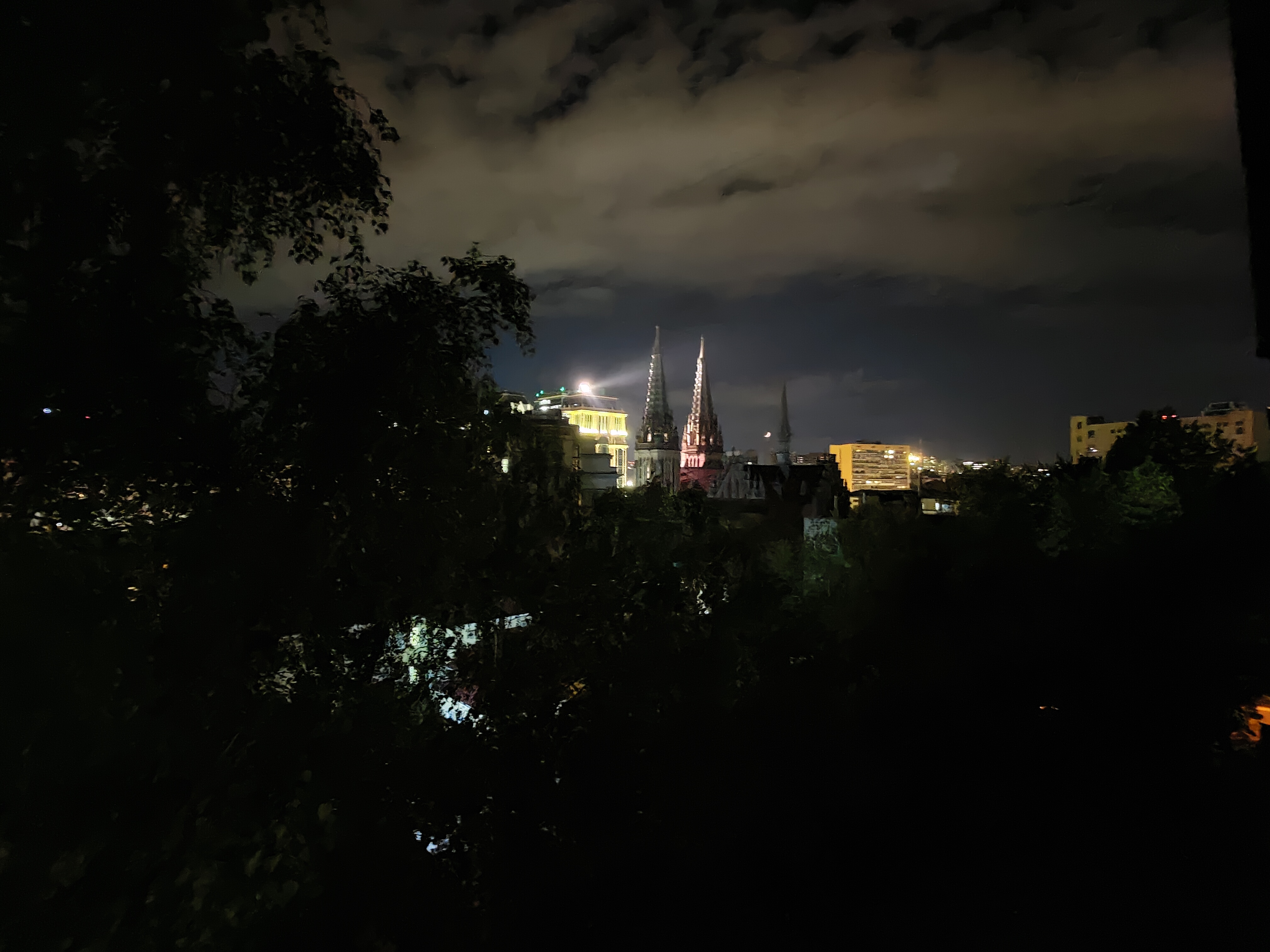
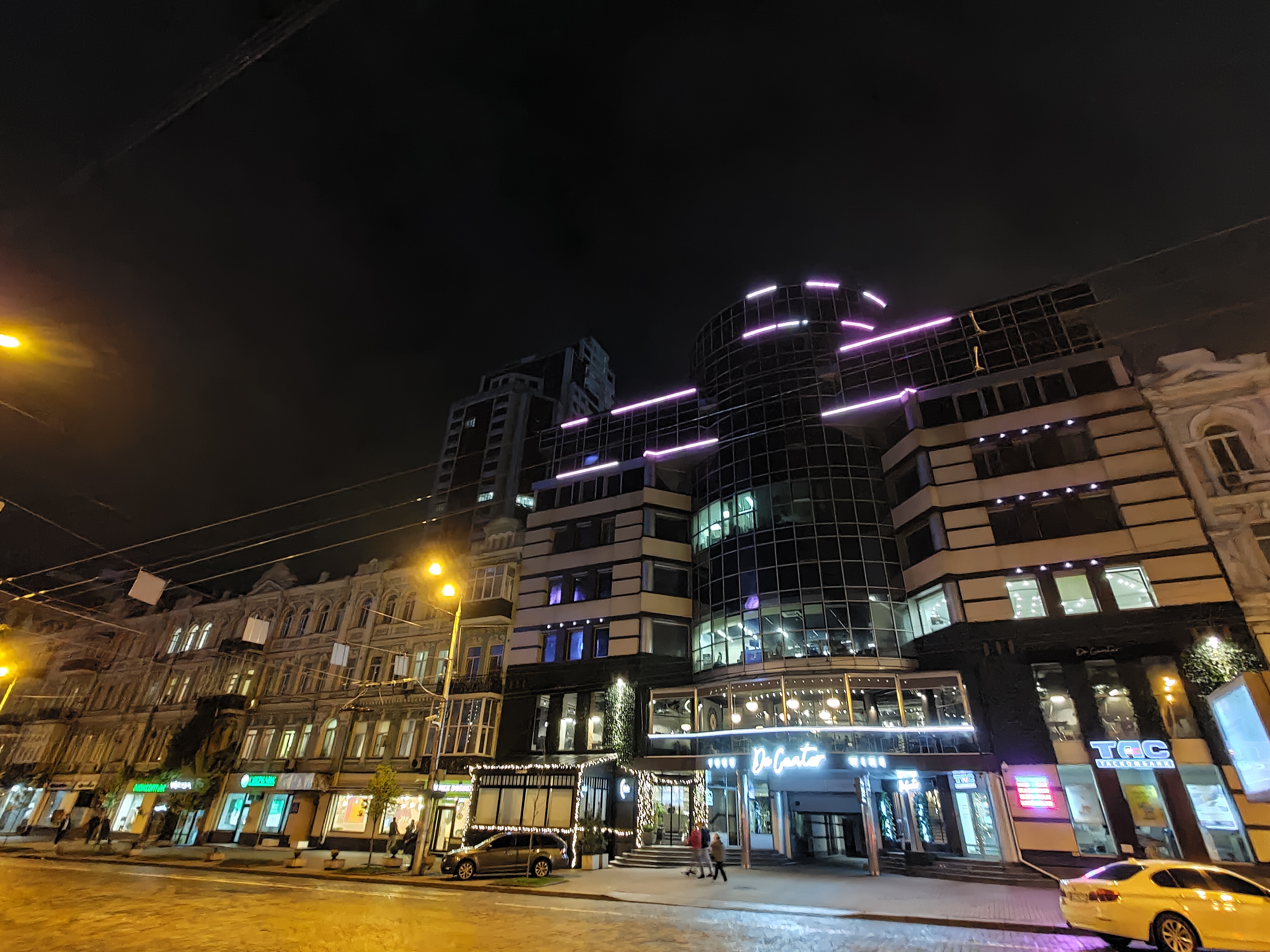
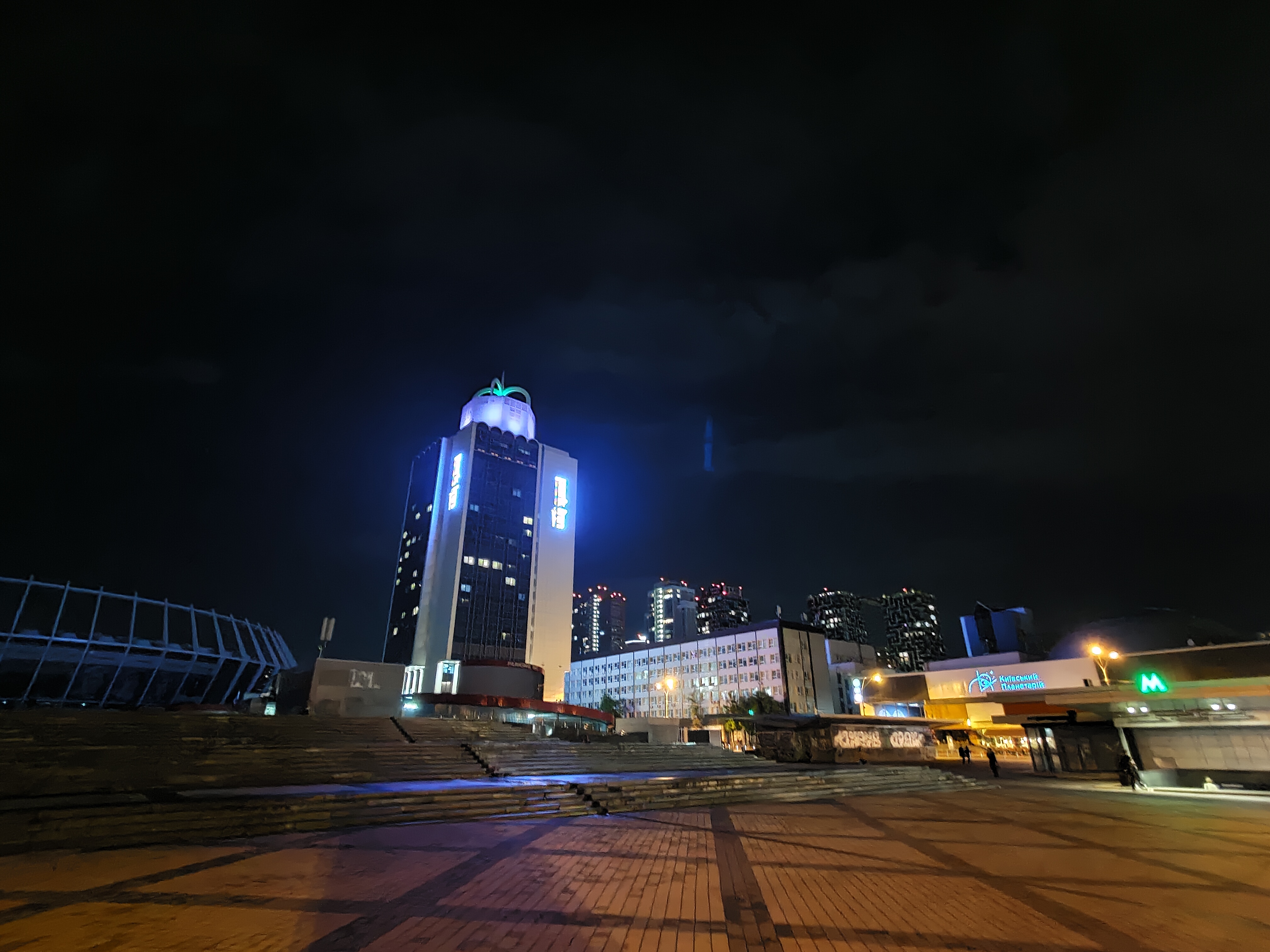
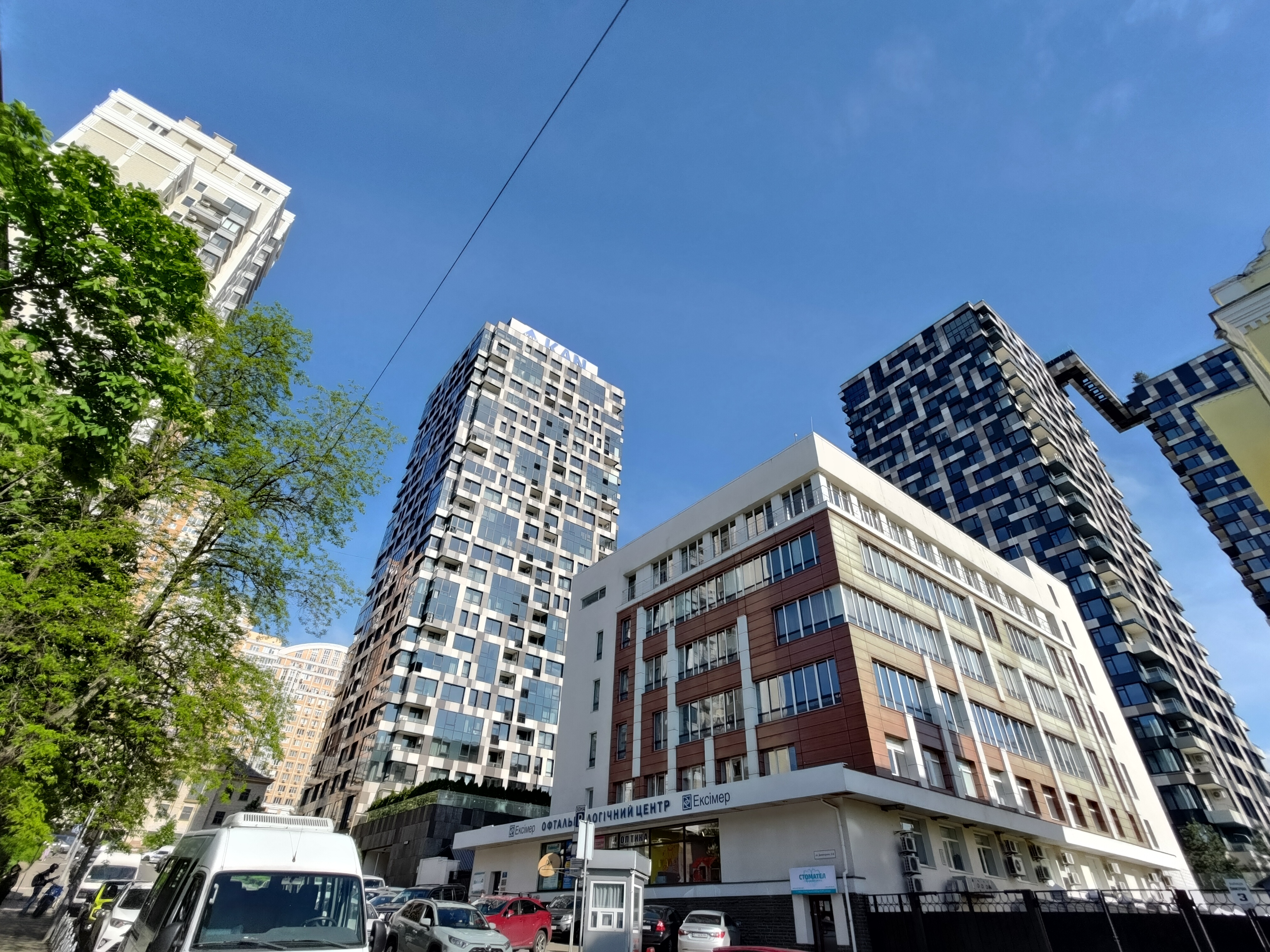

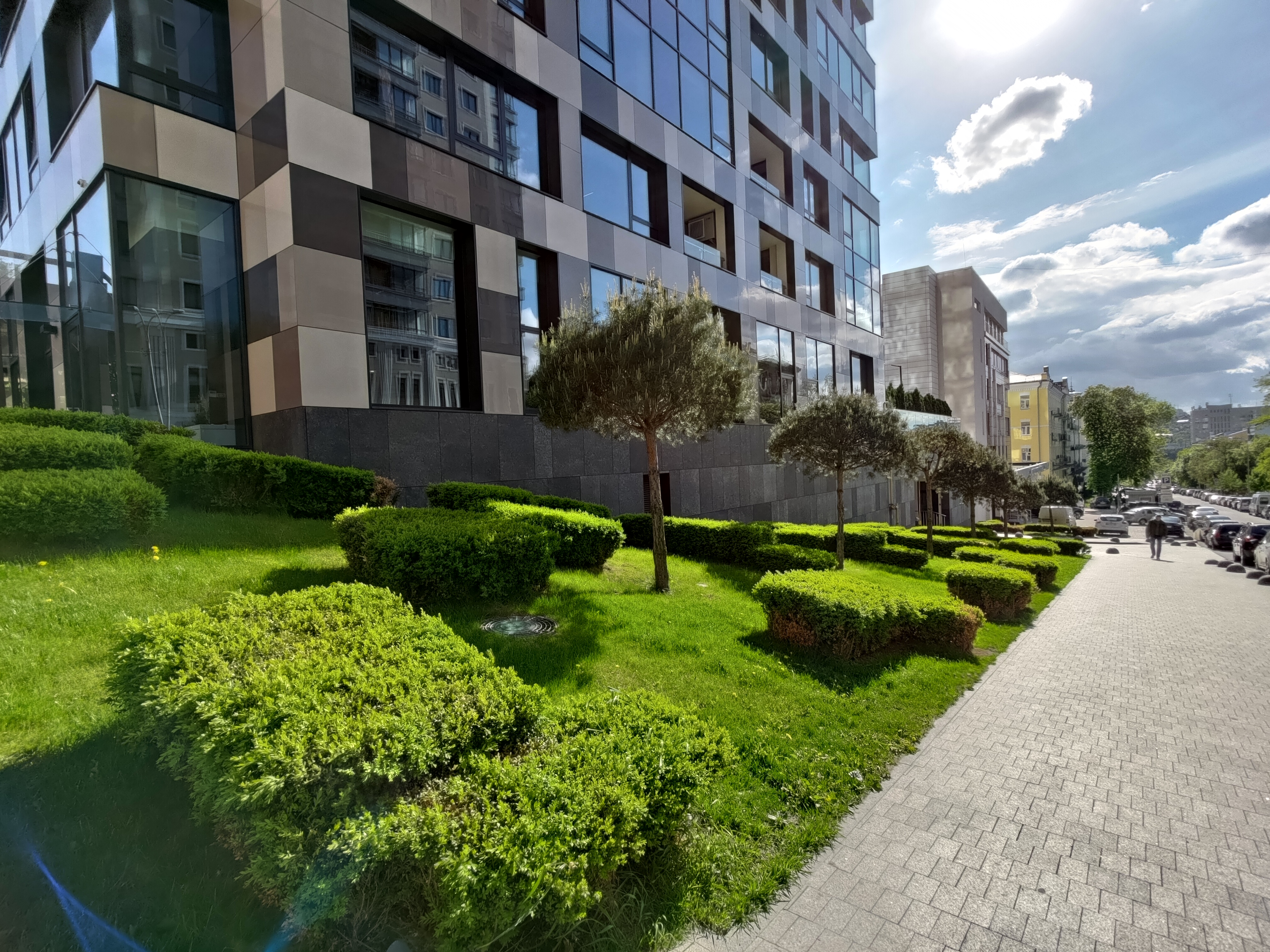
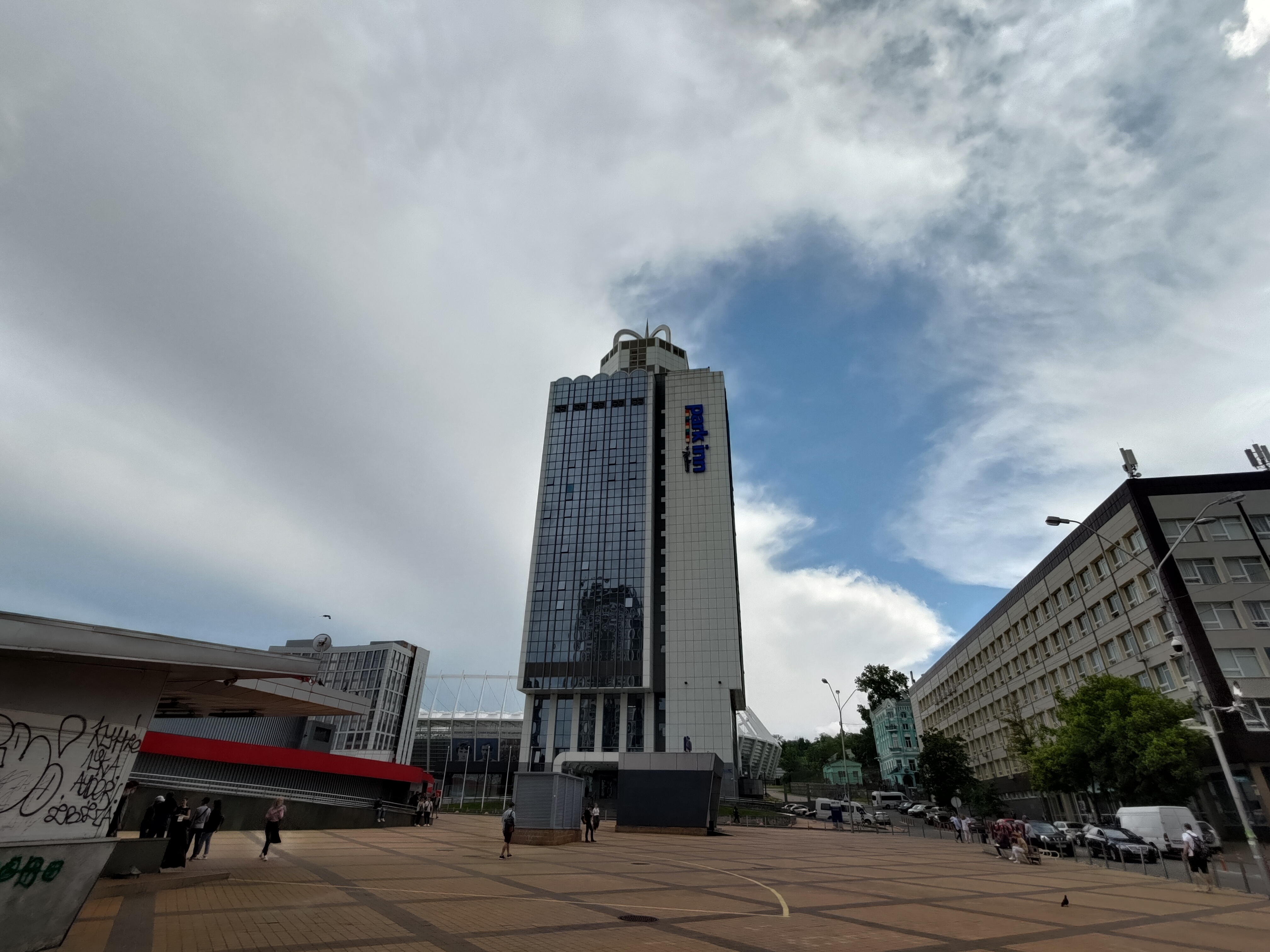
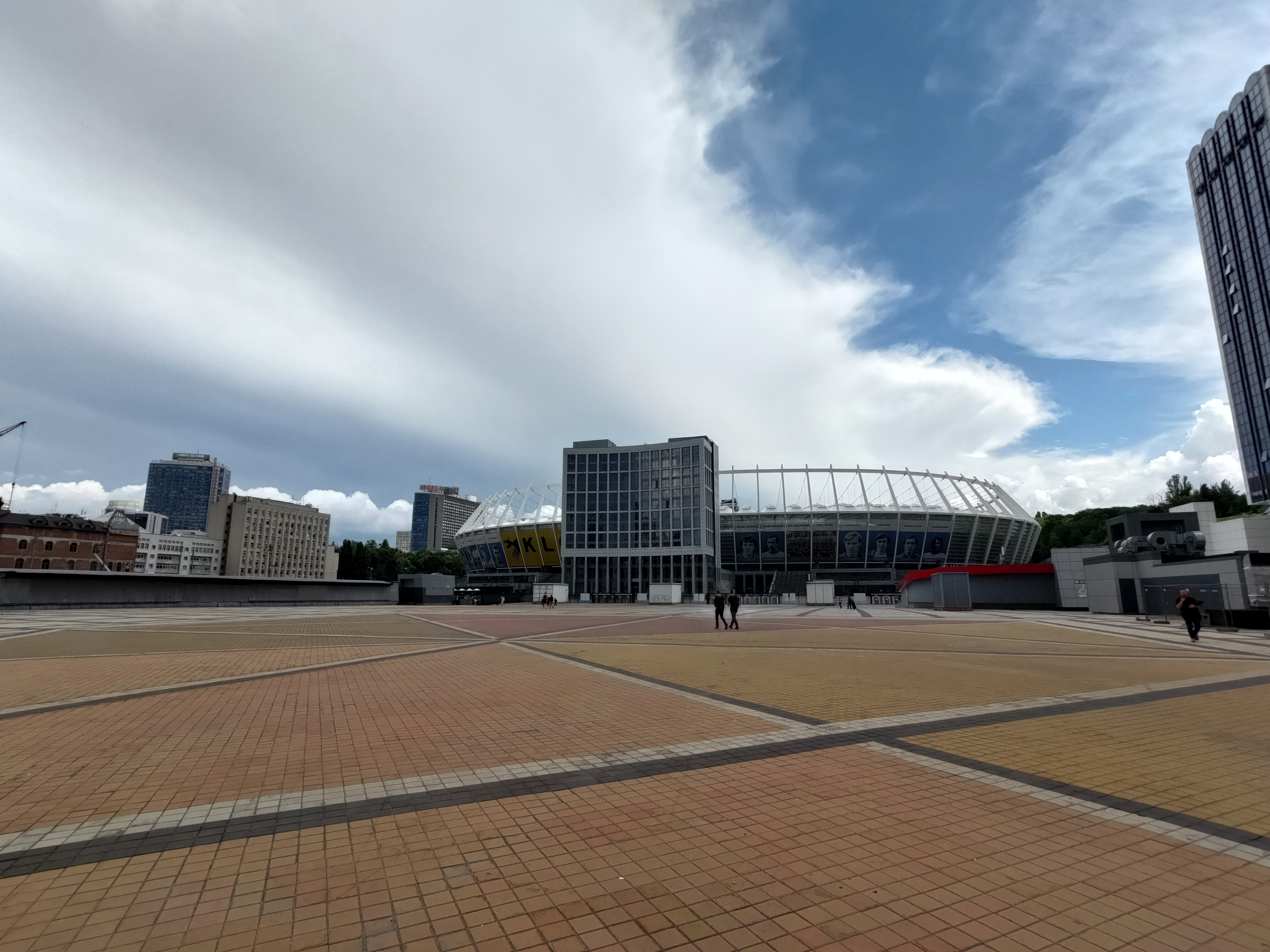
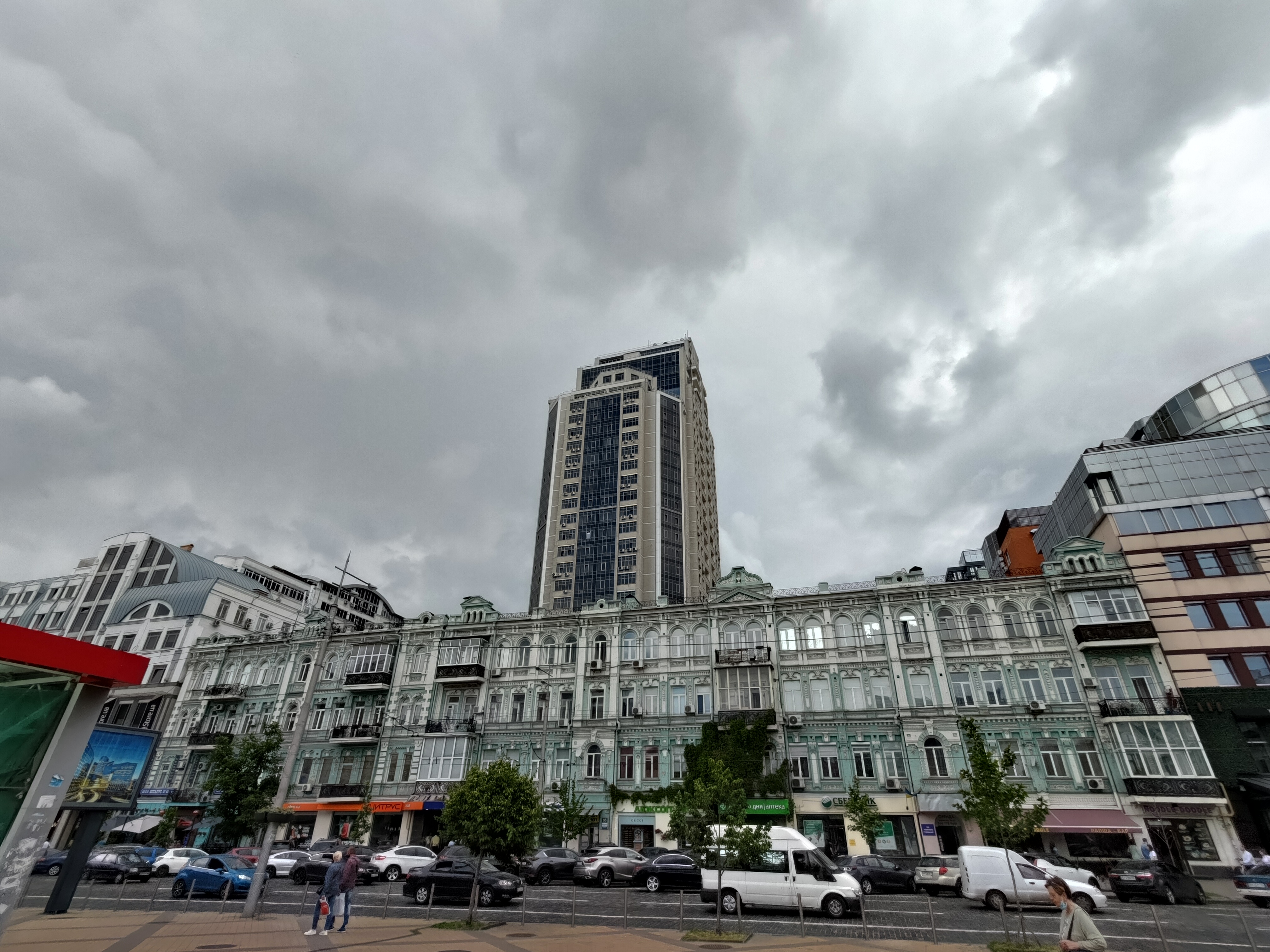
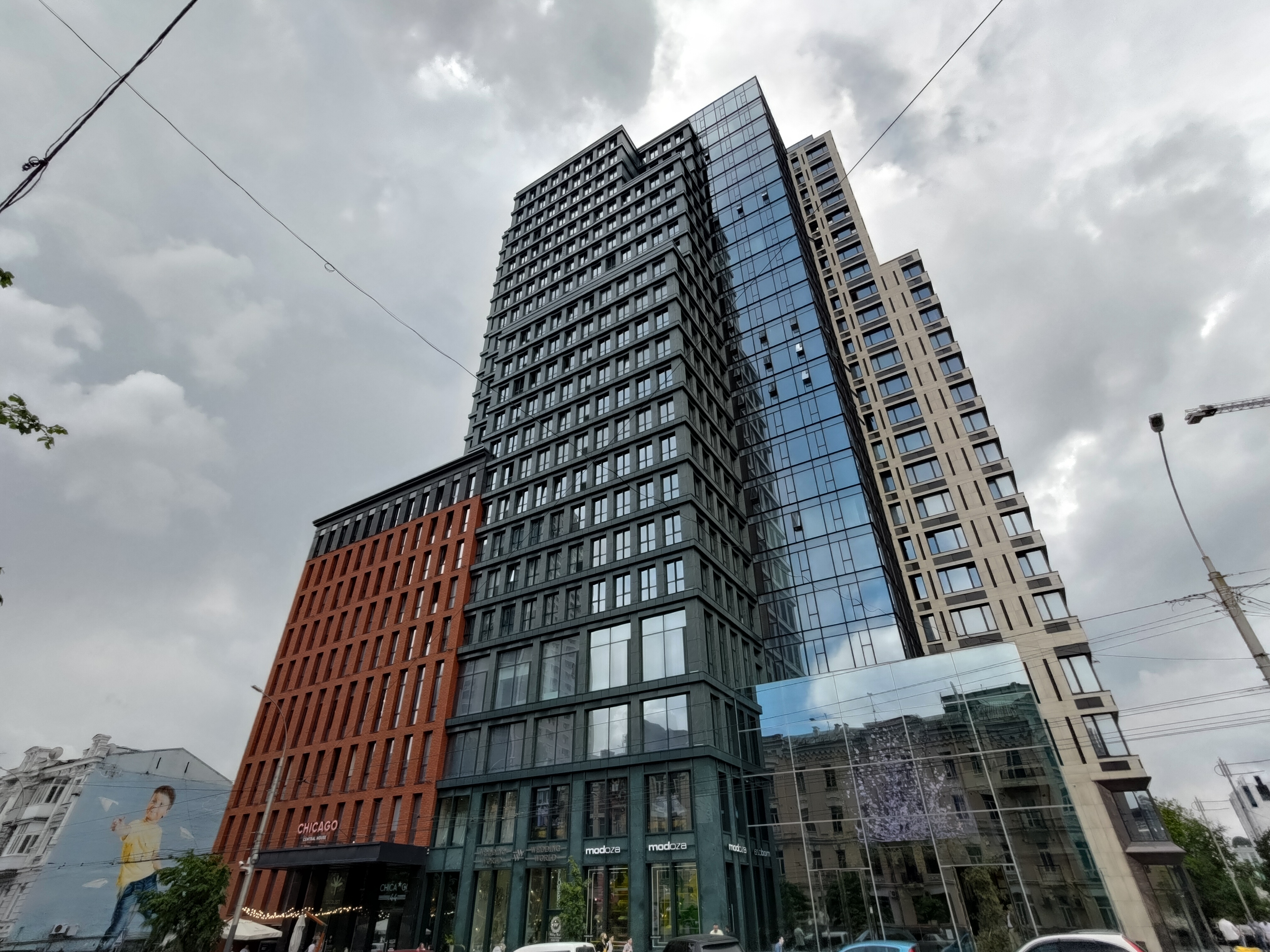
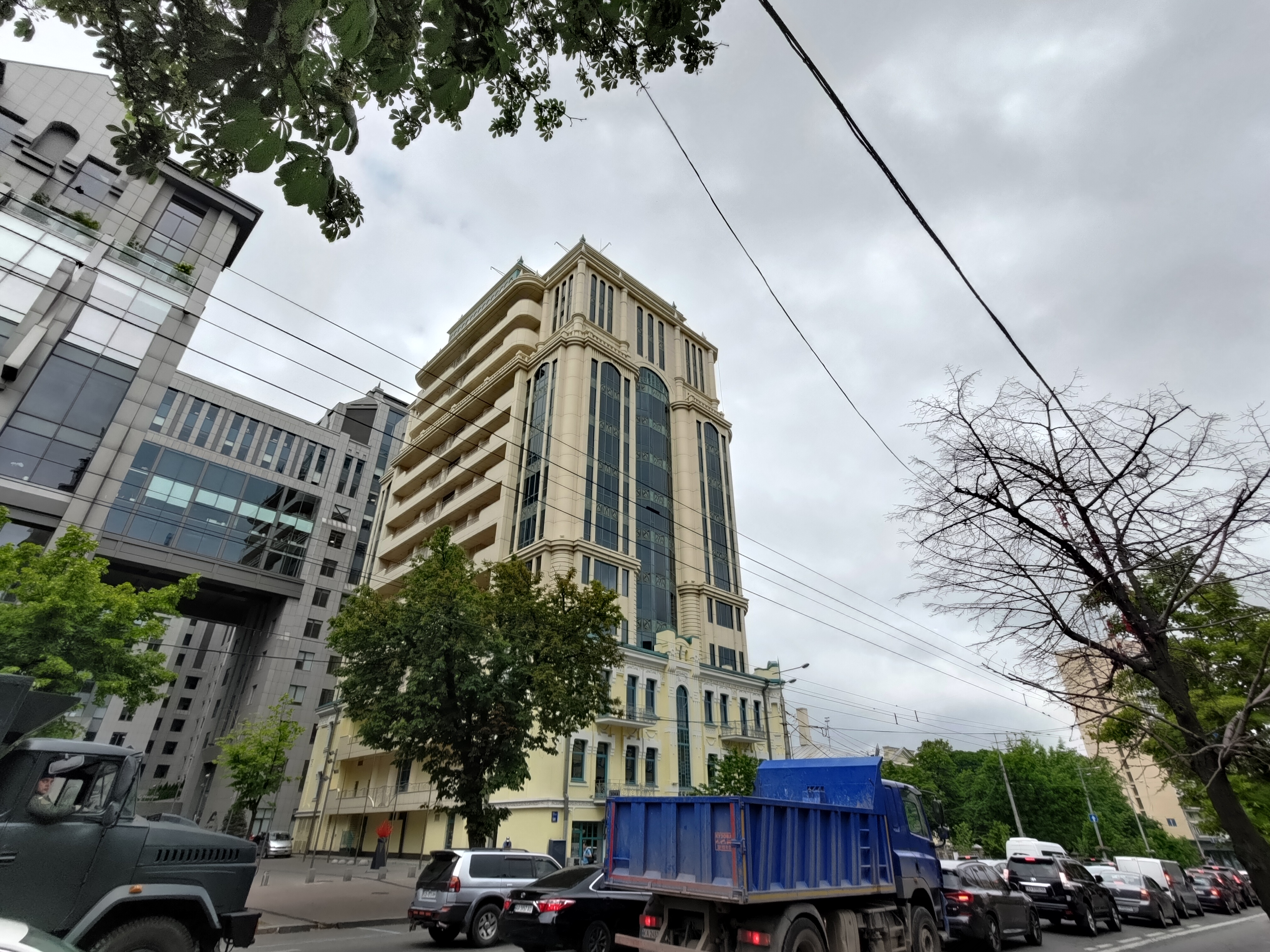






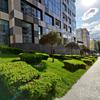






Telephoto module:


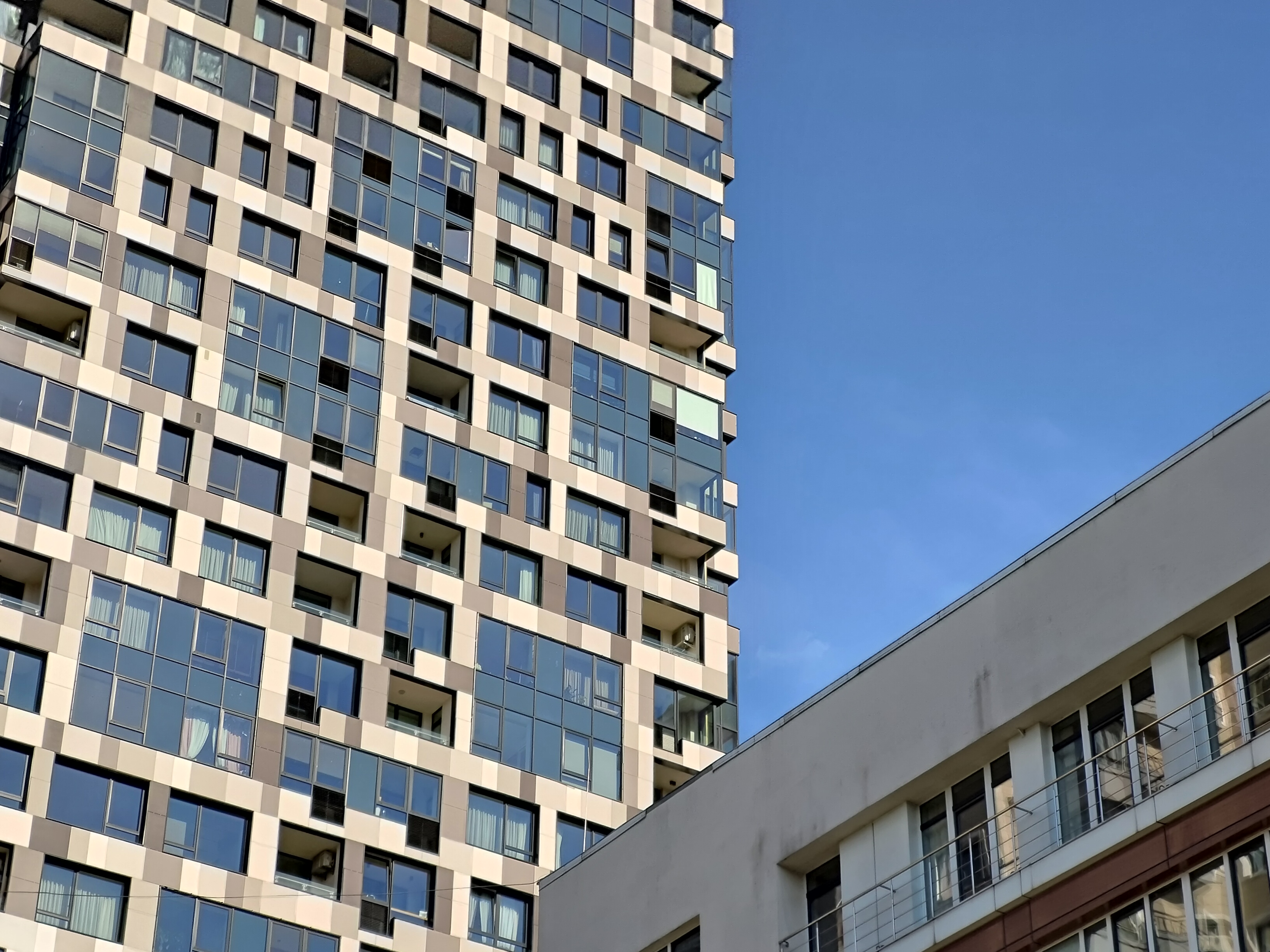
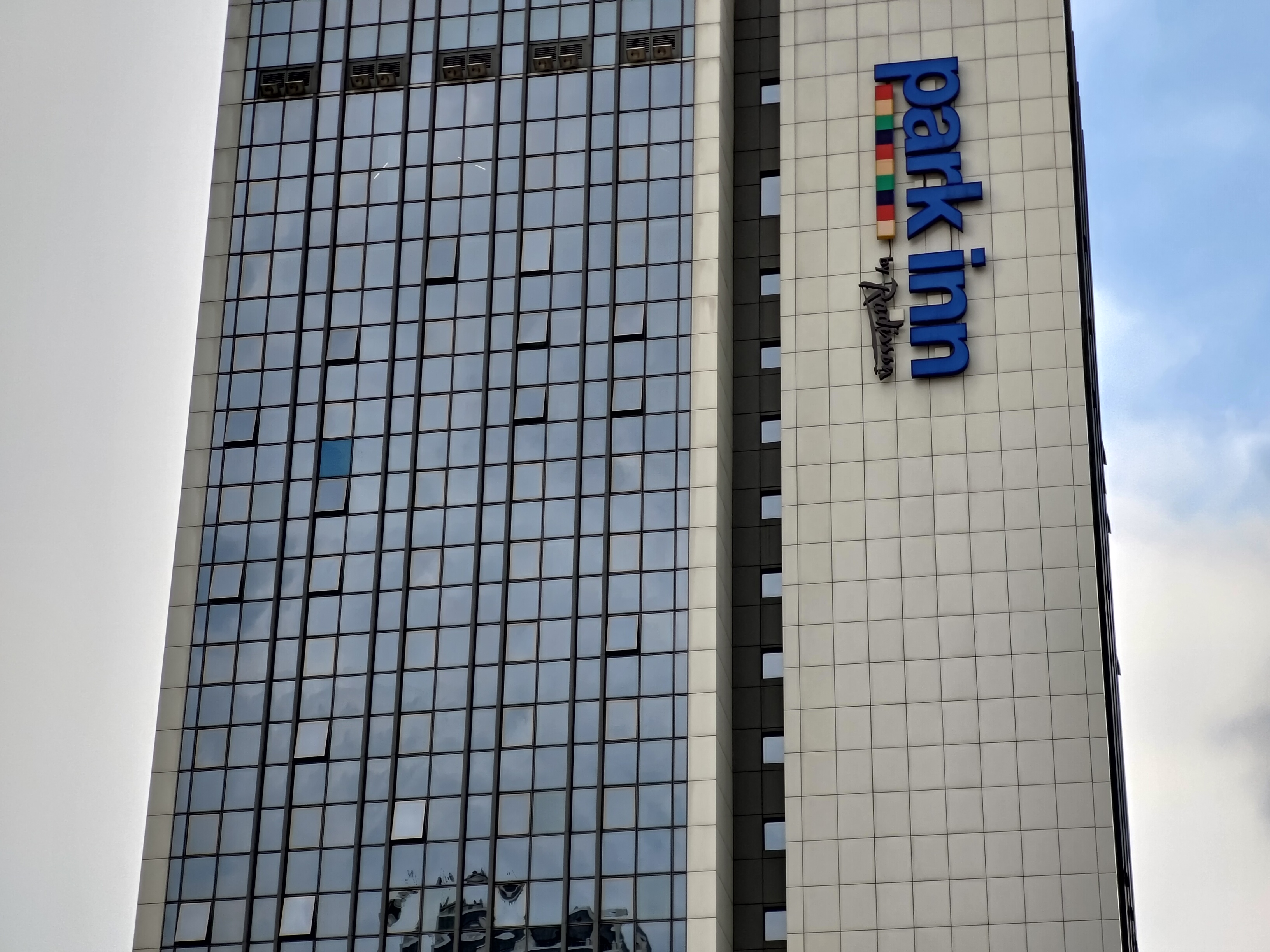
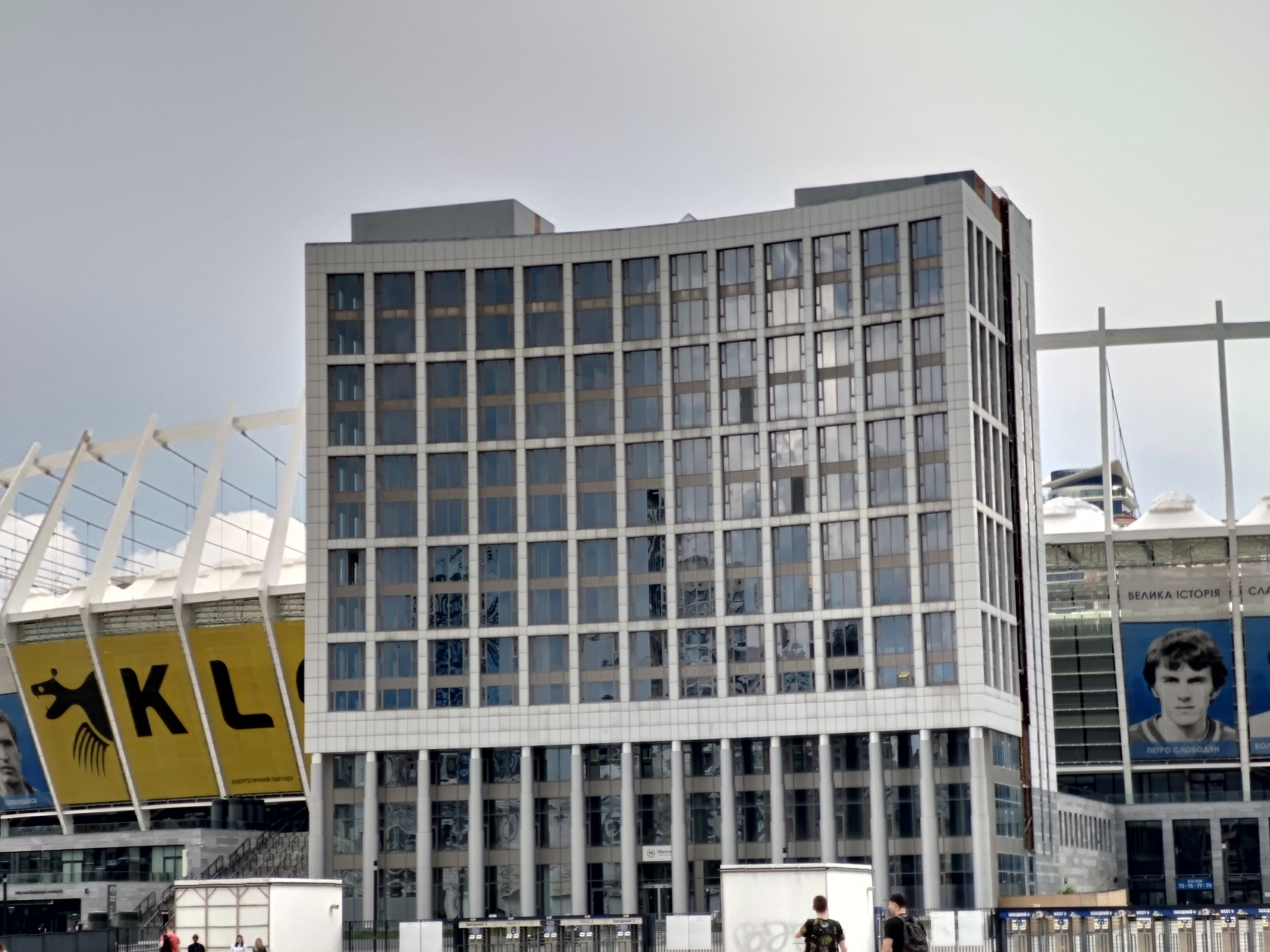
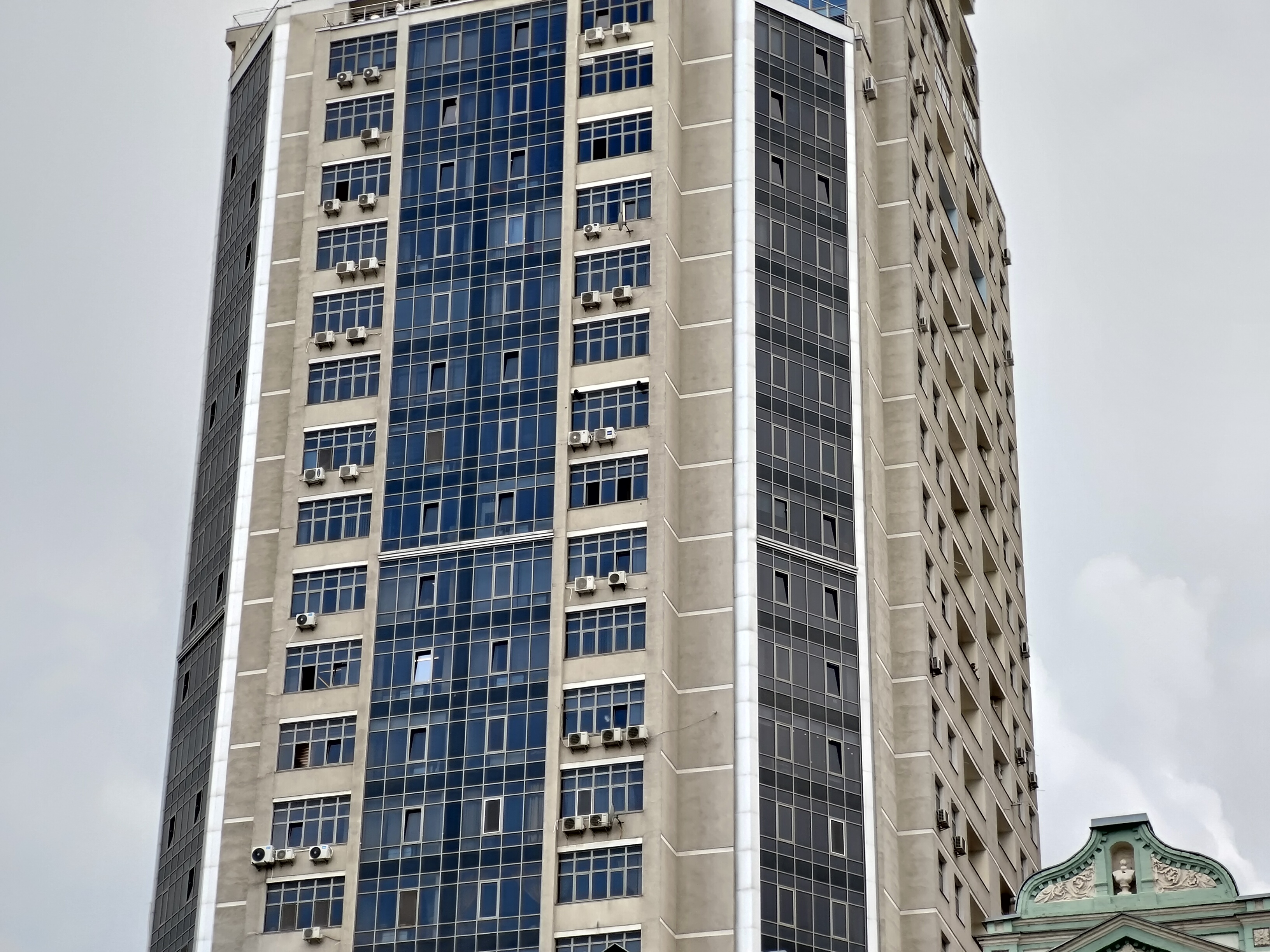
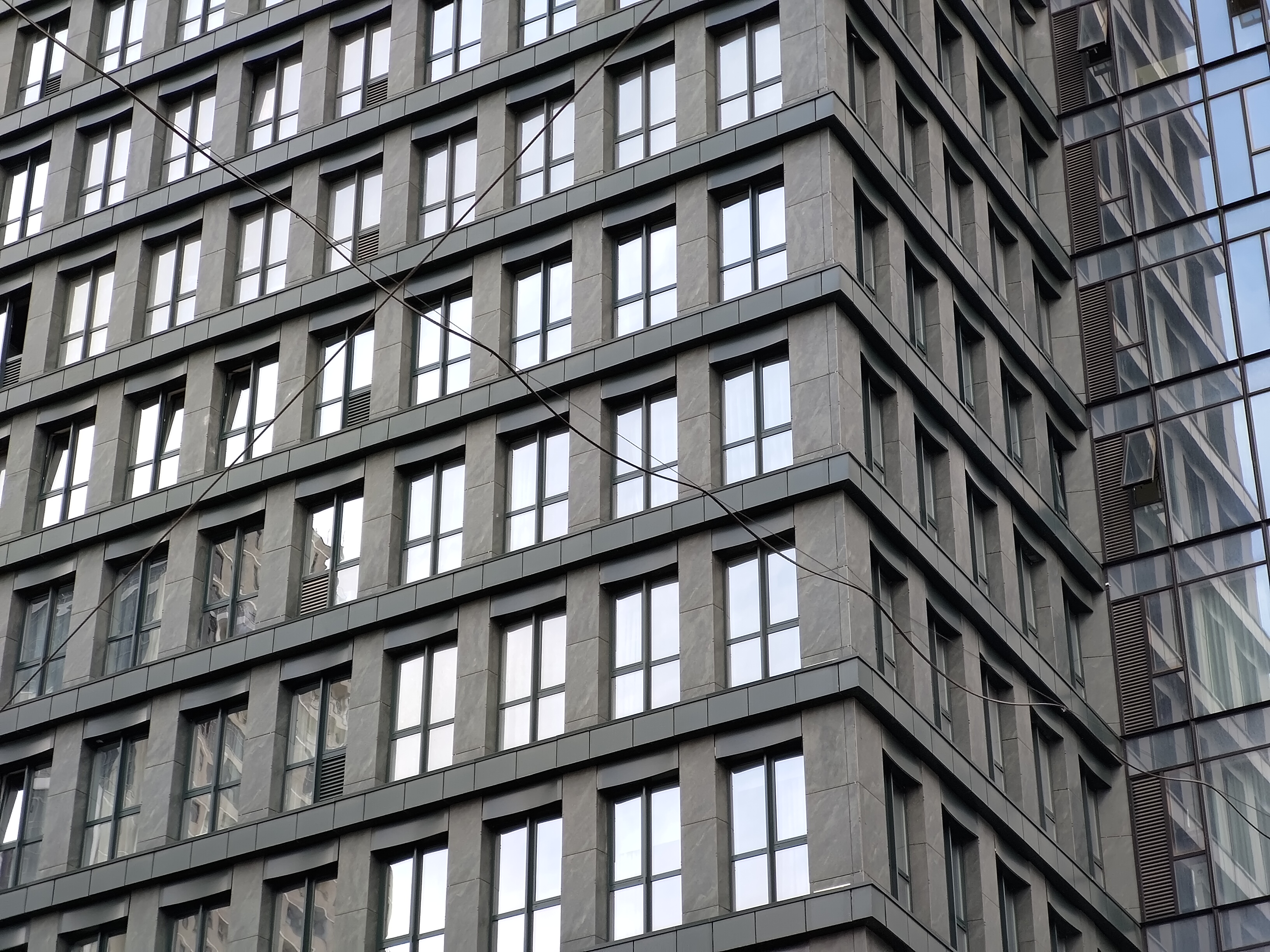
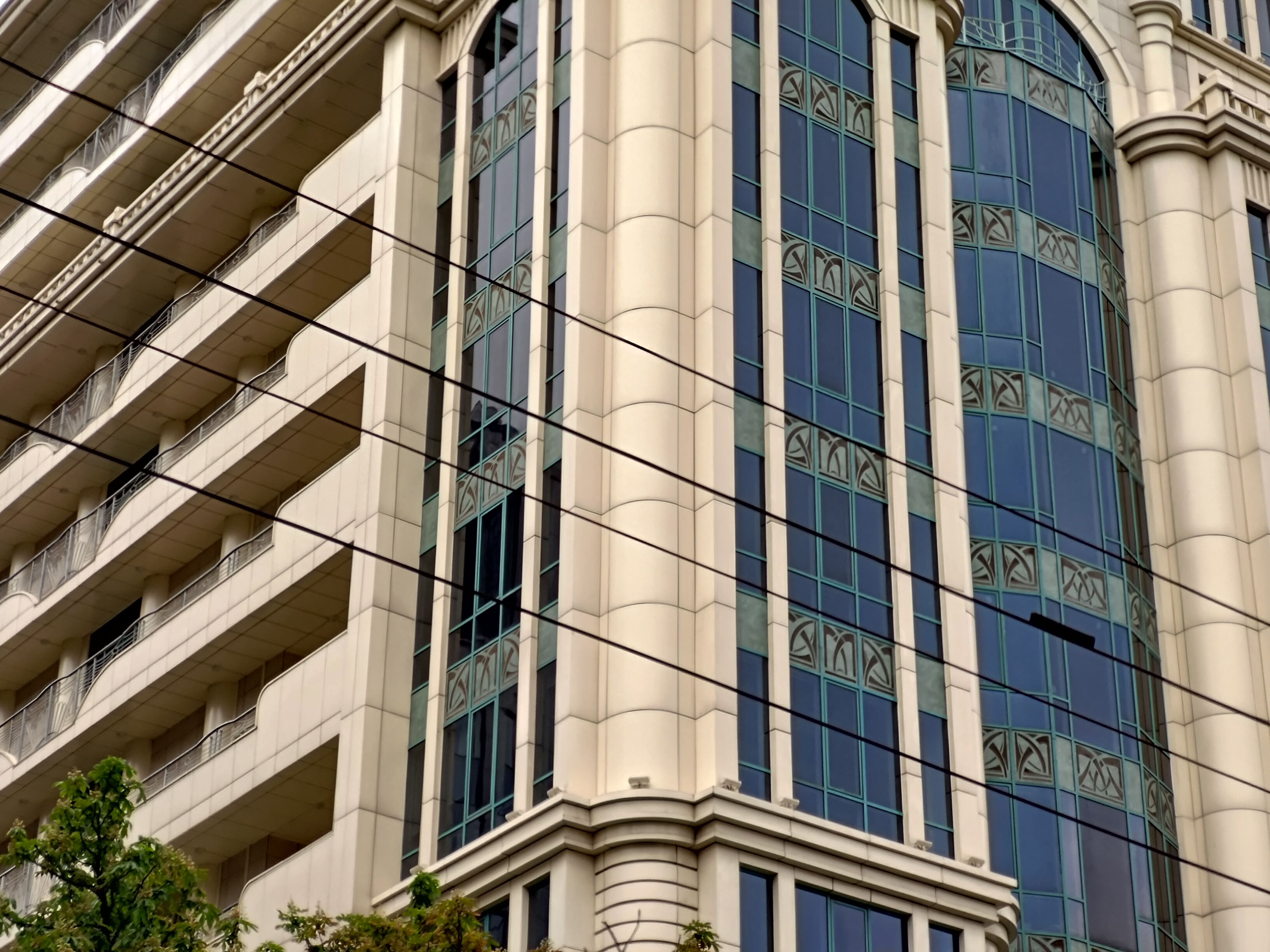
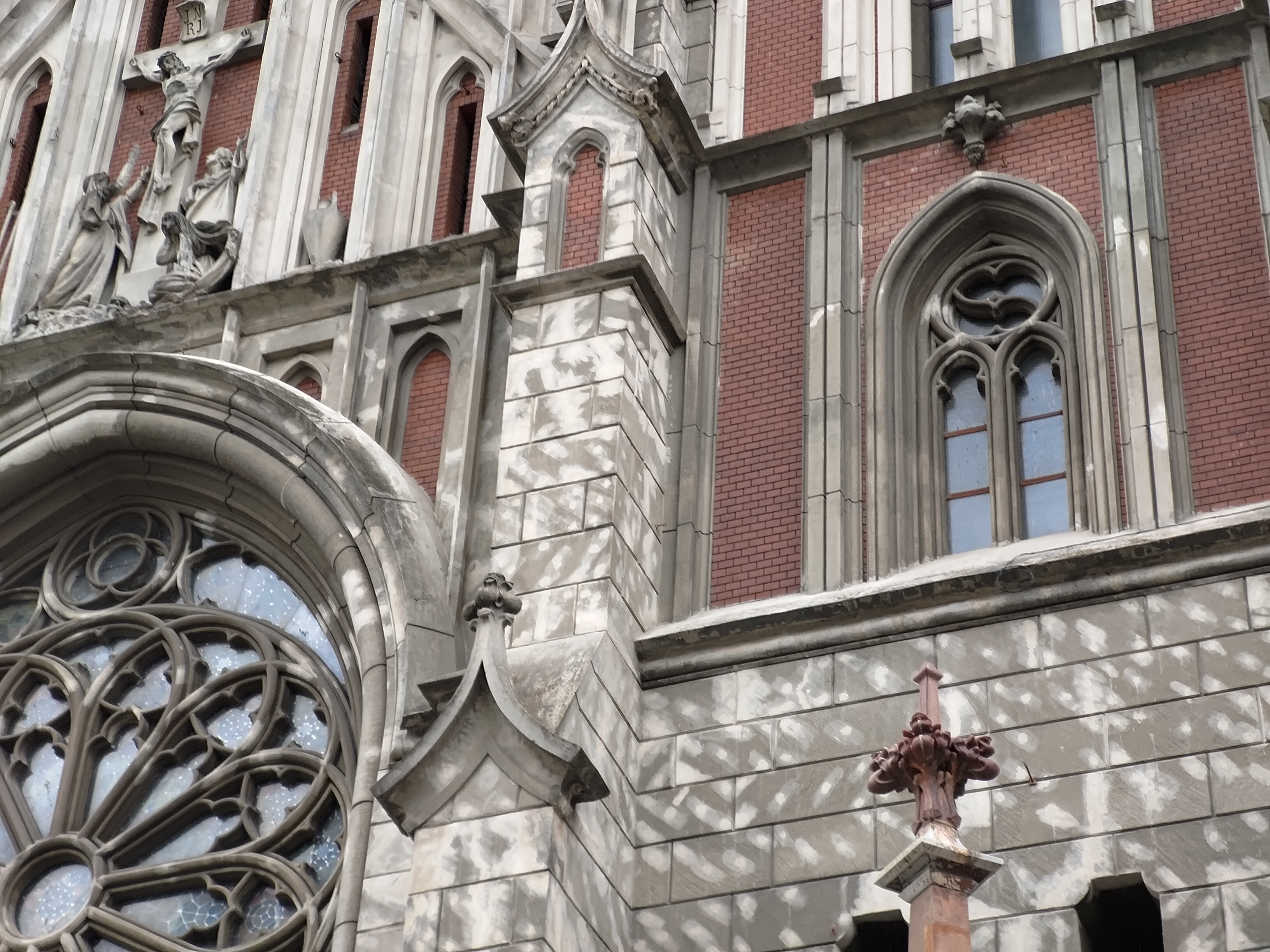









Panorama:

The smartphone also copes very well with video, including 4K 60 fps. Enhanced Electronic Stabilization is only available for FullHD.
3 Things to Know about ASUS ZenFone 8 Flip
- ASUS ZenFone 8 Flip is equipped with a triple rotating camera, which also functions as a front camera. And also can automatically make panoramas and shoot video with tracking autofocus
- One of the most powerful processors is inside, as well as an impressive memory capacity
- The display has a diagonal of 6.67 inches, a resolution of 2400x1080, a refresh rate of 90 Hz, support for HDR10 + and DC Dimming (only at 60 Hz)
